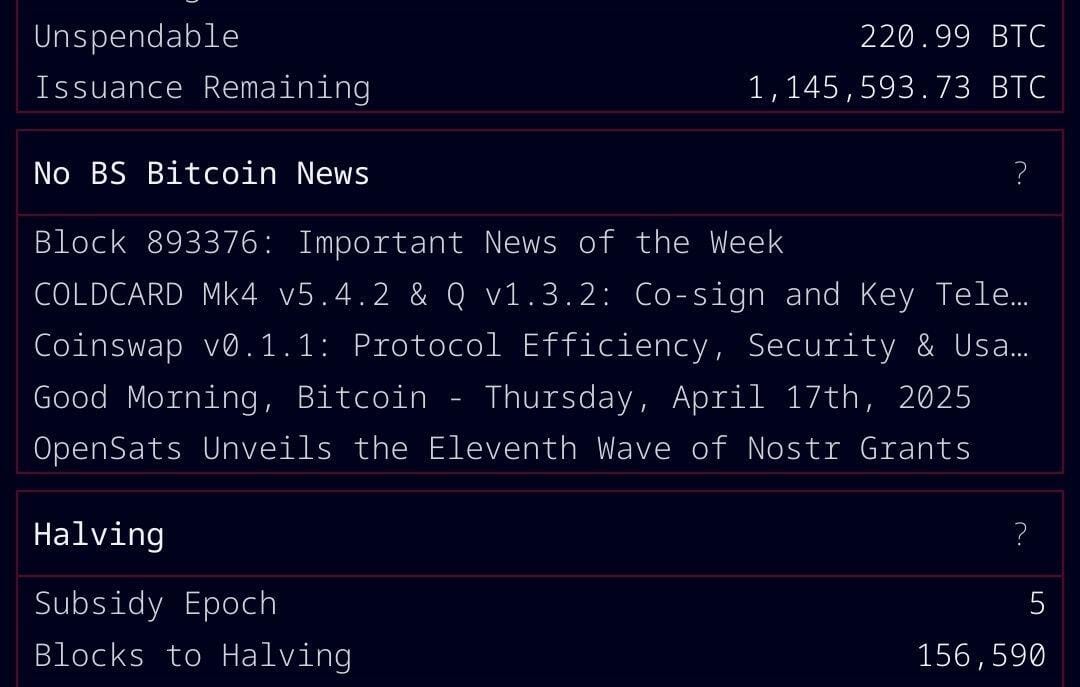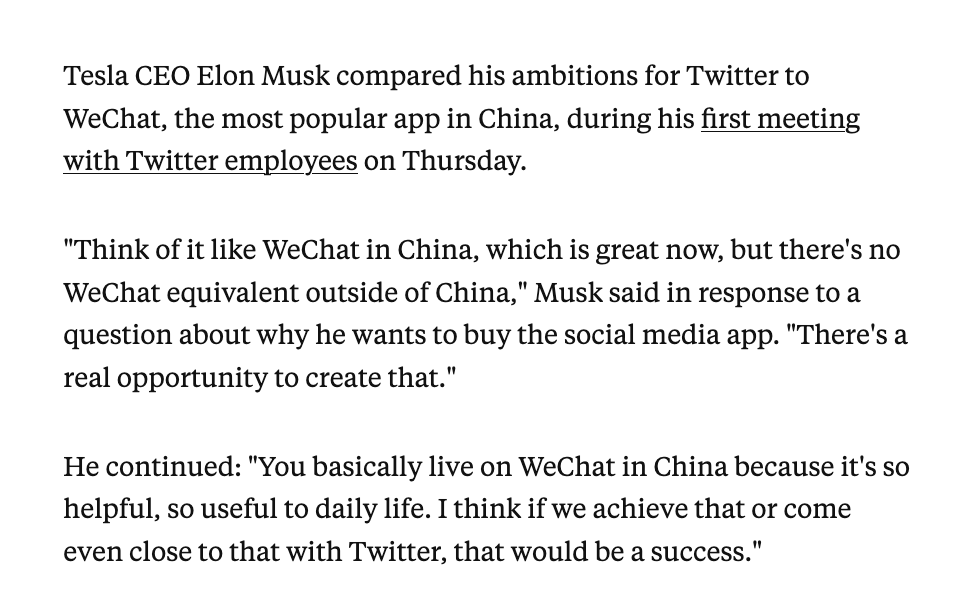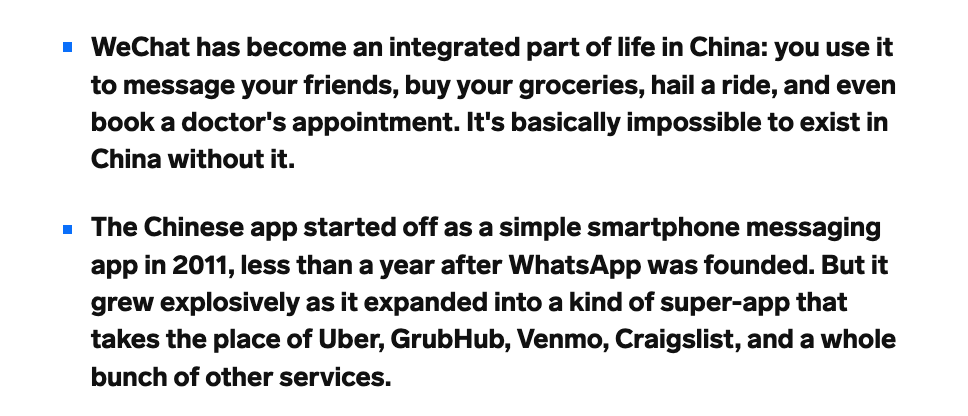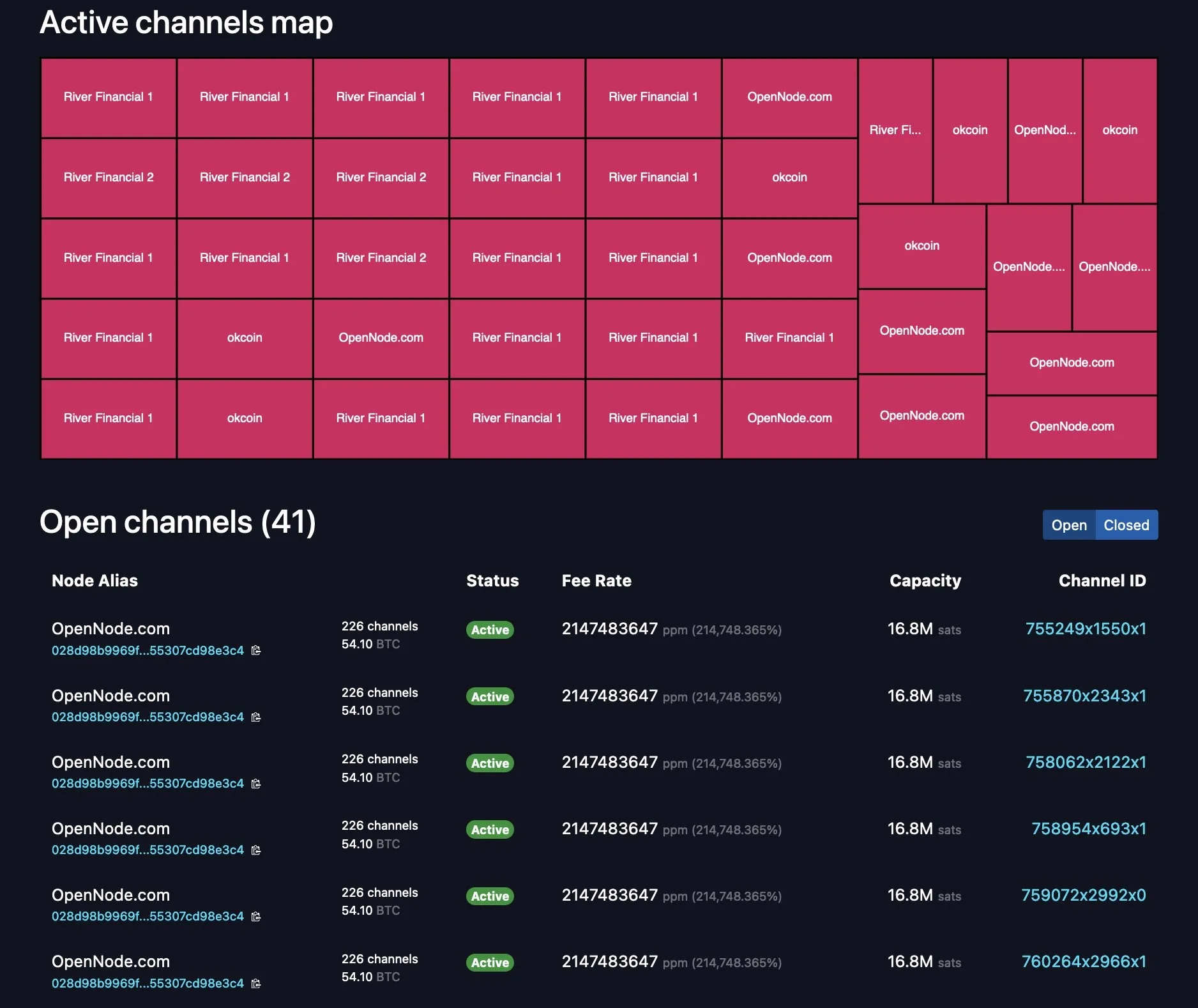-
 @ 2dd9250b:6e928072
2025-05-31 16:15:48
@ 2dd9250b:6e928072
2025-05-31 16:15:48Durante a década de 1990, houve o aumento da globalização da economia, determinando a adição do fluxo internacional de capitais, de produtos e serviços. Este fenômeno levou a uma interdependência maior entre as economias dos países. Justamente por causa da possibilidade de que um eventual colapso econômico em um país resulte no contágio dos demais. Diante disso, aumentou a preocupação com os riscos incentivando a utilização de sofisticados modelos e estratégias de avaliação de gestão de risco.
Na década, ganharam destaque ainda os graves problemas financeiros enfrentados, entre outros, pelo banco inglês Barings Bank, e pelo fundo de investimento norte-americano Long Term Capital Management.
Outro grande destaque foi a fraude superior a US$ 7 bilhões sofrida pelo banco Société Generale em Janeiro de 2008.
O Barings Bank é um banco inglês que faliu em 1995 em razão de operações financeiras irregulares e mal-sucedidas realizadas pelo seu principal operador de mercado. O rombo da instituição foi superior à US$ 1,3 Bilhão e causado por uma aposta equivocada no desempenho futuro no índice de ações no Japão. Na realidade, o mercado acionário japonês caiu mais de 15% na época, determinando a falência do banco. O Baring Bank foi vendido a um grupo financeiro holandês (ING) pelo valor simbólico de uma libra esterlina.
O Long Term Capital Management era um fundo de investimento de que perdeu em 1998 mais de US$ 4,6 bilhões em operações nos mercados financeiros internacionais. O LTCM foi socorrido pelo Banco Central dos Estados Unidos (Federal Reserve ), que coordenou uma operação de socorro financeiro à instituição. A justificativa do Banco Central para esta decisão era "o receio das possíveis consequências mundiais da falência do fundo de investimento".
O banco francês Société Generale informou, em janeiro de 2008, uma perda de US$ 7,16 bilhões determinadas por fraudes efetuadas por um operador do mercado financeiro. Segundo revelou a instituição, o operador assumiu posições no mercado sem o conhecimento da direção do banco. A instituição teve que recorrer a uma urgente captação de recursos no mercado próxima a US$ 5,0 bilhões.
E finalmente chegamos ao caso mais problemático da era das finanças modernas anterior ao Bitcoin, o caso Lehman Brothers.
O Lehman Brothers era o 4° maior de investimentos dos EUA quando pediu concordata em 15/09/2008 com dívidas que superavam inacreditáveis US$ 600 bilhões.
Não se tinha contas correntes ou talão de cheques do Lehman Brothers. Era um banco especializado em investimentos e complexas operações financeiras. Havia feito pesados investimentos em empréstimos a juros fixos no famigerado mercado subprime, e o crédito imobiliário voltado a pessoas consideradas de forte risco de inadimplência.
Com essa carteira de investimentos que valia bem menos que o estimado e o acúmulo de projetos financeiros, minou a confiança dos investidores na instituição de 158 anos. Suas ações passaram de US$ 80 a menos de US$ 4. Acumulando fracassos nas negociações para levantar fundos; a instituição de cerca de 25 mil funcionários entrou em concordata.
O Federal Reserve resgatou algumas instituições financeiras grandes e tradicionais norte-americanas como a seguradora AIG no meio da crise. O Fed injetou um capital de US$ 182, 3 bilhões no American International Group (AIG).
Foi exatamente essa decisão do Fed em salvar alguns bancos e deixar quebrar outros, que causou insegurança por parte dos clientes. E os clientes ficaram insatisfeitos tanto com os bancos de investimentos quanto com as agências de classificação de risco, como a Standard & Poor's que tinha dado uma nota alta para o Lehman Brothers no mesmo dia em que ele quebrou.
E essa foi uma das razões pelo qual o Bitcoin foi criado. Satoshi Nakamoto entendeu que as pessoas não estavam mais confiando nem no Governo, nem nos Bancos Privados que o Governo federal restagatava quando eles quebravam e isso prejudicou muita gente. Tanto que o “hash” do Genesis Block contém o título do artigo “Chancellor on brink of second bailout for banks” (Chanceler à beira de segundo resgate para bancos, em português) da edição britânica do The Times.
Esse texto foi parcialmente editado do texto de ASSAF Neto, CAF (2014).
-
 @ 6c05c73e:c4356f17
2025-05-31 16:14:38
@ 6c05c73e:c4356f17
2025-05-31 16:14:38Análise Detalhada das Melhores Ações para Junho 2025
O mercado financeiro está em constante movimento, e identificar oportunidades de investimento é crucial para o sucesso. Exploraremos uma seleção de ações promissoras para junho de 2025. Analisaremos cada ativo individualmente, destacando seus pontos fortes e fracos para auxiliar investidores na tomada de decisões informadas. As ações a seguir foram selecionadas com base em análises de mercado e potencial de crescimento, e incluem nomes como ALOS3, RECV3, AZUL4, USO, USDBRL, BIDU, REXR, PR, GPN e CIVI.
Análise Individual das Ações
ALOS3
Essa é uma empresa que já falei aqui e está sempre voltando ao radar. Vou deixar ela em primeiro lugar, porque para mim é. Não existe empresa imobiliária tão saudável quanto ela.
Ponto Forte: ALOS3 tem demonstrado um crescimento consistente no setor de tecnologia, com inovações e expansão de mercado. A empresa possui uma forte base de clientes e uma estratégia sólida para o futuro.
Ponto Fraco: A alta volatilidade do setor tecnológico pode impactar o desempenho de ALOS3, tornando-o um investimento de maior risco em comparação com setores mais estáveis.
RECV3
Essa empresa apareceu no meu radar esse mês. Nem sabia da sua existência. Mas, isso porque seu IPO foi em 2021. E sua especialidade está em otimização de produção e revitalização de campos de petróleo.
Ponto Forte: RECV3 se destaca no setor de varejo, com uma rede de distribuição bem estabelecida e uma marca reconhecida. A empresa tem apresentado resultados financeiros positivos e um plano de expansão ambicioso.
Ponto Fraco: A concorrência acirrada no varejo e as flutuações na economia podem afetar as margens de lucro de RECV3.
AZUL4
A empresa anunciou essa semana que entrou em recuperação judicial. Contudo, o setor aéreo é sempre uma incógnita. Na minha visão, a operação de crédito da empresa é o diamante escondido.
Ponto Forte: AZUL4 é uma das principais companhias aéreas do Brasil, com uma vasta rede de rotas e uma frota moderna. A empresa tem se beneficiado da recuperação do setor de viagens e do aumento da demanda.
Ponto Fraco: O setor aéreo é altamente sensível a fatores externos como preços de combustível e crises econômicas, o que pode gerar instabilidade para AZUL4.
USO
Com os preços do petróleo em queda, devido ao aumento de produção divulgado pela OPEC. Enxergamos uma oportunidade de médio prazo. Pois, se faz muitos produtos com petróleo. Da um Google e pesquisa aí.
Ponto Forte: USO é um fundo de investimento ligado ao petróleo, que pode se beneficiar do aumento dos preços do petróleo devido a tensões geopolíticas ou aumento da demanda global.
Ponto Fraco: O preço do petróleo é extremamente volátil e sujeito a eventos imprevisíveis, tornando o USO um investimento de alto risco.
USDBRL
Não é novidade para ninguém que o dólar está previsto em R$6 para logo menos. A julgar pela impressão monetária, juros e inflação. Não vai ser difícil chegar lá. O P O R T U N I D A D E !
Ponto Forte: USDBRL representa a taxa de câmbio entre o dólar americano e o real brasileiro. Investir nesse ativo pode ser uma forma de se proteger contra a desvalorização do real e diversificar a carteira.
Ponto Fraco: A taxa de câmbio é influenciada por inúmeros fatores econômicos e políticos, tornando-a altamente volátil e difícil de prever.
BIDU
O maior motor de busca na China está derretendo. Em partes pelos avanços das IA. Que agora são amplamente usadas para pesquisas.
Ponto Forte: BIDU é uma das maiores empresas de tecnologia da China, com forte presença no mercado de buscas e inteligência artificial. A empresa tem um grande potencial de crescimento no mercado asiático.
Ponto Fraco: As regulamentações governamentais na China e a concorrência com outras gigantes da tecnologia podem limitar o crescimento de BIDU.
REXR
Empresa californiana focada em desenvolvimento imobiliário. Com excelentes resultados e fundamentos.
Ponto Forte: REXR é uma empresa do setor imobiliário com um portfólio diversificado e um histórico de crescimento constante. A empresa tem se beneficiado do aquecimento do mercado imobiliário em algumas regiões.
Ponto Fraco: O mercado imobiliário é sensível a taxas de juros e ciclos econômicos, o que pode impactar o desempenho de REXR em momentos de crise.
PR
Cara, essa empresa chama muito a atenção. Pelos números robustos. A empresa administra petróleo e campos de gás.
Ponto Forte: A empresa PR atua no setor de recursos naturais e tem se beneficiado do aumento da demanda por commodities. A empresa possui ativos valiosos e uma operação eficiente.
Ponto Fraco: A volatilidade dos preços das commodities e questões ambientais podem afetar negativamente o desempenho de PR.
GPN
A empresa tem excelentes fundamentos e está sentada sobre uma pilha de dinheiro em caixa que excede e muito a real necessidade da empresa. Olho nela!
Ponto Forte: GPN é uma empresa do setor financeiro, com destaque para serviços de pagamento e tecnologia financeira. A empresa tem apresentado crescimento consistente e inovação em seus produtos.
Ponto Fraco: A concorrência no setor financeiro e as regulamentações podem impactar as margens de lucro de GPN.
CIVI
Para concluir nossa lista. Temos essa empresa de construção civil que derreteu caixa. Mas, tem seu valor patrimonial bem abaixo do esperado.
Ponto Forte: CIVI é uma empresa do setor de construção civil, com projetos de infraestrutura e desenvolvimento urbano. A empresa tem se beneficiado de investimentos governamentais e crescimento populacional.
Ponto Fraco: O setor de construção civil é sensível a crises econômicas e atrasos em projetos, o que pode gerar instabilidade para CIVI.
Resumo da ópera:
Investir em ações requer pesquisa e análise cuidadosa. Cada uma das empresas listadas apresenta pontos fortes e fracos que devem ser considerados. ALOS3 se destaca pela sua excelente gestão nos shoppings e imóveis. BIDU se destaca no setor de tecnologia, enquanto RECV3 e AZUL4 oferecem oportunidades nos setores de varejo e aviação. USO e USDBRL são investimentos mais voláteis, ligados ao petróleo e câmbio, respectivamente. REXR e CIVI representam o setor imobiliário e construção civil, enquanto PR e GPN atuam nos setores de recursos naturais e financeiro. Esperamos que esta análise tenha sido útil. Boa sorte em seus investimentos!
Disclaimer
Lembre-se: este não é um conselho de investimento. Faça sua própria pesquisa antes de investir. Resultados passados não garantem lucros futuros. Cuide do seu dinheiro!
Bio
Apaixonado por investimentos e pela transformação que eles podem trazer, a equipe threedolar dedica-se a desmistificar o mundo financeiro e guiar seus leitores rumo à independência financeira. Acreditamos que o conhecimento é a chave para o sucesso nos investimentos.
Links
-
 @ dfa02707:41ca50e3
2025-05-31 16:01:31
@ dfa02707:41ca50e3
2025-05-31 16:01:31News
- Bitcoin mining centralization in 2025. According to a blog post by b10c, Bitcoin mining was at its most decentralized in May 2017, with another favorable period from 2019 to 2022. However, starting in 2023, mining has become increasingly centralized, particularly due to the influence of large pools like Foundry and the use of proxy pooling by entities such as AntPool.

Source: b10c's blog.
- OpenSats announces the eleventh wave of Nostr grants. The five projects in this wave are the mobile live-streaming app Swae, the Nostr-over-ham-radio project HAMSTR, Vertex—a Web-of-Trust (WOT) service for Nostr developers, Nostr Double Ratchet for end-to-end encrypted messaging, and the Nostr Game Engine for building games and applications integrated with the Nostr ecosystem.
- New Spiral grantee: l0rinc. In February 2024, l0rinc transitioned to full-time work on Bitcoin Core. His efforts focus on performance benchmarking and optimizations, enhancing code quality, conducting code reviews, reducing block download times, optimizing memory usage, and refactoring code.
- Project Eleven offers 1 BTC to break Bitcoin's cryptography with a quantum computer. The quantum computing research organization has introduced the Q-Day Prize, a global challenge that offers 1 BTC to the first team capable of breaking an elliptic curve cryptographic (ECC) key using Shor’s algorithm on a quantum computer. The prize will be awarded to the first team to successfully accomplish this breakthrough by April 5, 2026.
- Unchained has launched the Bitcoin Legacy Project. The initiative seeks to advance the Bitcoin ecosystem through a bitcoin-native donor-advised fund platform (DAF), investments in community hubs, support for education and open-source development, and a commitment to long-term sustainability with transparent annual reporting.
- In its first year, the program will provide support to Bitcoin hubs in Nashville, Austin, and Denver.
- Support also includes $50,000 to the Bitcoin Policy Institute, a $150,000 commitment at the University of Austin, and up to $250,000 in research grants through the Bitcoin Scholars program.
"Unchained will match grants 1:1 made to partner organizations who support Bitcoin Core development when made through the Unchained-powered bitcoin DAF, up to 1 BTC," was stated in a blog post.
- Block launched open-source tools for Bitcoin treasury management. These include a dashboard for managing corporate bitcoin holdings and provides a real-time BTC-to-USD price quote API, released as part of the Block Open Source initiative. The company’s own instance of the bitcoin holdings dashboard is available here.
Source: block.xyz
- Bull Bitcoin expands to Mexico, enabling anyone in the country to receive pesos from anywhere in the world straight from a Bitcoin wallet. Additionally, users can now buy Bitcoin with a Mexican bank account.
"Bull Bitcoin strongly believes in Bitcoin’s economic potential in Mexico, not only for international remittances and tourism, but also for Mexican individuals and companies to reclaim their financial sovereignty and protect their wealth from inflation and the fragility of traditional financial markets," said Francis Pouliot, Founder and CEO of Bull Bitcoin.
- Corporate bitcoin holdings hit a record high in Q1 2025. According to Bitwise, public companies' adoption of Bitcoin has hit an all-time high. In Q1 2025, these firms collectively hold over 688,000 BTC, marking a 16.11% increase from the previous quarter. This amount represents 3.28% of Bitcoin's fixed 21 million supply.

Source: Bitwise.
- The Bitcoin Bond Company for institutions has launched with the aim of acquiring $1 trillion in Bitcoin over 21 years. It utilizes secure, transparent, and compliant bond-like products backed by Bitcoin.
- The U.S. Senate confirmed Paul Atkins as Chair of the Securities and Exchange Commission (SEC). At his confirmation hearing, Atkins emphasized the need for a clear framework for digital assets. He aims to collaborate with the CFTC and Congress to address jurisdiction and rulemaking gaps, aligning with the Trump administration's goal to position the U.S. as a leader in Bitcoin and blockchain finance.
- Ethereum developer Virgil Griffith has been released from custody. Griffith, whose sentence was reduced to 56 months, is now seeking a pardon. He was initially sentenced to 63 months for allegedly violating international sanctions laws by providing technical advice on using cryptocurrencies and blockchain technology to evade sanctions during a presentation titled 'Blockchains for Peace' in North Korea.
- No-KYC exchange eXch to close down under money laundering scrutiny. The privacy-focused cryptocurrency trading platform said it will cease operations on May 1. This decision follows allegations that the platform was used by North Korea's Lazarus Group for money laundering. eXch revealed it is the subject of an active "transatlantic operation" aimed at shutting down the platform and prosecuting its team for "money laundering and terrorism."
- Blockstream combats ESP32 FUD concerning Jade signers. The company stated that after reviewing the vulnerability disclosed in early March, Jade was found to be secure. Espressif Systems, the designer of the ESP32, has since clarified that the "undocumented commands" do not constitute a "backdoor."
- Bank of America is lobbying for regulations that favor banks over tech firms in stablecoin issuance. The bank's CEO Brian Moynihan is working with groups such as the American Bankers Association to advance the issuance of a fully reserved, 1:1 backed "Bank of America coin." If successful, this could limit stablecoin efforts by non-banks like Tether, Circle, and others, reports The Block.
- Tether to back OCEAN Pool with its hashrate. "As a company committed to financial freedom and open access, we see supporting decentralization in Bitcoin mining as essential to the network’s long-term integrity," said Tether CEO Paolo Ardoino.
- Bitdeer to expand its self-mining operations to navigate tariffs. The Singapore-based mining company is advancing plans to produce machines in the U.S. while reducing its mining hardware sales. This response is in light of increasing uncertainties related to U.S. trade policy, as reported by Bloomberg.
- Tether acquires $32M in Bitdeer shares. The firm has boosted its investment in Bitdeer during a wider market sell-off, with purchases in early to mid-April amounting to about $32 million, regulatory filings reveal.
- US Bitcoin miner manufacturer Auradine has raised $153 million in a Series C funding round as it expands into AI infrastructure. The round was led by StepStone Group and included participation from Maverick Silicon, Premji Invest, Samsung Catalyst Fund, Qualcomm Ventures, Mayfield, MARA Holdings, GSBackers, and other existing investors. The firm raised to over $300 million since its inception in 2022.
- Voltage has partnered with BitGo to [enable](https://www.voltage.cloud/blog/bitgo-and-voltage-team-up-to-deliver-instant-bitcoin-and-stabl
-
 @ eb0157af:77ab6c55
2025-05-31 16:01:11
@ eb0157af:77ab6c55
2025-05-31 16:01:11Bitmain’s new device raises the bar for energy efficiency.
During the World Digital Mining Summit, Bitmain introduced its latest bitcoin mining device: the Antminer S23 Hydro. The new miner promises an energy efficiency of 9.5 joules per terahash (J/TH), setting new industry standards.
 ANTMINER S23 Hyd. Newly Launched at WDMS 2025!
ANTMINER S23 Hyd. Newly Launched at WDMS 2025!
 580T 9.5J/T
580T 9.5J/T
Sales Start from May 28th, 9:00AM (EST)
Shipping from Q1, 2026 pic.twitter.com/Kg3VJTt7Rg— BITMAIN (@BITMAINtech) May 27, 2025
According to Bitmain’s presentation, the Antminer S23 Hydro delivers up to 580 TH/s with a power consumption of 5,510 watts.
Scheduled for release in early 2026, the Antminer S23 Hydro marks a major leap forward compared to the first ASIC devices dedicated to mining. To put it in perspective, the first specialized miners launched in 2013 consumed around 1,200 J/TH. Bitmain’s latest device therefore represents a more than 99% improvement in efficiency.
Hashprice and economic challenges
In recent months, the hashprice — the metric measuring mining profitability — has remained relatively low, dropping below $39 per petahash per second during the year. As of now, the hashprice stands at around $55 per petahash per second, according to data from Hashrate Index.
This scenario has pushed several companies in the sector to rethink their expansion strategies. Instead of increasing hashing capacity, many are choosing to upgrade their existing fleets, focusing on efficiency rather than sheer scale.
The introduction of the Antminer S23 Hydro could catalyze a transformation within the mining ecosystem. The gradual replacement of outdated devices with more efficient technology could lead to a significant reduction in the Bitcoin network’s overall energy consumption.
The post Bitmain unveils the Antminer S23 Hydro: unprecedented efficiency appeared first on Atlas21.
-
 @ b1ddb4d7:471244e7
2025-05-31 16:00:51
@ b1ddb4d7:471244e7
2025-05-31 16:00:51In the heart of East Africa, where M-Pesa reigns supreme and innovation pulses through bustling markets, a quiet revolution is brewing—one that could redefine how millions interact with money.
Enter Bitika, the Kenyan startup turning bitcoin’s complexity into a three-step dance, merging the lightning speed of sats with the trusted rhythm of mobile money.
At the helm is a founder whose “aha” moment came not in a boardroom, but at his kitchen table, watching his father grapple with the gap between understanding bitcoin and actually using it.
Bitika was born from that friction—a bridge between M-Pesa’s ubiquity and bitcoin’s borderless promise, wrapped in a name as playful as the Swahili slang that inspired it.
But this isn’t just a story about simplifying transactions. It’s about liquidity battles, regulatory tightropes, and a vision to turn Bitika into the invisible rails powering Africa’s Bitcoin future.
Building on Bitcoin
- Tell us a bit about yourself and how you got into bitcoin/fintech, and what keeps you passionate about this space?
I first came across bitcoin in 2020, but like many at that time, I didn’t fully grasp what it really was. It sounded too complicated, probably with the heavy terminologies. Over time, I kept digging deeper and became more curious.
I started digging into finance and how money works and realised this was what I needed to understand bitcoin’s objectives. I realized that bitcoin wasn’t just a new type of money—it was a breakthrough in how we think about freedom, ownership, and global finance.
What keeps me passionate is how bitcoin can empower people—especially in Africa—to take control of their wealth, without relying on unstable systems or middlemen.
- What pivotal moment or experience inspired you to create Bitika? Was there a specific gap in Kenya’s financial ecosystem that sparked the idea?
Yes, this idea was actually born right in my own home. I’ve always been an advocate for bitcoin, sharing it with friends, family, and even strangers. My dad and I had countless conversations about it. Eventually, he understood the concept. But when he asked, “How do I even buy bitcoin?” or “Can you just buy it for me?” and after taking him through binance—that hit me.
If someone I’d educated still found the buying process difficult, how many others were feeling the same way? That was the lightbulb moment. I saw a clear gap: the process of buying bitcoin was too technical for the average Kenyan. That’s the problem Bitika set out to solve.
- How did you identify the synergy between bitcoin and M-Pesa as a solution for accessibility?
M-Pesa is at the center of daily life in Kenya. Everyone uses it—from buying groceries to paying rent. Instead of forcing people to learn new tools, I decided to meet them where they already are. That synergy between M-Pesa and bitcoin felt natural. It’s about bridging what people already trust with something powerful and new.
- Share the story behind the name “Bitika” – does it hold a cultural or symbolic meaning?
Funny enough, Bitika isn’t a deeply planned name. It came while I was thinking about bitcoin and the type of transformation it brings to individuals. In Swahili, we often add “-ka” to words for flair—like “bambika” from “bamba.”
So, I just coined Bitika as a playful and catchy way to reflect something bitcoin-related, but also uniquely local. I stuck with it because thinking of an ideal brand name is the toughest challenge for me.
- Walk us through the user journey – how does buying bitcoin via M-Pesa in “3 simple steps” work under the hood?
It’s beautifully simple.
1. The user enters the amount they want to spend in KES—starting from as little as 50 KES (about $0.30).
2. They input their Lightning wallet address.
3. They enter their M-Pesa number, which triggers an STK push (payment prompt) on their phone. Once confirmed—pap!—they receive bitcoin almost instantly.
Under the hood, we fetch the live BTC price, validate wallet addresses, check available liquidity, process the mobile payment, and send sats via the Lightning Network—all streamlined into a smooth experience for the user.
- Who’s Bitika’s primary audience? Are you focusing on unbanked populations, tech enthusiasts, or both?
Both. Bitika is designed for everyday people—especially the unbanked and underbanked who are excluded from traditional finance. But we also attract bitcoiners who just want a faster, easier way to buy sats. What unites them is the desire for a seamless and low-barrier bitcoin experience.
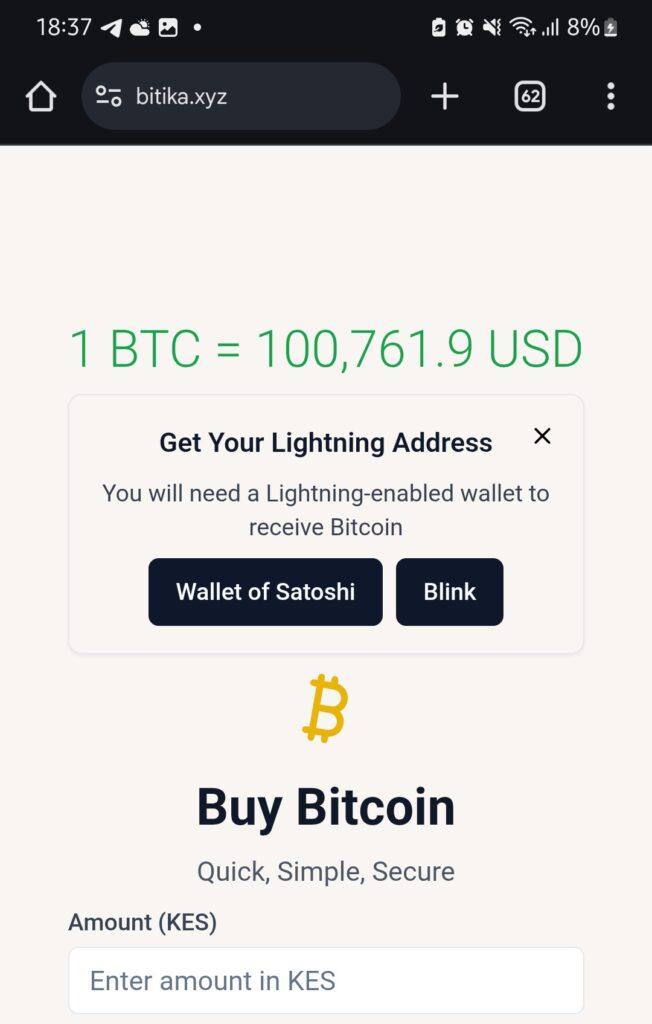
Community and Overcoming Challenges
- What challenges has Bitika faced navigating Kenya’s bitcoin regulations, and how do you build trust with regulators?
Regulation is still evolving here. Parliament has drafted bills, but none have been passed into law yet. We’re currently in a revision phase where policymakers are trying to strike a balance between encouraging innovation and protecting the public.
We focus on transparency and open dialogue—we believe that building trust with regulators starts with showing how bitcoin can serve the public good.
- What was the toughest obstacle in building Bitika, and how did you overcome it?
Liquidity. Since we don’t have deep capital reserves, we often run into situations where we have to pause operations often to manually restock our bitcoin supply. It’s frustrating—for us and for users. We’re working on automating this process and securing funding to maintain consistent liquidity so users can access bitcoin at any time, without disruption.
This remains our most critical issue—and the primary reason we’re seeking support.
- Are you eyeing new African markets? What’s next for Bitika’s product?
Absolutely. The long-term vision is to expand Bitika into other African countries facing similar financial challenges. But first, we want to turn Bitika into a developer-first tool—infrastructure that others can build on. Imagine local apps, savings products, or financial tools built using Bitika’s simple bitcoin rails. That’s where we’re heading.
- What would you tell other African entrepreneurs aiming to disrupt traditional finance?
Disrupting finance sounds exciting—but the reality is messy. People fear what they don’t understand. That’s why simplicity is everything. Build tools that hide the complexity, and focus on making the user’s life easier. Most importantly, stay rooted in local context—solve problems people actually face.
What’s Next?
- What’s your message to Kenyans hesitant to try bitcoin, and to enthusiasts watching Bitika?
To my fellow Kenyans: bitcoin isn’t just an investment—it’s a sovereign tool. It’s money you truly own. Start small, learn, and ask questions.
To the bitcoin community: Bitika is proof that bitcoin is working in Africa. Let’s keep pushing. Let’s build tools that matter.
- How can the bitcoin community, both locally and globally, support Bitika’s mission?
We’re currently fundraising on Geyser. Support—whether it’s financial, technical, or simply sharing our story—goes a long way. Every sat you contribute helps us stay live, grow our liquidity, and continue building a tool that brings bitcoin closer to the everyday person in Africa.
Support here: https://geyser.fund/project/bitika
-
 @ cae03c48:2a7d6671
2025-05-31 16:00:29
@ cae03c48:2a7d6671
2025-05-31 16:00:29Bitcoin Magazine
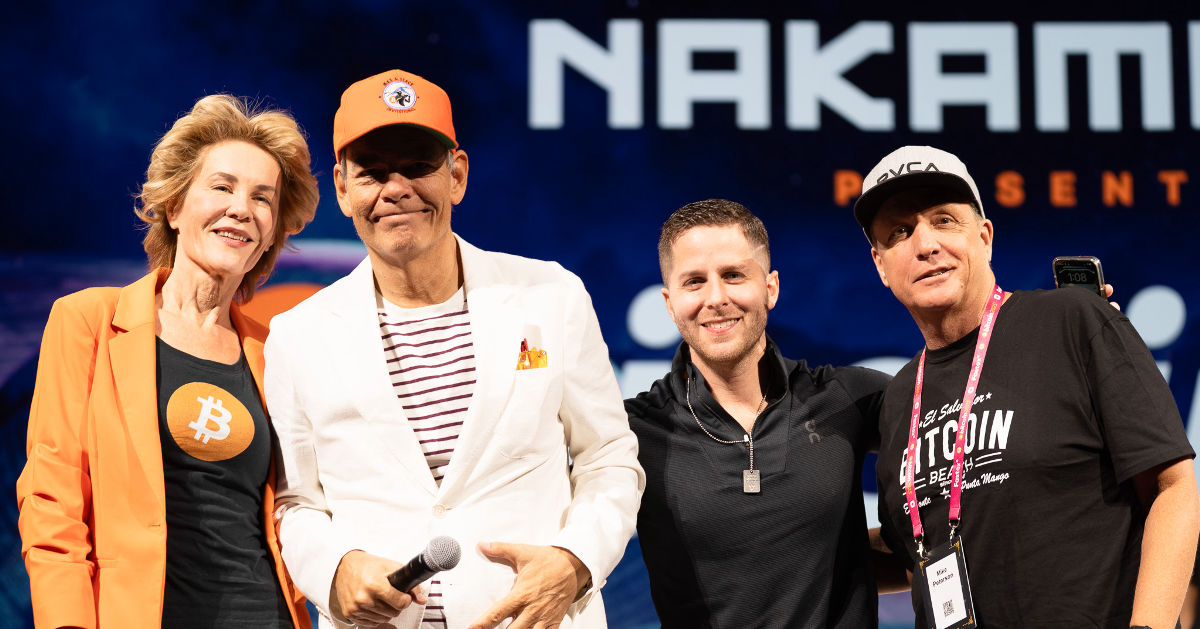
Panama City Mayor Mizrachi: “Bitcoin Is Not Just Safe, It’s Prosperous”At the 2025 Bitcoin Conference in Las Vegas, the Director of Bitcoin Beach Mike Peterson, the Presidential Advisors of Building Bitcoin Country El Salvador Max & Stacy and the Mayor City of Panama Mayer Mizrachi discussed Bitcoins future in Panama.
At the beginning of the panel, Is Panama Next? El Salvador Leading The Region For Bitcoin Adoption, Mayor Mizrachi started by mentioning, “We accept Bitcoin. The city gets paid in Bitcoin, but it receives in dollars through an intermediary processing, payments processor. Bitcoin is not just safe. It’s prosperous.”
Max commented about the scammers in crypto and how El Salvador is managing it.
“We did a couple of things early on, one was to create The Bitcoin Office which will be directly reporting to the President, and then also we passed a law which will say bitcoin is money and everything else is an unregistered security,” said Max.
Mike Peterson stated, “the access of Bitcoin in Central America to do battle against the globalists that have always looked at the regionist back yard. This is intolerable and this is going to change right now.” After Mizrachi commented, “Imagine yourself in an economic block powered by El Salvador, supported by Panama and the rest will come.”
Stacy reminded everybody about El Salvador’s School system.
“El Salvador is the first country in the world to have a comprehensive public school financial literacy education program from 7 years old,” mentioned Stacy. “These are little kids, learning financial literacy.”
Max ended the panel by saying, “the US game theory right? Because the US wants to buy a lot of Bitcoin, so if Panama wants to buy a lot of bitcoin then it helps everybody in the US. This is the beautiful expression of game theory perfectly aligned in the protocol that is changing the world that we live in. And on the street level what bitcoin does to the population is to go from a spending mentality to a saving mentality.”
You can watch the full panel discussion and the rest of the Bitcoin 2025 Conference Day 3 below:
This post Panama City Mayor Mizrachi: “Bitcoin Is Not Just Safe, It’s Prosperous” first appeared on Bitcoin Magazine and is written by Oscar Zarraga Perez.
-
 @ cae03c48:2a7d6671
2025-05-31 16:00:29
@ cae03c48:2a7d6671
2025-05-31 16:00:29Bitcoin Magazine
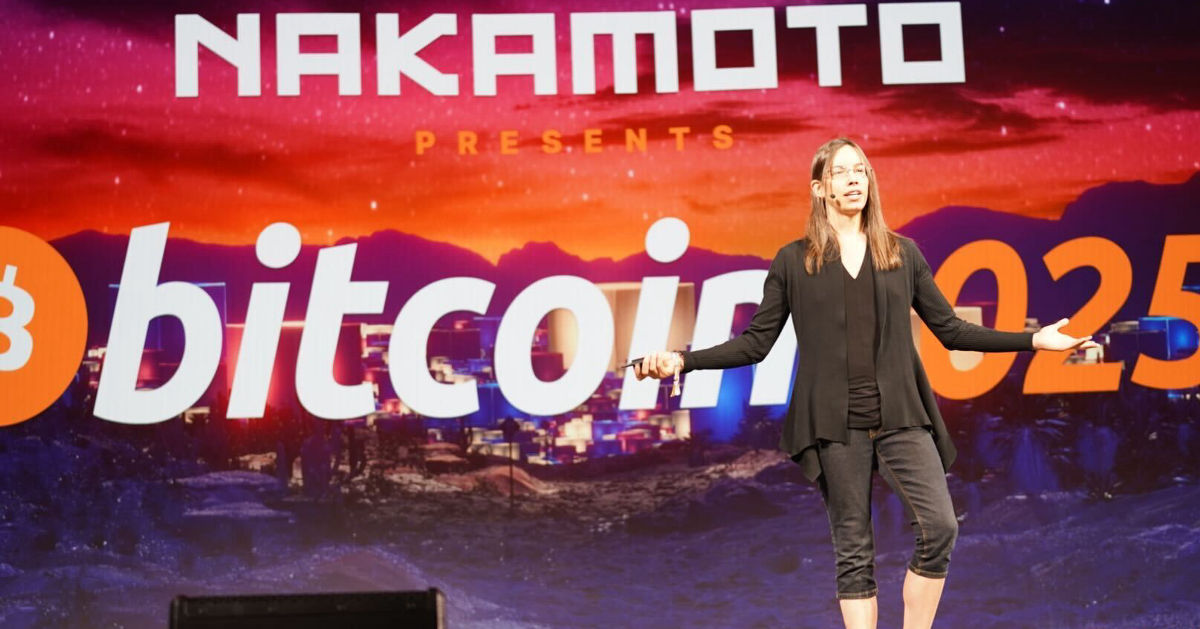
The Debt Train Has No Brakes: Lyn Alden Makes the Case for BTC at Bitcoin 2025“Nothing stops this train,” Lyn Alden initially stated at Bitcoin 2025, walking the audience through a data-rich presentation that made one thing clear: the U.S. fiscal system is out of control—and Bitcoin is more necessary than ever.
Her first chart, sourced from the Federal Reserve’s FRED database, displayed a stark decoupling: the unemployment rate is down, yet the fiscal deficit has surged past 7% of GDP. “This started around 2017, went into overdrive during the pandemic, and hasn’t corrected,” Alden said. “That’s not normal. We’re in a new era.”

She didn’t mince words. “Nothing stops this train because there are no brakes attached to it anymore. The brakes are heavily impaired.

Why should Bitcoiners care? Because, as Alden explained, “it matters for asset prices—especially anything scarce.” She displayed a gold vs. real rates chart that showed gold soaring as real interest rates plunged. “Five years ago, most would have said Bitcoin couldn’t thrive in a high-rate environment. Yet here we are—Bitcoin over $100K, gold at new highs, and banks breaking under pressure.”
Next came what she called “The Turning Point”—a side-by-side showing how public debt growth overtook private sector debt post-2008, flipping a decades-long norm. “This is inflationary, persistent, and it means the Fed can’t slow things down anymore.”

Another chart revealed why rising interest rates are now accelerating the deficit. “They’ve lost their brakes. Raising rates just makes the federal interest bill explode faster than it slows bank lending.”
Alden called it a ponzi: “The system is built on constant growth. Like a shark, it dies if it stops swimming.”
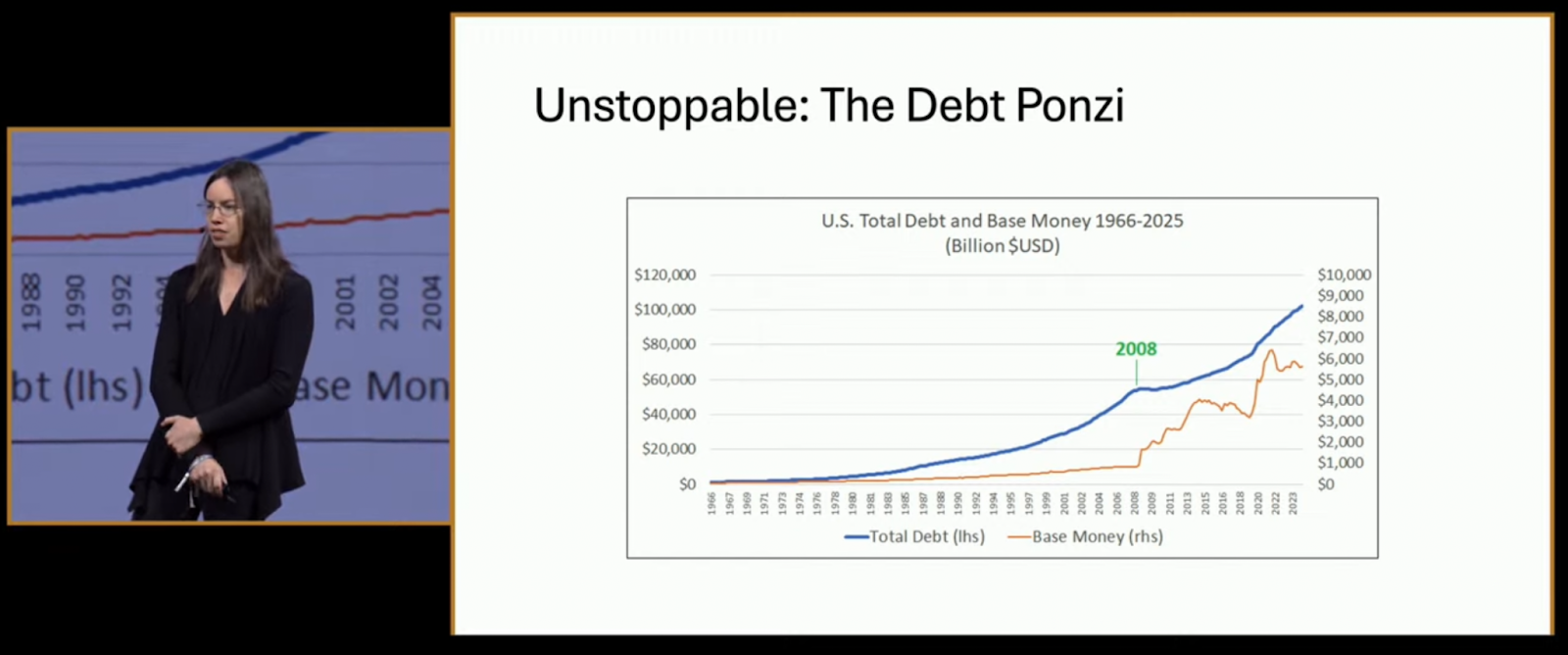
Her slide showed a relentless rise in total debt versus base money—except for a jolt in 2008, and again after 2020. “This isn’t going backward. Ever.”
So why Bitcoin? “Because it’s the opposite. Scarce, decentralized, and mathematically capped,” Alden concluded. “There are two reasons nothing stops this train: math and human nature. Bitcoin is the mirror of this system—and the best protection from it.”
You can watch the full panel discussion and the rest of the Bitcoin 2025 Conference Day 3 below:
This post The Debt Train Has No Brakes: Lyn Alden Makes the Case for BTC at Bitcoin 2025 first appeared on Bitcoin Magazine and is written by Jenna Montgomery.
-
 @ cae03c48:2a7d6671
2025-05-31 16:00:28
@ cae03c48:2a7d6671
2025-05-31 16:00:28Bitcoin Magazine

Jack Mallers Announced A New System of Bitcoin Backed Loans at StrikeThe Founder and CEO of Strike, Jack Mallers, at the 2025 Bitcoin Conference in Las Vegas, announced a new system of Bitcoin backed loans at Strike with one digit interest rate.
Jack Mallers began his keynote by pointing at the biggest problem. Fiat currency.
“The best time to go to Whole Foods and buy eggs with your dollars was 1913,” said Mallers. “Every other time after, you are getting screwed.”
What’s the solution?
“The solution is Bitcoin,” stated Mallers. “Bitcoin is the money that we coincide that nobody can print. You can’t print, you can’t debase my time and energy, you cannot deprive me of owning assets, of getting out of debt, of living sovereignly and protecting my future, my family, my priced possessions. Bitcoin is what we invented to do that.”
Mallers gave a power message to the audience by explaining that people should HODL every dollar they have in Bitcoin. People should also spend a little of it to have a nice life.
“You can’t HODL forever,” said Jack.
While talking about loans that people borrow against their Bitcoin. He explained why he thinks banks putting 20% in interest for loans backed with Bitcoin is outrageous.
“All these professional economists, they are like Bitcoin is risky and volatile,” stated Mallers. “No it’s not. This is the magnificent 7 one year volatility and the orange one in the middle is Bitcoin. It’s no more risky and volatile. It’s a little bit more volatile than Apple, but is far less more volatile than Tesla.”
“As Bitcoin matures, its volatility goes down,” continued Jack. “Bitcoin volatility is at a point where it is no more risky than a Tesla Stock. We should not be paying double digits rates for a loan.”
Mallers announced his new system of loans at Strike of 9-13% in interest rates. It will allow people to get loans from $10,000 to $1 billion.
Mallers closed by saying, “please be responsible. This is debt. Debt is like fire in my opinion. It can heat a civilization. It can warm your home, but if you go too crazy it can burn your house down.”
“Life is short,” said Jack. “Take the trip, but with bitcoin you just get to take a better one.”
This post Jack Mallers Announced A New System of Bitcoin Backed Loans at Strike first appeared on Bitcoin Magazine and is written by Oscar Zarraga Perez.
-
 @ cae03c48:2a7d6671
2025-05-31 16:00:27
@ cae03c48:2a7d6671
2025-05-31 16:00:27Bitcoin Magazine

Michael Saylor Presents The 21 Ways to Wealth at Bitcoin 2025Michael Saylor, Executive Chairman of Strategy, took the stage at Bitcoin 2025 delivering a keynote titled “21 Ways to Wealth.” He stated: “This speech is for you. I’ve traveled the world and told countries, institutional investors, and even the disembodied spirits of our children’s children why they need Bitcoin. This is for every individual, every family, every small business. It’s for everybody.”
He began with clarity. “The first way to wealth is clarity,” he said. “Clarity comes the moment you realize Bitcoin is capital—perfected capital, programmable capital, incorruptible capital.” For Saylor, every thoughtful individual on Earth will ultimately seek such pristine capital, and every AI system will prefer it as well.
The second path is conviction. Bitcoin, he said, will appreciate faster than every other asset, because it’s engineered for performance. “It’s going to grow faster than real estate or collectibles. It is the most efficient store of value in human history.”
The third way is courage. “If you’re going to get rich on Bitcoin, you need courage,” he warned. “Wealth favors those who embrace intelligent monetary risk. Some people will get left behind. Others will juggle it. But the bold will feed the fire—sell your bonds, buy Bitcoin. An extraordinary explosion of value is coming.”
Fourth comes cooperation. “You are more powerful if you have the full support of your family. Your children have time and potential. The secret is transferring capital into their hands. Families that move in unity are unstoppable.”
The fifth is capability. “Master AI,” he said. “In 2025, everything you can imagine is at your fingertips—wisdom, analysis, creativity. Ask AI, argue with it, use it. You can become a super genius. Don’t put your ego first—put your interests first. Your family will thank you.”
Saylor’s sixth way to wealth is composition: construct legal entities that scale your strategy and protect your assets. “Ask the AI and figure it out. You can work hard, or you can work smart. This year, everyone should be operating like the most sophisticated millionaire family office.”
The seventh is citizenship. Choose your economic nexus carefully—“domicile where sovereignty respects your freedom,” he said. “This isn’t just about this year—it’s about this century.”
Eighth is civility. “Respect the natural power structures of the world. Respect the force of nature,” he explained. “If you want to generate wealth in the Bitcoin universe, don’t fight unnecessarily. Find common ground. Inflation and distraction are your enemies.”
Ninth is corporation. “A well-structured corporation is the most powerful wealth engine on Earth. Families are powerful. Partnerships are even more powerful. But corporations can scale globally. What is your vehicle? What is your path?”
The tenth way is focus. “Just because you can do a thing doesn’t mean you should,” he warned. “If you invest in Bitcoin, there’s a 90% chance it will succeed over five years. Don’t confuse ambition with accomplishment. Come up with a strategy—and stick to it.”
The eleventh is equity. “Share your opportunities with investors who will share your risk,” he said, pointing to MicroStrategy’s own rise from $10 million to a $5 billion market cap by aligning with equity partners who believed in the Bitcoin mission.
The twelfth is credit. “There are people in the world who are afraid of the future—they want small yield, certainty. Offer that. Give creditors security in return for capital. Convert their fear into fuel and turn risk into yield by investing in Bitcoin.”
The thirteenth is compliance. “Create the best company you can within the rules of your market. Learn the rules of the road. If you know them, you can drive faster. You can scale legally and sustainably.”
The fourteenth way is capitalization. “Velocity compounds wealth,” Saylor said. “Raise and reinvest capital as fast and as often as you can. The faster your money moves into productive Bitcoin strategies, the more it multiplies.”
Fifteenth is communication. “Speak with candor. Act with transparency. And repeat your message often,” he urged. “Creating wealth with Bitcoin is simple—but only if people understand what you’re doing and why you’re doing it.”
Sixteenth is commitment. “Don’t allow yourself to be distracted,” he said. “Don’t chase your own ideas. Don’t feed the trolls. Stay committed to Bitcoin. It’s the greatest idea in the world. The world probably doesn’t care what you think—but it will care when you win.”
The Seventeenth way is competence. “You’re not competing with noise—you’re competing with someone who is laser-focused, who executes flawlessly,” he said. “You must deliver consistent, precise, and reliable performance. That’s how you win.”
The Eighteenth is adaptation. “Circumstances change. Every structure you trust today will eventually fail. A wise person is prepared to abandon their baggage and adjust plans when needed. Rigidity is ruin.”
Nineteenth is evolution. “Build on your core strengths. You don’t need to start over—you need to level up. Leverage what you already do best, and expand it through Bitcoin and advanced technologies.”
Twentieth is advocacy. “Inspire others to walk the Bitcoin path,” he said. “Become an evangelist for economic freedom. Show others what this revolution really means. Show them the way.”
Finally, the twenty-first way is generosity. “When you’re successful—and you will be successful—spread happiness. Share security. Deliver hope. That light inside you will shine. And others will be drawn to it.”
As he ended, Saylor smiled and quoted the very origin of it all:
“It might make sense to get some, in case it catches on.” – Satoshi.
In Michael Saylor’s worldview, Bitcoin is not a get-rich-quick scheme—it’s the ultimate long-term play. It is the foundation of generational wealth, the engine of personal and institutional freedom, and the tool for those bold enough to lead humanity into a more sovereign, secure future.
You can watch the full panel discussion and the rest of the Bitcoin 2025 Conference Day 3 below:
This post Michael Saylor Presents The 21 Ways to Wealth at Bitcoin 2025 first appeared on Bitcoin Magazine and is written by Jenna Montgomery.
-
 @ cae03c48:2a7d6671
2025-05-31 16:00:26
@ cae03c48:2a7d6671
2025-05-31 16:00:26Bitcoin Magazine

Bitcoin Builders Exist Because Of UsersBuilder: Nicholas Gregory
Language(s): C++, Rust
Contribute(s/ed) To: Ocean Sidechain, Mainstay, Mercury Wallet, Mercury Layer
Work(s/ed) At: CommerceBlock (formerly)
Prior to Bitcoin, Nicholas was a software developer working in the financial system for banking firms developing trading and derivatives platforms. After the 2008 financial crisis he began to consider alternatives to the legacy financial system in the fallout.
Like many from that time, he completely ignored the original Slashdot article featuring the Bitcoin whitepaper due to the apparent focus on Windows as an application platform (Nicholas was a UNIX/Linux developer). Thankfully someone he knew introduced him to Bitcoin later on.
The thing that captured his interest about Bitcoin rather than other alternatives at the time was its specific architecture as a distributed computer network.
“The fact that it was like an alternative way. It was all based around [a] kind of […] network. And what I mean by that, building financial systems, people always wanted a system that was 24-7.
And how do you deal with someone interacting [with] it in different geographical parts of the world without it being centralized?
And I’d seen various ways of people solving that problem, but it never had been done, you know, in a kind of […] scalable solution. And using […] cryptography and proof of work to solve that issue was just weird, to be honest. It was totally weird for me.”
All of the other systems he had designed, and some that he built, were systems distributed across multiple parts of the world. Unlike Bitcoin however, these systems were permissioned and restricted who could update the relevant database(s) despite that fact that copies of them were redundantly distributed globally.
“The fact that in Bitcoin you had everyone kind of doing this proof of work game, which is what it is. And whoever wins does the [database] write. That mess[ed] with my head. That was […] very unique.”
Beginning To Build
Nicholas’s path to building in the space was an organic one. At the time he was living in New York City, and being a developer he of course found the original Bitdevs founded in NYC. Back then meetups were incredibly small, sometimes even less than a dozen people, so the environment was much more conducive to in-depth conversations than some larger meetups these days.
He first began building a “hobbyist” Over The Counter (OTC) trading software stack for some people (back then a very significant volume of bitcoin was traded OTC for cash or other fiat mediums). From here Nicholas and Omar Shibli, whom he met at Bitdevs, worked together on Pay To Contract (BIP 175).
BIP 175 specifies a scheme where a customer purchasing a good participates in generating the address the merchant provides. This is done by the two first agreeing on a contract describing what is being paid for, afterwards the merchant sends a master public key to the consumer, who uses the hash of that description of the item or service to generate an individual address using the hash and master public key.
This allows the customer to prove what the merchant agreed to sell them, and that the payment for the good or service has been made. Simply publishing the master public key and contract allows any third party to generate the address that was paid, and verify that the appropriate amount of funds were sent there.
Ocean and Mainstay
Nicholas and Omar went on to found CommerceBlock, a Bitcoin infrastructure company. Commerceblock took a similar approach to business as Blockstream, building technological platforms to facilitate the use of Bitcoin and blockchains in general in commerce and finance. Shortly afterwards Nicholas met Tom Trevethan who came on board.
“I met Tom via, yeah, a mutual friend, happy to say who it is. There’s a guy called, who, new people probably don’t know who he is, but OGs do, John Matonis. John Matonis was a good friend of mine, [I’d] known him for a while. He introduced me to Tom, who was, you know, kind of more on the cryptography side. And it kind of went from there.”
The first major project they worked on was Ocean, a fork of the Elements sidechain platform developed by Blockstream that the Liquid sidechain was based on. The companies CoinShares and Blockchain in partnership with others launched an Ocean based sidechain in 2019 to issue DGLD, a gold backed digital token.
“So we, you know, we were working on forks of Elements, doing bespoke sidechains. […] Tom had some ideas around cryptography. And I think one of our first ideas was about how to bolt on these forks of Elements onto […] the Bitcoin main chain. […] We thought the cleanest way to do that was […] using some sort of, I can’t remember, but it was something [based on] single-use sealed sets, which was an invention by Peter Todd. And I think we implemented that fairly well with Mainstay.”
The main distinction between Ocean and Liquid as a sidechain platform is Ocean’s use of a protocol designed at Commerceblock called Mainstay. Mainstay is a timestamping protocol that, unlike Opentimestamps, strictly orders the merkle tree it builds instead of randomly adding items in whatever order they are submitted in. This allows each sidechain to timestamp its current blockheight into the Bitcoin blockchain everytime mainchain miners find a block.
While this is useless for any bitcoin pegged into the sidechain, for regulated real world assets (RWA), this provides a singular history of ownership that even the federation operating the sidechain cannot change. This removes ambiguity of ownership during legal disputes.
When asked about the eventually shuttering of the project, Nicholas had this to say:
“I don’t know if we were early, but we had a few clients. But it was, yeah, there wasn’t much adoption. I mean, Liquid wasn’t doing amazing. And, you know, being based in London/Europe, whenever we met clients to do POCs, we were competing against other well-funded projects.
It shows how many years ago they’d either received money from people like IBM or some of the big consultancies and were promoting Hyperledger. Or it was the days when we would be competing against EOS and Tezos. So because we were like a company that needed money to build prototypes or build sidechains, it kind of made it very hard. And back then there wasn’t much adoption.”
Mercury Wallet and Mercury Layer
After shutting down Ocean, Nicholas and Tom eventually began working on a statechain implementation, though the path to this was not straightforward.
“[T]here were a few things happening at the same time that led to it. So the two things were we were involved in a [proof of concept], a very small […]POC for like a potential client. But this rolled around Discreet Log Contracts. And one of the challenges of Discreet Log Contracts, they’re very capital inefficient. So we wanted a way to novate those contracts. And it just so happened that Ruben Sampson, you know, wrote this kind of white paper/Medium post about statechains. And […] those two ideas, that kind of solved potentially that issue around DLCs.”
In the end they did not wind up deploying a statechain solution for managing DLCs, but went in a different direction.
Well, there was another thing happening at the same time, coinswaps. And, yeah, bear in mind, in those days, everyone worried that by […] 2024/2025 […] network fees could be pretty high. And to do […] coin swaps, you kind of want to do multiple rounds. So […] state chains felt perfect because […] you basically take a UTXO, you put it off the chain, and then you can swap it as much as you want.”
Mercury Wallet was fully built out and functional, but sadly never gained any user adoption. Samourai Wallet and Wasabi Wallet at the time dominated the privacy tool ecosystem, and Mercury Wallet was never able to successfully take a bite out of the market.
Rather than completely give up, they went back to the drawing board to build a statechain variant using Schnorr with the coordinator server blind signing, meaning it could not see what it was signing. When asked why those changes were made, he had this to say: “That would give us a lot more flexibility to do other things in Bitcoin with L2s. You know, the moment you have a blinded solution, we thought, well, this could start having interoperability with Lightning.”
Rather than building a user facing wallet this time, they built out a Software Development Kit (SDK) that could be integrated with other wallets.
“{…] I guess with Mercury Layer, it was very much building a kind of […] full-fledged Layer 2 that anyone could use. So we [built] it as an SDK. We did have a default wallet that people could run. But we were hoping that other people would integrate it.”
The End of CommerceBlock
In the end, CommerceBlock shuttered its doors after many years of brilliant engineering work. Nicholas and the rest of the team built numerous systems and protocols that were very well engineered, but at the end of the day they seemed to always be one step ahead of the curve. That’s not necessarily a good thing when it comes to building systems for end users.
If your work is too far ahead of the demand from users, then in the end that isn’t a sustainable strategy.
“…being in the UK, which is not doing that well from a regulatory point of view, played into it. If I
-
 @ cae03c48:2a7d6671
2025-05-31 16:00:25
@ cae03c48:2a7d6671
2025-05-31 16:00:25Bitcoin Magazine
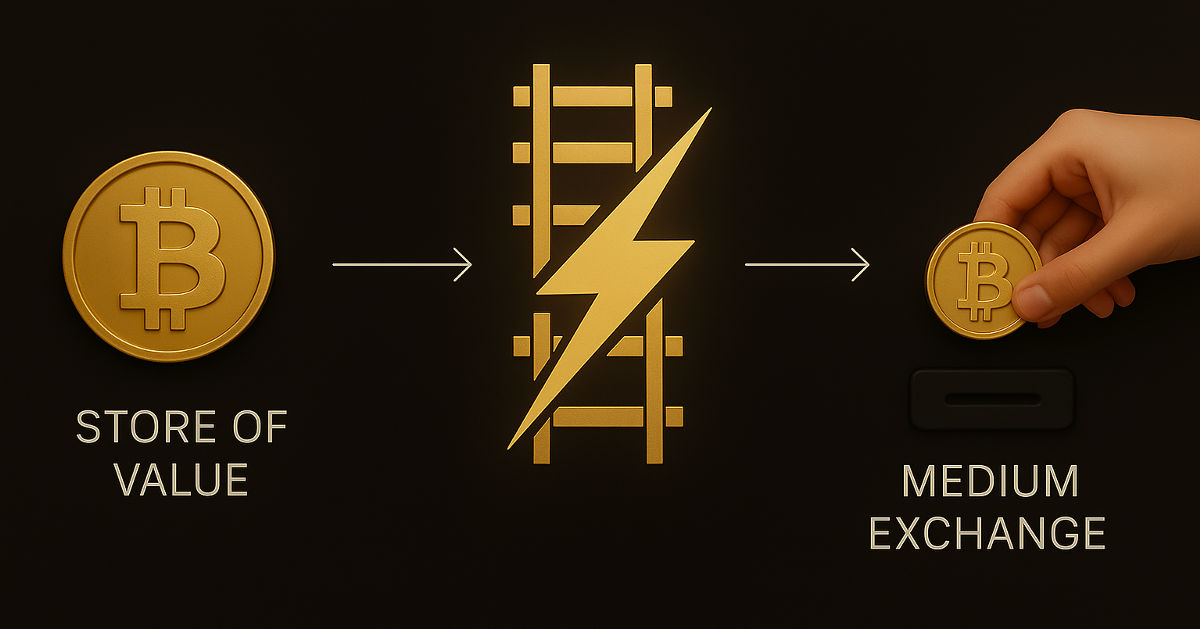
Amboss Launches Rails, a Self-Custodial Bitcoin Yield ServiceAmboss, a leader in AI-driven solutions for the Bitcoin Lightning Network, today announced Rails, a groundbreaking self-custodial Bitcoin yield service. According to a press release sent to Bitcoin Magazine, it’s designed to empower companies, custodians, and high net worth individuals. This allows participants to earn a yield on their Bitcoin.
Big news from @TheBitcoinConf !
We’re thrilled to announce Rails—a self-custodial Bitcoin yield service that empowers you to earn on your BTC while supercharging the Lightning Network.Let’s bring Bitcoin to the World.https://t.co/3WYYvB95hP
— AMBOSS
 (@ambosstech) May 29, 2025
(@ambosstech) May 29, 2025Rails also launched a secure way for Liquidity Providers (LPs) to hold all custody of their Bitcoin while generating returns from liquidity leases and payment routing, although they are not guaranteed. The implementation of Amboss’ AI technology, Rails strengthened their Lighting Network with more dependable transactions and larger payment volumes.
“Rails is a transformative force for the Lightning Network,” said the CEO and Co-Founder of Amboss Jesse Shrader. “It’s not just about yield—it’s about enabling businesses to strengthen the network while earning on their Bitcoin. This is a critical step in Bitcoin’s evolution as a global medium of exchange.”
The service offers two options:
- Rails LP is designed for high net worth individuals, custodians, and companies with Bitcoin treasuries, requiring a minimum commitment of 1 BTC for one year.
- Liquidity subscriptions are designed for businesses that receive Bitcoin payments, with fees starting at 0.5%.
Amboss partnered with CoinCorner and Flux (a joint venture between Axiom and CoinCorner), to bring Rails to the market. CoinCorner has incorporated it into both its exchange platform and daily payment services in the Isle of Man. Flux is jointly focused on advancing the Lightning Network’s presence in global payments. Their participation highlights growing industry trust in Rails as a tool to scale Bitcoin effectively.
“Rails offers a practical way for businesses like ours to participate in the Lightning Network’s growth,” said the CFO of CoinCorner David Boylan. “We’ve been using the Lightning Network for years, and Rails provides a structured approach to engaging with its economy, particularly through liquidity leasing and payment routing. This aligns with our goal of making Bitcoin more accessible and practical for everyday use.”
This post Amboss Launches Rails, a Self-Custodial Bitcoin Yield Service first appeared on Bitcoin Magazine and is written by Oscar Zarraga Perez.
-
 @ 2cde0e02:180a96b9
2025-05-31 15:06:26
@ 2cde0e02:180a96b9
2025-05-31 15:06:26https://stacker.news/items/993562
-
 @ 7f6db517:a4931eda
2025-05-31 15:01:42
@ 7f6db517:a4931eda
2025-05-31 15:01:42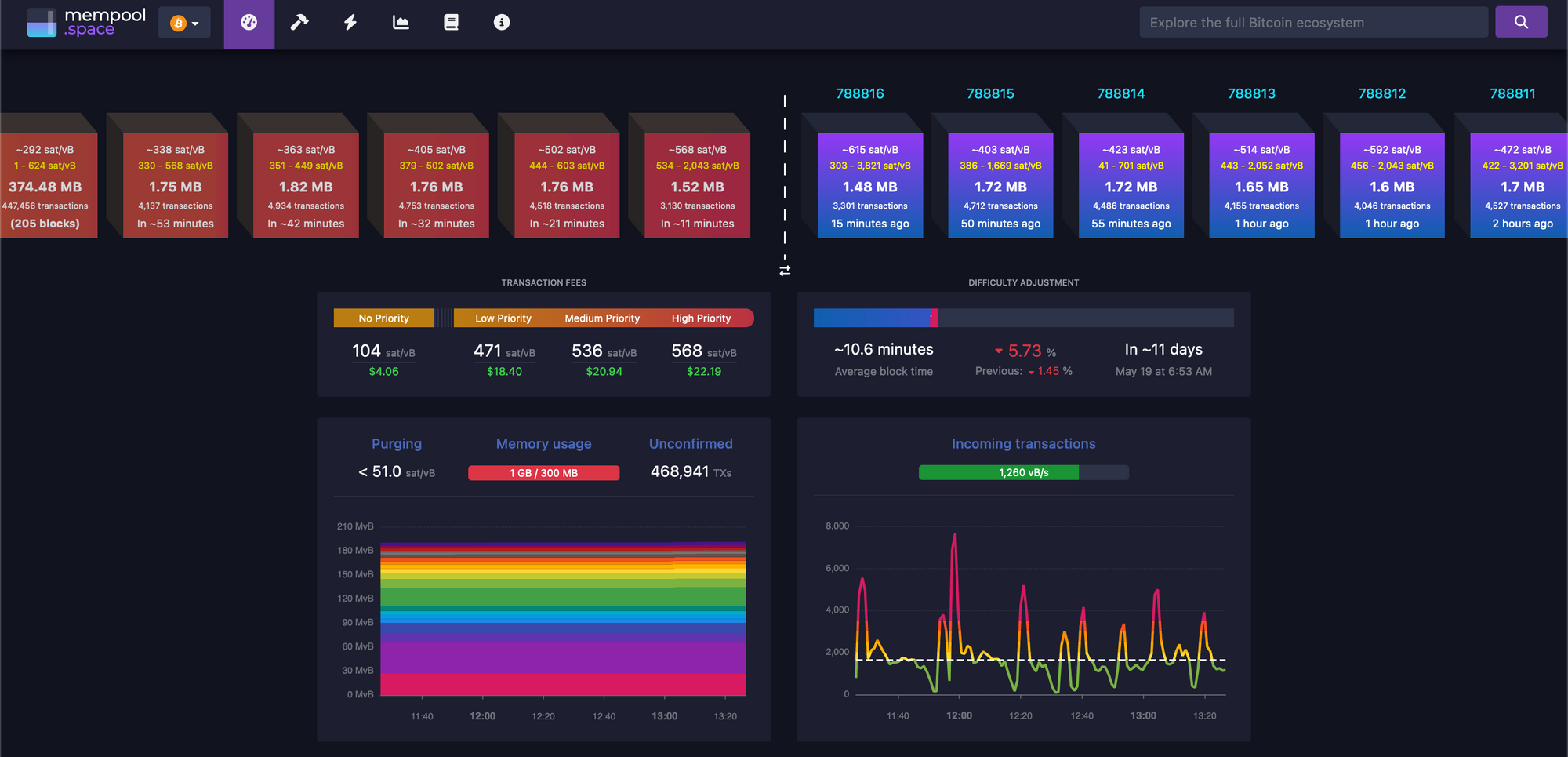
There must be a limit to how much data is transferred across the bitcoin network in order to keep the ability to run and use your own node accessible. A node is required to interact with the global bitcoin network - if you do not use your own node then you must trust someone else's node. If nodes become inaccessible to run then the network will centralize around the remaining entities that operate them - threatening the censorship resistance at the core of bitcoin's value prop. The bitcoin protocol uses three main mechanisms to keep node operation costs low - a fixed limit on the amount of data in each block, an automatic difficulty adjustment that regulates how many blocks are produced based on current mining hash rate, and a robust dynamic transaction fee market.
Bitcoin transaction fees limit network abuse by making usage expensive. There is a cost to every transaction, set by a dynamic free market based on demand for scarce block space. It is an incredibly robust way to prevent spam without relying on centralized entities that can be corrupted or pressured.
After the 2017 bitcoin fee spike we had six years of relative quiet to build tools that would be robust in a sustained high fee market. Fortunately our tools are significantly better now but many still need improvement. Most of the pain points we see today will be mitigated.
The reality is we were never going to be fully prepared - pressure is needed to show the pain points and provide strong incentives to mitigate them.
It will be incredibly interesting to watch how projects adapt under pressure. Optimistic we see great innovation here.
_If you are willing to wait for your transaction to confirm you can pay significantly lower fees. Learn best practices for reducing your fee burden here.
My guide for running and using your own bitcoin node can be found here._
If you found this post helpful support my work with bitcoin.

-
 @ 7f6db517:a4931eda
2025-05-31 15:01:41
@ 7f6db517:a4931eda
2025-05-31 15:01:41
Nostr is an open communication protocol that can be used to send messages across a distributed set of relays in a censorship resistant and robust way.
If you missed my nostr introduction post you can find it here. My nostr account can be found here.
We are nearly at the point that if something interesting is posted on a centralized social platform it will usually be posted by someone to nostr.
We are nearly at the point that if something interesting is posted exclusively to nostr it is cross posted by someone to various centralized social platforms.
We are nearly at the point that you can recommend a cross platform app that users can install and easily onboard without additional guides or resources.
As companies continue to build walls around their centralized platforms nostr posts will be the easiest to cross reference and verify - as companies continue to censor their users nostr is the best censorship resistant alternative - gradually then suddenly nostr will become the standard. 🫡
Current Nostr Stats
If you found this post helpful support my work with bitcoin.

-
 @ dfa02707:41ca50e3
2025-05-31 15:01:40
@ dfa02707:41ca50e3
2025-05-31 15:01:40Contribute to keep No Bullshit Bitcoin news going.
- The latest firmware updates for COLDCARD devices introduce two major features: COLDCARD Co-sign (CCC) and Key Teleport between two COLDCARD Q devices using QR codes and/or NFC with a website.

What's new
- COLDCARD Co-Sign: When CCC is enabled, a second seed called the Spending Policy Key (Key C) is added to the device. This seed works with the device's Main Seed and one or more additional XPUBs (Backup Keys) to form 2-of-N multisig wallets.
- The spending policy functions like a hardware security module (HSM), enforcing rules such as magnitude and velocity limits, address whitelisting, and 2FA authentication to protect funds while maintaining flexibility and control, and is enforced each time the Spending Policy Key is used for signing.
- When spending conditions are met, the COLDCARD signs the partially signed bitcoin transaction (PSBT) with the Main Seed and Spending Policy Key for fund access. Once configured, the Spending Policy Key is required to view or change the policy, and violations are denied without explanation.
"You can override the spending policy at any time by signing with either a Backup Key and the Main Seed or two Backup Keys, depending on the number of keys (N) in the multisig."
-
A step-by-step guide for setting up CCC is available here.
-
Key Teleport for Q devices allows users to securely transfer sensitive data such as seed phrases (words, xprv), secure notes and passwords, and PSBTs for multisig. It uses QR codes or NFC, along with a helper website, to ensure reliable transmission, keeping your sensitive data protected throughout the process.
- For more technical details, see the protocol spec.
"After you sign a multisig PSBT, you have option to “Key Teleport” the PSBT file to any one of the other signers in the wallet. We already have a shared pubkey with them, so the process is simple and does not require any action on their part in advance. Plus, starting in this firmware release, COLDCARD can finalize multisig transactions, so the last signer can publish the signed transaction via PushTX (NFC tap) to get it on the blockchain directly."
- Multisig transactions are finalized when sufficiently signed. It streamlines the use of PushTX with multisig wallets.
- Signing artifacts re-export to various media. Users are now provided with the capability to export signing products, like transactions or PSBTs, to alternative media rather than the original source. For example, if a PSBT is received through a QR code, it can be signed and saved onto an SD card if needed.
- Multisig export files are signed now. Public keys are encoded as P2PKH address for all multisg signature exports. Learn more about it here.
- NFC export usability upgrade: NFC keeps exporting until CANCEL/X is pressed.
- Added Bitcoin Safe option to Export Wallet.
- 10% performance improvement in USB upload speed for large files.
- Q: Always choose the biggest possible display size for QR.
Fixes
- Do not allow change Main PIN to same value already used as Trick PIN, even if Trick PIN is hidden.
- Fix stuck progress bar under
Receiving...after a USB communications failure. - Showing derivation path in Address Explorer for root key (m) showed double slash (//).
- Can restore developer backup with custom password other than 12 words format.
- Virtual Disk auto mode ignores already signed PSBTs (with “-signed” in file name).
- Virtual Disk auto mode stuck on “Reading…” screen sometimes.
- Finalization of foreign inputs from partial signatures. Thanks Christian Uebber!
- Temporary seed from COLDCARD backup failed to load stored multisig wallets.
Destroy Seedalso removes all Trick PINs from SE2.Lock Down Seedrequires pressing confirm key (4) to execute.- Q only: Only BBQr is allowed to export Coldcard, Core, and pretty descriptor.
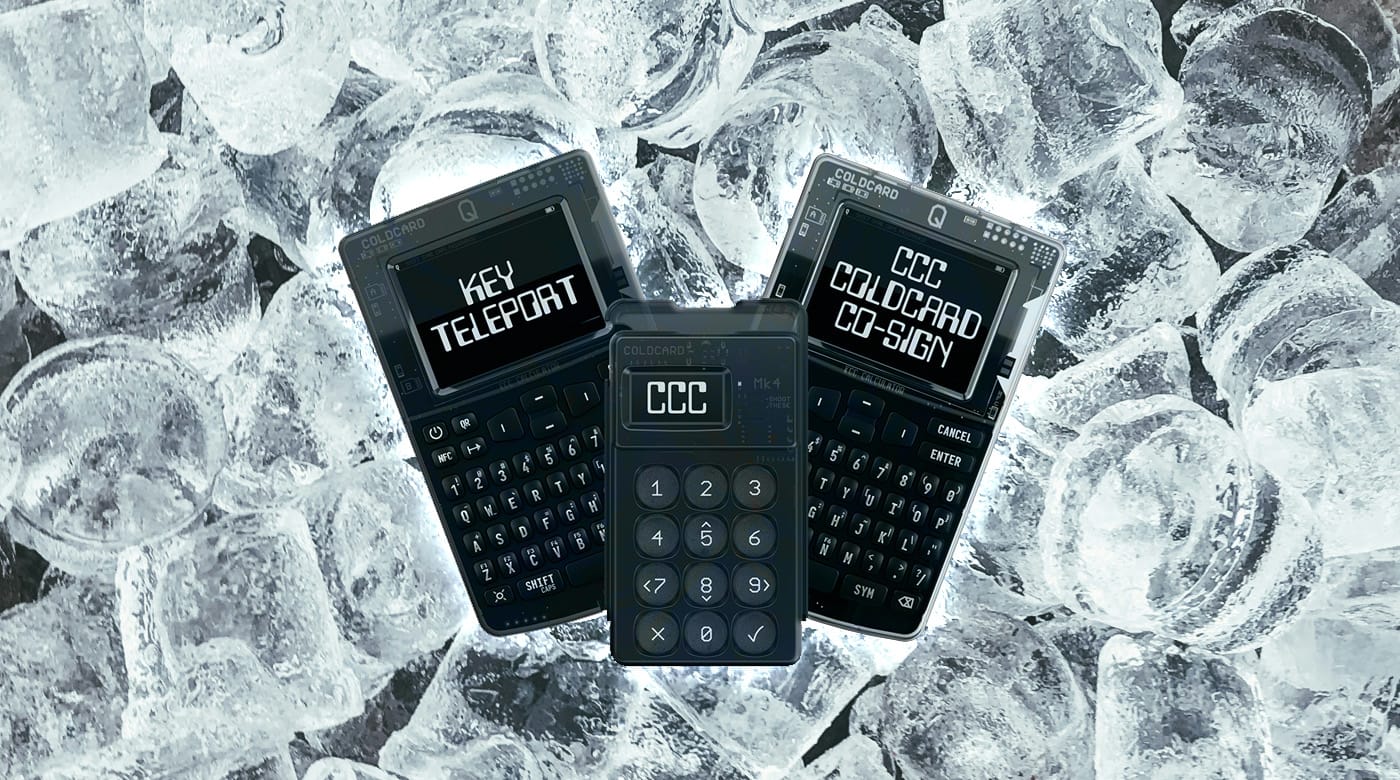
-
 @ dfa02707:41ca50e3
2025-05-31 15:01:37
@ dfa02707:41ca50e3
2025-05-31 15:01:37Contribute to keep No Bullshit Bitcoin news going.
- RoboSats v0.7.7-alpha is now available!
NOTE: "This version of clients is not compatible with older versions of coordinators. Coordinators must upgrade first, make sure you don't upgrade your client while this is marked as pre-release."
- This version brings a new and improved coordinators view with reviews signed both by the robot and the coordinator, adds market price sources in coordinator profiles, shows a correct warning for canceling non-taken orders after a payment attempt, adds Uzbek sum currency, and includes package library updates for coordinators.

Source: RoboSats.
- siggy47 is writing daily RoboSats activity reviews on stacker.news. Check them out here.
- Stay up-to-date with RoboSats on Nostr.
What's new
- New coordinators view (see the picture above).
- Available coordinator reviews signed by both the robot and the coordinator.
- Coordinators now display market price sources in their profiles.

Source: RoboSats.
- Fix for wrong message on cancel button when taking an order. Users are now warned if they try to cancel a non taken order after a payment attempt.
- Uzbek sum currency now available.
- For coordinators: library updates.
- Add docker frontend (#1861).
- Add order review token (#1869).
- Add UZS migration (#1875).
- Fixed tests review (#1878).
- Nostr pubkey for Robot (#1887).
New contributors
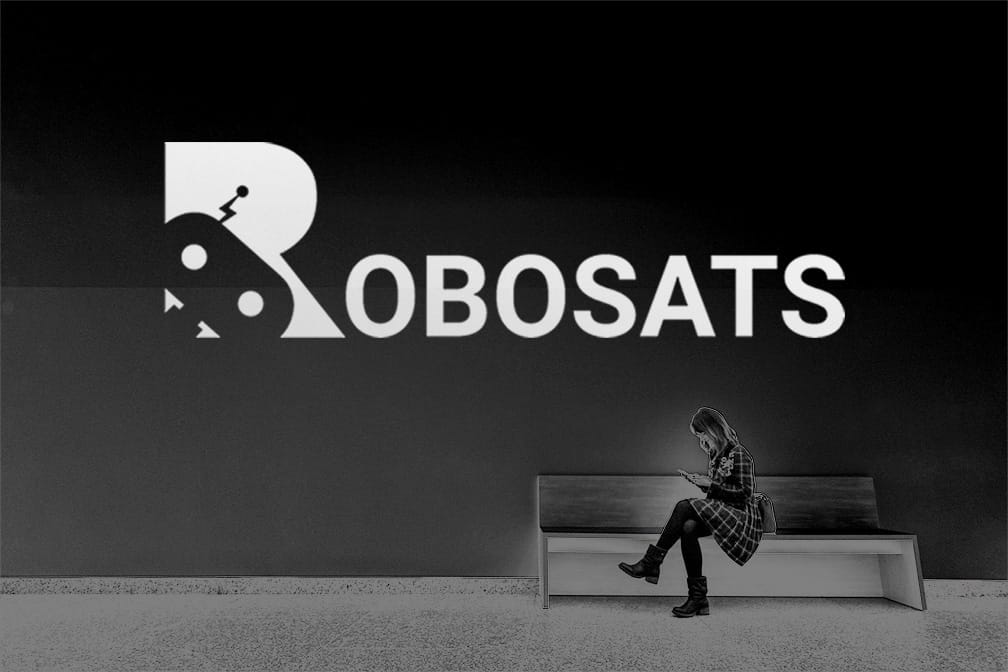
Full Changelog: v0.7.6-alpha...v0.7.7-alpha
-
 @ dfa02707:41ca50e3
2025-05-31 15:01:36
@ dfa02707:41ca50e3
2025-05-31 15:01:36Contribute to keep No Bullshit Bitcoin news going.
-
Version 1.3 of Bitcoin Safe introduces a redesigned interactive chart, quick receive feature, updated icons, a mempool preview window, support for Child Pays For Parent (CPFP) and testnet4, preconfigured testnet demo wallets, as well as various bug fixes and improvements.
-
Upcoming updates for Bitcoin Safe include Compact Block Filters.
"Compact Block Filters increase the network privacy dramatically, since you're not asking an electrum server to give you your transactions. They are a little slower than electrum servers. For a savings wallet like Bitcoin Safe this should be OK," writes the project's developer Andreas Griffin.
- Learn more about the current and upcoming features of Bitcoin Safe wallet here.
What's new in v1.3
- Redesign of Chart, Quick Receive, Icons, and Mempool Preview (by @design-rrr).
- Interactive chart. Clicking on it now jumps to transaction, and selected transactions are now highlighted.

- Speed up transactions with Child Pays For Parent (CPFP).
- BDK 1.2 (upgraded from 0.32).
- Testnet4 support.
- Preconfigured Testnet demo wallets.
- Cluster unconfirmed transactions so that parents/children are next to each other.
- Customizable columns for all tables (optional view: Txid, Address index, and more)
- Bug fixes and other improvements.
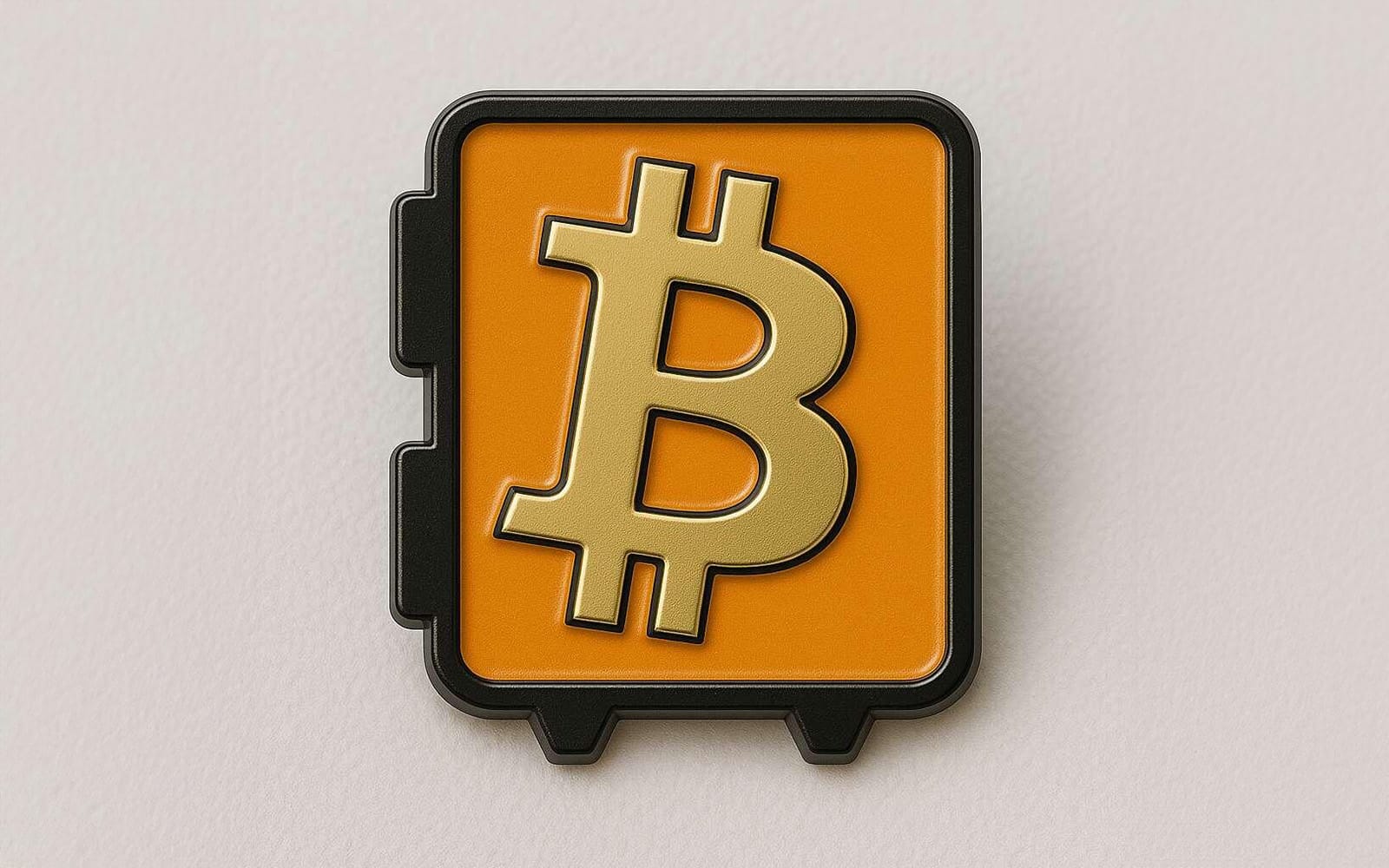
Announcement / Archive
Blog Post / Archive
GitHub Repo
Website -
-
 @ dfa02707:41ca50e3
2025-05-31 15:01:34
@ dfa02707:41ca50e3
2025-05-31 15:01:34Contribute to keep No Bullshit Bitcoin news going.
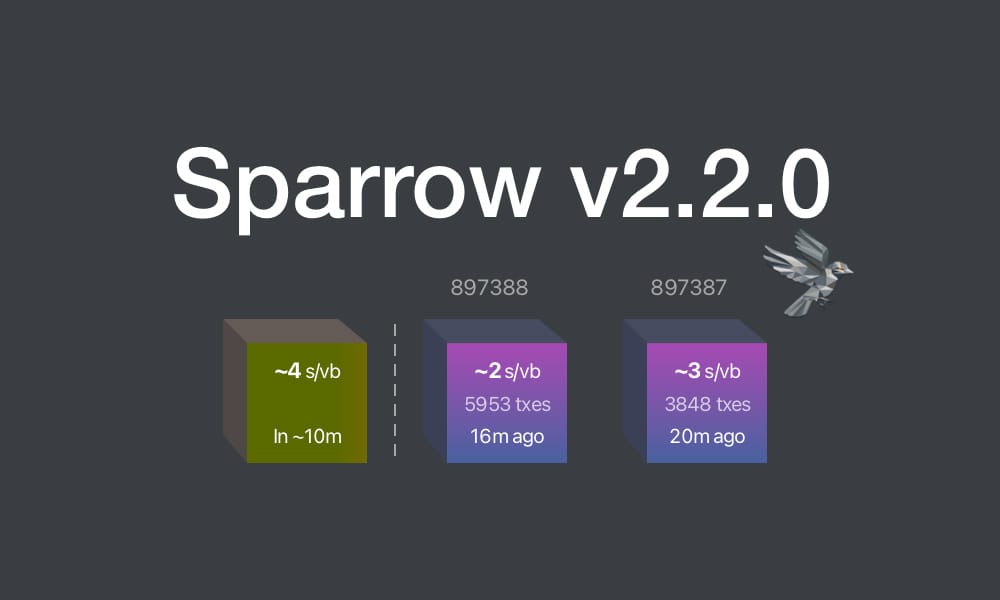
This update brings key enhancements for clarity and usability:
- Recent Blocks View: Added to the Send tab and inspired by Mempool's visualization, it displays the last 2 blocks and the estimated next block to help choose fee rates.
- Camera System Overhaul: Features a new library for higher resolution detection and mouse-scroll zoom support when available.
- Vector-Based Images: All app images are now vectorized and theme-aware, enhancing contrast, especially in dark mode.
- Tor & P2A Updates: Upgraded internal Tor and improved support for pay-to-anchor (P2A) outputs.
- Linux Package Rename: For Linux users, Sparrow has been renamed to sparrowwallet (or sparrowserver); in some cases, the original sparrow package may need manual removal.
- Additional updates include showing total payments in multi-payment transaction diagrams, better handling of long labels, and other UI enhancements.
- Sparrow v2.2.1 is a bug fix release that addresses missing UUID issue when starting Tor on recent macOS versions, icons for external sources in Settings and Recent Blocks view, repackaged
.debinstalls to use older gzip instead of zstd compression, and removed display of median fee rate where fee rates source is set to Server.
Learn how to get started with Sparrow wallet:
Release notes (v2.2.0)
- Added Recent Blocks view to Send tab.
- Converted all bitmapped images to theme aware SVG format for all wallet models and dialogs.
- Support send and display of pay to anchor (P2A) outputs.
- Renamed
sparrowpackage tosparrowwalletandsparrowserveron Linux. - Switched camera library to openpnp-capture.
- Support FHD (1920 x 1080) and UHD4k (3840 x 2160) capture resolutions.
- Support camera zoom with mouse scroll where possible.
- In the Download Verifier, prefer verifying the dropped file over the default file where the file is not in the manifest.
- Show a warning (with an option to disable the check) when importing a wallet with a derivation path matching another script type.
- In Cormorant, avoid calling the
listwalletdirRPC on initialization due to a potentially slow response on Windows. - Avoid server address resolution for public servers.
- Assume server address is non local for resolution failures where a proxy is configured.
- Added a tooltip to indicate truncated labels in table cells.
- Dynamically truncate input and output labels in the tree on a transaction tab, and add tooltips if necessary.
- Improved tooltips for wallet tabs and transaction diagrams with long labels.
- Show the address where available on input and output tooltips in transaction tab tree.
- Show the total amount sent in payments in the transaction diagram when constructing multiple payment transactions.
- Reset preferred table column widths on adjustment to improve handling after window resizing.
- Added accessible text to improve screen reader navigation on seed entry.
- Made Wallet Summary table grow horizontally with dialog sizing.
- Reduced tooltip show delay to 200ms.
- Show transaction diagram fee percentage as less than 0.01% rather than 0.00%.
- Optimized and reduced Electrum server RPC calls.
- Upgraded Bouncy Castle, PGPainless and Logback libraries.
- Upgraded internal Tor to v0.4.8.16.
- Bug fix: Fixed issue with random ordering of keystore origins on labels import.
- Bug fix: Fixed non-zero account script type detection when signing a message on Trezor devices.
- Bug fix: Fixed issue parsing remote Coldcard xpub encoded on a different network.
- Bug fix: Fixed inclusion of fees on wallet label exports.
- Bug fix: Increase Trezor device libusb timeout.
Linux users: Note that the
sparrowpackage has been renamed tosparrowwalletorsparrowserver, and in some cases you may need to manually uninstall the originalsparrowpackage. Look in the/optfolder to ensure you have the new name, and the original is removed.What's new in v2.2.1
- Updated Tor library to fix missing UUID issue when starting Tor on recent macOS versions.
- Repackaged
.debinstalls to use older gzip instead of zstd compression. - Removed display of median fee rate where fee rates source is set to Server.
- Added icons for external sources in Settings and Recent Blocks view
- Bug fix: Fixed issue in Recent Blocks view when switching fee rates source
- Bug fix: Fixed NPE on null fee returned from server
-
 @ 2e8970de:63345c7a
2025-05-31 11:54:55
@ 2e8970de:63345c7a
2025-05-31 11:54:55https://evidence.nejm.org/doi/full/10.1056/EVIDoa2300311
The solution to peanut allergy? Import Bamba!
https://stacker.news/items/993440
-
 @ eb0157af:77ab6c55
2025-05-31 15:01:22
@ eb0157af:77ab6c55
2025-05-31 15:01:22The revelation by Miles Suter, Product Lead at Block, at the Bitcoin Conference 2025 confirms the economic potential of LN for professional operators, but the yield comes mainly from routing fees
During the Bitcoin 2025 conference in Las Vegas, Miles Suter, Bitcoin Product Lead at Block Inc., revealed data that could change the economic perception of the Lightning Network: the company’s routing node is generating annual returns of 9.7% on invested liquidity.

During his presentation, Suter confirmed what many experts suspected but no one had ever quantified precisely: Lightning payment routing can be not only technically effective, but also economically profitable on a large scale. With an estimated public capacity of 184 BTC (approximately $20 million), Block is demonstrating that Lightning infrastructure can generate significant returns through the use of bitcoin as a payment method.
Non-custodial yield, with a doubt
Lightning routing represents what experts define as “true non-custodial yield” – returns generated from the pure economic utility of bitcoin as a means of payment, without having to entrust one’s funds to third parties.
“We are earning almost 10% returns on Bitcoin by effectively routing real payments on the Lightning network,” Suter declared.
Riccardo Masutti — researcher and founder of Baited — has, however, observed that the double-digit yields advertised by Block are closely tied to an exceptionally aggressive fee structure that markedly deviates from the median parameters of the Lightning Network. In particular, the Cash App nodes apply a fee rate of 2,147,483,647 ppm, resulting in fees up to 2 million times higher than the average cost of standard channel transactions. Block’s own node also enforces significant fees: to route a million satoshis, it requires 1,053 sats in outgoing fees and 2,955 sats in incoming fees, compared to a network median base fee of approximately 0.999839 sat and a median fee rate of 0.000063 sat/sat. This discrepancy suggests that the yield is generated more by a surcharge imposed on intermediated payments than by any real efficiency in liquidity allocation.
In 2024 Cash App recorded an increase in Lightning payment volume equal to 7 times that of the previous year: one in four outgoing payments now occurs via LN, Suter stated.
According to Block’s Product Lead “if Bitcoin becomes only digital gold, we have failed the mission. If we don’t use bitcoin for payments, we risk losing one of the most important promises permissionless money. If we don’t preserve the qualities of cash in the digital world, human liberty is seriously in trouble.”
The company aims to incentivize practical and daily use of bitcoin, seeing Lightning payments as the key to realizing Satoshi Nakamoto’s original vision of a “peer-to-peer electronic payment system.”
The post According to Block, routing on Lightning yields 10% annually: but the yield comes from fees appeared first on Atlas21.
-
 @ 005bc4de:ef11e1a2
2025-05-31 10:55:47
@ 005bc4de:ef11e1a2
2025-05-31 10:55:47LUV and Hivebits/HBIT/Wusang pause tl;dr LUV and HBIT (aka, Hivebits and the Wusang game) are on a pause at the moment, taking a break. https://files.peakd.com/file/peakd-hive/crrdlx/23x1SY8Vx8j1mVGnDFtq7ebuzKNGd8K9Ssex51AEerxks1VYikxGPShM7bjNhmSrEZ2wf.png Image from pixabay.com Why? There are odd things going on. I have a theory, but here's what is known... May 28, 2025, at about 1:30 pm GMT (8:30 AM EDT), a second attack (for lack of better term) hit HBIT in about a week. It seemed to start with @tyler45 with this comment https://peakd.com/blog/@tyler45/comment-20250528125108033 tx: https://he.dtools.dev/tx/7e7d4126196ca5b6dbe0a04dcded0e25d3bcc7f4 See tyler45's activity at https://he.dtools.dev/@tyler45 Notice the reply and WUSANG command is to a post by @olivia897 and how many of the other WUSANG comments on the explorer are in reply to olivia897. It seems these are all auto-generated accounts. The names and "birthdates" and interactions all point to automation. Once initiated, things happened very fast on the back end, clearly not being done manually. In this way, this seems rather sophisticated technically. I estimate just over 400 HBIT were pilfered the other day from the @Hivebits account before I noticed and was able to shut things down. Just for a little background, after the first attack May 21, 2025. I wrote a small bit of info: https://peakd.com/hivebits/@crrdlx/hbit-resource-credits A couple of days ago this post by @holoz0r was interesting: https://peakd.com/hive-133987/@holoz0r/text-analytics-reveal-thirty-two-percent-of-comments-on-hive-are-not-unique-and-at-least-ten-percent-add-no-value-to-discussion The thing that caught my eye was that the WUSANG comment was the largest by far, along with BBH (hello @bradleyarrow), because the attackers used both commands. Then, a few days later, things happened again: sudden start, repetitive bot attack, until I shut things down. So, a pause This is a period in my personal calendar where I simply don't have time to sit down at a computer for an extended period and try fiddle with this stuff. So, for now @Luvshares and @Hivebits (HBIT) and the @Wusang game are on hold. Plus, there's other fun stuff to do. https://files.peakd.com/file/peakd-hive/crrdlx/AJL43SREA1EuyqPXhydmqaq1RHhRVoYd12PfiBN5vDMu2WSKUtGeYWgKJyuRwV8.jpg I go by @crrdlx or "CR" for short. See all my links or contact info at https://linktr.ee/crrdlx.
Originally posted on Hive at https://peakd.com/@crrdlx/luv-and-hivebitshbitwusang-pause
Auto cross-post via Hostr v0.1.48 (br) at https://hostr-home.vercel.app
-
 @ eb0157af:77ab6c55
2025-05-31 15:01:21
@ eb0157af:77ab6c55
2025-05-31 15:01:21At Bitcoin 2025, the company unveils the Blockstream App and a strategic roadmap to accelerate adoption.
During the Bitcoin 2025 conference held in Las Vegas, Blockstream announced several updates, including a new non-custodial application and a corporate strategy structured around three operational divisions.
Introducing the Blockstream App: a new Bitcoin wallet that grows with you.
From first sats to advanced custody, it brings self-sovereignty into reach no matter where you start. Available now on Android, coming soon to iOS.
 pic.twitter.com/UBiNHKh8bO
pic.twitter.com/UBiNHKh8bO— Blockstream (@Blockstream) May 29, 2025
The new Blockstream App allows users to purchase Bitcoin directly and store it in their own wallet, eliminating the need to rely on external custodians for fund management. This technological solution is built on the infrastructure of the Blockstream Green wallet. The app supports Bitcoin, Lightning, and Liquid.
The app’s design has been conceived to meet the needs of a diverse audience, the company stated. Its interface is accessible for beginners while retaining advanced functionalities for more experienced users.
It also remains compatible with advanced security features such as hardware wallet signing and air-gapped transactions via Blockstream Jade.
Corporate strategy: consumer, enterprise, and BAM
During the event, Blockstream revealed a strategic restructuring organized into three distinct operational units. This new framework aims to strengthen the company’s position within the Bitcoin economy through tailored approaches for specific markets.
The Consumer division will focus on developing products for retail users, while the Enterprise division will manage relationships with corporate clients. Blockstream Asset Management (BAM) will serve as the company’s institutional arm, specializing in Bitcoin investment products for institutional customers.
Adam Back, CEO of Blockstream, commented:
“The past year has shown clearly that Bitcoin no longer sits on the margins of the global financial system—it is rapidly becoming the foundation. Our vision is simple: the future of finance runs on Bitcoin.”
The post Blockstream launches a non-custodial app to buy Bitcoin appeared first on Atlas21.
-
 @ eb0157af:77ab6c55
2025-05-31 15:01:18
@ eb0157af:77ab6c55
2025-05-31 15:01:18A new investment vehicle combines exposure to Bitcoin with downside protection based on the price of gold.
On May 29, Cantor Fitzgerald Asset Management announced the launch of an investment product that merges direct exposure to Bitcoin with a bearish hedge linked to gold.
According to the financial institution, the new fund offers a solution for investors seeking to benefit from the growth potential of the leading cryptocurrency while maintaining a safety net tied to the precious metal.
Fund features
The fund is structured with a five-year term and no cap on potential upside, allowing investors to fully capture Bitcoin’s growth. The “1-to-1” protection mechanism means that any losses on Bitcoin would be offset by corresponding gains from gold.
Brandon Lutnick, Chairman of Cantor and son of former CEO Howard Lutnick (now Commerce Secretary in the Trump administration), called the product “a truly revolutionary investment vehicle” that helps investors access Bitcoin’s potential while providing downside protection. “There are still people on the Earth that are still scared of Bitcoin, and we want to bring them into this ecosystem,” Lutnick added.
The fund marks Cantor Fitzgerald’s first BTC-focused investment product. The firm, with 79 years of history and $14.8 billion in assets under management, is making its first significant move into the Bitcoin market.
The announcement follows the closing of its first round of financing agreements with Maple Finance and FalconX. Through its “Bitcoin Financing Business” division, Cantor plans to initially make up to $2 billion in financing available to institutional clients.
The post Cantor Fitzgerald launches Bitcoin fund with gold hedge appeared first on Atlas21.
-
 @ 9ca447d2:fbf5a36d
2025-05-31 15:01:01
@ 9ca447d2:fbf5a36d
2025-05-31 15:01:01The third annual Bitcoin FilmFest (aka BFF25) proved once again that sovereign minds and decentralized culture thrive together.
For four electrifying days in Poland’s capital, the festival’s rallying call—’Fix the money, fix the culture‘—wasn’t just a slogan but a living, breathing movement.
From May 22-25, 2025, Warsaw buzzed with cinematic innovation, Bitcoin philosophy, and artistic vibe marking this gathering as truly incomparable.
Rebel Tribe with Unfiltered Creativity
With 200+ attendees from 20+ countries – primarily Poland, Czech Republic, the UK and Germany (~70% combined), plus representation from Spain, Italy, USA, Turkey and 15+ other nations including Thailand, Israel, Dubai and Latin America—BFF25 became a true global hub of freedom-fighters at heart.
The European Pizza Day opener (May 22), celebrating Bitcoin’s first real-world transaction, saw rainy evening weather that couldn’t dampen the energy.
With concerts by Roger9000 and ABBE plus DJ sets from MadMunky, 2140 collective w/Airklipz and G.O.L.D., all early arrivals had a memorable start.
Dual Focus on Film and Bitcoin Culture
-
Seven film workshops and seven hands-on sessions running parallel across Friday and Saturday at Amondo Cinema Club. Film: Martin Piga, Oswald Horowitz, Psyfer, Juan Pablo Mejía, Kristina Weiserova, Rare Passenger, Noa Gruman & Lahav Levi (Scardust). Bitcoin/Nostr: Aleks Svetski, Ioni Appelberg, Flash, CryptoSteel, Bitrefill, Polish Bitcoin Association, Bitvocation.
-
The Community Stage (Friday to Sunday afternoon) gave important space for both projects and individuals discussing their work and passions.
Everything from music, art, fiction, Nostr, personal sovereignty to Polish-language debates on Bitcoin’s state and its possible future. -
Onscreen, 9 cinematic blocks from Friday to Sunday featured titles like UNBAKABLE, REVOLUCIÓN BITCOIN, HOTEL BITCOIN, PLANDEMIC: THE MUSICAL, plus shorts on new media (AI/experimental cinema), parallel communities (outcast cinema), and newly released pilots.
-
Cinematic shark-tank with a €3,000 bounty: 8 contestants
- Martin Piga: “PARALLEL SPACES”
- Kristina Weiserova: “PUZZLE”
- Aaron Koenig : “SATOSHI’S LAST WILL”
- Philip Charter: “21 FUTURES”
- Jenna Reid: “WHERE DO WE GO FROM HERE?”
- Mr Black: “A LODGING OF WAYFARING MEN”
- Oswald Horowitz: “THE LEGEND OF LANDI”
The event ended with Jenna winning.
-
Official Gala: Golden Rabbits 2025 crowned:
- HOTEL BITCOIN by Manuel Sanabria & Carlos “Pocho” Villaverde (Best Story)
- SATOSHI: THE CREATION OF BITCOIN by Arthur Machado (Best Short)
- REVOLUCIÓN BITCOIN by Juan Pablo Mejía (Audience Choice)
- NO MORE INFLATION by Maiku Tsukai’s aka Bitcoin Shooter (Best Film)
Nights Charged with Music and Unscripted Surprise
The festival’s legendary afterparties kept the energy high—Friday’s underground gathering at Morph Club (ex-Barbazaar) featured Aaron Koening’s live concert and 2140 DJs (Akme + Andy Princz).
The weekend’s unforgettable moment came when Noa Gruman took the stage with “MY HEAVEN” (Scardust original) and “40HPW” — her powerful tribute to Bitcoin podcasts and Bugle.News.
Lightning-Powered Innovation, and Extras
-
Lightning in Action: Flash enabled instant Bitcoin payments across both main venues (Amondo + Samo Centrum, merch stations, and online shop)
-
IndeeHub Backstage Pass: Attendees unlocked exclusive access to Lightning-powered VOD featuring selected films from BFF23-25
-
BFF TV: Kiki (El Salvador) broadcasting live interviews, event clips, and trailers. Day One, and Day Two to rewatch online.
-
Comedy Strike: Robert Le Ricain’s Gala stand-up proved Bitcoiners pack brains and humor—in equal measure.
A Community-Driven Cultural Experience
Bitcoin FilmFest wasn’t just an event—it was proof that culture shifts when money gets fixed. Mark your calendars for June 2026 and the next edition. More info and tickets going on sale soon.
-
-
 @ b1ddb4d7:471244e7
2025-05-31 15:00:53
@ b1ddb4d7:471244e7
2025-05-31 15:00:53Bitcoin FilmFest (BFF25) returns to Warsaw for its third edition, blending independent cinema—from feature films and commercials to AI-driven experimental visuals—with education and entertainment.
Hundreds of attendees from around the world will gather for three days of screenings, discussions, workshops, and networking at the iconic Kinoteka Cinema (PKiN), the same venue that hosted the festival’s first two editions in March 2023 and April 2024.
This year’s festival, themed “Beyond the Frame,” introduces new dimensions to its program, including an extra day on May 22 to celebrate Bitcoin Pizza Day, the first real-world bitcoin transaction, with what promises to be one of Europe’s largest commemorations of this milestone.
BFF25 bridges independent film, culture, and technology, with a bold focus on decentralized storytelling and creative expression. As a community-driven cultural experience with a slightly rebellious spirit, Bitcoin FilmFest goes beyond movies, yet cinema remains at its heart.
Here’s a sneak peek at the lineup, specially curated for movie buffs:
 Generative Cinema – A special slot with exclusive shorts and a thematic debate on the intersection of AI and filmmaking. Featured titles include, for example: BREAK FREE, SATOSHI: THE CREATION OF BITCOIN, STRANGE CURRENCIES, and BITCOIN IS THE MYCELIUM OF MONEY, exploring financial independence, traps of the fiat system, and a better future built on sound money.
Generative Cinema – A special slot with exclusive shorts and a thematic debate on the intersection of AI and filmmaking. Featured titles include, for example: BREAK FREE, SATOSHI: THE CREATION OF BITCOIN, STRANGE CURRENCIES, and BITCOIN IS THE MYCELIUM OF MONEY, exploring financial independence, traps of the fiat system, and a better future built on sound money. Upcoming Productions Preview – A bit over an hour-long block of unreleased pilots and works-in-progress. Attendees will get exclusive first looks at projects like FINDING HOME (a travel-meets-personal-journey series), PARALLEL SPACES (a story about alternative communities), and THE LEGEND OF LANDI (a mysterious narrative).
Upcoming Productions Preview – A bit over an hour-long block of unreleased pilots and works-in-progress. Attendees will get exclusive first looks at projects like FINDING HOME (a travel-meets-personal-journey series), PARALLEL SPACES (a story about alternative communities), and THE LEGEND OF LANDI (a mysterious narrative). Freedom-Focused Ads & Campaigns – Unique screenings of video commercials, animations, and visual projects, culminating in “The PoWies” (Proof of Work-ies)—the first ever awards show honoring the best Bitcoin-only awareness campaigns.
Freedom-Focused Ads & Campaigns – Unique screenings of video commercials, animations, and visual projects, culminating in “The PoWies” (Proof of Work-ies)—the first ever awards show honoring the best Bitcoin-only awareness campaigns.To get an idea of what might come up at the event, here, you can preview 6 selected ads combined into two 2 videos:
 Open Pitch Competition – A chance for filmmakers to present fresh ideas and unfinished projects to an audience of a dedicated jury, movie fans and potential collaborators. This competitive block isn’t just entertaining—it’s a real opportunity for creators to secure funding and partnerships.
Open Pitch Competition – A chance for filmmakers to present fresh ideas and unfinished projects to an audience of a dedicated jury, movie fans and potential collaborators. This competitive block isn’t just entertaining—it’s a real opportunity for creators to secure funding and partnerships. Golden Rabbit Awards: A lively gala honoring films from the festival’s Official Selection, with awards in categories like Best Feature, Best Story, Best Short, and Audience Choice.
Golden Rabbit Awards: A lively gala honoring films from the festival’s Official Selection, with awards in categories like Best Feature, Best Story, Best Short, and Audience Choice.BFF25 Main Screenings
Sample titles from BFF25’s Official Selection:
 REVOLUCIÓN BITCOIN – A documentary by Juan Pablo, making its first screening outside the Spanish-speaking world in Warsaw this May. Three years of important work, 80 powerful minutes to experience. The film explores Bitcoin’s impact across Argentina, Colombia, Mexico, El Salvador, and Spain through around 40 diverse perspectives. Screening in Spanish with English subtitles, followed by a Q&A with the director.
REVOLUCIÓN BITCOIN – A documentary by Juan Pablo, making its first screening outside the Spanish-speaking world in Warsaw this May. Three years of important work, 80 powerful minutes to experience. The film explores Bitcoin’s impact across Argentina, Colombia, Mexico, El Salvador, and Spain through around 40 diverse perspectives. Screening in Spanish with English subtitles, followed by a Q&A with the director. UNBANKABLE – Luke Willms’ directorial debut, drawing from his multicultural roots and his father’s pioneering HIV/AIDS research. An investigative documentary based on Luke’s journeys through seven African countries, diving into financial experiments and innovations—from mobile money and digital lending to Bitcoin—raising smart questions and offering potential lessons for the West. Its May appearance at BFF25 marks its largest European event to date, following festival screenings and nominations across multiple continents over the past year.
UNBANKABLE – Luke Willms’ directorial debut, drawing from his multicultural roots and his father’s pioneering HIV/AIDS research. An investigative documentary based on Luke’s journeys through seven African countries, diving into financial experiments and innovations—from mobile money and digital lending to Bitcoin—raising smart questions and offering potential lessons for the West. Its May appearance at BFF25 marks its largest European event to date, following festival screenings and nominations across multiple continents over the past year. HOTEL BITCOIN – A Spanish comedy directed by Manuel Sanabria and Carlos “Pocho” Villaverde. Four friends, 4,000 bitcoins , and one laptop spark a chaotic adventure of parties, love, crime, and a dash of madness. Exploring sound money, value, and relationships through a twisting plot. The film premiered at the Tarazona and Moncayo Comedy Film Festival in August 2024. Its Warsaw screening at BFF25 (in Spanish with English subtitles) marks its first public showing outside the Spanish-speaking world.
HOTEL BITCOIN – A Spanish comedy directed by Manuel Sanabria and Carlos “Pocho” Villaverde. Four friends, 4,000 bitcoins , and one laptop spark a chaotic adventure of parties, love, crime, and a dash of madness. Exploring sound money, value, and relationships through a twisting plot. The film premiered at the Tarazona and Moncayo Comedy Film Festival in August 2024. Its Warsaw screening at BFF25 (in Spanish with English subtitles) marks its first public showing outside the Spanish-speaking world.Check out trailers for this year’s BFF25 and past editions on YouTube.
Tickets & Info:
- Detailed program and tickets are available at bitcoinfilmfest.com/bff25.
- Stay updated via the festival’s official channels (links provided on the website).
- Use ‘LN-NEWS’ to get 10% of tickets
-
 @ b1ddb4d7:471244e7
2025-05-31 15:00:51
@ b1ddb4d7:471244e7
2025-05-31 15:00:51Starting January 1, 2026, the United Kingdom will impose some of the world’s most stringent reporting requirements on cryptocurrency firms.
All platforms operating in or serving UK customers-domestic and foreign alike-must collect and disclose extensive personal and transactional data for every user, including individuals, companies, trusts, and charities.
This regulatory drive marks the UK’s formal adoption of the OECD’s Crypto-Asset Reporting Framework (CARF), a global initiative designed to bring crypto oversight in line with traditional banking and to curb tax evasion in the rapidly expanding digital asset sector.
What Will Be Reported?
Crypto firms must gather and submit the following for each transaction:
- User’s full legal name, home address, and taxpayer identification number
- Detailed data on every trade or transfer: type of cryptocurrency, amount, and nature of the transaction
- Identifying information for corporate, trust, and charitable clients
The obligation extends to all digital asset activities, including crypto-to-crypto and crypto-to-fiat trades, and applies to both UK residents and non-residents using UK-based platforms. The first annual reports covering 2026 activity are due by May 31, 2027.
Enforcement and Penalties
Non-compliance will carry stiff financial penalties, with fines of up to £300 per user account for inaccurate or missing data-a potentially enormous liability for large exchanges. The UK government has urged crypto firms to begin collecting this information immediately to ensure operational readiness.
Regulatory Context and Market Impact
This move is part of a broader UK strategy to position itself as a global fintech hub while clamping down on fraud and illicit finance. UK Chancellor Rachel Reeves has championed these measures, stating, “Britain is open for business – but closed to fraud, abuse, and instability”. The regulatory expansion comes amid a surge in crypto adoption: the UK’s Financial Conduct Authority reported that 12% of UK adults owned crypto in 2024, up from just 4% in 2021.
Enormous Risks for Consumers: Lessons from the Coinbase Data Breach
While the new framework aims to enhance transparency and protect consumers, it also dramatically increases the volume of sensitive personal data held by crypto firms-raising the stakes for cybersecurity.
The risks are underscored by the recent high-profile breach at Coinbase, one of the world’s largest exchanges.
In May 2025, Coinbase disclosed that cybercriminals, aided by bribed offshore contractors, accessed and exfiltrated customer data including names, addresses, government IDs, and partial bank details.
The attackers then used this information for sophisticated phishing campaigns, successfully deceiving some customers into surrendering account credentials and funds.
“While private encryption keys remained secure, sufficient customer information was exposed to enable sophisticated phishing attacks by criminals posing as Coinbase personnel.”
Coinbase now faces up to $400 million in compensation costs and has pledged to reimburse affected users, but the incident highlights the systemic vulnerability created when large troves of personal data are centralized-even if passwords and private keys are not directly compromised. The breach also triggered a notable drop in Coinbase’s share price and prompted a $20 million bounty for information leading to the attackers’ capture.
The Bottom Line
The UK’s forthcoming crypto reporting regime represents a landmark in financial regulation, promising greater transparency and tax compliance. However, as the Coinbase episode demonstrates, the aggregation of sensitive user data at scale poses a significant cybersecurity risk.
As regulators push for more oversight, the challenge will be ensuring that consumer protection does not become a double-edged sword-exposing users to new threats even as it seeks to shield them from old ones.
-
 @ b1ddb4d7:471244e7
2025-05-31 15:00:47
@ b1ddb4d7:471244e7
2025-05-31 15:00:47When Sergei talks about bitcoin, he doesn’t sound like someone chasing profits or followers. He sounds like someone about to build a monastery in the ruins.
While the mainstream world chases headlines and hype, Sergei shows up in local meetups from Sacramento to Cleveland, mentors curious minds, and shares what he knows is true – hoping that, with the right spark, someone will light their own way forward.
We interviewed Sergei to trace his steps: where he started, what keeps him going, and why teaching bitcoin is far more than explaining how to set up a node – it’s about reaching the right minds before the noise consumes them. So we began where most journeys start: at the beginning.

First Steps
- So, where did it all begin for you and what made you stay curious?
I first heard about bitcoin from a friend’s book recommendation, American Kingpin, the book about Silk Road (online drug marketplace). He is still not a true bitcoiner, although I helped him secure private keys with some bitcoin.
I was really busy at the time – focused on my school curriculum, running a 7-bedroom Airbnb, and working for a standardized test prep company. Bitcoin seemed too technical for me to explore, and the pace of my work left no time for it.
After graduating, while pursuing more training, I started playing around with stocks and maximizing my savings. Passive income seemed like the path to early retirement, as per the promise of the FIRE movement (Financial Independence, Retire Early). I mostly followed the mainstream news and my mentor’s advice – he liked preferred stocks at the time.
I had some Coinbase IOUs and remember sending bitcoin within the Coinbase ledger to a couple friends. I also recall the 2018 crash; I actually saw the legendary price spike live but couldn’t benefit because my funds were stuck amidst the frenzy. I withdrew from that investment completely for some time. Thankfully, my mentor advised to keep en eye on bitcoin.
Around late 2019, I started DCA-ing cautiously. Additionally, my friend and I were discussing famous billionaires, and how there was no curriculum for becoming a billionaire. So, I typed “billionaires” into my podcast app, and landed on We Study Billionaires podcast.
That’s where I kept hearing Preston Pysh mention bitcoin, before splitting into his own podcast series, Bitcoin Fundamentals. I didn’t understand most of the terminology of stocks, bonds, etc, yet I kept listening and trying to absorb it thru repetition. Today, I realize all that financial talk was mostly noise.
When people ask me for a technical explanation of fiat, I say: it’s all made up, just like the fiat price of bitcoin! Starting in 2020, during the so-called pandemic, I dove deeper. I religiously read Bitcoin Magazine, scrolled thru Bitcoin Twitter, and joined Simply Bitcoin Telegram group back when DarthCoin was an admin.
DarthCoin was my favorite bitcoiner – experienced, knowledgeable, and unapologetic. Watching him shift from rage to kindness, from passion to despair, gave me a glimpse at what a true educator’s journey would look like.
The struggle isn’t about adoption at scale anymore. It’s about reaching the few who are willing to study, take risks, and stay out of fiat traps. The vast majority won’t follow that example – not yet at least… if I start telling others the requirements for true freedom and prosperity, they would certainly say “Hell no!”
- At what point did you start teaching others, and why?
After college, I helped teach at a standardized test preparation company, and mentored some students one-on-one. I even tried working at a kindergarten briefly, but left quickly; Babysitting is not teaching.
What I discovered is that those who will succeed don’t really need my help – they would succeed with or without me, because they already have the inner drive.
Once you realize your people are perishing for lack of knowledge, the only rational thing to do is help raise their level of knowledge and understanding. That’s the Great Work.
I sometimes imagine myself as a political prisoner. If that were to happen, I’d probably start teaching fellow prisoners, doctors, janitors, even guards. In a way we already live in an open-air prison, So what else is there to do but teach, organize, and conspire to dismantle the Matrix?
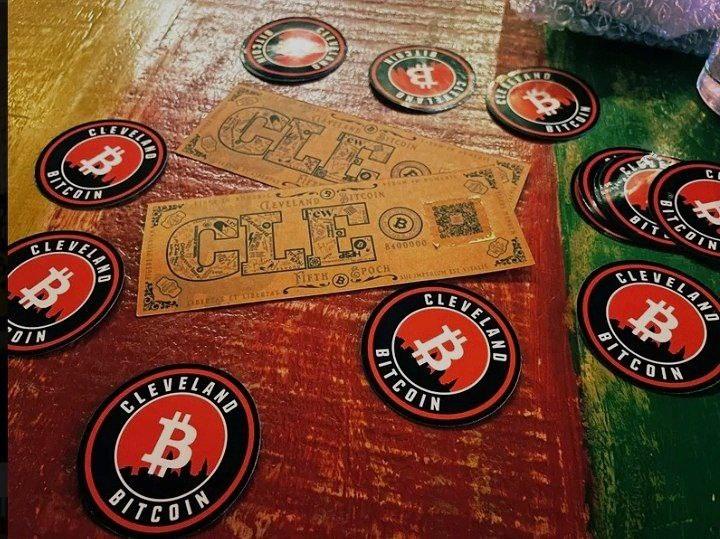
Building on Bitcoin
- You hosted some in-person meetups in Sacramento. What did you learn from those?
My first presentation was on MultiSig storage with SeedSigner, and submarine swaps through Boltz.exchange.
I realized quickly that I had overestimated the group’s technical background. Even the meetup organizer, a financial advisor, asked, “How is anyone supposed to follow these steps?” I responded that reading was required… He decided that Unchained is an easier way.
At a crypto meetup, I gave a much simpler talk, outlining how bitcoin will save the world, based on a DarthCoin’s guide. Only one person stuck around to ask questions – a man who seemed a little out there, and did not really seem to get the message beyond the strength of cryptographic security of bitcoin.
Again, I overestimated the audience’s readiness. That forced me to rethink my strategy. People are extremely early and reluctant to study.
- Now in Ohio, you hold sessions via the Orange Pill App. What’s changed?
My new motto is: educate the educators. The corollary is: don’t orange-pill stupid normies (as DarthCoin puts it).
I’ve shifted to small, technical sessions in order to raise a few solid guardians of this esoteric knowledge who really get it and can carry it forward.
The youngest attendee at one of my sessions is a newborn baby – he mostly sleeps, but maybe he still absorbs some of the educational vibes.
- How do local groups like Sactown and Cleveland Bitcoiners influence your work?
Every meetup reflects its local culture. Sacramento and Bay Area Bitcoiners, for example, do camping trips – once we camped through a desert storm, shielding our burgers from sand while others went to shoot guns.
Cleveland Bitcoiners are different. They amass large gatherings. They recently threw a 100k party. They do a bit more community outreach. Some are curious about the esoteric topics such as jurisdiction, spirituality, and healthful living.
I have no permanent allegiance to any state, race, or group. I go where I can teach and learn. I anticipate that in my next phase, I’ll meet Bitcoiners so advanced that I’ll have to give up my fiat job and focus full-time on serious projects where real health and wealth are on the line.
Hopefully, I’ll be ready. I believe the universe always challenges you exactly to your limit – no less, no more.
- What do people struggle with the most when it comes to technical education?
The biggest struggle isn’t technical – it’s a lack of deep curiosity. People ask “how” and “what” – how do I set up a node, what should one do with the lightning channels? But very few ask “why?”
Why does on-chain bitcoin not contribute to the circular economy? Why is it essential to run Lightning? Why did humanity fall into mental enslavement in the first place?
I’d rather teach two-year-olds who constantly ask “why” than adults who ask how to flip a profit. What worries me most is that most two-year-olds will grow up asking state-funded AI bots for answers and live according to its recommendations.
- One Cleveland Bitcoiner shows up at gold bug meetups. How valuable is face-to-face education?
I don’t think the older generation is going to reverse the current human condition. Most of them have been under mind control for too long, and they just don’t have the attention span to study and change their ways.
They’re better off stacking gold and helping fund their grandkids’ education. If I were to focus on a demographic, I’d go for teenagers – high school age – because by college, the indoctrination is usually too strong, and they’re chasing fiat mastery.
As for the gold bug meetup? Perhaps one day I will show up with a ukulele to sing some bitcoin-themed songs. Seniors love such entertainment.
- How do you choose what to focus on in your sessions, especially for different types of learners?
I don’t come in with a rigid agenda. I’ve collected a massive library of resources over the years and never stopped reading. My browser tab and folder count are exploding.
At the meetup, people share questions or topics they’re curious about, then I take that home, do my homework, and bring back a session based on those themes. I give them the key takeaways, plus where to dive deeper.
Most people won’t – or can’t – study the way I do, and I expect attendees to put in the work. I suspect that it’s more important to reach those who want to learn but don’t know how, the so-called nescient (not knowing), rather than the ignorant.
There are way too many ignorant bitcoiners, so my mission is to find those who are curious what’s beyond the facade of fake reality and superficial promises.
That naturally means that fewer people show up, and that’s fine. I’m not here for the crowds; I’m here to educate the educators. One bitcoiner who came decided to branch off into self-custody sessions and that’s awesome. Personally, I’m much more focused on Lightning.
I want to see broader adoption of tools like auth, sign-message, NWC, and LSPs. Next month, I’m going deep into eCash solutions, because let’s face it – most newcomers won’t be able to afford their own UTXO or open a lightning channel; additionally, it has to be fun and easy for them to transact sats, otherwise they won’t do it. Additionally, they’ll need to rely on
-
 @ b1ddb4d7:471244e7
2025-05-31 15:00:46
@ b1ddb4d7:471244e7
2025-05-31 15:00:46Sati, a Bitcoin payments app and Lightning infrastructure provider, announced the launch of its Lightning integration with Xverse wallet.
Launched in 2025 with investors of the likes as Draper Associates and Ricardo Salinas, Sati powers Bitcoin payments on applications such as WhatsApp to fuel the next wave of adoption.
The Whatsapp bot allows users to send bitcoin via the messaging app through a special bot. After verifying their identity, the user selects the “send” option, chooses to pay to a Lightning address, enters the amount (1,000 sats), confirms with a PIN, and the transaction is completed, with the funds appearing instantly in the recipient wallet.
The new integration will now bring Lightning functionality to over 1.5 million people worldwide. Users can send and receive sats (Bitcoin’s smallest denomination) instantly over the Lightning Network all within the Xverse app,
Further, every xverse wallet user gets a Lightning Address instantly. That means they can receive tips, pay invoices, and use Bitcoin for microtransactions—all without having to manage channels or switch between different apps.
While Xverse adds support for Lightning, users should be cautious in using the wallet as it’s mostly known for enabling access to rug pull projects.
Initially designed in 2017, the Lightning Network has grown to become Bitcoin’s leading layer-2, with a current BTC capacity of over $465M.
“Bitcoin was not meant to be an asset for Wall Street—it was built for peer-to-peer money, borderless and accessible,” said Felipe Servin, Founder and CEO of Sati. “Integrating Lightning natively into Xverse brings that vision back to life, making Bitcoin usable at scale for billions.”
Sati expects USDT on Lightning to be supported as early as July 2025 for users accessing Sati through WhatsApp.
This integration positions Sati’s role as a Lightning infrastructure provider, not just a consumer app. By leveraging its API-based solution, the company provides plug-and-play backend services to wallets and platforms looking to add Bitcoin payments without compromising on security or UX.
Sati recently closed a $600K pre-seed round. The funding is used to support global expansion, stablecoin integration, Lightning infrastructure growth, and broader access to Bitcoin in emerging markets.
The Sati team is attending Bitcoin2025 in Las Vegas this week and looking forward to connect with bitcoin enthusiasts.
-
 @ dfa02707:41ca50e3
2025-05-31 14:01:43
@ dfa02707:41ca50e3
2025-05-31 14:01:43Contribute to keep No Bullshit Bitcoin news going.
- Coinswap is a decentralized protocol for private, trustless cryptocurrency swaps. It allows participants to securely swap digital assets without intermediaries, using advanced cryptographic techniques and atomic swaps to ensure privacy and security.
- This release introduces major improvements to the protocol's efficiency, security, and usability, including custom in-memory UTXO indexes, more advanced coin-selection algorithms, fidelity bond management and more.
- The update also improves user experience with full Mac support, faster Tor connections, enhanced UI/UX, a unified API, and improved protocol documentation.
"The Project is under active beta development and open for contributions and beta testing. The Coinswap market place is live in testnet4. Bug fixes and feature requests are very much welcome."
- Manuals and demo docs are available here.
What's new
- Core protocol and performance improvements:
- Custom in-memory UTXO indexes. Frequent Core RPC calls, which caused significant delays, have been eliminated by implementing custom in-memory UTXO indexes. These indexes are also saved to disk, leading to faster wallet synchronization.
- Coin selection. Advanced coin-selection algorithms, like those in Bitcoin Core, have been incorporated, enhancing the efficiency of creating different types of transactions.
- Fidelity management. Maker servers now automate tasks such as checking bond expiries, redemption, and recreation for Fidelity Bonds, reducing the user's management responsibilities.
- Taker liveness. The
WaitingFundingConfirmationmessage has been added to keep swap connections between Takers and Makers, assisting with variable block confirmation delays.
-
User experience and compatibility:
- Mac compatibility. The crate and apps now fully support Mac.
- Tor operations are streamlined for faster, more resilient connections. Tor addresses are now consistently linked to the wallet seed, maintaining the same onion address through system reboots.
- The UI/UX improvements enhance the display of balances, UTXOs, offer data, fidelity bonds, and system logs. These updates make the apps more enjoyable and provide clearer coin swap logs during the swap process.
-
API design improvements. Transaction creation routines have been streamlined to use a single common API, which reduces technical debt and eliminates redundant code.
- Protocol spec documentation now details how Coinswap breaks the transaction graph and improves privacy through routed swaps and amount splitting, and includes diagrams for clarity.

Source: Coinswap Protocol specification.

-
 @ dfa02707:41ca50e3
2025-05-31 14:01:42
@ dfa02707:41ca50e3
2025-05-31 14:01:42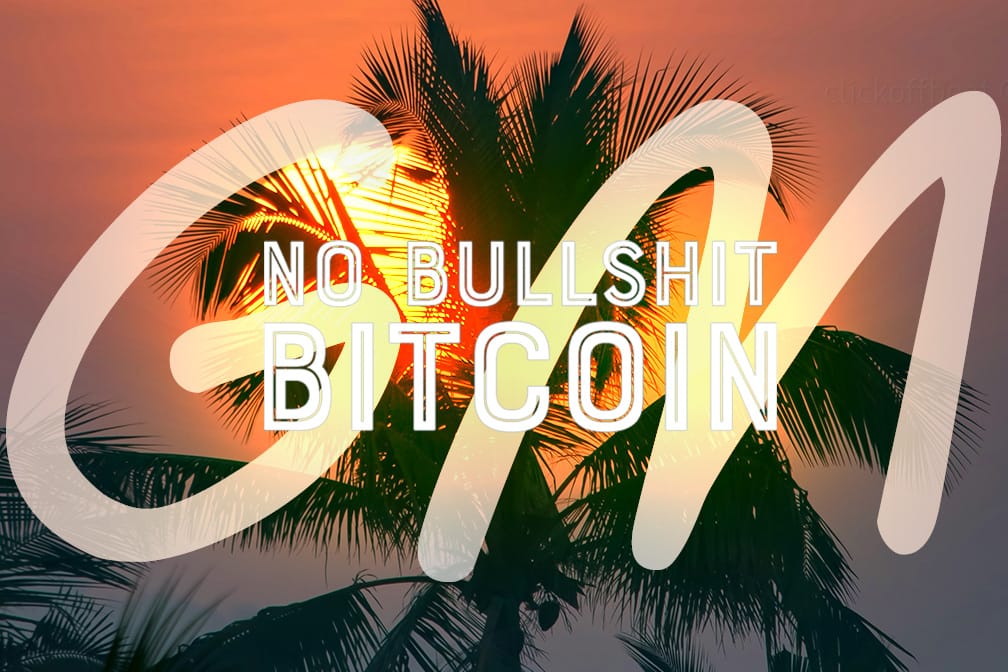
Good morning (good night?)! The No Bullshit Bitcoin news feed is now available on Moody's Dashboard! A huge shoutout to sir Clark Moody for integrating our feed.
Headlines
- Spiral welcomes Ben Carman. The developer will work on the LDK server and a new SDK designed to simplify the onboarding process for new self-custodial Bitcoin users.
- The Bitcoin Dev Kit Foundation announced new corporate members for 2025, including AnchorWatch, CleanSpark, and Proton Foundation. The annual dues from these corporate members fund the small team of open-source developers responsible for maintaining the core BDK libraries and related free and open-source software (FOSS) projects.
- Strategy increases Bitcoin holdings to 538,200 BTC. In the latest purchase, the company has spent more than $555M to buy 6,556 coins through proceeds of two at-the-market stock offering programs.
- Spar supermarket experiments with Bitcoin payments in Zug, Switzerland. The store has introduced a new payment method powered by the Lightning Network. The implementation was facilitated by DFX Swiss, a service that supports seamless conversions between bitcoin and legacy currencies.
- The Bank for International Settlements (BIS) wants to contain 'crypto' risks. A report titled "Cryptocurrencies and Decentralised Finance: Functions and Financial Stability Implications" calls for expanding research into "how new forms of central bank money, capital controls, and taxation policies can counter the risks of widespread crypto adoption while still fostering technological innovation."
- "Global Implications of Scam Centres, Underground Banking, and Illicit Online Marketplaces in Southeast Asia." According to the United Nations Office on Drugs and Crime (UNODC) report, criminal organizations from East and Southeast Asia are swiftly extending their global reach. These groups are moving beyond traditional scams and trafficking, creating sophisticated online networks that include unlicensed cryptocurrency exchanges, encrypted communication platforms, and stablecoins, fueling a massive fraud economy on an industrial scale.
- Slovenia is considering a 25% capital gains tax on Bitcoin profits for individuals. The Ministry of Finance has proposed legislation to impose this tax on gains from cryptocurrency transactions, though exchanging one cryptocurrency for another would remain exempt. At present, individual 'crypto' traders in Slovenia are not taxed.
- Circle, BitGo, Coinbase, and Paxos plan to apply for U.S. bank charters or licenses. According to a report in The Wall Street Journal, major crypto companies are planning to apply for U.S. bank charters or licenses. These firms are pursuing limited licenses that would permit them to issue stablecoins, as the U.S. Congress deliberates on legislation mandating licensing for stablecoin issuers.
"Established banks, like Bank of America, are hoping to amend the current drafts of [stablecoin] legislation in such a way that nonbanks are more heavily restricted from issuing stablecoins," people familiar with the matter told The Block.
- Charles Schwab to launch spot Bitcoin trading by 2026. The financial investment firm, managing over $10 trillion in assets, has revealed plans to introduce spot Bitcoin trading for its clients within the next year.
Use the tools
- Bitcoin Safe v1.2.3 expands QR SignMessage compatibility for all QR-UR-compatible hardware signers (SpecterDIY, KeyStone, Passport, Jade; already supported COLDCARD Q). It also adds the ability to import wallets via QR, ensuring compatibility with Keystone's latest firmware (2.0.6), alongside other improvements.
- Minibits v0.2.2-beta, an ecash wallet for Android devices, packages many changes to align the project with the planned iOS app release. New features and improvements include the ability to lock ecash to a receiver's pubkey, faster confirmations of ecash minting and payments thanks to WebSockets, UI-related fixes, and more.
- Zeus v0.11.0-alpha1 introduces Cashu wallets tied to embedded LND wallets. Navigate to Settings > Ecash to enable it. Other wallet types can still sweep funds from Cashu tokens. Zeus Pay now supports Cashu address types in Zaplocker, Cashu, and NWC modes.
- LNDg v1.10.0, an advanced web interface designed for analyzing Lightning Network Daemon (LND) data and automating node management tasks, introduces performance improvements, adds a new metrics page for unprofitable and stuck channels, and displays warnings for batch openings. The Profit and Loss Chart has been updated to include on-chain costs. Advanced settings have been added for users who would like their channel database size to be read remotely (the default remains local). Additionally, the AutoFees tool now uses aggregated pubkey metrics for multiple channels with the same peer.
- Nunchuk Desktop v1.9.45 release brings the latest bug fixes and improvements.
- Blockstream Green iOS v4.1.8 has renamed L-BTC to LBTC, and improves translations of notifications, login time, and background payments.
- Blockstream Green Android v4.1.8 has added language preference in App Settings and enables an Android data backup option for disaster recovery. Additionally, it fixes issues with Jade entry point PIN timeout and Trezor passphrase input.
- Torq v2.2.2, an advanced Lightning node management software designed to handle large nodes with over 1000 channels, fixes bugs that caused channel balance to not be updated in some cases and channel "peer total local balance" not getting updated.
- Stack Wallet v2.1.12, a multicoin wallet by Cypher Stack, fixes an issue with Xelis introduced in the latest release for Windows.
- ESP-Miner-NerdQAxePlus v1.0.29.1, a forked version from the NerdAxe miner that was modified for use on the NerdQAxe+, is now available.
- Zark enables sending sats to an npub using Bark.

- Erk is a novel variation of the Ark protocol that completely removes the need for user interactivity in rounds, addressing one of Ark's key limitations: the requirement for users to come online before their VTXOs expire.
- Aegis v0.1.1 is now available. It is a Nostr event signer app for iOS devices.
- Nostash is a NIP-07 Nostr signing extension for Safari. It is a fork of Nostore and is maintained by Terry Yiu. Available on iOS TestFlight.
- Amber v3.2.8, a Nostr event signer for Android, delivers the latest fixes and improvements.
- Nostur v1.20.0, a Nostr client for iOS, adds
-
 @ dfa02707:41ca50e3
2025-05-31 14:01:40
@ dfa02707:41ca50e3
2025-05-31 14:01:40Contribute to keep No Bullshit Bitcoin news going.
- Wasabi Wallet v2.6.0 "Prometheus" is a major update for the project, focused on resilience and independence from centralized systems.
- Key features include support for BIP 158 block filters for direct node synchronization, a revamped full node integration for easier setup without third-party reliance, SLIP 39 share backups for flexible wallet recovery (sponsored by Trezor), and a Nostr-based update manager for censorship-resistant updates.
- Additional improvements include UI bug fixes, a new fallback for transaction broadcasting, updated code signing, stricter JSON serialization, and options to avoid third-party rate providers, alongside various under-the-hood enhancements.
This new version brings us closer to our ultimate goal: ensuring Wasabi is future-proof," said the developers, while also highlighting the following key areas of focus for the project:
- Ensuring users can always fully and securely use their client.
- Making contribution and forks easy through a codebase of the highest quality possible: understandable, maintainable, and improvable.
"As we achieve our survival goals, expect more cutting-edge improvements in Bitcoin privacy and self-custody. Thank you for the trust you place in us by using Wasabi," was stated in the release notes.
What's new
- Support for Standard BIP 158 Block Filters. Wasabi now syncs using BIP 158 filters without a backend/indexer, connecting directly to a user's node. This boosts sync speed, resilience, and allows full sovereignty without specific server dependency.
- Full Node Integration Rework. The old integration has been replaced with a simpler, more adaptable system. It’s not tied to a specific Bitcoin node fork, doesn’t need the node on the same machine as Wasabi, and requires no changes to the node’s setup.
- "Simply enable the RPC server on your node and point Wasabi to it," said the developers. This ensures all Bitcoin network activities—like retrieving blocks, fee estimations, block filters, and transaction broadcasting—go through your own node, avoiding reliance on third parties.
- Create & Recover SLIP 39 Shares. Users now create and recover wallets with multiple share backups using SLIP 39 standard.
"Special thanks to Trezor (SatoshiLabs) for sponsoring this amazing feature."
- Nostr Update Manager. This version implements a pioneering system with the Nostr protocol for update information and downloads, replacing reliance on GitHub. This enhances the project's resilience, ensuring updates even if GitHub is unavailable, while still verifying updates with the project's secure certificate.
- Updated Avalonia to v11.2.7, fixes for UI bugs (including restoring Minimize on macOS Sequoia).
- Added a configurable third-party fallback for broadcasting transactions if other methods fail.
- Replaced Windows Code Signing Certificate with Azure Trusted Signing.
- Many bug fixes, improved codebase, and enhanced CI pipeline.
- Added the option to avoid using any third-party Exchange Rate and Fee Rate providers (Wasabi can work without them).
- Rebuilt all JSON Serialization mechanisms avoiding default .NET converters. Serialization is now stricter.

Full Changelog: v2.5.1...v2.6.0
-
 @ dfa02707:41ca50e3
2025-05-31 14:01:38
@ dfa02707:41ca50e3
2025-05-31 14:01:38- This version introduces the Soroban P2P network, enabling Dojo to relay transactions to the Bitcoin network and share others' transactions to break the heuristic linking relaying nodes to transaction creators.
- Additionally, Dojo admins can now manage API keys in DMT with labels, status, and expiration, ideal for community Dojo providers like Dojobay. New API endpoints, including "/services" exposing Explorer, Soroban, and Indexer, have been added to aid wallet developers.
- Other maintenance updates include Bitcoin Core, Tor, Fulcrum, Node.js, plus an updated ban-knots script to disconnect inbound Knots nodes.
"I want to thank all the contributors. This again shows the power of true Free Software. I also want to thank everyone who donated to help Dojo development going. I truly appreciate it," said Still Dojo Coder.
What's new
- Soroban P2P network. For MyDojo (Docker setup) users, Soroban will be automatically installed as part of their Dojo. This integration allows Dojo to utilize the Soroban P2P network for various upcoming features and applications.
- PandoTx. PandoTx serves as a transaction transport layer. When your wallet sends a transaction to Dojo, it is relayed to a random Soroban node, which then forwards it to the Bitcoin network. It also enables your Soroban node to receive and relay transactions from others to the Bitcoin network and is designed to disrupt the assumption that a node relaying a transaction is closely linked to the person who initiated it.
- Pushing transactions through Soroban can be deactivated by setting
NODE_PANDOTX_PUSH=offindocker-node.conf. - Processing incoming transactions from Soroban network can be deactivated by setting
NODE_PANDOTX_PROCESS=offindocker-node.conf.
- Pushing transactions through Soroban can be deactivated by setting
- API key management has been introduced to address the growing number of people offering their Dojos to the community. Dojo admins can now access a new API management tab in their DMT, where they can create unlimited API keys, assign labels for easy identification, and set expiration dates for each key. This allows admins to avoid sharing their main API key and instead distribute specific keys to selected parties.
- New API endpoints. Several new API endpoints have been added to help API consumers develop features on Dojo more efficiently:
- New:
/latest-block- returns data about latest block/txout/:txid/:index- returns unspent output data/support/services- returns info about services that Dojo exposes
- Updated:
/tx/:txid- endpoint has been updated to return raw transaction with parameter?rawHex=1
- The new
/support/servicesendpoint replaces the deprecatedexplorerfield in the Dojo pairing payload. Although still present, API consumers should use this endpoint for explorer and other pairing data.
- New:
Other changes
- Updated ban script to disconnect inbound Knots nodes.
- Updated Fulcrum to v1.12.0.
- Regenerate Fulcrum certificate if expired.
- Check if transaction already exists in pushTx.
- Bump BTC-RPC Explorer.
- Bump Tor to v0.4.8.16, bump Snowflake.
- Updated Bitcoin Core to v29.0.
- Removed unnecessary middleware.
- Fixed DB update mechanism, added api_keys table.
- Add an option to use blocksdir config for bitcoin blocks directory.
- Removed deprecated configuration.
- Updated Node.js dependencies.
- Reconfigured container dependencies.
- Fix Snowflake git URL.
- Fix log path for testnet4.
- Use prebuilt addrindexrs binaries.
- Add instructions to migrate blockchain/fulcrum.
- Added pull policies.


Learn how to set up and use your own Bitcoin privacy node with Dojo here.
-
 @ eb0157af:77ab6c55
2025-05-31 14:01:32
@ eb0157af:77ab6c55
2025-05-31 14:01:32The Wall Street financial institution has signed strategic agreements for bitcoin-backed loans with Maple Finance and FalconX.
According to Bloomberg, on May 27 Cantor Fitzgerald officially launched its new division dedicated to Bitcoin lending, announcing the completion of the first transactions of its Bitcoin Financing Business. The Wall Street firm confirmed it has finalized a first round of deals with two crypto sector players: Maple Finance and FalconX.
The company initially plans to make up to $2 billion in financing available to institutional clients.
Brandon Lutnick, President of Cantor Fitzgerald, commented:
“From the start, Cantor recognized the transformative impact that financial services for digital assets would have on the global economy. This milestone highlights how the combination of Cantor’s deep expertise and entrepreneurial spirit creates a distinctive advantage on Wall Street.”
The partnership with Maple Finance is part of Cantor’s broader expansion strategy. Sidney Powell, Co-Founder and CEO of Maple Finance, emphasized how the deal will expand his company’s ability to serve clients looking to access the digital asset market:
“We’re seeing strong and growing demand from institutions seeking to enter the crypto market through trusted and regulated channels.”
Josh Barkhordar, Head of U.S. Sales at FalconX, stated:
“Digital assets have lacked the institutional-grade credit infrastructure essential for healthy capital markets. This collaboration between Cantor and a crypto-native firm is a meaningful step toward building that framework.”
To ensure the security and reliability of its bitcoin-backed financing services, Cantor Fitzgerald has selected Anchorage Digital and Copper.co for custody solutions.
The post Cantor Fitzgerald launches first bitcoin-backed loans appeared first on Atlas21.
-
 @ 9ca447d2:fbf5a36d
2025-05-31 14:01:11
@ 9ca447d2:fbf5a36d
2025-05-31 14:01:11DDC Enterprise, a consumer brand and e-commerce company with operations in the U.S. and China, has launched a big plan to make bitcoin (BTC) a key part of its financial strategy.
The company just bought 21 BTC as the first step in a plan to buy up to 5,000 BTC over the next 3 years.
The move was announced in a press release and a letter to shareholders by DDC’s founder, chairwoman and CEO Norma Chu.
The 21 BTC, worth around $2.28 million at current prices, was bought through a share exchange. DDC issued 254,333 class A ordinary shares.
“We are fully committed to ensuring the success of this strategy, which aligns with our vision to drive long-term value for our shareholders,” said Norma Chu. “Today marks a pivotal moment in DDC’s evolution.”
Chu is the first female founder and CEO of a U.S.-listed public company to lead a bitcoin-only treasury strategy. DDC is one of the first companies in its industry to adopt this strategy in such a structured way.
DDC’s plan is being rolled out in phases. The company will buy another 79 BTC soon and will have 100 BTC in the short term.
In the next 6 months, it will buy 500 BTC, and long-term, it expects to build a 5,000 BTC reserve over 36 months.
This phased approach may allow DDC to manage market volatility and take advantage of price movements.
In her recent letter to shareholders, Chu called the bitcoin strategy “a cornerstone of our long-term value creation plan”.
She said bitcoin’s qualities – especially as a hedge against macroeconomic uncertainty and inflation – make it the perfect reserve asset for DDC. She added:
“Bitcoin’s unique properties as a store of value and hedge against macroeconomic uncertainty align perfectly with our vision to diversify reserves and enhance shareholder returns.”
The announcement comes on the back of a record-breaking year for DDC.
In 2024, the company made $37.4 million in revenue—a 33% increase from 2023.
Gross margin improved from 25.0% in 2023 to 28.4% in 2024 due to strategic acquisitions in the U.S. and more efficient operations in China.
As of March 31, 2025 the company had $11.3 million in shareholder equity and $23.6 million in cash, cash equivalents and short-term investments.
This gives DDC the flexibility and credibility to do something as bold as this bitcoin accumulation plan.
DDC’s announcement comes as corporations are getting increasingly interested in adding bitcoin to their balance sheet.
While giants like Strategy have made headlines with large bitcoin purchases, DDC is the first e-commerce company to do so.
The company’s dual presence in China and the U.S. also adds complexity, especially with the different regulatory environments surrounding Bitcoin in each region.
To ensure proper execution, DDC has expanded its treasury and advisory teams to include experts in the bitcoin markets.
The company will use a mix of dollar cost averaging and tactical buying, adjusting purchases based on market conditions.
-
 @ 866e0139:6a9334e5
2025-05-31 10:45:03
@ 866e0139:6a9334e5
2025-05-31 10:45:03Autor: Marcel Bühler. Dieser Beitrag wurde mit dem Pareto-Client geschrieben. Sie finden alle Texte der Friedenstaube und weitere Texte zum Thema Frieden hier. Die neuesten Pareto-Artikel finden Sie in unserem Telegram-Kanal.
Die neuesten Artikel der Friedenstaube gibt es jetzt auch im eigenen Friedenstaube-Telegram-Kanal.
In einem Artikel in der NZZ vom 27. Mai mit dem Titel "Trump nennt Putin verrückt" wird über den laut Kiew grössten russischen Drohnenangriff seit Beginn des Krieges auf ukrainische Städte berichtet. Dabei sollen am vergangenen Wochenende 355 Drohnen und 69 Raketen auf Kiew, Odessa, Ternipol (Westukraine) und andere Städte gesteuert bzw. abgefeuert worden sein. 288 Drohnen und 9 Raketen konnten laut Kiew von der ukrainischen Luftverteidigung abgeschossen werden. Was der Artikel verschweigt: bereits in der Woche davor, am 20. - 22. Mai hatte die Ukraine 485 Drohnen gegen russische Städte wie Kursk, Belgorod oder Brijansk geflogen, 63 davon erreichten die Region Moskau. Auch am Wochenende schickten die Ukrainer 205 Drohnen gegen russische Städte, 13 davon erreichten Moskau. Auch hier konnte die Luftverteidigung die meisten Drohnen unschädlich machen, eine davon hatte gar den Helikopter von Präsident Putin (!) im Visier. Als Reaktion darauf erklärte Präsident Putin, dass in der ukrainischen Region Sumy bzw. Tschernihiw im Norden eine Sicherheitszoneeingerichtet werden soll da die meisten Drohnen von hier aus gestartet wurden. Auch am 27./28. Mai schickte die Ukraine wieder 296 Drohnen Richtung Moskau, offenbar soll die russische Luftverteidigung damit überlastet werden um später westliche Cruise Missiles wie "Storm shadows", "Skalp" oder die umstrittenen deutschen "Taurus" effektiver einsetzen zu können. Der neue Bundeskanzler Friedrich Merz hat dafür rund 5 Milliarden Euro in Aussicht gestellt um solche Waffensysteme in der Ukraine selber zusammenbauen zu können.
Diese Gewaltspirale hat eine lange Geschichte: diese begann 2007 mit der 43. Münchner Sicherheitskonferenz, in der Präsident Putin sich gegen die unilaterale Weltordnung der USA und ihrer Verbündeten aussprach. Auch erteilte er den NATO-Osterweiterungen seit 1991 eine deutliche Absage, da diese entgegen (mündlich) gemachten Zusicherungen vollzogen wurden (siehe im Anhang die Rede im Wortlaut). Bei anderer Gelegenheit bezeichnete er vor allem einen möglichen NATO-Beitritt der (ehemals russischen) Ukraine als die "rote Linie", da es hier im Osten eine gemeinsame Grenze zu Russland über weit mehr als tausend Kilometer gebe und zudem Millionen von russischstämmigen Bürgern in der Ukraine lebten welche durch die Unabhängigkeit des Landes von ihrem Mutterland getrennt seinen. Im mittlerweile umstrittenen Budapester Memorandum von 5.12.1994 hatten zudem die Signatarmächte USA, GB und die Russische Föderation in getrennten Dokumenten die Unabhängigkeit und territoriale Integrität der Ukraine garantiert, wenn diese ein neutraler Pufferstaat zwischen der NATO und der Russischen Föderation sei und auf ihre Atomwaffen aus der sowjetischen Zeit verzichte (die Neutralität war in der ukrainischen Verfassung verankert). Trotzdem erklärten am darauffolgenden NATO-Gipfel in Bukarest im April 2008 die versammelten Staats- und Regierungschefs der 26 NATO-Staaten: "Die NATO begrüßt die euro-atlantischen Bestrebungen der Ukraine und Georgiens, die dem Bündnis beitreten wollen. Wir kamen heute überein, dass diese Länder NATO-Mitglieder werden." Zudem wurde die Unabhängigkeitserklärung des Kosowo vorbehaltlos anerkannt, dies nach einer völkerrechtswidrigen militärischen Intervention (d.h. ohne eine entsprechende UN-Resolution) der NATO gegen die Republik Serbien im Jahr 1999 (Staatsgrenzen dürfen also unter Umständen verändert werden).
Die Gewalt begann schon wenige Monate danach, als der durch die "Rosenrevolution" 2003 mit Unterstützung der USA in Tiflis an die Macht gekommene Exil-Georgier, Michail Saakaschwili, in der Nacht auf den 8.8.2008 einen militärischen Angriff auf die seit 1992/93 abtrünnigen Südosseten bzw. deren Hauptstadt Zchinwali befahl und dabei auch russische Friedenstruppen (als Schutzmacht der Osseten) unter Beschuss gerieten. Dies nachdem die Regierung Bush jr. die georgische Armee durch NATO-Offiziere ausgebildet und aufgerüstet hatte. Laut einem NZZ-Artikel vom 1.10.2009 kam eine von der EU eingesetzte Untersuchungskommission unter der Schweizer Diplomatin Heidi Tagliavini 2009 zum Schluss, dass zuvor von beiden Seiten Provokationen in Form von Terroranschlägen, Entführungen und Morde begangen worden waren. Zudem hatte Russland jahrelang an willige Osseten und Abchasen russische Pässe ausgegeben, was völkerrechtswidrig sei, da dies die Staatlichkeit Georgiens untergrabe (Abchasien ist eine weitere abtrünnige Region Georgiens am schwarzen Meer). Saakaschwili wollte offenkundig mit dem überraschenden Angriff auf die Osseten die volle Kontrolle der Zentralregierung über das Gebiet wieder erlangen, da die Satzungen der NATO nur die Aufnahme von Ländern erlauben in denen keine ungelösten territorialen Konflikte vorhanden sind. Den Abchasen hätte also das gleiche Schicksal gedroht wenn die Aktion erfolgreich gewesen wäre. Da die Russen aber aufgepasst hatten, lief innert 24 Stunden eine russische Gegenoffensive welche die georgischen Verbände und ihre amerikanischen Berater innert wenigen Tagen bis nach Gori (Geburtsort von Stalin) zurückwarf. Präsident Saakaschwili verlor bald darauf in Tiflis die Macht und setzte sich in die Ukraine ab. Die heutige georgische Regierung unterhält wieder politische und wirtschaftliche Beziehungen zu Russland und verzichtet auf einen NATO-Beitritt. Siehe dazu das Interview von Roger Köppel mit dem aktuellen georgischen Regierungschef Kobachidse (auf englisch mit deutschen Untertiteln):
https://www.youtube.com/watch?v=xWh6bAfLdhw
In der Ukraine begann die Gewalt mit dem rechtswidrigen Sturz des 2010 legal gewählten Präsidenten Wiktor Janukowitsch, der zwischen der EU und Russland hin und her gerissen war und daher die Unterzeichnung eines EU-Assoziierungsabkommens auf unbestimmte Zeit vertagte. Nach den folgenden wochenlangen Protesten und Krawallen auf dem Maidan in Kiew ("Euromaidan") unterschrieb er unter Vermittlung Deutschlands, Frankreichs und Polens am 21.2.2014 einen Vertrag mit der Opposition und versprach baldige Neuwahlen. Trotzdem wurde er am Tag darauf durch einen regelrechten Putsch gestürzt und in die Flucht getrieben, indem unbekannte Heckenschützen aus verschiedenen Positionen zuerst auf die "Berkut"-Polizei und anschliessend auf militante Demonstranten schossen, welche die "Institutskaja" hinauf das durch eine Strassensperre der Polizei geschützte Regierungsviertel stürmen wollten.
Dabei kamen insgesamt 104 Menschen ums Leben, darunter 34 Polizisten und Vertreter der Regierung. Nach dem Putsch wurde der zuvor völlig unbekannte Exil-Ukrainer Arsenij Jazenjuk Chef der neuen Übergangsregierung, von dem die Europagesandte des US-Statedepartements, Victoria Nuland, bereits einige Tage davor in einem abgehörten Telefongespräch mit dem amerikanischen Botschafter in Kiew, Geoffrey Pyatt, gesprochen hatte ("Jaz is our man"). Die mit rund 600 Mann unter Führung von Andrij Parubi während Wochen auf dem Maidan präsenten militanten und teilweise bewaffneten Kräfte des "Prawi sektor" ("Rechter Sektor") und der "Swoboda" ("Freiheit") weigerten sich zuerst, der neuen Regierung ihre Waffen auszuhändigen. Mitglieder der "Swoboda" unter Oleh Tjahibok besetzten aber anfangs im Kabinett das Aussen-, Innen-, Verteidigungs- sowie das Ministerium für Kultur und "strategische" Kommunikation (Propaganda), während die Mitglieder des "Prawi sektor" unter Dmitro Jarosch eine Zusammenarbeit mit der neuen Regierung verweigerten. Als eine der ersten Amtshandlungen nach dem Putsch wurde in der ganzen Ukraine die russische Sprache als offizielle Amtssprache und als Unterrichtssprache in den Schulen verboten (auch in den mehrheitlich von russischstämmigen Menschen bewohnten Regionen im Osten und Süden des Landes).
DIE FRIEDENSTAUBE FLIEGT AUCH IN IHR POSTFACH!
Hier können Sie die Friedenstaube abonnieren und bekommen die Artikel zugesandt, vorerst für alle kostenfrei, wir starten gänzlich ohne Paywall. (Die Bezahlabos fangen erst zu laufen an, wenn ein Monetarisierungskonzept für die Inhalte steht). Sie wollen der Genossenschaft beitreten oder uns unterstützen? Mehr Infos hier oder am Ende des Textes.
Als erste Reaktion auf den rechtswidrigen Umsturz wurde in Simferopol auf der Krim das lokale Parlament von prorussischen Aktivisten besetzt und russische Soldaten verliessen illegal den Flottenstützpunkt in Sewastopol und besetzten strategische Positionen auf der ganzen Krim bzw. blockierten die ukrainischen Kasernen. Unter dem Schutz dieser "grünen Männchen" konnte dann am 16.3.2014 ein Referendum über den zukünftigen Status der Krim durchgeführt werden. Rund 70% der Bevölkerung stimmten für eine Wiedervereinigung mit Russland, was ungefähr dem Anteil der ethnischen Russen auf der Krim entspricht. Der Kommandant der ukrainischen Flotte in Sewastopol lief mit dem Grossteil der Matrosen zu den Russen über, so dass fast die gesamte Flotte im Kriegshafen verblieb (die Schwarzmeerflotte war anfang der 90er Jahre zwischen Russland und der Ukraine aufgeteilt worden). Die restlichen Matrosen und Soldaten durften später in die Ukraine heimkehren. Angesichts der klaren Machtverhältnisse auf der Krim verzichteten die ukrainischen Ultra-Nationalisten auf die angedrohte Entsendung von "Zügen der Freundschaft" (mit bewaffneten Schlägern) nach Simferopol.
Auch in den Städten Lugansk, Donezk und Mariupol in der Ostukraine besetzten prorussische Aktivisten analog den Vorgängen einige Monate zuvor in der Westukraine Regierungs- und Verwaltungsgebäude und hissten russische Fahnen auf vielen Gebäuden. Auch hier gab es am 11. bzw. 12.5.2014 Referenden über die zukünftige Zugehörigkeit dieser Gebiete, doch konnten dabei nur ungefähr die Hälfte der Bevölkerungen überhaupt darüber abstimmen, weil die Separatisten nicht die volle Kontrolle über die jeweiligen Bezirke hatten. Auch in anderen ukrainischen Städten wie Odessa und Charkow gab es prorussische Demonstrationen, doch wurden diese von den ukrainischen Behörden unterdrückt. In Odessa kam es am 2.5.2014 zu einem Massaker, als prorussische Aktivisten von mit Zügen aus Kiew angereisten Rechtsradikalen und Hooligans in ein Gewerkschaftshaus abgedrängt wurden welches dann kurzerhand abgefackelt und mit Handfeuerwaffen beschossen wurde. Rund 50 Menschen verloren dabei ihr Leben während die ukrainische Polizei untätig herumstand.
Die am 12.4.2014 von der neuen Regierung in Kiew verkündete "Antiterror-Operation" gegen die Separatisten im Osten wurde anfangs nur zaghaft umgesetzt, da viele russischstämmige Soldaten auch hier mit den Aufständischen sympathisierten und teilweise mitsamt dem Material überliefen. Erst nachdem sich der "Spreu vom Weizen" getrennt hatte und nach der Bildung von Freiwilligenverbänden wie "Donbas","Asow" oder "Aidar" - welche in der ukrainischen Nationalgarde (dem Innen- und nicht dem Verteidigungsministerium unterstellt) zusammengefasst wurden - gewann die ukrainische Offensive an Kraft, so dass bereits im Mai/Juni 2014 die Hafenstadt Mariupol vom Asow'schen Bataillon (später ein Regiment bzw. neu die 12. Brigade für spezielle Aufgaben) und einer Marinebrigade zurückerobert und bis zur vollständigen Kapitulation im berühmten Stahlwerk "Asowstal" nach der russischen Intervention vom 24.2.2022 besetzt werden konnte. Bei den heftigen Kämpfen im Frühjahr 2022 mussten die Zivilisten wochenlang im Keller ausharren, da die Stadtverwaltung die rechtzeitige Evakuierung der Zivilbevölkerung versäumt hatte). Nach den Kesselschlachten von Ilowaisk im Juli/Aug. 2014 bzw. von Debaltsewoim Jan./Feb. 2015, bei denen weit über tausend ukrainische Soldaten und hunderte von Kämpfern der neu aufgestellten Donezker- und Lugansker Volksmilizen sowie vermutlich rund 100 russische Soldaten ihr Leben verloren (laut Kiew beteiligten sich mehrere russische Bataillone an den Kämpfen), wurde am 12.2.2015 das Minsker Abkommen (Minsk II) unter Vermittlung von Weissrussland, Deutschland und Frankreich unterzeichnet. Vertragspartner als Unterzeichnende waren: der frühere Präsident der Ukraine Leonid Kutschma, der Botschafter der Russischen Föderation in der Ukraine Michail Surabow, die Milizenführer der selbstproklamierten Volksrepubliken Igor Plotnizki und Alexander Sachartschenko sowie die OSZE-Beauftragte Heidi Tagliavini. Der Waffenstillstand und die vertrauensbildenden Massnahmen (wie z.B. der Rückzug der schweren Waffen von der Frontlinie) wurden dabei von beiden Seiten wiederholt verletzt. Am 18.2.2017 unterzeichnete der russische Präsident Wladimir Putin ein Dekret, nach dem Pässe und andere Papiere der Volksrepubliken Donezk und Lugansk von Russland offiziell als gültig anerkannt wurden, was wiederum die Staatlichkeit der Ukraine untergrub und daher dem Minsker Abkommen widersprach, wonach die abtrünnigen Gebiete weiterhin zur Ukraine gehörten. Insgesamt verloren in dem jahrelangen Konflikt bis 2022 rund 14'000 Menschen ihr Leben, darunter ca. 3'500 Zivilisten inkl. 200 Kinder, besonders in der Stadt Donezk und Umgebung welche von der ukrainischen Armee immer wieder mit Artillerie (Granaten und Raketen) oder durch Scharfschützen beschossen wurde.
Nachdem eine von NATO-Offizieren jahrelang gut ausgebildete und mit modernen Waffen aufgerüstete ukrainische Elitearmee von rund 130'000 Mann ab Sommer 2021 vor dem Donbas aufmarschiert war um den Konflikt offenkundig gewaltsam zu lösen und seit Anfang 2022 auch der ukrainische Beschuss von Donezk und dessen Umland wieder verstärkt wurde, unterzeichnete Präsident Putin am 21.2.2022 ein Freundschafts- und Beistandsabkommen mit den ostukrainischen Volksrepubliken und anerkannte ausdrücklich deren Unabhängigkeitvon Kiew. Das Minsker Abkommen habe keine Zukunft mehr. Am 24.2.2022 intervenierte die russische Armee mit anfangs "nur" rund 190'000 Mann in der Ukraine da die rund 40'000 Mann der Donezker- und Lugansker Volksmilizen einem Angriff der ukrainischen Elitearmee nicht mehr hätten standhalten können. Zuvor hatte die Russische Föderation im Dez. 2021 den USA noch einmal Verhandlungen über den Abschluss eines gesamteuropäischen Sicherheitsabkommen unter Berücksichtigung des Konflikts in der Ukraine vorgeschlagen, was aber von der Regierung Biden abgelehnt wurde. Bei Beginn der "speziellen Militäroperation" erklärte Joe Biden öffentlich, das politische Ziel sei der Sturz des Regimes in Moskau.
Mit dem Beginn der russischen Sommeroffensive an allen Frontabschnitten dürften die ukrainischen Kräfte endgültig überdehnt werden. Da der Oberbefehlshaber der Ukraine, Alexander Syrskij, aus der Region Sumy und Charkow verschiedene Verbände wie die 36. Marinebrigade, die 43. Artilleriebrigade, die 44. mechanisierte Brigade, die 82. Air Assault Brigade sowie die berüchtigte 12. Brigade "Asow" nach Südosten verlegen musste, um die Lage um den wichtigen Logistikpunkt Pokrowsk bzw. die Stadt Konstantinowka zu stabilisieren, dürften die Russen auch bei der oben erwähnten Einrichtung einer Sicherheitszone im Norden rasche Fortschritte machen. Rund 50'000 russische Soldaten werden dort eingesetzt um die zukünftige Bedrohung durch ukrainische Drohnen zu minimieren.
Zusammenfassend kann gesagt werden, dass in dem jahrelangen Konflikt alle Seiten das Völkerrecht missachtetoder zum eigenen Vorteil interpretiert haben. Angefangen damit hat aber klar der Westen (NATO und EU), der mit der finanziellen und politischen Unterstützung des rechtswidrigen Putsches in Kiew 2014 die Gewaltspirale in der Ukraine in Gang setzte und mit den anhaltenden Waffenlieferungen und Geheimdienstinformationen für den Tod von weit mehr als einer Million Soldaten auf beiden Seiten und unzähligen Zivilisten entscheidend mitverantwortlichist. Zudem wurde zumindest im Falle der Ukraine mit der NATO-Erklärung von 2008 zu deren Aufnahme als Beitrittskandidat der Geist des Budapester Memorandums von 1994 verletzt. In einem erstaunlich offenen, zweiseitigen Interview in der NZZ vom 6. Mai hat der amerikanische Politikwissenschaftler Prof. John Mearsheimervon der Universität Chicago erklärt, er hätte anstelle von Präsident Putin "die Ukraine schon viel früher überfallen". Und: "Der Westen ist der Bösewicht. Aber das wollen die USA und die Europäer natürlich nicht hören". Er glaube, dass dieser Krieg auf dem Schlachtfeld entschieden werde und dass wir am Ende einen eingefrorenen Konflikt haben werden (ähnlich wie in Georgien).
Über das Problem des ukrainischen Faschismus und Ultra-Nationalismus, der letztlich die multiethnische Ukraine in ihren Grenzen von 1991 zerstört hat, äusserte er sich nicht. Stattdessen hat die EU gerade die ersten 150 Milliarden Euro zum Aufbau einer eigenen Rüstungsindustrie beschlossen. Der neue Vorsteher des Schweizer Verteidigungsdepartementes, Bundesrat Martin Pfister, hat in einem NZZ-Artikel vom 27. Mai erklärt, die Kooperation mit der EU und der NATO müsse intensiviert werden, "stets in Vereinbarkeit mit der Neutralität". In der gleichen NZZ-Ausgabe wurde auch berichtet, dass die Schweiz den Spitzendiplomaten Gabriel Lüchinger nach Moskau schicke um für Friedensgespräche in der Schweiz zu sondieren (Bürgenstock II).
Ob der während Jahren provozierte und stigmatisierte "russische Bär" darauf noch eingeht?
(Der Beitrag folgt der Schweizer Rechtschreibung)
LASSEN SIE DER FRIEDENSTAUBE FLÜGEL WACHSEN!
In Kürze folgt eine Mail an alle Genossenschafter, danke für die Geduld!
Hier können Sie die Friedenstaube abonnieren und bekommen die Artikel zugesandt.
Schon jetzt können Sie uns unterstützen:
- Für 50 CHF/EURO bekommen Sie ein Jahresabo der Friedenstaube.
- Für 120 CHF/EURO bekommen Sie ein Jahresabo und ein T-Shirt/Hoodie mit der Friedenstaube.
- Für 500 CHF/EURO werden Sie Förderer und bekommen ein lebenslanges Abo sowie ein T-Shirt/Hoodie mit der Friedenstaube.
- Ab 1000 CHF werden Sie Genossenschafter der Friedenstaube mit Stimmrecht (und bekommen lebenslanges Abo, T-Shirt/Hoodie).
Für Einzahlungen in CHF (Betreff: Friedenstaube):
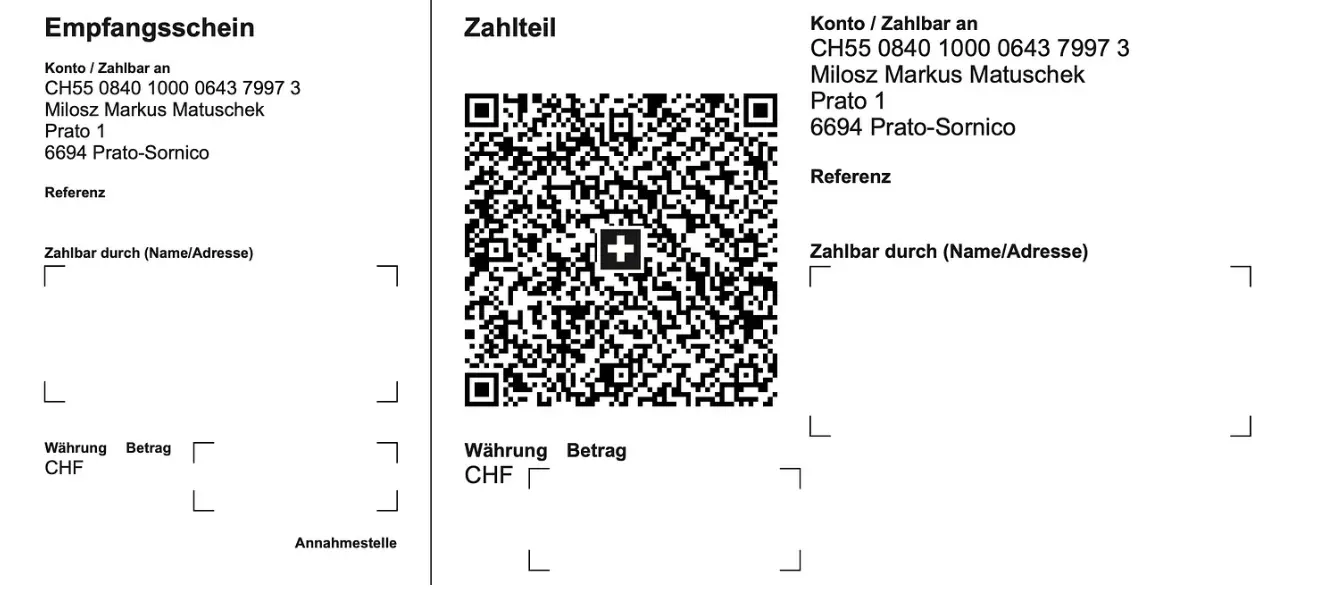
Für Einzahlungen in Euro:
Milosz Matuschek
IBAN DE 53710520500000814137
BYLADEM1TST
Sparkasse Traunstein-Trostberg
Betreff: Friedenstaube
Wenn Sie auf anderem Wege beitragen wollen, schreiben Sie die Friedenstaube an: friedenstaube@pareto.space
Sie sind noch nicht auf Nostr and wollen die volle Erfahrung machen (liken, kommentieren etc.)? Zappen können Sie den Autor auch ohne Nostr-Profil! Erstellen Sie sich einen Account auf Start. Weitere Onboarding-Leitfäden gibt es im Pareto-Wiki.
-
 @ a4043831:3b64ac02
2025-05-31 10:20:02
@ a4043831:3b64ac02
2025-05-31 10:20:02Money can be complicated. You work hard, save diligently, and try to make smart choices. But when it comes to long-term financial security, is that enough? That’s where wealth management services come in. They help you plan, invest, and secure your financial future. But are they the right fit for you?
Let’s find out.
What Is Wealth Management?
Wealth management isn’t just about investing. It’s about creating a strategy that covers all aspects of your financial life—retirement, taxes, healthcare, and even the legacy you want to leave behind.
At Passive Capital Management, wealth management is designed to help you navigate life’s financial twists and turns with confidence. Whether you’re planning for retirement, growing your assets, or protecting what you’ve built, a structured approach can make all the difference.
Do You Need Wealth Management?
Not everyone needs a wealth manager. But if you answer “yes” to any of these questions, it might be time to consider it:
- Do you worry about outliving your retirement savings?
- Are you unsure how to structure your investments for long-term security?
- Do you want a plan that adapts as your life changes?
- Are tax implications of your income and investments confusing?
- Do you want to leave behind a financial legacy for your family?
If any of these concerns sound familiar, a wealth management service could help you create a roadmap for financial success.
The Key Benefits of Wealth Management
1. Retirement Planning: More Than Just Saving
Retirement isn’t just about putting money aside. It’s about ensuring you can live comfortably once your regular income stops. Passive Capital Management helps clients create a sustainable retirement strategy, ensuring they have enough to cover daily expenses, healthcare, and even the fun things—like travel or hobbies.
By assessing income sources like pensions, social security, and investments, they build a tailored plan that matches your lifestyle and long-term goals.
2. Investment Strategies: Making Your Money Work for You
Investing can feel overwhelming. Stocks, bonds, real estate—where do you even begin? Wealth management helps you make informed choices based on your risk tolerance, time horizon, and financial objectives.
Rather than chasing trends, a well-planned investment strategy focuses on steady, long-term growth while minimizing unnecessary risks.
3. Tax Planning: Keeping More of What You Earn
No one likes to pay more taxes than necessary. But without a strategy, you might be doing just that.
Wealth managers help structure your income, retirement withdrawals, and investments in a tax-efficient way. Whether it's maximizing tax-free accounts or minimizing liabilities, they ensure you keep more of what you’ve earned.
4. Healthcare and Long-Term Care Planning
As you age, healthcare becomes a bigger concern—and a bigger expense. Without proper planning, medical costs can quickly eat into your savings.
A solid financial plan includes strategies to manage these costs, whether through insurance, savings, or investment strategies. This way, you get the care you need without financial stress.
5. Estate and Legacy Planning
Do you want to leave something behind for your loved ones? Wealth management ensures your assets are distributed according to your wishes, minimizing tax burdens and avoiding unnecessary legal complications.
Whether you’re thinking about passing on wealth to family or contributing to a cause you care about, having a plan in place ensures your money makes the impact you want.
When Should You Start?
The best time to start planning? Yesterday. The second-best time? Today.
Wealth management isn’t just for retirees or the ultra-rich. It’s for anyone who wants financial security and a clear plan for the future. Whether you’re in your 30s and just starting to build wealth or in your 50s preparing for retirement, having expert guidance can help you make smarter financial decisions.
Final Thoughts: Is It Right for You?
If you want peace of mind about your financial future, wealth management might be a great fit. It helps you grow your money, protect your assets, and ensure a comfortable life—now and in the years to come.
At Passive Capital Management, the goal is simple: to help you achieve financial freedom with confidence. If that sounds like something you want, it might be time to explore how wealth management can work for you.
Ready to take the next step? Let’s talk.
-
 @ b1ddb4d7:471244e7
2025-05-31 14:00:50
@ b1ddb4d7:471244e7
2025-05-31 14:00:50This article was originally published on aier.org
Even after eleven years experience, and a per Bitcoin price of nearly $20,000, the incredulous are still with us. I understand why. Bitcoin is not like other traditional financial assets.
Even describing it as an asset is misleading. It is not the same as a stock, as a payment system, or a money. It has features of all these but it is not identical to them.
What Bitcoin is depends on its use as a means of storing and porting value, which in turn rests of secure titles to ownership of a scarce good. Those without experience in the sector look at all of this and get frustrated that understanding why it is valuable is not so easy to grasp.
In this article, I’m updating an analysis I wrote six years ago. It still holds up. For those who don’t want to slog through the entire article, my thesis is that Bitcoin’s value obtains from its underlying technology, which is an open-source ledger that keeps track of ownership rights and permits the transfer of these rights. Bitcoin managed to bundle its unit of account with a payment system that lives on the ledger. That’s its innovation and why it obtained a value and that value continues to rise.
Consider the criticism offered by traditional gold advocates, who have, for decades, pushed the idea that sound money must be backed by something real, hard, and independently valuable. Bitcoin doesn’t qualify, right? Maybe it does.
Bitcoin first emerged as a possible competitor to national, government-managed money in 2009. Satoshi Nakamoto’s white paper was released October 31, 2008. The structure and language of this paper sent the message: This currency is for computer technicians, not economists nor political pundits. The paper’s circulation was limited; novices who read it were mystified.
But the lack of interest didn’t stop history from moving forward. Two months later, those who were paying attention saw the emergence of the “Genesis Block,” the first group of bitcoins generated through Nakamoto’s concept of a distributed ledger that lived on any computer node in the world that wanted to host it.
Here we are all these years later and a single bitcoin trades at $18,500. The currency is held and accepted by many thousands of institutions, both online and offline. Its payment system is very popular in poor countries without vast banking infrastructures but also in developed countries. And major institutions—including the Federal Reserve, the OECD, the World Bank, and major investment houses—are paying respectful attention and weaving blockchain technology into their operations.
Enthusiasts, who are found in every country, say that its exchange value will soar even more in the future because its supply is strictly limited and it provides a system vastly superior to government money. Bitcoin is transferred between individuals without a third party. It is relatively low-cost to exchange. It has a predictable supply. It is durable, fungible, and divisible: all crucial features of money. It creates a monetary system that doesn’t depend on trust and identity, much less on central banks and government. It is a new system for the digital age.
Hard lessons for hard money
To those educated in the “hard money” tradition, the whole idea has been a serious challenge. Speaking for myself, I had been reading about bitcoin for two years before I came anywhere close to understanding it. There was just something about the whole idea that bugged me. You can’t make money out of nothing, much less out of computer code. Why does it have value then? There must be something amiss. This is not how we expected money to be reformed.
There’s the problem: our expectations. We should have been paying closer attention to Ludwig von Mises’ theory of money’s origins—not to what we think he wrote, but to what he actually did write.
In 1912, Mises released The Theory of Money and Credit. It was a huge hit in Europe when it came out in German, and it was translated into English. While covering every aspect of money, his core contribution was in tracing the value and price of money—and not just money itself—to its origins. That is, he explained how money gets its price in terms of the goods and services it obtains. He later called this process the “regression theorem,” and as it turns out, bitcoin satisfies the conditions of the theorem.
Mises’ teacher, Carl Menger, demonstrated that money itself originates from the market—not from the State and not from social contract. It emerges gradually as monetary entrepreneurs seek out an ideal form of commodity for indirect exchange. Instead of merely bartering with each other, people acquire a good not to consume, but to trade. That good becomes money, the most marketable commodity.
But Mises added that the value of money traces backward in time to its value as a bartered commodity. Mises said that this is the only way money can have value.
The theory of the value of money as such can trace back the objective exchange value of money only to that point where it ceases to be the value of money and becomes merely the value of a commodity…. If in this way we continually go farther and farther back we must eventually arrive at a point where we no longer find any component in the objective exchange value of money that arises from valuations based on the function of money as a common medium of exchange; where the value of money is nothing other than the value of an object that is useful in some other way than as money…. Before it was usual to acquire goods in the market, not for personal consumption, but simply in order to exchange them again for the goods that were really wanted, each individual commodity was only accredited with that value given by the subjective valuations based on its direct utility.
Mises’ explanation solved a major problem that had long mystified economists. It is a narrative of conjectural history, and yet it makes perfect sense. Would salt have become money had it otherwise been completely useless? Would beaver pelts have obtained monetary value had they not been useful for clothing? Would silver or gold have had money value if they had no value as commodities first? The answer in all cases of monetary history is clearly no. The initial value of money, before it becomes widely traded as money, originates in its direct utility. It’s an explanation that is demonstrated through historical reconstruction. That’s Mises’ regression theorem.
Bitcoin’s Use Value
At first glance, bitcoin would seem to be an exception. You can’t use a bitcoin for anything other than money. It can’t be worn as jewelry. You can’t make a machine out of it. You can’t eat it or even decorate with it. Its value is only realized as a unit that facilitates indirect exchange. And yet, bitcoin already is money. It’s used every day. You can see the exchanges in real time. It’s not a myth. It’s the real deal.
It might seem like we have to choose. Is Mises wrong? Maybe we have to toss out his whole theory. Or maybe his point was purely historical and doesn’t apply in the future of a digital age. Or maybe his regression theorem is proof that bitcoin is just an empty mania with no staying power, because it can’t be reduced to its value as a useful commodity.
And yet, you don’t have to resort to complicated monetary theory in order to understand the sense of alarm surrounding bitcoin. Many people, as I did, just have a feeling of uneasiness about a money that has no basis in anything physical. Sure, you can print out a bitcoin on a piece of paper, but having a paper with a QR code or a public key is not enough to relieve that sense of unease.
How can we resolve this problem? In my own mind, I toyed with the issue for more than a year. It puzzled me. I wondered if Mises’ insight applied only in a pre-digital age. I followed the speculations online that the value of bitcoin would be zero but for the national currencies into which it is converted. Perhaps the demand for bitcoin overcame the demands of Mises’ scenario because of a desperate need for something other than the dollar.
As time passed—and I read the work of Konrad Graf, Peter Surda, and Daniel Krawisz—finally the resolution came. Bitcoin is both a payment system and a money. The payment system is the source of value, while the accounting unit merely expresses that value in terms of price. The unity of money and payment is its most unusual feature, and the one that most commentators have had trouble wrapping their heads around.
We are all used to thinking of currency as separate from payment systems. This thinking is a reflection of the technological limitations of history. There is the dollar and there are credit cards. There is the euro and there is PayPal. There is the yen and there are wire services. In each case, money transfer relies on third-party service providers. In order to use them, you need to establish what is called a “trust relationship” with them, which is to say that the institution arranging the deal has to believe that you are going to pay.
This wedge between money and payment has always been with us, except for the case of physical proximity.
If I give you a dollar for your pizza slice, there is no third party. But payment systems, third parties, and trust relationships become necessary once you leave geographic proximity. That’s when companies like Visa and institutions like banks become indispensable. They are the application that makes the monetary software do what you want it to do.
The hitch is that
-
 @ 0971cd37:53c969f4
2025-05-31 13:30:33
@ 0971cd37:53c969f4
2025-05-31 13:30:33ขุด Bitcoin ด้วยเครื่อง ASIC เช่น Antminer หรือ Whatsminer นั้น "อุณหภูมิ" ถือเป็นหนึ่งในปัจจัยที่สำคัญที่สุดที่มีผลต่อ ประสิทธิภาพ, ความเสถียร, และ อายุการใช้งาน ของเครื่อง หากอุณหภูมิสูงเกินไป อาจทำให้แรงขุดลดลง

ตัวอย่าง Antminer S21 Pro อุณหภูมิ Chip Temp (Tuning Power)

ตัวอย่าง WhatsMiner M30S++ อุณหภูมิ Chip Temp (Tuning Power)

📌 จุดวัดอุณหภูมิที่สำคัญ Chip Temp: อุณหภูมิของชิป ASIC โดยตรง เป็นค่าหลักที่ใช้ประเมินความร้อน
Inlet Temp: อุณหภูมิของอากาศที่เข้าเครื่อง ควรต่ำกว่า 35-38°C
Outlet Temp: อุณหภูมิของลมร้อนที่ออกจากเครื่อง อาจสูงถึง 60–80°C ได้
ตัวอย่าง Antminer S21 Pro (Tuning Power)

แนวทางการจัดการความร้อน
-
ทำความสะอาดพัดลม ฮีตซิงค์ และ ซิลิโคนระบายความร้อน 6 เดือน/ครั้ง
-
ใช้ระบบ พัดลมดูดลมออก หลักการ Inlet และ Outlet หรือ custom water cooling kit (สายแนว hydro)
-
วางเครื่องในที่ที่มีอากาศถ่ายเทดี อุณหภูมิแวดล้อมไม่เกิน 30–35°C หลีกเลี่ยงการวางเครื่องในพื้นที่อับ เช่น ห้องปิด
หากไม่ทำความสะอาดเครื่องขุด Bitcoin เป็นระยะ โดยเฉพาะฝุ่นที่สะสมในพัดลมและฮีตซิงก์ อาจเกิดผลเสียหลายด้าน
-
ความร้อนสะสม อุณหภูมิสูงเกินไป ฝุ่นจะอุดตันช่องลม ทำให้อากาศไหลเวียนไม่สะดวกพัดลมระบายความร้อนไม่สามารถพาอากาศร้อนออกได้อย่างมีประสิทธิภาพส่งผลให้ อุณหภูมิของชิป (Chip Temp) พุ่งสูงขึ้นเรื่อย ๆ
-
เครื่องทำงานช้าลง เมื่ออุณหภูมิเกิน 80–85°C ระบบจะ ลด Hashrate อัตโนมัติ เพื่อป้องกันความเสียหาย กำลังขุดลดลง รายได้จากการขุดก็ลดลงด้วย
-
เสี่ยงต่อการเสียหายของฮาร์ดแวร์ หากปล่อยให้ความร้อนสะสมจนเกิน 90°C บอร์ดอาจไหม้ ชิป ASIC เสียหายถาวร พัดลมทำงานหนักเกินไป จนมอเตอร์พัง
-
อายุการใช้งานเครื่องสั้นลง เครื่องที่ร้อนจัดและสะสมฝุ่นจะเสื่อมเร็วกว่าเครื่องที่ได้รับการดูแล อาจใช้ได้ไม่ถึงปี
-
ค่าซ่อม/เปลี่ยนอุปกรณ์สูง หากต้องเปลี่ยนบอร์ด ASIC หรือ พัดลม จะมีค่าใช้จ่ายหลักพันถึงหลักหมื่นบาทต่อเครื่อง ในบางกรณี อาจต้องเปลี่ยนทั้งเครื่องหากเสียหายหนัก
-
-
 @ 8173f6e1:e488ac0f
2025-05-31 09:25:14
@ 8173f6e1:e488ac0f
2025-05-31 09:25:14Start writing your article [CoreNostrService] Publish results: 6/6 successful, 0 paid relays skipped core-service.ts:174 🗑️ [DEBUG] Deletion event published: ef7f0123a7b6a750bed1806cf102bf919eb15b61c4c39b94e65ce2bfd2c25761 core-service.ts:174 ✅ Published deletion event for original article core-service.ts:174 🗑️ Removing old article from local state: article_1748683257035_1lnua6yia core-service.ts:174 🗑️ [Redux] Deleting article: "create article 1" [article_1748683257035_1lnua6yia] core-service.ts:174 ✅ [Redux] Article deleted. Remaining: 1 core-service.ts:174 🔄 Refreshing articles list to reflect deletion... core-service.ts:174 [useArticles] State updated: {totalArticles: 1, drafts: 0, published: 1, draftIds: Array(0)} core-service.ts:174 [useArticles] State updated: {totalArticles: 1, drafts: 0, published: 1, draftIds: Array(0)} core-service.ts:174 [ArticlesPage] Component state: {draftsCount: 0, publishedCount: 1, activeTab: 'published', selectedDraftForViewing: undefined} core-service.ts:174 [CoreNostrService] Query subscription closed: closed by caller,closed by caller,closed by caller,closed by caller,closed by caller,closed by caller, returning 3 events core-service.ts:174 [useArticles] State updated: {totalArticles: 3, drafts: 0, published: 3, draftIds: Array(0)} core-service.ts:174 [ArticlesPage] Component state: {draftsCount: 0, publishedCount: 3, activeTab: 'published', selectedDraftForViewing: undefined} core-service.ts:174 [CoreNostrService] Query subscription closed: closed by caller,closed by caller,closed by caller,closed by caller,closed by caller,closed by caller, returning 2 events core-service.ts:174 [EventsAPI] Querying events with filters: [{…}] core-service.ts:174 [CoreNostrService] Query subscription closed: closed by caller,closed by caller,closed by caller,closed by caller,closed by caller,closed by caller, returning 56 events core-service.ts:174 [EventsAPI] Querying events with filters: [{…}] core-service.ts:174 [CoreNostrService] Query subscription closed: closed by caller,closed by caller,closed by caller,closed by caller,closed by caller,closed by caller, returning 56 events core-service.ts:174 [EventsAPI] Querying events with filters: [{…}] core-service.ts:174 [CoreNostrService] Query subscription closed: closed by caller,closed by caller,closed by caller,closed by caller,closed by caller,closed by caller, returning 56 events core-service.ts:174 [EventsAPI] Querying events with filters: [{…}] core-service.ts:174 [CoreNostrService] Query subscription closed: closed by caller,closed by caller,closed by caller,closed by caller,closed by caller,closed by caller, returning 56 eventshere...
-
 @ 7f6db517:a4931eda
2025-05-31 13:01:35
@ 7f6db517:a4931eda
2025-05-31 13:01:35

"Privacy is necessary for an open society in the electronic age. Privacy is not secrecy. A private matter is something one doesn't want the whole world to know, but a secret matter is something one doesn't want anybody to know. Privacy is the power to selectively reveal oneself to the world." - Eric Hughes, A Cypherpunk's Manifesto, 1993
Privacy is essential to freedom. Without privacy, individuals are unable to make choices free from surveillance and control. Lack of privacy leads to loss of autonomy. When individuals are constantly monitored it limits our ability to express ourselves and take risks. Any decisions we make can result in negative repercussions from those who surveil us. Without the freedom to make choices, individuals cannot truly be free.
Freedom is essential to acquiring and preserving wealth. When individuals are not free to make choices, restrictions and limitations prevent us from economic opportunities. If we are somehow able to acquire wealth in such an environment, lack of freedom can result in direct asset seizure by governments or other malicious entities. At scale, when freedom is compromised, it leads to widespread economic stagnation and poverty. Protecting freedom is essential to economic prosperity.
The connection between privacy, freedom, and wealth is critical. Without privacy, individuals lose the freedom to make choices free from surveillance and control. While lack of freedom prevents individuals from pursuing economic opportunities and makes wealth preservation nearly impossible. No Privacy? No Freedom. No Freedom? No Wealth.
Rights are not granted. They are taken and defended. Rights are often misunderstood as permission to do something by those holding power. However, if someone can give you something, they can inherently take it from you at will. People throughout history have necessarily fought for basic rights, including privacy and freedom. These rights were not given by those in power, but rather demanded and won through struggle. Even after these rights are won, they must be continually defended to ensure that they are not taken away. Rights are not granted - they are earned through struggle and defended through sacrifice.
If you found this post helpful support my work with bitcoin.

-
 @ 6a6be47b:3e74e3e1
2025-05-31 12:18:17
@ 6a6be47b:3e74e3e1
2025-05-31 12:18:17Hi frens! 🦖
📖 How’s your weekend starting out? I’ve been painting and reading, and I’m super excited to share that I finally finished Jurassic Park by Michael Crichton!
😜 I’m still working on the art of convincing people to read a book without spoiling it, but I’ll do my best here.
📕 Let me just say: the book is so much better than the movie (and that’s saying something, because the movie will always have a special place in my heart). The novel is basically one cliffhanger after another—I was absolutely hooked! There’s nonstop adventure and so much tension as the characters dodge dinosaurs at every turn.
I was pleasantly surprised by how the characters react to the dinosaurs in the book. I love Ian Malcolm’s character even more here—his warnings about the park being a disaster waiting to happen are even sharper and more compelling. I thought Dr. Grant would come to the same conclusion as Malcolm a bit sooner, but as a paleontologist, he’s understandably in awe—this is the pinnacle of his career, after all! Unlike Malcolm, he has less time to process the reality of prehistoric creatures walking the earth again.
The characters are all a bit different (sometimes a LOT different) from their movie versions, but it works so well. If I could change one thing, I would have loved to see Dr. Sattler play a bigger role throughout the novel.
📝 All in all, I’m so glad I finally read it. There’s action, adventure, dinosaurs, humans being humans, and a sprinkle of science and deep questions about the consequences of our actions. I was hooked from start to finish.
If you haven’t read it yet, I hope you give yourself the chance—don’t wait as long as I did!
See you later, alligator 🐊
Godspeed! By the way, I wrote and painted some dinosaurs here 👀 just in case you want to know more about dinosaurs, just like it happened to me!
https://stacker.news/items/993455
-
 @ 17e2889f:a8fbe515
2025-05-31 09:14:33
@ 17e2889f:a8fbe515
2025-05-31 09:14:33More content will come soon!
Headline
-
 @ 8bad92c3:ca714aa5
2025-05-31 12:01:38
@ 8bad92c3:ca714aa5
2025-05-31 12:01:38Marty's Bent

It's been a pretty historic week for the United States as it pertains to geopolitical relations in the Middle East. President Trump and many members of his administration, including AI and Crypto Czar David Sacks and Treasury Secretary Scott Bessent, traveled across the Middle East making deals with countries like Qatar, Saudi Arabia, the United Arab Emirates, Syria, and others. Many are speculating that Iran may be included in some behind the scenes deal as well. This trip to the Middle East makes sense considering the fact that China is also vying for favorable relationships with those countries. The Middle East is a power player in the world, and it seems pretty clear that Donald Trump is dead set on ensuring that they choose the United States over China as the world moves towards a more multi-polar reality.
Many are calling the events of this week the Riyadh Accords. There were many deals that were struck in relation to artificial intelligence, defense, energy and direct investments in the United States. A truly prolific power play and demonstration of deal-making ability of Donald Trump, if you ask me. Though I will admit some of the numbers that were thrown out by some of the countries were a bit egregious. We shall see how everything plays out in the coming years. It will be interesting to see how China reacts to this power move by the United States.
While all this was going on, there was something happening back in the United States that many people outside of fringe corners of FinTwit are not talking about, which is the fact that the 10-year and 30-year U.S. Treasury bond yields are back on the rise. Yesterday, they surpassed the levels of mid-April that caused a market panic and are hovering back around levels that have not been seen since right before Donald Trump's inauguration.


I imagine that there isn't as much of an uproar right now because I'm pretty confident the media freakouts we were experiencing in mid-April were driven by the fact that many large hedge funds found themselves off sides of large levered basis trades. I wouldn't be surprised if those funds have decreased their leverage in those trades and bond yields being back to mid-April levels is not affecting those funds as much as they were last month. But the point stands, the 10-year and 30-year yields are significantly elevated with the 30-year approaching 5%. Regardless of the deals that are currently being made in the Middle East, the Treasury has a big problem on its hands. It still has to roll over many trillions worth of debt over over the next few years and doing so at these rates is going to be massively detrimental to fiscal deficits over the next decade. The interest expense on the debt is set to explode in the coming years.
On that note, data from the first quarter of 2025 has been released by the government and despite all the posturing by the Trump administration around DOGE and how tariffs are going to be beneficial for the U.S. economy, deficits are continuing to explode while the interest expense on the debt has definitively surpassed our annual defense budget.

via Charlie Bilello

via Mohamed Al-Erian
To make matters worse, as things are deteriorating on the fiscal side of things, the U.S. consumer is getting crushed by credit. The 90-plus day delinquency rates for credit card and auto loans are screaming higher right now.

via TXMC
One has to wonder how long all this can continue without some sort of liquidity crunch. Even though equities markets have recovered from their post-Liberation Day month long bear market, I would not be surprised if what we're witnessing is a dead cat bounce that can only be continued if the money printers are turned back on. Something's got to give, both on the fiscal side and in the private markets where the Common Man is getting crushed because he's been forced to take on insane amounts of debt to stay afloat after years of elevated levels of inflation. Add on the fact that AI has reached a state of maturity that will enable companies to replace their current meat suit workers with an army of cheap, efficient and fast digital workers and it isn't hard to see that some sort of employment crisis could be on the horizon as well.
Now is not the time to get complacent. While I do believe that the deals that are currently being made in the Middle East are probably in the best interest of the United States as the world, again, moves toward a more multi-polar reality, we are facing problems that one cannot simply wish away. They will need to be confronted. And as we've seen throughout the 21st century, the problems are usually met head-on with a money printer.
I take no pleasure in saying this because it is a bit uncouth to be gleeful to benefit from the strife of others, but it is pretty clear to me that all signs are pointing to bitcoin benefiting massively from everything that is going on. The shift towards a more multi-polar world, the runaway debt situation here in the United States, the increasing deficits, the AI job replacements and the consumer credit crisis that is currently unfolding, All will need to be "solved" by turning on the money printers to levels they've never been pushed to before.
Weird times we're living in.
China's Manufacturing Dominance: Why It Matters for the U.S.
In my recent conversation with Lyn Alden, she highlighted how China has rapidly ascended the manufacturing value chain. As Lyn pointed out, China transformed from making "sneakers and plastic trinkets" to becoming the world's largest auto exporter in just four years. This dramatic shift represents more than economic success—it's a strategic power play. China now dominates solar panel production with greater market control than OPEC has over oil and maintains near-monopoly control of rare earth elements crucial for modern technology.
"China makes like 10 times more steel than the United States does... which is relevant in ship making. It's relevant in all sorts of stuff." - Lyn Alden
Perhaps most concerning, as Lyn emphasized, is China's financial leverage. They hold substantial U.S. assets that could be strategically sold to disrupt U.S. treasury market functioning. This combination of manufacturing dominance, resource control, and financial leverage gives China significant negotiating power in any trade disputes, making our attempts to reshoring manufacturing all the more challenging.
Check out the full podcast here for more on Triffin's dilemma, Bitcoin's role in monetary transition, and the energy requirements for rebuilding America's industrial base.
Headlines of the Day
Financial Times Under Fire Over MicroStrategy Bitcoin Coverage - via X
Trump in Qatar: Historic Boeing Deal Signed - via X
Get our new STACK SATS hat - via tftcmerch.io
Johnson Backs Stock Trading Ban; Passage Chances Slim - via X
Take the First Step Off the Exchange
Bitkey is an easy, secure way to move your Bitcoin into self-custody. With simple setup and built-in recovery, it’s the perfect starting point for getting your coins off centralized platforms and into cold storage—no complexity, no middlemen.
Take control. Start with Bitkey.
Use the promo code *“TFTC20”* during checkout for 20% off
Ten31, the largest bitcoin-focused investor, has deployed 158,469 sats | $150.00M across 30+ companies through three funds. I am a Managing Partner at Ten31 and am very proud of the work we are doing. Learn more at ten31.vc/invest.
Final thought...
Building things of value is satisfying.
Get this newsletter sent to your inbox daily: https://www.tftc.io/bitcoin-brief/
Subscribe to our YouTube channels and follow us on Nostr and X:
@media screen and (max-width: 480px) { .mobile-padding { padding: 10px 0 !important; } .social-container { width: 100% !important; max-width: 260px !important; } .social-icon { padding: 0 !important; } .social-icon img { height: 32px !important; width: 32px !important; } .icon-cell { padding: 0 4px !import
-
 @ 9ca447d2:fbf5a36d
2025-05-31 12:01:03
@ 9ca447d2:fbf5a36d
2025-05-31 12:01:03Wall Street is warming up to Bitcoin and getting closer and closer to it.
Cantor Fitzgerald, one of the oldest and most respected investment banks on Wall Street, has launched a $2 billion bitcoin-backed lending program.
They’ve reportedly already done their first deals, lending to two big digital asset companies: FalconX and Maple Finance.
This is a big step in connecting traditional finance to the fast-moving world of Bitcoin.
Cantor’s new service allows big investors, hedge funds and asset managers, to borrow money using bitcoin as collateral.
This is a game changer for institutions that hold bitcoin, as they can now access liquidity without having to sell their assets.
“Institutions holding bitcoin are looking to broaden their access to diverse funding sources,” said Christian Wall, co-CEO and global head of fixed income at Cantor Fitzgerald.
“And we are excited to support their liquidity needs to help them drive long term growth and success.”
The loans are not speculative or unsecured.
They are structured like traditional finance deals, backed by the borrower’s bitcoin. This reduces the risk for Cantor while giving bitcoin-holding companies new ways to grow and operate.
The first recipients of Cantor’s lending program are FalconX, a digital asset brokerage, and Maple Finance, a blockchain-based lending platform.
FalconX confirmed they secured a credit facility of over $100 million. Maple Finance also received the first tranche of their loan from Cantor.
This comes at a time when the bitcoin lending space is recovering after a tough period. Several big firms went under in 2022 and investor confidence was shaken.
Now with traditional finance on board, bitcoin-backed lending has returned. According to Galaxy Research the total size of the digital asset lending market grew to $36.5 billion in Q4 2024.
Cantor’s move into bitcoin-backed lending isn’t new. They announced their plans in July 2024 and have been building their presence in the Bitcoin space since then.
Earlier this year, they partnered with Tether, SoftBank and Bitfinex to launch Twenty One Capital, a $3.6 billion fund to buy over 42,000 bitcoin.
In May 2025 Cantor Equity Partners merged with Twenty One Capital and bought nearly $459 million worth of bitcoin.
They also own around $1.9 billion in shares of Strategy, a company that holds a lot of bitcoin. Clearly Cantor believes in bitcoin as a long-term asset.
Cantor is also a big player in the stablecoin space.
They manage U.S. Treasury reserves for Tether, the company behind the $142 billion USDT stablecoin. This adds another layer of trust and credibility to Cantor’s digital asset involvement.
To secure the bitcoin used as collateral, Cantor has partnered with digital asset custodians Anchorage Digital and Copper.co.
These companies are known for their robust security and institutional-grade infrastructure. Cantor hasn’t disclosed loan terms or interest rates but confirmed the lending will follow current regulations.
This also shows how traditional financial players are embracing DeFi.
Maple Finance for example allows undercollateralized lending using blockchain. By backing companies like Maple, Cantor is innovating while still having control and compliance.
For years, bitcoin-backed loans were only available through digital-asset-native companies like Genesis, BlockFi, and Ledn.
These loans were mostly for smaller clients and retail investors. But with Cantor’s entry, the scale and professionalism of bitcoin lending are expanding.
-
 @ 84b0c46a:417782f5
2025-05-31 09:11:23
@ 84b0c46a:417782f5
2025-05-31 09:11:23Simple Long Form Content Editor (NIP-23)
機能
-
nostr:npub1sjcvg64knxkrt6ev52rywzu9uzqakgy8ehhk8yezxmpewsthst6sw3jqcw や、 nostr:nevent1qvzqqqqqqypzq4jsz7zew5j7jr4pdfxh483nwq9vyw9ph6wm706sjwrzj2we58nqqyxhwumn8ghj77tpvf6jumt9qys8wumn8ghj7un9d3shjtt2wqhxummnw3ezuamfwfjkgmn9wshx5uqpr4mhxue69uhhyetvv9ujumn0wd68ytnhd9ex2erwv46zu6nsqyxhwumn8ghj7mn0wvhxcmmvqqsgcn99jyn5tevxz5zxsrkd7h0sx8fwnqztula423xh83j9wau7cms3vg9c7 のようにnostr:要素を挿入できる (メニューのNアイコンから挿入またはnostr:note~~のように手動で入力)
-
:monoice:のようにカスタム絵文字を挿入できる(メニューの🙂アイコンから)
:monopaca_kao:
:kubipaca_karada:
- 新規記事作成と、既存記事の修正ができる
やることやったこと
-
[x] nostr:を投稿するときにtagにいれる
-
[x] 画像をアップロードできるようにする(NIP-96)
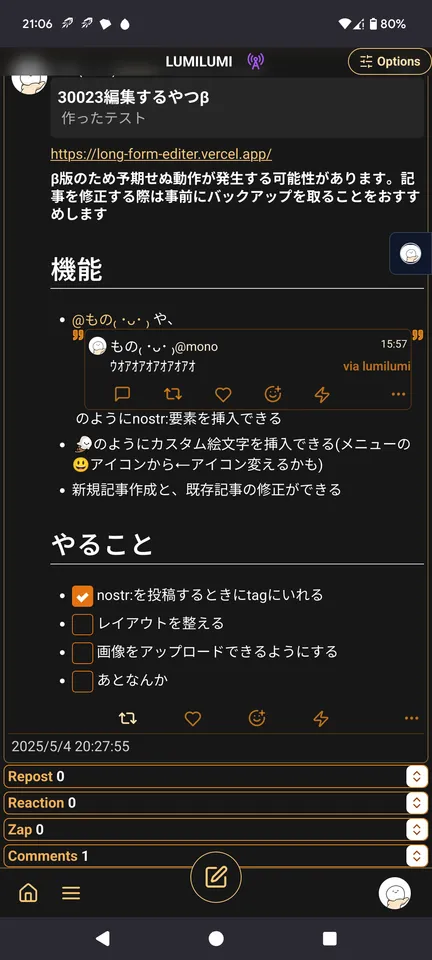 できる
できる - [x] 投稿しましたログとかをトースト的なやつでだすようにする
- [ ] レイアウトを整える
- [ ] あとなんか
test
nostr:naddr1qvzqqqr4gupzpp9sc34tdxdvxh4jeg5xgu9ctcypmvsg0n00vwfjydkrjaqh0qh4qqxnzde58q6njvpkxqersv3ejxw9x9
-
-
 @ 7f6db517:a4931eda
2025-05-31 11:01:19
@ 7f6db517:a4931eda
2025-05-31 11:01:19
What is KYC/AML?
- The acronym stands for Know Your Customer / Anti Money Laundering.
- In practice it stands for the surveillance measures companies are often compelled to take against their customers by financial regulators.
- Methods differ but often include: Passport Scans, Driver License Uploads, Social Security Numbers, Home Address, Phone Number, Face Scans.
- Bitcoin companies will also store all withdrawal and deposit addresses which can then be used to track bitcoin transactions on the bitcoin block chain.
- This data is then stored and shared. Regulations often require companies to hold this information for a set number of years but in practice users should assume this data will be held indefinitely. Data is often stored insecurely, which results in frequent hacks and leaks.
- KYC/AML data collection puts all honest users at risk of theft, extortion, and persecution while being ineffective at stopping crime. Criminals often use counterfeit, bought, or stolen credentials to get around the requirements. Criminals can buy "verified" accounts for as little as $200. Furthermore, billions of people are excluded from financial services as a result of KYC/AML requirements.
During the early days of bitcoin most services did not require this sensitive user data, but as adoption increased so did the surveillance measures. At this point, most large bitcoin companies are collecting and storing massive lists of bitcoiners, our sensitive personal information, and our transaction history.
Lists of Bitcoiners
KYC/AML policies are a direct attack on bitcoiners. Lists of bitcoiners and our transaction history will inevitably be used against us.
Once you are on a list with your bitcoin transaction history that record will always exist. Generally speaking, tracking bitcoin is based on probability analysis of ownership change. Surveillance firms use various heuristics to determine if you are sending bitcoin to yourself or if ownership is actually changing hands. You can obtain better privacy going forward by using collaborative transactions such as coinjoin to break this probability analysis.
Fortunately, you can buy bitcoin without providing intimate personal information. Tools such as peach, hodlhodl, robosats, azteco and bisq help; mining is also a solid option: anyone can plug a miner into power and internet and earn bitcoin by mining privately.
You can also earn bitcoin by providing goods and/or services that can be purchased with bitcoin. Long term, circular economies will mitigate this threat: most people will not buy bitcoin - they will earn bitcoin - most people will not sell bitcoin - they will spend bitcoin.
There is no such thing as KYC or No KYC bitcoin, there are bitcoiners on lists and those that are not on lists.
If you found this post helpful support my work with bitcoin.

-
 @ 57d1a264:69f1fee1
2025-05-31 06:19:55
@ 57d1a264:69f1fee1
2025-05-31 06:19:55Knowledge- Pattern knowledge- Trend knowledge- A desire to learn more- A desire to explore good designExperience- A sense of where to start/what will work- Good taste- Good judge of your own design and others’- Comfortable working in many styles- Willing to have a strong opinionCreativity- Novel ideas- Exhaustive exploration of options/approaches- Exhaustive iterationQuality- A preference for quality- A preference to test designs- Open to feedback- Able to balance classical and expressive aesthetics- Able to balance aesthetics and usability- Obsessed with details- RigorousTechnical skills- Good typography- Good composition/layout- Good colour choices- Good at some associated skills (e.g. prototyping, animation, imagery, writing)- Tool expertiseWider picture- Informed by understanding of the product (e.g. research)- System thinking (how the work is connected to other things)- Product thinking (what makes a successful product)- Development thinking (how a design might be implemented)- Practical mindset when necessary- Believes in importance of accessibilityCommunication- Able to articulate your design “feelings”- Able to explain design principles to others- Can clearly document/explain the design (e.g. specifications, mockups)- Good relationship-building, especially with developers- Able to “sell” a design idea
Read more aboutAnthony Hobday.https://stacker.news/items/993319
-
 @ 7f6db517:a4931eda
2025-05-31 11:01:17
@ 7f6db517:a4931eda
2025-05-31 11:01:17
Bank run on every crypto bank then bank run on every "real" bank.
— ODELL (@ODELL) December 14, 2022
Good morning.
It looks like PacWest will fail today. It will be both the fifth largest bank failure in US history and the sixth major bank to fail this year. It will likely get purchased by one of the big four banks in a government orchestrated sale.
March 8th - Silvergate Bank
March 10th - Silicon Valley Bank
March 12th - Signature Bank
March 19th - Credit Suisse
May 1st - First Republic Bank
May 4th - PacWest Bank?PacWest is the first of many small regional banks that will go under this year. Most will get bought by the big four in gov orchestrated sales. This has been the playbook since 2008. Follow the incentives. Massive consolidation across the banking industry. PacWest gonna be a drop in the bucket compared to what comes next.
First, a hastened government led bank consolidation, then a public/private partnership with the remaining large banks to launch a surveilled and controlled digital currency network. We will be told it is more convenient. We will be told it is safer. We will be told it will prevent future bank runs. All of that is marketing bullshit. The goal is greater control of money. The ability to choose how we spend it and how we save it. If you control the money - you control the people that use it.
If you found this post helpful support my work with bitcoin.

-
 @ 7f6db517:a4931eda
2025-05-31 11:01:17
@ 7f6db517:a4931eda
2025-05-31 11:01:17
People forget Bear Stearns failed March 2008 - months of denial followed before the public realized how bad the situation was under the surface.
Similar happening now but much larger scale. They did not fix fundamental issues after 2008 - everything is more fragile.
The Fed preemptively bailed out every bank with their BTFP program and First Republic Bank still failed. The second largest bank failure in history.
There will be more failures. There will be more bailouts. Depositors will be "protected" by socializing losses across everyone.
Our President and mainstream financial pundits are currently pretending the banking crisis is over while most banks remain insolvent. There are going to be many more bank failures as this ponzi system unravels.
Unlike 2008, we have the ability to opt out of these broken and corrupt institutions by using bitcoin. Bitcoin held in self custody is unique in its lack of counterparty risk - you do not have to trust a bank or other centralized entity to hold it for you. Bitcoin is also incredibly difficult to change by design since it is not controlled by an individual, company, or government - the supply of dollars will inevitably be inflated to bailout these failing banks but bitcoin supply will remain unchanged. I do not need to convince you that bitcoin provides value - these next few years will convince millions.
If you found this post helpful support my work with bitcoin.

-
 @ 3770c235:16042bcc
2025-05-31 05:30:22
@ 3770c235:16042bcc
2025-05-31 05:30:22In a world full of constant stimulation, overflowing schedules, and ever-growing to-do lists, our physical spaces often bear the brunt of our busy lives. The clutter in our homes and workplaces can slowly pile up until it becomes overwhelming, contributing not only to a chaotic environment but also to increased levels of stress and anxiety.
But what if the simple act of removing junk and organizing your space could bring clarity to your mind, lift your mood, and create a lasting positive impact on your mental health? Decluttering isn't just about aesthetics—it’s about mental wellness. Junk removal can be a powerful tool to help you take control of your space and, in turn, your mindset. Let’s explore how clearing the clutter can boost mental health and transform your daily life.
The Psychological Impact of Clutter Clutter isn’t just stuff—it’s unmade decisions and postponed actions. Psychologists have long understood the connection between our environment and our emotional well-being. Clutter bombards our minds with excessive stimuli, making it difficult to focus or relax. It sends a signal that work is never done, which can lead to chronic stress.
A study published in the Personality and Social Psychology Bulletin found that women who described their homes as cluttered or full of unfinished projects were more likely to be fatigued and depressed than those who described their homes as restorative and restful. The same study found that cortisol levels—the body’s main stress hormone—were significantly higher in women living in cluttered environments.
Additionally, according to a UCLA study, families living in homes with a high density of household objects experienced increased levels of anxiety. The psychological toll of clutter isn’t minor; it has real, measurable effects on our mental health.
Junk Removal as an Act of Self-Care Self-care isn't just about spa days or bubble baths—it's about creating systems and habits that support your well-being. Removing clutter and excess junk from your living or working space can be an essential act of self-care, sending your brain a clear message: you deserve a clean, peaceful environment.
The physical act of junk removal creates a sense of accomplishment. Whether it’s donating unused clothing, throwing away broken items, or clearing out the garage, every bag removed is a step toward emotional relief. The process can be surprisingly cathartic, especially for those dealing with stress, grief, or major life transitions.
Why Clutter Creates Mental Clutter Clutter and disorganization can reduce our ability to process information. Researchers at Princeton University Neuroscience Institute found that physical clutter competes for your attention, resulting in decreased performance and increased stress. When your environment is chaotic, your mind tends to mimic that chaos.
Every time you walk past a cluttered desk or disorganized closet, your brain registers it as a task you haven't completed. Over time, this leads to mental fatigue. You might find yourself feeling constantly behind, overwhelmed, or unable to concentrate—even when you're not consciously thinking about the mess.
On the flip side, a tidy, clutter-free environment can promote mental clarity, boost productivity, and help foster a greater sense of control and calm.
How Junk Removal Enhances Mood There’s a distinct emotional payoff to junk removal. Many people report feeling lighter, freer, and happier after decluttering a space. Here's why: 1. Reduces Anxiety and Stress Too much clutter can create a constant low-grade stress that gnaws away at your peace of mind. By physically removing items that no longer serve a purpose, you're also removing sources of tension. 2. Improves Focus and Productivity When your environment is clear, your mind follows suit. A cleaner space supports sharper thinking and better decision-making. Whether you're working from home or studying, a decluttered area can significantly enhance your ability to concentrate. 3. Boosts Self-Esteem Clutter can carry feelings of guilt or shame—reminders of undone tasks, unused purchases, or poor organizational habits. Taking the step to clean up can restore confidence and create a sense of achievement.
- Encourages Mindfulness Decluttering forces you to be present. You have to examine each item, reflect on its usefulness, and make a conscious decision about its place in your life. This process promotes mindfulness and intentional living.
The Decluttering Process: Step-by-Step for Mental Clarity If the idea of decluttering your entire home feels overwhelming, start small. Begin with one drawer, one shelf, or one room. Here's a practical approach to get started:
Step 1: Set a Clear Intention Know why you're decluttering. Is it to feel less stressed? To improve your focus? Having a specific goal will keep you motivated. Step 2: Sort Items into Categories Use the classic “keep, donate, toss” system. Be honest with yourself about what adds value to your life. Step 3: Focus on One Area at a Time Avoid jumping from room to room. Focus your energy on one space to see progress quickly and stay motivated.
Step 4: Remove the Junk Promptly Once you've sorted items for removal, don’t let them linger. Hire a junk removal service or take them to a donation center right away. Step 5: Maintain Your Space Set a monthly reminder to reassess clutter. Make it a habit, not a one-time task.
Professional Help: The Role of Junk Removal Services For some people, the physical and emotional burden of clearing out clutter is too overwhelming to tackle alone. This is where professional junk removal services come in. These services not only handle the heavy lifting but also offer a judgment-free way to transform your space quickly and efficiently. By outsourcing the task, you reduce stress and avoid decision fatigue. It’s a practical solution for busy professionals, seniors downsizing, or those recovering from emotional trauma like the loss of a loved one.
The mental relief from seeing a room go from chaotic to clean in just a few hours is worth the investment. Plus, many services are eco-friendly and donate reusable items to charities, adding another layer of purpose to the process.
Real-Life Impacts: Statistics that Speak Decluttering doesn’t just feel good—it’s backed by data. Consider this: • According to a study by the National Association of Professional Organizers, 54% of Americans are overwhelmed by clutter, and 78% have no idea what to do with it [source]. • A report from the Journal of Environmental Psychology found that people with clean homes are happier and more relaxed, with higher activity levels and lower levels of cortisol [source]. These statistics highlight how deeply our environment influences our emotional health—and how important it is to reclaim control of your space.
Decluttering in the Digital Age While physical clutter is the most obvious, digital clutter can also affect your mental state. Overflowing email inboxes, unorganized files, and constant notifications can leave you feeling scattered and distracted. Take time to regularly clean up your digital life by: • Unsubscribing from unwanted emails • Deleting unused apps • Organizing desktop files and folders • Turning off non-essential notifications Just like physical spaces, a clean digital environment supports a clearer, more focused mind.
When Clutter Signals Something Deeper While decluttering is beneficial, it’s important to recognize when excessive clutter or hoarding behavior may be a sign of deeper mental health issues. Conditions such as depression, anxiety, and obsessive-compulsive disorder (OCD) can manifest in the inability to discard items or maintain an organized space. If clutter feels insurmountable or leads to distress and dysfunction, it may be time to seek support from a mental health professional. Therapy can help address the root causes and develop strategies for long-term change.
Final Thoughts: Clearing the Path to Mental Well-Being Junk removal and decluttering may seem like simple tasks, but their effects on your mental health can be profound. By reducing chaos in your environment, you invite peace, focus, and emotional clarity into your life. Whether you choose to tackle the clutter yourself or enlist the help of professionals, taking the first step is often the hardest—and the most transformative. Your environment is a mirror of your mind. Clear the clutter, and you’ll often find that clarity, joy, and calm aren’t far behind.
-
 @ c230edd3:8ad4a712
2025-05-31 01:51:38
@ c230edd3:8ad4a712
2025-05-31 01:51:38Chef's notes
Most Santa Maria tri tip roast recipes call for red wine vinegar and dijon mustard. I prefer other ingredients in place of those, but should you like those flavors and textures, they are more traditional.
Keep in mind when cooking and slicing, that the grain of tri-tip runs in 3 directions and the meat is unevenly thick. Pulling the roast when the thin end achieves well done, the thicker end will be a nice medium rare. When slicing, change direction to cut against the grain as you transition through for the most tender outcome.
Details
- ⏲️ Prep time: 10 minutes
- 🍳 Cook time: 1 hour ( with grill heating time)
- 🍽️ Servings: 4-6
Ingredients
- 1.5 - 2 lb Tri-Tip Roast
- 1 Tbsp Kosher Salt
- 1 tsp Black Pepper
- 1 tsp Cayanne Pepper ( substitute all or some with smoked paprika for a milder taste)
- 1 tsp Garlic Powder
- 1 tsp Onion Powder
- 1 Tbsp Rosemary
- 2 Tbsp Stone Ground Mustard
- 1 Tbsp Rice Vinegar
- 2-3 Cloves Garlic, Minced
Directions
- Mix all dry spices.
- Pat the roast dry and coat on all sides with seasdoning mix.
- Cover loosely and allow to sit in fridge for 8-12 hours.
- Preheat grill to 475 degrees F, allow meat to sit at room temp during this process.
- Mix vinegar, mustard, and minced garlic.
- Place meat on hot grill, fat side down and coat the upward side with mustard mix
- Grill approximately 7-10 minutes.
- Flip meat, repeat coating and grilling.
- Flip once more and grill for 2-3 minutes to caramelize the glaze and until the fat begins to render.
- Remove from grill and let the roast rest for 5 minutes before slicing,
- Serve with grilled veggies or any side of your choice. This is a bit spicy so it goes well with a salsa fresca and tortillas, too.
-
 @ eb0157af:77ab6c55
2025-05-31 11:01:02
@ eb0157af:77ab6c55
2025-05-31 11:01:02Block’s hardware wallet sparks debate between security and borderline compromises.
The debate ignited after Jack Dorsey publicly supported the superiority of “seedless” wallets over traditional solutions on X.
seedless is safer https://t.co/MvjmFcQE8k
— jack (@jack) May 27, 2025
The Twitter co-founder and Block CEO sustained this by promoting Bitkey, a company that completely eliminates seed phrases, aiming to simplify the user experience and improve security through different recovery options.
The Bitkey model
Bitkey represents a different solution compared to the traditional approach to bitcoin custody. Instead of relying on a single seed phrase, the system implements a 2-of-3 multisig scheme that distributes security across three distinct keys:
- Hardware key: protected by biometric fingerprint on the physical device;
- Mobile key: stored in the smartphone app;
- Server key: managed by Block’s servers.
Any transaction requires two of the three signatures, eliminating the single point of failure represented by traditional seed phrases, the company claims. In its official documents, Bitkey explains how this approach, according to the company, offers three different recovery paths: phone loss, hardware loss, or loss of both through “Trusted Contacts,” pre-set trusted people who can help the user regain wallet access without being able to see the balance or control the private keys.
The seed phrase criticism
For the Bitkey team, the seed phrase paradoxically represents the weakest link in the Bitcoin security chain. While private keys are “exceptionally secure” within the hardware – “designed for security, isolated from networks, physically reinforced” – the seed phrase is “plain text, readable, physically vulnerable,” the company states.
Bitkey developers argue that the industry has “offloaded the most complex part of the security model onto individuals least equipped to handle it.”
System limits and dependencies
However, Bitkey’s simplicity comes at a price. The system introduces a dependency on Block for optimal multisig functionality. Although users always maintain the ability to move funds using the two keys in their possession, recovery procedures and many advanced features require collaboration from the company’s servers.
This architecture presents limitations in terms of flexibility: users cannot use Bitkey with other mobile applications, cannot import the wallet into alternative solutions, and do not have direct access to seed phrases for traditional backup operations.
One of the most frequent criticisms concerns the absence of a screen on the hardware device. Unlike traditional hardware wallets that allow direct verification of destination addresses and transaction amounts on the device display, Bitkey forces users to rely exclusively on the mobile app for these details. This design choice introduces what critics define as a “blind signing risk”: if the mobile app were compromised by malware, users could unknowingly authorize altered transactions without the possibility of independent verification.
Community criticism
Dorsey’s post sparked contrasting reactions in the community. The most orthodox bitcoiners mainly contest two aspects:
- third-party dependency: despite Bitkey maintaining the “self-custody” label, the need to rely on Block’s servers for many operations contradicts the autonomy principles that many bitcoiners consider fundamental;
- loss of technical control: the inability to directly manage the seed phrase or use the device in customized multisig configurations limits the user’s technical sovereignty.
Some users have criticized Block’s hardware wallet. User bamskki highlighted how “the lack of a screen forces users to rely on the app for transaction details. Unlike traditional hardware wallets with screens, Bitkey users cannot verify transactions independently. Users must trust the app as the source of truth.”
Even more critical was user nakadai_mon, who ironized about Dorsey’s strategy writing: “It would be a shame if I influenced you to abandon the seed and locked you into my ecosystem so I can surveil you, sell and share your personal data with government authorities and deny you service.”
Dorsey responded directly to both criticisms. To bamskki he replied:
it's a start, not our end. we will iterate the product like everything else.
— jack (@jack) May 28, 2025
More articulated was his response to nakadai_mon:
we are working on much of the privacy aspects (launching soon). and you don't have to use our 3rd key. that's where some of the restrictions come in. working to figure out how to allow folks to create their own trusted 3rd party as well. but all of this is designed to get people…
— jack (@jack) May 28, 2025
However, privacy concerns are not unfounded. Bitkey’s own documentation clarifies that “because we maintain this key, we are able to identify transaction data on the blockchain related to your Bitkey” and that “this information is collected when you transfer bitcoin to or from your Bitkey.”
Additionally, Block declares using automated decision-making systems, without direct staff involvement, to manage some activities that have legal effects on users. Among these, the application of sanctions restrictions: the system is programmed to automatically prevent the purchase and use of Bitkey by people or countries subject to international sanctions. Finally, the privacy policy specifies that users’ personal data can be shared with law enforcement, government agencies, officials, or authorized third parties in the presence of a warrant, court order, or other legal obligation. Block reserves the right to disclose this information whenever it deems necessary to comply with regulations, legal proceedings, or government requests.
Hardware security and compromises
From a hardware security perspective, Bitkey implements advanced protections including unique device identifiers, secure boot, and anti-tamper technologies. In case the device were compromised, an attacker would still need to access a second key to steal funds.
According to Dorsey’s statements, Bitkey represents an attempt to make self-custody accessible to a broader audience. The company’s roadmap promises improvements in terms of privacy, security, and usability.
The post Bitkey controversy: Dorsey’s marketing divides the community appeared first on Atlas21.
-
 @ eb0157af:77ab6c55
2025-05-31 11:01:01
@ eb0157af:77ab6c55
2025-05-31 11:01:01An analysis of the present and a look at the future of Bitcoin mining, between data, critical reflections and a personal vision on the role of this industry.
Before jumping on bitcoin and proposing it to their clientele as an investment instrument, traditional finance started with a more classic approach, beginning to purchase shares of mining companies and thus exposing themselves indirectly to the asset. Bitcoin mining today is a real industry, also composed of large players listed on the stock exchange that have received huge capital from investment funds like BlackRock. Furthermore, more and more mining companies are taking the path of listing on stock markets to manage to attract capital and some of these also manage pools, like Marathon. How was all this possible and what are the implications of this situation?
Mining pools
Mining pools aggregate the computing power of multiple miners to increase the chances of mining a block. They create the block template and use the collective hashrate to try to solve it. The reward is then divided among participants in proportion to the power provided.
Today pools use different methods to pay miners who provide computing power. One of these is called FPPS (Fully Pay Per Share), which offers a fixed and constant payment to the miner (which varies based on the computing power provided), regardless of whether the pool mines a block or not. This type of payment makes the revenues of a company that mines bitcoin calculable and constant and which, consequently, becomes more appealing to the market because it’s possible to calculate its ROI (Return On Investment). In essence, with this type of payment, uncertainty is excluded and returns are made predictable. Mining pools take on the risk because, in case they fail to mine blocks for a certain period of time, they could go into loss having to pay miners anyway. We can therefore venture that mining pools have helped the entry of traditional finance into bitcoin mining, taking on part of the risks. But this is my thought.
Mining today
Mining pools today are not that many and we have a strong concentration of miners in some of them. If we sum the hashrate of Foundry and AntPool we exceed 50% of global computing power. This is not an optimal condition. Now however let’s also look at the other side of the coin. First of all, although mining pools have great power, they cannot play with fire and must be very transparent about their operations towards miners, because miners can direct their hashrate towards another pool very quickly. And this is a fundamental element that also recalls game theory a bit, because a mining pool must not only serve its own interest, but also the interest of its “partners”, otherwise it loses everything. I believe that mining pools are well aware of their power and also know that they are a centralization point for the network and, today, also a point of attack by authorities, so they have every interest in finding solutions that allow them to continue doing business, but that relieve them somewhat of responsibilities.
On the miner side instead, we have increasingly large companies that collect enormous capital and produce a lot of hashrate, but my fear is that this hashrate is produced by a fiat economy and is very precarious. Hashrate is closely linked to price, because if the price drops below a certain threshold, miners are no longer profitable and are forced to turn off the machines, or, in the worst cases, to completely cease activity, consequently causing hashrate to collapse. Fortunately Bitcoin has mechanisms like difficulty adjustment that mitigate these situations. Being still a very small market, the entry of large institutional players first in mining companies and then directly on the underlying asset, could lead to strong price oscillations that also impact mining farms. All this makes hashrate very unstable too.
Something is changing
The development of Stratum V2 has started an attempt to solve the various problems that afflict pooled mining. Stratum is the communication protocol between mining farms and mining pools. Version 2 brings, in addition to data improvement and encryption, performance increases and gives each individual miner the possibility to create the template of the block to mine. Furthermore we also have other existing solutions that try to solve the problems described before in a somewhat different way, like Ocean pool, which has implemented its DATUM protocol (similar to Stratum V2) and which uses a miner payment method called TIDES, that is an evolution of FPPS and non-custodial PPLNS in which miner addresses are inserted directly into the coinbase transaction.
There’s also a lot of ferment on the miner side, for example with the advent of Bitaxe, an open source project that we can define almost as a movement, an ideology. Skot, the precursor of this movement, has essentially reverse engineered the professional machinery used to mine bitcoin and managed to create a “desktop” device that contains a real ASIC chip, consumes only a few watts and can be built at home. Obviously these products produce computing power not sufficient to try to be competitive, but they are bringing back solo mining and are giving enthusiasts the possibility to deepen this sector by exploiting a device of very small dimensions and with practically negligible consumption on the bill.
The future of mining
After analyzing the state we are in, we can start speculations and let our minds travel.
Let’s start with mining pools. Will they still exist? I would say yes, in what form I don’t know, but I think they will certainly lose the control they have today over block template creation and I also think that future solutions will be found (in addition to existing ones) to become non-custodial and directly remunerate miners. In the end it’s in their interest to always be competitive in terms of services offered, because they work on commission, so they have to be appealing.
As for miners instead, I see a bigger metamorphosis. If the intention is to consume eco-sustainable energy, then energy industries will necessarily have to start studying the benefits that mining can bring in this sense. They cannot continue to ignore them. And if this happens, then I imagine a future where energy companies themselves will start mining bitcoin and will no longer do so following market logic, but will shift focus to stabilizing the electrical grid. Mining is currently the only industry capable of being so flexible as to be able to absorb all the excess energy of a plant, but at the same time consume zero when energy is needed by the grid. At that point the raw mining activity could become no longer the main business, but a secondary benefit that will allow them to have alternative income compared to selling electricity.
And what about the Bitaxe movement? Hard to say, but in my opinion if it manages to reach a critical mass of enthusiasts, it could really start to emerge and become a fundamental piece for the “true bitcoiner” kit. Utopistically, if we had 50 or 100 million Bitaxes scattered in people’s homes, we would manage to distribute mining in a more widespread way, but above all we would have a part of the total hashrate totally uncorrelated from bitcoin price, because, given their very reduced consumption, Bitaxes would remain on and continue to produce hashrate regardless of energy cost or price oscillations of the underlying asset.
What will happen, then, after 2140, when no more bitcoins will be mined? Assuming that network fees will be much higher than today, and sufficient to keep the activity profitable, we could find ourselves in a situation where mining for pure profit will be downsized. The same companies, however, could become external service providers for grid balancing, or, as mentioned previously, become electricity producers themselves of renewable energy exploiting their experience in mining to push where today it’s not economically convenient. Even in our homes we could have a boiler, a heat pump or a water heating system for the pool that, while doing its job, also mines bitcoin. In short, a future that seems like a fairy tale, but so possible that we want to live it and make sure that my children are also protagonists of it.
The post The future of mining? Green and decentralized appeared first on Atlas21.
-
 @ 812cff5a:5c40aeeb
2025-05-31 01:12:55
@ 812cff5a:5c40aeeb
2025-05-31 01:12:55NIP-02 — أنماط المفاتيح العامة
رقم التعريف (NIP): 02
العنوان: أنماط المفاتيح العامة
الحالة: نهائي
المؤلف: fiatjaf
التاريخ: 2020-12-10
الملخص
يقترح هذا المستند نمطًا معياريًا لطريقة تمثيل المفاتيح العامة (public keys) في نُستر — يُعرف باسم
npub— لتسهيل مشاركتها وقراءتها من قبل البشر، تمامًا كما يتم تمثيل عناوين البيتكوين بـ bech32.
التنسيق المقترح
نقترح استخدام bech32 لترميز المفاتيح العامة، حيث يكون التنسيق كالتالي:
npub1<سلسلة bech32>على سبيل المثال:
npub1qqqqqqqqqqqqqqqqqqqqqqqqqqqqqqqqqqqqqqqqqqqqqqqqqqqqqqqqqqqqqqqqqqqqqqzv9sxهذا الشكل يمكن نسخه بسهولة، والتعرف عليه بصريًا، والتعامل معه دون الوقوع في أخطاء النسخ الشائعة للمفاتيح بصيغ hex.
السبب
- الشكل hex التقليدي للمفاتيح العامة (مثل
32e...af1) صعب القراءة. - bech32 أسهل للمشاركة عبر الرسائل أو الوسائط الاجتماعية.
- وجود بادئة
npub1يوضح فورًا أن السلسلة تمثل مفتاحًا عامًا في نظام نُستر.
ملاحظات إضافية
- نفس المبدأ يُستخدم أيضًا مع أنواع أخرى مثل
note(لتمثيل معرفات الأحداث) وnsec(للمفاتيح الخاصة). - هذه الصيغ لا تغيّر البيانات الأصلية، بل فقط تمثلها بطريقة أسهل وأكثر أمانًا للبشر.
الخلاصة
npubهو معيار لتنسيق المفاتيح العامة باستخدام bech32، مما يجعلها أكثر قابلية للقراءة والاستخدام من قبل البشر.
يُوصى بأن تستخدم جميع تطبيقات نُستر هذا النمط عند عرض أو مشاركة المفاتيح العامة. - الشكل hex التقليدي للمفاتيح العامة (مثل
-
 @ eb0157af:77ab6c55
2025-05-31 11:01:00
@ eb0157af:77ab6c55
2025-05-31 11:01:00The Pakistani government embraces Bitcoin, following the example set by the United States.
Pakistan has officially announced the creation of a strategic Bitcoin reserve. The announcement was made during the Bitcoin 2025 conference in Las Vegas, marking a significant shift from the government’s previous stance against digital assets.
During the event, Bilal Bin Saqib, head of the Pakistani Crypto Council, shared the country’s decision:
“Today, I announce the Pakistani government is setting up its own government-led Bitcoin Strategic Reserve, and we want to thank the United States of America again because we were inspired by them.”
Bin Saqib then added:
“This wallet, the national Bitcoin wallet, is not for speculation. We will be holding these bitcoins and we will never, ever sell them.”
It remains unclear how the bitcoins will be acquired, whether through direct purchases or other means.
Pakistan’s shift in approach toward digital assets traces back to last February, when the government first explored the idea of creating a National Crypto Council. This body was designed to oversee the development of a comprehensive regulatory framework for cryptocurrencies and to attract foreign investment in the sector.
The Council’s proposed initiatives included projects such as utilizing surplus energy for Bitcoin mining, building high-performance data centers, and accumulating Bitcoin for the national treasury.
Just a few days ago, the Council officially allocated 2,000 megawatts of surplus energy to support mining operations and AI data centers.
Moreover, Changpeng Zhao, co-founder of Binance, was appointed as an advisor to the Council in April, offering expertise on crypto regulations, blockchain infrastructure, and the adoption of digital assets.
To further consolidate this new approach, the Pakistani Ministry of Finance has commissioned the creation of the Digital Asset Authority, an agency dedicated to supervising digital asset regulations and issuing licenses for crypto service providers operating within the country.
The post Pakistan announces the creation of a strategic Bitcoin reserve appeared first on Atlas21.
-
 @ 9ca447d2:fbf5a36d
2025-05-31 11:00:42
@ 9ca447d2:fbf5a36d
2025-05-31 11:00:425/27/2025, Las Vegas, NV — Sati, a Bitcoin payments app and Lightning infrastructure provider, today announced the launch of its Lightning integration with Xverse, a Bitcoin wallet used by over 1.5 million people worldwide.
Thanks to the integration, Xverse users can now send and receive sats (bitcoin’s smallest denomination) instantly over the Lightning Network with no setup, no app switching, and no custodial risk.
Initially designed in 2017, the Lightning Network has grown to become Bitcoin’s leading layer-2, with a current BTC capacity of over $465M.
Sati is now leveraging this technology to bring the world’s favorite digital currency into the pockets of 3 billion users worldwide, thanks to its powerful API integration with WhatsApp.
“Bitcoin was not meant to be an asset for Wall Street—it was built for peer-to-peer money, borderless and accessible,” said Felipe Servin, Founder and CEO of Sati.
“Integrating Lightning natively into Xverse brings that vision back to life, making Bitcoin usable at scale for billions.”
Thanks to the integration, every Xverse user now gets a Lightning Address instantly.
That means they can receive tips, pay invoices, and use Bitcoin for microtransactions—all without having to manage channels or switch between different apps.
Sati expects USDT on Lightning to be supported as early as Q3 for the Xverse wallet and in July 2025 for users accessing Sati through WhatsApp.
This integration positions Sati’s role as a Lightning infrastructure provider, not just a consumer app.
By leveraging its API-based solution, the company provides plug-and-play backend services to wallets and platforms looking to add Bitcoin payments without compromising on security or UX.
The Xverse launch follows the debut of Parasite Pool, a new mining pool leveraging Sati and Xverse’s tech stack and focused on democratizing Bitcoin mining.
Parasite Pool charges 0% fees and pays out instantly over Lightning, making it ideal for small-scale miners, especially those running ultra-low-power hardware like Bitaxe.
With over 500 users joining Parasite Pool within weeks of launch and an average pool hashrate of 5 PH/s, Parasite Pool is steadily growing its presence in the home mining space.
Thanks to the Lightning integration, Parasite Pool supports the smallest Lightning payouts in the industry (a fraction of a cent), lowering the barrier to entry for anyone interested in mining.
Sati recently closed a $600K pre-seed round backed by Bitcoin-focused investors, including Draper Associates, BitcoinFi, Arcanum, BoostVC, and Ricardo Salinas.
The funding is being used to support global expansion, stablecoin integration, Lightning infrastructure growth, and broader access to Bitcoin in emerging markets.
Sati will be conducting live product demos at Bitcoin 2025 in Las Vegas on May 27-29. To learn more about Sati, visit sati.pro
Press Contact
press@sati.proAbout Sati
Sati is a Bitcoin payments infrastructure provider. Launched in 2025 with investors of the likes as Draper Associates and Ricardo Salinas, Sati powers fast, seamless Bitcoin payments on applications such as WhatsApp to fuel the next wave of adoption. Learn more at sati.pro
About Xverse
Xverse is the on-chain platform for the Bitcoin economy—think Revolut meets Alchemy, built natively on Bitcoin. Trusted by over 1.5 million users, Xverse is launching a unified portfolio platform for Bitcoin L1 and Layer 2s, alongside developer infrastructure to power seamless Bitcoin-native apps.
-
 @ 14206a66:689725cf
2025-05-31 00:54:40
@ 14206a66:689725cf
2025-05-31 00:54:40We’ve all been there, you’re locked in, desperately fighting with spreadsheets, the dishwasher’s going, and a banana cake is in the oven. Suddenly, all goes quiet, lights are off, oven’s off, PC dead as a doorknob. You check the fusebox, it’s fine. Must be a blackout. Usually, the power comes back on after 30 minutes to an hour, but you’re left standing there wondering what happened.
We’ve just seen a country-wide scale event like this, which was much more extreme. On 28th April, the Iberian Peninsula experienced a catastrophic breakdown of the grid (see here).
Power was off for several days. I won’t dig into the details of this particular event; doing so is way beyond my pay grade. Suffice it to say it follows the ideas I want to introduce in this article.
We’ll begin with the simplest model I can think of, getting to grips with the issue from first principles. Then I’ll walk through how the basic premise scales up the Australian grid (or at least the east coast, the NEM), before introducing the shadowy supergeniuses in control of it all (AEMO) and one of the most important market mechanisms they use - Frequency Control Ancillary Services (FCAS).
Part one: First principles
Imagine a way-over-simplified system with a single source of power and a single load. Our source of power is just a battery that produces 10MW of power at an assumed 1000V. The battery has no rotating components. It is connected to a very basic inverter. The inverter is designed to produce 50 Hz AC power; however, let's imagine it has no sophisticated voltage controls or protections (unlike real inverters). All that our inverter comprises is a basic switching and timing circuit.
This specific frequency of 50 Hz is a fundamental design standard for almost all AC electrical equipment. Just like a clock needs to tick at a precise rate to tell accurate time, electrical devices like motors rely on the AC power cycling exactly 50 times per second. If the frequency deviates too much, it can cause motors to speed up or slow down incorrectly, or sensitive electronics to malfunction. Our simple inverter, despite its limitations, is designed to produce 50 Hz because that's what the heater and any other AC device expect.
Our load is a large but mechanically simple industrial heater. It has a large coil that produces heat by running a current through it. Importantly, the heater has a dial to adjust temperature (which can change its power consumption). The heater is currently set to draw 10MW of power.
That’s the start, with a simplified system in equilibrium, all is well. The heater is producing heat, and you can make up your own story about what the heat is used for. The important point is that the voltage, current, and frequency are all stable.
Next, the foreman operating the heater turns the dial up to increase the heat output. Assume the heater now wants to draw 20MW of power. We’re simplifying, so also assume that in this instant, the voltage remains at 1000V.
To draw this much power, the heater now has to draw more current (because power = voltage x current, it’s the rules). Since we assumed the voltage remains at 1000V, there is an instantaneous demand for more power from the battery than it was previously supplying.
The battery now attempts to supply this current, which means the current must flow through the battery’s components, the inverter’s components, and the wire connecting the battery to the heater. All of these physical components have resistance. This means the actual voltage the heater receives will be lower than 1000V.
Now that the heater is receiving voltage lower than 1000V, things start to go wrong. The power consumed by the heater is proportional to the square of the voltage across it (rules are rules), so power = voltage^2 / resistance. Following this rule, since the voltage has decreased, then that means the actual power the heater draws will be less than the 20MW desired. For example, it might only draw 15MW, but it depends on the resistances in all the components, which we haven’t set.
Things just get uglier. The battery and inverter are operating under extreme stress, trying to deliver the higher current demanded, but at reduced voltage. Inside the inverter and the battery, the components start getting hot (rules, again). Since we assumed the battery and inverter are super simple, the inverter can't adjust its power output based on actual grid conditions (like a sophisticated one would); it can only fail. Then the heater goes out, and the foreman gets mad; it’s just a bad day all around.
The fix: add a spinny thing.
Reimagine the situation just as before, but now, instead of a battery, imagine the source of power is a contemporary synchronous generator system. Say it’s a hydro plant, where the spinning turbine is directly connected to the grid. This generator, unlike the battery-inverter, inherently uses its large rotating mass to move a metal rod up and down inside a magnetic coil and produces AC power. Importantly, it synchronises with our system’s required 50 Hz rhythm.
In this case, the story proceeds as before. When the foreman turns the heater dial up the heater wants to draw 20MW. In this case, the increased current flows through the impedance of the generator’s internal components and the wire. Just as before, this causes an immediate, rapid voltage drop at the heater’s terminals. In that instant, the heater will not get its desired 20MW because the voltage is too low.
Since the generator’s power output is less than the load demand, the lack of energy causes the rotating mass of the generator to decelerate (energy is conserved), and the frequency of the AC power in the system drops below 50 HZ. Because the generator’s turbine is a large mass, it has substantial inertia (pesky rules again), so the drop in frequency happens much more slowly than in our first story, and there is no catastrophic failure of the system. Instea,d this inertia buys time for the system to react.
The reaction comes from the manager of the generator. In the real world, this is a piece of software called a governor, but it’s useful to imagine it’s a person. The manager sees the drop in frequency and presses some buttons to let more water flow to the turbine, the frequency climbs back to 50 HZ and the power output of the generator increases.
Then the heater gets its required 20MW of power at 1000V and 50Hz, and the foreman is happy, everyone’s happy, it’s just a good time.
Frequency, in this simple system, indicates power imbalances and triggers the manager of the generator to respond. Equally, we could have assumed the foreman can be notified that he shouldn’t increase the heater’s dial - we can manage the imbalance either on the supply (generator) or demand (heater) side, or a mix of both.
This hints at a crucial question: how the hell do we coordinate this? Even with just a single load and a single generator, what sort of contracts would the foreman and generator manager need to keep everything running?
Part deux: AEMO, the not-so-invisible hand coordinating the market
Above is a story of a system with one load and one generator, without protections for the management of voltage or frequency. I walked through how this simple system could suffer a catastrophic breakdown as a result of the load increasing. Followed by a slight added complexity, which solves the issue.
Everything that applies in the simplified model also applies in the real world; the basic principles scale up and create complex incentives, coordination, and knowledge problems.
In my simple story, there was a manager in charge of the generator and a foreman in charge of the heater. In the much more complex National Electricity Market (NEM), there’s a third main actor: Australian Energy Market Operator (AEMO, because it operates the energy market, perfect naming convention). Among a host of competing priorities, AEMO has one role we’re particularly interested in: making sure we have a good time, i.e making sure the grid is stable. How it does so is the economics bit.
The NEM covers a huge geographic area (all the way up the East Coast from South Australia up to North Port Douglas). Within the vast area it covers are around 10 million customer connections (source). AEMO provides an interactive map that shows you how many substations there are - lots!
here's a map from AEMO
With all those connections and interconnections, the only constant is change. Strong winds can suddenly break connections, generators can trip for a host of reasons, and sometimes physics just says “no”.
On the flip side, sometimes large loads connect unpredictably and want instant power to be available. The physics says supply must equal demand or things get bad, so how does AEMO make sure supply equals demand?
In short, dispatch instructions. AEMO coordinates the supply-side market participants using signals to their control rooms. The economics of it could be summed up as: AEMO is a visible hand trying to approximate the role of Smith’s invisible hand in the market*.
Though not the focus of my current article, dispatch can be (over)simplified as follows: Every five minutes, generators send an offer to AEMO containing a price-quantity pair for power output. AEMO sorts the offer from lowest price to highest and matches supply to forecasted demand, starting from the lowest offer to create a dispatch interval/dispatch window, within system constraints. Importantly, generators all receive the highest marginal price (spot price) of all offers within the dispatch interval. Then, all generators included in the dispatch interval receive revenue equal to their power dispatched times the spot price.
So, assuming the system is in balance. This plays out, and everyone’s happy. But that’s not guaranteed in such a complex interconnected system like the NEM. So, what happens if, after offers are placed and power is scheduled, a generator suddenly trips off (cutting supply) or a large load connects unexpectedly (rapidly ramping up demand)?
AEMO needs some sort of backup power supply or backup demand as a contingency for when imbalances happen. One of such contingencies is what we call this service provision Frequency Control Ancillary Services (FCAS). So named because AEMO uses system frequency to understand where, when, and how much extra supply or demand (load) is required to return the system to the normal stable operation.
But AEMO doesn’t own any generators, batteries, or large loads itself. So, how does it get them? Someone came up with the idea that you can sell backup supply or demand (load) to AEMO, for a fee. This idea implies that AEMO has to find the right incentives to bring backup supply or backup demand (load) online in a flash.
There’s a market for that!
Actually, there are eight markets, but we’re simplifying.
To procure FCAS, AEMO runs a similar auction process to the market for power. Participants submit bids to AEMO every five minutes, containing a service type and availability across up to 10 price bands. The service type is one of: increase/decrease frequency in one of the three time intervals.
AEMO then considers all bids and finds the least-cost solution that meets all system requirements, matching the supply of FCAS to the demand for FCAS. Just like in the market for power, AEMO orders the FCAS bids into a “merit order” based on price for each service type (lowest price to highest price). It then decides which bids it will accept and pays all accepted bids the highest marginal price of all accepted bids. This creates a price signal for FCAS in the market.
The design has obvious intentions: FCAS suppliers win big if they can be super low cost while their competitors are high cost.
Just like in the market for power, once bids are accepted, AEMO sends a signal to the control panels of the FCAS participants.
You can see how , by following this process, AEMO acts to approximate the emergent order (or invisible hand) of a market by creating price signals for both power supply as well as FCAS. Then, physically matching those price signals with the actual power flows using a (pretty amazing, honestly) control scheme.
The idea that AEMO is only approximating the invisible hand is important; I’ll explore that more deeply in future articles.
That’s the physics and market mechanisms in a nutshell. But who sells FCAS to AEMO, and what about the mullah, dollars, buckerinos, fat stacks?
Part tres: How big is the market
Firstly, who can participate in the FCAS market? As far as I understand, it’s quite open; if you invent a device that meets the standards and go through the application process, then you can participate. AEMO’s concern is system stability, so from their POV, any particular device is fair game as long as you meet the engineering standards.
One common example is certain electricity retailers who use their customers’ hot water cylinders as a demand response. By sending an electrical signal to your hot water cylinder, the company can turn it off for a short period, reducing demand (load). There’s a complex “annoyance cost” paid by the consumer of their hot water cylinder being turned off, but then that’s balanced against potentially lower bills as the electricity retailer can substitute FCAS revenue.
Another example is grid-scale batteries; these can build or release charge on a whim. For batteries, the incentives are about whether their charge is worth more in the spot market or in the supply response FCAS market. If the battery is connected to a facility like a solar plant, then the incentives get more complex; is it worth selling power instantly or building charge in the battery for potential spot market or FCAS later? Add in a futures market and you just get more complexity.
A final, still emerging, example is bitcoin miners, these are basically just computers. These machines can be powered up or down relatively quickly and easily with little ill physical effects, and no ill effects to the Bitcoin network or protocol. When they are powered up, they earn a stream of income for the owners in the form of bitcoin.
This creates an interesting dynamic when bitcoin miners participate in the FCAS market; their FCAS bid, all else equal, should be at least the value of the opportunity cost of not mining bitcoin.
A completely unanswered question is what happens if bitcoin mining becomes a large proportion of FCAS? Consider a case where the FCAS from bitcoin miners drops out of the market because bitcoin fees spike and miners find it more profitable to mine rather than provide FCAS.
Alright, but the money! Surely FCAS is lucrative?
AEMO publishes data on FCAS. The most readily understandable data is the payment data. This is, as the name suggests, how much AEMO paid to FCAS participants over the eight service types (and in each State/Territory in the NEM) each month. This is the raw revenue of FCAS market participants. One way to think of it is as the cost of stability.
In total, FCAS payments have been about $39 million this year (up to week 20, which ended May 18).
AEMO has also provided total revenue for FCAS from batteries in the NEM, specifically in its Quarterly Energy Dynamics - Q1 2025, covering 1 January to 31 March 2025 report. This data suggests that batteries in the NEM have earned $69 million in 2024, which is 42.9 percent of all FCAS costs. This is remarkable to me, because grid-scale batteries are relatively new to the market as compared to other generation and storage technologies.
The cause lies in the fact that batteries can* *have a low marginal cost to charge and discharge, so the fact that they captured such market share this fast highlights the idea that he who produces FCAS cheapest wins.
This data release also contains aggregate FCAS costs for all states. The data tells us that in 2024, total FCAS costs were $161 million.
The fact that there is such a healthy pot up for grabs speaks to the fragility of our grid, but also to the resilience; it's a strange duality.
With continued investment in solar generation, because such systems have little to no inertia, we could see increased frequency excursions (technical term for being out of range). Engineers are busy solving this using inverters, which simulate inertia. These are genius, but such innovations take time (and standards) to be adopted.
Then there’s the question of critical infrastructure risk - how tolerant can we be of instability when datacenters mining Bitcoin and running AI models are on the line
At the risk of repeating myself, the whole construction is very much a visible hand trying to approximate what Adam Smith’s invisible hand might do.
Fin
Full disclosure, I do use AI (Gemini specifically) to help me research, learn, and write my articles, but I go over everything multiple times to make it my own voice and reflect my own ideas.
*Adam Smith described the idea of an invisible hand, which directs the market, coordinating people's desires, as a metaphor to explain how people in a market somehow end up serving each other's best interests even without directly communicating.
-
 @ 9ca447d2:fbf5a36d
2025-05-31 11:00:41
@ 9ca447d2:fbf5a36d
2025-05-31 11:00:41Michael Saylor, executive chairman of Strategy, has stirred up the Bitcoin community with his recent comments on proof-of-reserves, calling it a “bad idea” that puts institutional security at risk.
Speaking at a side event at the Bitcoin 2025 conference in Las Vegas, Saylor expressed strong concerns about the security implications of on-chain proof of reserves (PoR), a method used by many bitcoin companies to show they actually hold the assets they claim.
“The conventional way of issuing proof of reserves today is actually insecure,” Saylor said.
“It actually dilutes the security of the issuer, the custodians, the exchanges and the investors. It’s not a good idea, it’s a bad idea.”
Proof-of-reserves is a process where companies with bitcoin reserves share public wallet addresses or use cryptographic methods to prove how much bitcoin they hold.
This practice gained popularity after the collapse of major exchanges like FTX and Mt. Gox to build trust through transparency.
Many big players in the digital asset space, including Binance, Kraken, OKX and asset manager Bitwise, have adopted PoR to reassure users and stakeholders.
Related: Bitwise Announces On-Chain Address, Donations Go to Shareholders
Saylor’s objections boil down to two main points.
First, he believes publishing wallet addresses creates serious security risks. By exposing institutional wallet structures, companies may open themselves up to attacks from hackers, hostile governments or malicious actors.
“[It’s like] publishing the address and the bank accounts of all your kids and the phone numbers of all your kids and then thinking somehow that makes your family better,” Saylor said.
“(It becomes) an attack vector for hackers, nation-state actors, every type of troll imaginable.”
He even asked the audience to try a thought experiment:
“Go to AI, put it in deep think mode and then ask it ‘what are the security problems of publishing your wallet addresses?’ and ‘how might it undermine the security of your company over time’ … It will write you a book. It will be fifty pages of security problems.”
Second, Saylor pointed out that proof of reserves only shows what a company owns, not what it owes. In his view, that’s incomplete.
“It’s proof of assets that is insecure, and it is not proof of liabilities… So you own $63 billion worth of bitcoin—do you have a hundred billion dollars of liabilities?” he asked rhetorically.
For large institutions and investors, this view of financial health is not enough.
Instead of publishing wallet addresses, Saylor thinks the better approach is to use institutional-grade audits by trusted firms.
“The best practice… would be to have a Big Four auditor that checks to make sure you actually have the bitcoin, then checks to make sure the company hasn’t rehypothecated or pledged the bitcoin,” he said.
“Then you have to wash it through a public company where the CFO signs, then the CEO signs, then the chairman and all the outside directors are civilly and criminally liable for it.”
He believes the legal consequences of corporate auditing — including prison time for fraud under the Sarbanes-Oxley Act — are stronger than cryptographic proof alone.
He did admit that a more secure, future version of PoR might be possible if it involved zero-knowledge proofs that protect wallet privacy while still confirming ownership.
Not everyone agrees with Saylor’s opinion. While some praised his focus on security, others accused Saylor of hiding something.
Speculations resurfaced about whether Strategy truly holds all the bitcoin it claims, or if it’s involved in so-called “paper bitcoin” — claims to BTC without physical backing.
Others pointed out that exchanges like Kraken and asset managers like Bitwise have implemented PoR systems without major breaches.
-
 @ 9ca447d2:fbf5a36d
2025-05-31 11:00:40
@ 9ca447d2:fbf5a36d
2025-05-31 11:00:40LAS VEGAS, May 28 2025 — Blockstream, the global leader in Bitcoin-powered financial infrastructure, has today revealed its strategic vision to support Bitcoin’s next pivotal phase of growth, building on over a decade of pioneering work at the forefront of Bitcoin innovation.
Unveiled in a keynote by Blockstream Co-Founder and CEO Dr. Adam Back at Bitcoin 2025 in Las Vegas and anchored by a bold new tagline, The Future of Finance Runs on Bitcoin, the vision introduces a clear framework based on three core business units—Consumer, Enterprise and Blockstream Asset Management (BAM).
This framework represents a unified approach to onboarding users across the rapidly growing Bitcoin economy, from individuals to institutions.
“The past year has shown clearly that Bitcoin no longer sits on the margins of the global financial system—it is rapidly becoming the foundation,” said Dr. Back.
“Our vision is simple: The Future of Finance Runs on Bitcoin. Guided by this idea, Blockstream is working hard to build the vertically integrated platform to support that transition, from individual self-custody to enterprise-scale asset issuance and regulated investment products.”
A New Era for Bitcoin-Native Finance
According to crypto ETF analytics platform SoSoValue, Bitcoin has attracted over $41 billion in net ETF inflows alone since the launch of U.S. spot ETFs in early 2024, led by major institutions such as BlackRock, Fidelity, and Franklin Templeton.
At the same time, New Hampshire and Arizona have become the first U.S. states to pursue Strategic Bitcoin Reserves and the number of corporate treasuries holding bitcoin continues to climb.
With a market cap of just over $2 trillion and trillions settled annually on-chain, Bitcoin’s role as a legitimate financial layer is becoming increasingly clear, hastening the need for scalable infrastructure.
Blockstream has been building that infrastructure for over a decade.
Founded in 2014 by Dr. Adam Back—inventor of Bitcoin’s proof-of-work (PoW) mechanism—the company has focused from the outset on expanding Bitcoin’s functionality without compromising its foundational principles.
Blockstream Research, led by renowned cryptographer Andrew Poelstra, is a key contributor to Bitcoin Core and drives advances in applied cryptography and protocol development.
On the product side, Blockstream maintains Core Lightning (CLN) for scalable payments, the Liquid Network and Blocksteam Asset Management Platform (AMP) for tokenized asset issuance and settlement, as well as self-custody tools including the open-source Jade hardware wallet.
The All-New Blockstream App—Self Custody on Your Terms
Headlining today’s keynote was the launch of the all-new Blockstream app—a streamlined, self-custodial experience that lets users buy bitcoin and secure it immediately in their own wallet.
Built on the foundation of the trusted Blockstream Green wallet, the updated app offers seamless support for managing bitcoin and Liquid assets within a redesigned interface tailored to both new and experienced users.
The Blockstream app is designed to make onboarding intuitive from day one, minimizing friction while staying true to the principles of self-custody.
Users can begin simply and gradually adopt more advanced features at their own pace—including hardware signing and air-gapped transactions with the Blockstream Jade.
Current Blockstream Green users will find all existing functionality preserved within the redesigned interface.
With support for 31 languages, the app makes Bitcoin accessible to anyone with a smartphone, opening the door to secure, sovereign finance worldwide
“The new Blockstream app isn’t just a wallet,” said Peter Bain, VP of Consumer Products at Blockstream.
“It’s a gateway to the full power of Bitcoin—enabling secure savings, fast payments, and seamless management of tokenized assets, all within an intuitive interface designed for both newcomers and hardcore bitcoiners.”
Blockstream Enterprise: Bitcoin-Native Financial Infrastructure
Dr. Back also used his keynote to highlight the growing importance of Blockstream Enterprise, the company’s evolving platform for corporations, governments and participants across the broader financial sector.
Underpinned by the Liquid Network and Blockstream AMP, the platform enables secure asset issuance, as well as treasury and balance sheet management.
It also facilitates integration with custodians, exchanges and core financial systems via industry-standard FIX and REST APIs.
With the first iteration of AMP already available and additional features rolling out over time, the platform builds on Liquid’s momentum, which recently surpassed $3.27 billion in total value locked (TVL).
In doing so, it provides a Bitcoin-native foundation for tokenization and institutional settlement focused on regulated custody, compliant off-exchange settlement, and programmable financial instruments.
“As capital markets evolve, businesses, institutions, and governments will need infrastructure that is secure, programmable and built directly on Bitcoin’s rapidly growing network,” said Dr. Back.
“Blockstream Enterprise brings that infrastructure together—enabling asset issuance, management, and settlement on Liquid, Bitcoin’s first and most battle-tested sidechain.”
Unifying Consumer, Enterprise, and Institutional Products
Today’s keynote marks a strategic inflection point, aligning Blockstream’s efforts across the three market segments it serves.
In 2024, the company raised $210 million to accelerate development and launched Blockstream Asset Management (BAM), a dedicated division focused on institutional-grade Bitcoin investment products.
The company has also deepened collaborations with regulated custodians, corporate treasuries and financial service providers to support the integration of Liquid and AMP into existing financial infrastructure.
The Future of Finance Runs on Bitcoin
The vision laid out by Dr. Back reflects Blockstream’s conviction that Bitcoin is no longer just a $2 trillion asset class but a settlement layer, a development platform, and the most credible foundation for building the next financial system.
“The financial world is waking up to what we’ve known for years,” said Dr. Back. “Bitcoin is here to stay —and it’s never been easier to build on it.”
“From first-time users to trillion-dollar institutions, our aim is to give everyone the tools to participate in this new economy, with the transparency, security and resilience that only Bitcoin can provide.”
To learn more visit Booth 2121 at Bitcoin 2025 or visit www.blockstream.com.
Download the new Blockstream app today and take control of your bitcoin—on your terms.
Institutions, enterprises, and governments interested in building on Bitcoin with Liquid and AMP can connect with the Blockstream team directly at business@blockstream.com.
Media contact:
Edward Moore – Head of PR, Blockstream
emoore@blockstream.comAbout Blockstream
Founded in 2014, Blockstream is a global leader in Bitcoin and blockchain infrastructure, with offices and team members distributed around the world.
Serving as the technology provider for the Liquid Network, Blockstream offers a sidechain solution that enables secure, trustless Bitcoin swap settlements and robust smart contracts, empowering financial institutions to tokenize assets efficiently.
The company’s Core Lightning is a leading implementation of the open Lightning Network protocol, widely adopted for enterprise Bitcoin Lightning Network deployments.
Blockstream Jade, an open-source hardware wallet, delivers advanced security for Bitcoin and Liquid assets in an easy-to-use form factor.
For consumers, Blockstream app is a highly secure and user-friendly Bitcoin wallet.
Disclaimer
This press release contains forward-looking statements, including but not limited to statements regarding the expected launch timeline of the Blockstream Enterprise platform and time to market of Blockstream Asset Management products.
Other “forward looking statements” may, without limitation, include statements that are preceded by, followed by, or include the words “believes,” “expects,” “anticipates,” “intends,” “plans,” “estimates,” “foresees,” or similar expressions, and other statements concerning anticipated future events and expectations that are not historical facts.
_Actual results may differ materially due to regulatory developments, competition from other hardware and technology services providers (in the case of Jade and the app) and both traditional finance and crypto native managers (in the case of BAM), market conditions and other risks. Actual results may differ materially. Blockstream undertakes no oblig
-
 @ 9ca447d2:fbf5a36d
2025-05-31 11:00:39
@ 9ca447d2:fbf5a36d
2025-05-31 11:00:39Trump Media & Technology Group (TMTG), the company behind Truth Social and other Trump-branded digital platforms, is planning to raise $2.5 billion to build one of the largest bitcoin treasuries among public companies.
The deal involves the sale of approximately $1.5 billion in common stock and $1.0 billion in convertible senior secured notes.
According to the company, the offering is expected to close by the end of May, pending standard closing conditions.
Devin Nunes, CEO of Trump Media, said the investment in bitcoin is a big part of the company’s long-term plan.
“We view Bitcoin as an apex instrument of financial freedom,” Nunes said.
“This investment will help defend our Company against harassment and discrimination by financial institutions, which plague many Americans and U.S. firms.”
He added that the bitcoin treasury will be used to create new synergies across the company’s platforms including Truth Social, Truth+, and the upcoming financial tech brand Truth.Fi.
“It’s a big step forward in the company’s plans to evolve into a holding company by acquiring additional profit-generating, crown jewel assets consistent with America First principles,” Nunes said.
The $2.5 billion raise will come from about 50 institutional investors. The $1 billion in convertible notes will have 0% interest and be convertible into shares at a 35% premium.
TMTG’s current liquid assets, including cash and short-term investments, are $759 million as of the end of the first quarter of 2025. With this new funding, the company’s liquid assets will be over $3 billion.
Custody of the bitcoin treasury will be handled by Crypto.com and Anchorage Digital. They will manage and store the digital assets.
Earlier this week The Financial Times reported Trump Media was planning to raise $3 billion for digital assets acquisitions.
The article said the funds would be used to buy bitcoin and other digital assets, and an announcement could come before a major related event in Las Vegas.
Related: Bitcoin 2025 Conference Kicks off in Las Vegas Today
Trump Media denied the FT report. In a statement, the company said, “Apparently the Financial Times has dumb writers listening to even dumber sources.”
There was no further comment. However, the official $2.5 billion figure, which was announced shortly after by Trump Media through a press release, aligns with its actual filing and investor communication.
Trump Media’s official announcement
This comes at a time when the Trump family and political allies are showing renewed interest in Bitcoin.
President Donald Trump who is now back in office since the 2025 election, has said he wants to make the U.S. the “crypto capital of the world.”
Trump Media is also working on retail bitcoin investment products including ETFs aligned with America First policies.
These products will make bitcoin more accessible to retail investors and support pro-Trump financial initiatives.
But not everyone is happy.
Democratic Senator Elizabeth Warren recently expressed concerns about Trump Media’s Bitcoin plans. She asked U.S. regulators to clarify their oversight of digital-asset ETFs, warning of investor risk.
Industry insiders are comparing Trump Media’s plans to Strategy (MSTR) which has built a multi-billion dollar bitcoin treasury over the last year. They used stock and bond sales to fund their bitcoin purchases.
-
 @ 81022b27:2b8d0644
2025-05-31 00:47:43
@ 81022b27:2b8d0644
2025-05-31 00:47:43Today some clients and I were talking and they asked me about my recent seminar where I attended the “Unleash The Power Within” seminar with Tony Robbins. I explained that the firewalk I performed was not the highlight of the seminar, It was all the junk I got rid of mentally. We talked some more and then someone said something a little derogatory about Scientology.
I said, “wait a second, Scientology changed my life!”
It’s true. Some of the things I learned through Dianetics and Scientology were catalysts in me changing my entire life around.
It started one evening in Coral Gables, FL when I was walking down the street going to meet someone for dinner. I was stopped by a lady holding a clipboard outside of a 50’s-looking building.
“Would you like to take personality test?”
I asked: “What’s that?”
She explained and since I’m always early to things, I had plenty of time to kill. I said: “Sure! let’s do it!”
I took the test and the results seemed spot on. Then they asked if I would like to learn more about the mind , I could sign up for a course for a modest amount and I was genuinely curious about the whole deal and I agreed.
The Class I came back like a week later to start the class. I’m remembering that building had a distinct smell. It wasn’t bad. I can’t really describe it, but if I ever smell something similar, I’d recognize it instantly.
I walked in and they took me to a big room, a classroom with lots of tables and chairs. Every table had a small box with objects in it. There were people reading, there were people in groups studying, lots of chatter.
It seemed exciting!
I don’t remember if it was my first lesson or not, but we had to do TR’s (Training Routines) and I was asked to sit across from some guy and just stare at him. Look him in the eyes and not laugh, not blink excessively, just keep your composure.
Bah! Stupid! But I can do this!
We started the exercise and it seemed silly at first, but then my heart started racing and started freaking out. It felt like I was in a tunnel, but somehow his eyes were attacking me.
Then all of a sudden I’m hovering 8 feet above myself and I’m looking at the situation from above.
Next thing I know, I’m back in my body and the exercise is over.
The teacher, or facilitator came by to ask me how everything went. I started to tell her exactly what happened and she was writing very matter-of-fact-ly.
“And then I left my body!,” I emphasized.
“So you exteriorized?” She asked.
“I guess.”, I mumbled.
What really made me curious is these people are just nonchalantly just writing down stuff like it’s no big deal.
They got me. I was hooked.
Auditing
I started doing some courses whenever I had some free time: maybe once or twice a week. I learned that there is something that they call the “reactive mind” and that past traumas can affect someone in the present time.
We did this exercise that when my “Auditor” would snap her fingers, I would repeat the first word that popped into my mind, until we got a string of words. I would the repeat this string of words until they “lost their charge” and had no effect.
During one of these sessions, I
felt like I was choking.
No, not choking !
I could taste salt water!
I was drowning!
This shook me up because I had no recollection of almost drowning like that.
I asked my mother if I ever almost drowned and I was surprised by her answer.
She said; “Yes. We were at the beach-you were a baby and in the water with your father. A wave got both of you and your dad had to throw you towards me like a football, because he couldn’t fight the riptide.”
Wow.
Study Tech
before you start the “heavy” course, you must learn how to study. So they have designed a way to teach people “How.”
I thought, “wow, no one ever really taught me how to study.”
In high school, I kind of just skated by, with no need to ever read or do much. I didn’t make valedictorian, but I was discovering my social life and that was top priority for me at the time.
They showed me if you read something and can’t remember what you just read, t means you read past a misunderstood word. You never skip a word you don’t understand. There are always dictionaries at every study table.
If you get woozy and want to bail on the material being studied, then you have skipped a gradient, so you should go back to a point you understand and work back up.
If you get a headache while, studying, that means you have a “lack of mass” and the topic is abstract and you need to make it more physical to be able to understand it.
That is why they had those baskets with modeling clay and stuff in it, so you could model out concepts.
I still use this knowledge.
Basic Study Manual
The Purification Program
At some point one of the coaches pointed out that if I wanted to make quicker progress, I should do The Purification Program. The Program is designed to get rid of environmental toxins and medications and other materials that are stuck in your physical body and is interfering with your progress “up the bridge”
So of course, I am fascinated by this idea and sign up for the course, This time, it;s a lot of books and it’s going to cost be some serious cash. I didn’t have that kind of money, because I was scraping by on an assistant manager at Wendy’s salary.
No worries, take out a new credit card to pay for it. And one of the members drove out to my work to get the signature (and $$) to pay for the course. I think It was the end of the month and they got a bonus if I signed up before then.
The Program
The program basically consists of sitting in a sauna for 5 hours a day, Taking supplements: cal-mag, megadoses of niacin, and oils
It was perfectly organized: we were taken to a different part of the building to an area with a eucalyptus smell. We were shown the sauna-it was a large sauna , It could hold like 10 people.
We were given our supplements and then told to jog for few blocks around the building and then come into the sauna.
By the time you are done with the run, the niacin has kicked in and given you a nice “flush” skin is red and blood vessels have dilated. Now you’re ready for the sauna.
Everything done here is monitored. The guy supervising us was a Medical Doctor and he recorded weight going in and was always available supervising and answering any questions.
Five hours a day in a sauna is a LONG time- especially with someone like me who is not crazy about sweating constantly.
You were free to come in and out to prevent from getting overheated and get in the shower to cool off.
I brought reading material, I was doing this!
Reactions
X Ray Radiation
For the first couple of days, nothing significant happened except my skin started getting better.
One day as I am leaving the sauna to cool off, I take a look in the mirror and it looks like I’d been in a fight. Both my eyes had black rings like bruises around them.
I asked the attendant what this was and he looked at them and asked me if I had been exposed to many x-rays. I said that yes, I had been a sick kid and had tons of diagnostic procedures and medicines and stuff.
He said : “Ok, get back in there! You’re just running out x-ray radiation”
Came back out about 20 minutes later and the rings were gone.
Medications
I’m sitting in the sauna and I start getting sleepy. More like “anesthesia count down to ten sleepy”
Again, I was concerned, so I asked attendant what the deal was and he said I was likely detoxing from medicines and drugs I’d taken.
Went back in until it cleared up.
Chlorine
One day there were about 5 of us in the sauna and all of a sudden a strong smell of chlorine started. It keeps getting worse until it was so bad it was burning our eyes. We all exited the sauna thinking there was some sort of chlorine spill or something like that.
The attendant asked: “Has any of you worked as a pool maintenance tech?”
We looked around and one guy raised his hand.
The attendant said “Ok! Everyone dismissed for today except for you!” as he pointed to the Pool Tech guy. “Get back in there!”
I was doing this in the mornings when I had the evening shifts at the restaurant and when I worked days, Id try to make it to the sauna in the evenings.
After about 3 weeks, everything started to taper off and I was done.
I was feeling great and there was something different about everything, I felt like I was more awake and aware. And my skin and complexion were fabulous!
Clear Body, Clear Mind
The Sea Org
At some point, the people in charge routed me to talk to someone one in the Sea Org.
It was a small glass office, like the one you are led into when you are buying a car. I was greeted by a man in an impressive looking uniform like Captain Steubing from the “Love Boat”.
He said they had been watching me and my progress and were impressed with my IQ score. He said I stood out among the other people and compared me to this woman we could see through the glass.
He basically ripped her to shreds in front of me, telling me how her life was in chaos and how she had created all of her chaos and that somehow I was different from her.
They basically offered me a job.
One catch:
I had to sign a contract for a “billion years” and I couldn’t be in debt.
Seeing I was already in debt from some of the previous courses, I didn’t qualify. Also a billion years seemed a bit long.
I thanked him and said I would consider it- I was pretty sure it was a solid no, but I didn’t want to tell him that. I was probably intimidated by the uniform.
Healing with Vitamins
This was not an official class or anything, but during my time there, I saw whenever someone was having issues with their body, they would consult with one of the counselors and they would look into a little book: “Earl Mindell’s Vitamin Bible” or see a chiropractor down the road who was apparently a Scientologist.
I used what little I learned and suggested home remedies to my Wendy’s employees and their families and developed a little side gig offering supplements to anyone willing to listen.
The Bottom Line
I know there is a lot of negative press and negativity in general about Scientology, but be clear about this: Scientology changed my life!
I’m not an active Scientologist, and don’t feel like I want to go back. But it definitely shaped me into the person that I am today.
If there is bias against the church in this article, it’s just the way that it’s run. Running an organization like an MLM encourages bad behavior.
I have moved countless times since those days, and the first piece of forwarded mail is usually from a Scientology Org.
I’m not sure I would have taken the steps to make a drastic change and decide to attend chiropractic school had it not been for my brief time in Scientology,
Love,
-Dan
-
 @ d360efec:14907b5f
2025-05-31 00:36:48
@ d360efec:14907b5f
2025-05-31 00:36:48 -
 @ 91117f2b:111207d6
2025-05-31 09:49:03
@ 91117f2b:111207d6
2025-05-31 09:49:03
Success is a journey, not a destination. Here's a step-by-step guide to help you achieve your goals:
Step 1: Set Clear Goals
- Define what success means to you.
- Set specific, measurable, achievable, relevant, and time-bound (SMART) goals.
- Write down your goals and track progress.
- Make sure you go through with your goals even in hard times.
Step 2: Create a Plan
- Break down large goals into smaller tasks.
- Prioritize tasks based on importance and urgency.
- Establish a timeline for completion.
Step 3: Develop a Growth Mindset
- Embrace challenges and learn from failures.
- Stay curious and keep learning.
- Believe in your ability to grow and improve.
Step 4: Build Positive Habits
- Establish a morning routine.
- Practice self-care and prioritize well-being.
- Stay organized and focused.
Step 5: Take Action
- Start taking small steps towards your goals.
- Stay consistent and persistent.
- Celebrate your progress and achievements.
Step 6: Overcome Obstacles
- Identify potential obstacles and plan for them.
- Stay flexible and adapt to changes.
- Seek support from others when needed.
Step 7: Stay Motivated
- Find your why and remind yourself of it often.
- Surround yourself with positive influences.
- Reward yourself for progress and milestones.
Step 8: Review and Adjust
- Regularly review your progress.
- Adjust your plan as needed.
- Stay focused on your goals.
By following these steps, you'll be well on your way to achieving success. Remember, success is a journey, and every step you take brings you closer to your goals.
-
 @ 9c9d2765:16f8c2c2
2025-05-31 08:51:38
@ 9c9d2765:16f8c2c2
2025-05-31 08:51:38In the valley of Wudo, nestled between emerald mountains and singing rivers, there was a village known for its harmony. The people of Wudil lived simple lives farming, weaving, raising children, and singing their local song to the wind. Their days flowed with the rhythm of nature, untouched by war, plague, or tyranny. For generations, the people believed they were blessed by the gods of balance.
Among them was a young woman named Eva. A gardener by trade, Eva tended to the central orchard, where trees older than memory bore fruit that nourished the entire village. She was known for her patience, her kindness, and her unwavering devotion to her garden. She’d never known violence, nor sorrow deeper than a poor harvest.
Eva believed peace was the default state of the world, like a calm lake reflecting the sky.
Fire came from beyond the mountains.
No one saw it coming not until the smoke darkened the horizon. A warlord named Stephen, a conqueror from the north, sought to expand his empire. The village of Wudil, with its fertile lands and soft people, was no obstacle.
The soldiers descended like wolves.
Homes were burned. Families torn apart. Screams replaced songs. Eva, who had never raised a hand in anger, watched her orchard set ablaze, twisting in fire, roots cracking, birds fleeing into the smoke.
She ran. She survived. But everything she had known, every idea she had clung to about the world being kind and calm was turned to ash in a single night.
She wandered for weeks through scorched forests and ravaged towns. She saw the aftermath of chaos starving children, hollow-eyed men, women digging graves with bare hands. And each time she closed her eyes, she heard the fire crackle and the cries of her neighbors.
The peace she once knew now felt like a dream someone else had lived.
Eventually, Eva reached the wasteland. A vast, arid expanse where nothing grew and the sky was white with heat. There, she collapsed body thin, lips cracked, hope extinguished.
She expected to die.
But she didn’t.
A band of wanderers found her. Survivors from other broken lands. They took her in, gave her water, patched her wounds. They were not like the people of Wudil; there was no softness in them. They had lived through war, betrayal, famine. They spoke little, but their silence carried weight.
Among them was an old woman named Serah. Scarred, one eye blind, but her presence quiet and steady.
“You come from the green valley,” Serah said one night. “The ones who believed they’d been spared.”
Eva nodded slowly.
“And now you know,” Serah said, “peace is not something given. It is something grown.”
“I thought I had peace,” Eva whispered.
“No. You had comfort. The two are not the same.”
Years passed.
Eva stayed with the wanderers, traveling from ruin to ruin, helping the broken rebuild. She learned to defend herself, to plant seeds in difficult soil, to listen more than she spoke. The ache inside her never truly faded, but it no longer ruled her.
One day, she returned to the valley of Wudo.
There was nothing left of Wudil but ruins. The land was overgrown, the orchard just blackened stumps. But the river still sang. And the soil, though scarred, was still rich.
Eva dropped to her knees and dug her fingers into the earth.
She planted the first seed.
Others joined her refugees, wanderers, survivors who had lost their homes. They built slowly, with hands that had known suffering. They did not speak of peace as something fragile, but as something they must forge again and again like fire-forged steel.
The orchard grew once more. But this time, every branch held memory. Every root, resilience.
Eva became the heart of the new village. The children called her the Flame-Gardener not because she brought destruction, but because she had survived it and bloomed anyway.
One evening, under the silver moon, a child asked her, “Why do you never fear the storms?”
Eva smiled softly. “Because I’ve lived through worse. And I’ve learned true peace doesn’t come when the world is quiet. It comes when your soul is strong enough to stand in the storm... and stay still.”
-
 @ 81022b27:2b8d0644
2025-05-31 00:25:44
@ 81022b27:2b8d0644
2025-05-31 00:25:44I did my chiropractic studies at Life University in Georgia. When I picked schools, I had no idea about chiropractic philosophies or the politics in chiropractic.
I picked Life for two reasons: It was the closest to home (Miami at the time), and it was the first one to get back to me and tell me I was accepted.
My chiropractor in Miami wanted me to attend Palmer College, but that was in Iowa, and it sounded remote and cold. So, hell no.
I was so excited to start my new life that I crammed a U-Haul with all my junk and headed to Marietta.
Once classes started, someone suggested I join clubs to make friends.
I asked around, and there was this club having an upcoming party. It was Spizz Club. Spizz was short for Spizzerinctum, which meant “chiropractic enthusiasm.”
Well, I had a lot of that—plus, there were some attractive girls in that club.
I showed up at the party, which was at a student’s apartment, and got greeted with a long, uncomfortable hug. Do you remember the old cartoon of Pepe Le Pew and the cat? Well, I was the cat.
I grabbed a beer and started mingling. It was one uncomfortably long hug after another. Some made moaning sounds!
Fucking weirdos.
I got invited to a philosophy class while I was at the party. My social calendar wasn’t exactly overflowing, so I went.
Wow! These people were explaining concepts I’d known deep down my entire life, but I was hearing them out loud for the first time.
Deciding to move 700 miles away and change careers was a rash and selfish decision because I was running away.
Running from:
Failure
A failed marriage
Failure at real estate
Failure at finding something I was good at
Failure at being happy
Failure as a student, ten years after high school with no degree.
Here I am, listening to the speakers, and I realized this was different.
Maybe this was MY thing.
Maybe I could be a chiropractor.
Maybe I could help people.
Maybe I could be proud of myself.
Maybe someone could be proud of me.
That night changed me. The weirdos seemed less weird. I made friends, I found my footing.
Chiropractic college was tough, much tougher than I expected. I had always kind of “skated by,” but now I had to put in hard work because I hadn’t been in school full-time for ten years.
I also had never lived the college life, and apparently I was partying too much. We hit the bars to blow off steam after midterms and finals—turns out, there were a lot midterms and finals.
I almost flunked out one quarter, but there was a lot going on. My 85-year-old dad came to visit and was going to stay with me for a bit, then he passed away suddenly.
I had a lot of guilt from that, thinking that I could have done something different and could have stayed around a little longer. That guilt would resurface years later in a Craniosacral therapy session.
I couldn’t fail at this. This was too important. I went to a Hypnotherapist to see if maybe I could get “programmed” to not flunk out. Apparently, it worked.
Funny thing, I worked hard and time passed. We did it. We graduated and made it through.
Look, those brutal study sessions weren’t easy, and almost flunking out scared the hell out of me. I am thankful that Chiropractic passion stuck with me. That Spizz still gets me through some days.
Live Long and Prosper,
-Danny
-
 @ cefb08d1:f419beff
2025-05-31 07:55:19
@ cefb08d1:f419beff
2025-05-31 07:55:19https://stacker.news/items/993333
-
 @ 81022b27:2b8d0644
2025-05-30 23:46:46
@ 81022b27:2b8d0644
2025-05-30 23:46:46How the birth of my grandson is making me re-think my own future
I just became a grandfather. My youngest daughter had a baby boy.
I’m thrilled.
And
I’m scared.
Babies are pure potential Infinite possibilities, all sorts of different paths they could take.
They haven’t drank the Kool-Aid, or in fact any Kool-Aid at all, lol
Will he be gregarious and outgoing?
Will he be shy and introverted?
Will he want to be an artist?
An engineer?
Will he be brave or scared?
Will he be like his grandfather, trying to overcompensate in his later life for being afraid of nearly everything in the early part of his life?
I am thrilled. All the grandparents that I have ever met said to me:
Just wait until you have grandkids, its different
And yes, it is different.
I’m not so worried about the how to take care of the baby-all I have to do is love him.
The other day, I was just holding him and was able to stay in “the love state” for the longest time ever.
(The love state is the goal of a meditation that I do-The goal is to stay “in love” feeling for as long as you can.)
I was able to get to this place so easily with him!
He has also taught me to slow down even more. He is not in a hurry to do anything. His job is to eat, poop and grow.
I feel like I get to savor the time I get with him even more than with my own kids.
I’m Scared His mom has had her share of issues.
She is now a single mom trying to navigate all the responsibilities of being a parent.
I didn’t think she was ready, but here we are.
She doesn’t have her mom to help guide her, but I thank god that she has Christi-my girlfriend. She has been such an incredible support for both Audrey and me.
I’m scared mostly because now my own future is uncertain.
I had my future planned out like where i wanted to retire-the things I wanted to do and now this little guy has me re-thinking all my plans about the future.
Here’s to uncertainty!!
Live Long and Prosper 🖖,
-Dan
Links | The Natural Life | The Intuitive Chiropractor
-
 @ 81022b27:2b8d0644
2025-05-30 23:11:38
@ 81022b27:2b8d0644
2025-05-30 23:11:38Today is Mother’s Day and throughout the day I’ve been texting my friends who are moms and wishing them well on their day.
A buddy of mine sent me a text and said “Happy Mother’s Day, lol!”
Immediately replied back “same to you!”
Then I started thinking: Did he mean that because I am both father and mother to my daughters? Or was it just typical guy behavior (from my era) joking around calling me gay.
Then I got to thinking about how today is tough for my daughters because they lost their mom to cancer over 4 years ago.
I was driving when i got the text and next thing I know tears are streaming down my face. Maybe it has been tough for me too.
These girls have NEEDED their mom on so many occasions! I could never fill those shoes!
I could have really used her help with our youngest daughter. Maybe she could have said ONE thing to her to make her thing twice about un-aliving herself.
Maybe she could’ve shared my grief, or maybe we could’ve just talked about the situation and how we can get our tortured little girl back from her uncomfortable reality.
Full disclosure: My daughters are all adults, and their mother and I were no longer together. We had been divorced for about 8 years when she passed.
When she passed away, I felt like I couldn’t grieve-after all, I was just the ex-husband.
Took me a while to realize that I had lost a family member too. I don’t think I have completely gotten over it, at least not well. There was a lot of anger and resentment in the divorce and over the years we had tried to be civil, and even had holiday celebrations with EVERYONE attending. Come to find out, the new husband hated that arrangement.
Before she passed, we said we still loved each other and said our goodbyes. I told her I would look after our daughters and made sure her mom was ok. Maybe i’m feeling so emotional because I feel like I’ve made a mess of things here or I’m simply not over it yet.
Happy Mother’s Day!
-
 @ 81022b27:2b8d0644
2025-05-30 23:02:22
@ 81022b27:2b8d0644
2025-05-30 23:02:22I love my job, I really do. Helping people feel better, getting their bodies back in line-it’s why I show up every day.
But some of my clients?
Some of them act like I’m a magician who can fix years of you ignoring their body in one session.
So, here’s the unfiltered truth—what I’d really like to say when they’re sitting there, complaining, not listening, and interfering with their own healing process. Buckle up, because I’m not holding back.
- There’s nothing wrong with you! Just keep getting adjusted regularly, and for God’s sake, stop going to the medical doctor.
- Stop saying you don’t know what happened.
- You didn’t even try it out before; you’re saying it still hurts. Move around a little!
- No, I’m not doing the fucking ring-dinger that you saw someone do on TikTok.
- No, it’s not because you’re old. It’s because you don’t take care of yourself.
- You’re only 35; you’re not allowed to say you’re old.
- No wonder you don’t listen to your body—you can’t shut up for five seconds to listen to anything!
- Yes, like I’ve told you countless times before-the nervous system controls everything, that’s why you feel great after an adjustment.
- No, I don’t really know why that other chiropractor does the “Flying 7” on all their clients
- You’re the problem.
- No, I’m not making it hurt. It hurts already. I’m trying to fix this.
- Your attitude sucks. No wonder everything hurts.
- You’ve been coming to see me for years, but only when something hurts. The best I can do when you’re hurting is get you out of pain. Imagine if you came in when you’re not in pain—maybe we could really accomplish something then! (Oh, yeah—I do tell them this already!)
- You hate your (job/wife/kids) and you wonder why you’re having health issues?
- It’s not arthritis. Your doctor just wants you to shut up about that pain.
- Tell your doctor that I said he doesn’t know what the hell he is talking about!
- You’d be better off if you flushed all those medications down the toilet and started over.
- How’s that surgery worked out for you? What number surgery is that?
- A little bit of exercise isn’t going to kill you.
I know that makes me sound like i’m grumpy all the time, but that’s just not true. Most of my clients think that I’m just there to fix the pain, but I am freeing, directing life force-allowing it to flow freely throughout the body.
“I suffer for my art”
a client said this quote explains what I feel. I think it’s a bit harsh.
What would you say to YOUR people?
Live Long and prosper!
_Dan from http://theintuitivechiropractor.com
-
 @ 1bc70a01:24f6a411
2025-05-31 04:34:37
@ 1bc70a01:24f6a411
2025-05-31 04:34:37{"title":"SVG Bee Logo","description":"Bee ready with a nice bee logo for your beeloved app!","price":35000,"contentUrl":"https://d.nostr.build/HRcgBzWongPHkSYT.svg","imageUrl":"data:image/png;base64,iVBORw0KGgoAAAANSUhEUgAACSgAAASUCAYAAABu9HH1AAAACXBIWXMAABYlAAAWJQFJUiTwAAAAAXNSR0IArs4c6QAAAARnQU1BAACxjwv8YQUAAI8dSURBVHgB7N3PblX32ffhXwvCsgsKNQWJKKlJ0kStGqkOo84CR4A5gsCow5gjwB51GHvWGfYRYEYdxjkAFFeKlAoUgiVLSI6MsGzhgmLl1b1ebcSThMTG+157/bkuacsuT5U63mvybH343r+5ePHiDwUAAAAADuju3bsFAAAAAA7qtwUAAAAAAAAAACCJQAkAAAAAAAAAAEgjUAIAAAAAAAAAANIIlAAAAAAAAAAAgDQCJQAAAAAAAAAAII1ACQAAAAAAAAAASCNQAgAAAAAAAAAA0giUAAAAAAAAAACANAIlAAAAAAAAAAAgjUAJAAAAAAAAAABII1ACAAAAAAAAAADSCJQAAAAAAAAAAIA0AiUAAAAAAAAAACCNQAkAAAAAAAAAAEgjUAIAAAAAAAAAANIIlAAAAAAAAAAAgDQCJQAAAAAAAAAAII1ACQAAAAAAAAAASCNQAgAAAAAAAAAA0giUAAAAAAAAAACANAIlAAAAAAAAAAAgjUAJAAAAAAAAAABII1ACAAAAAAAAAADSCJQAAAAAAAAAAIA0AiUAAAAAAAAAACCNQAkAAAAAAAAAAEgjUAIAAAAAAAAAANIIlAAAAAAAAAAAgDQCJQAAAAAAAAAAII1ACQAAAAAAAAAASCNQAgAAAAAAAAAA0giUAAAAAAAAAACANAIlAAAAAAAAAAAgjUAJAAAAAAAAAABII1ACAAAAAAAAAADSCJQAAAAAAAAAAIA0AiUAAAAAAAAAACCNQAkAAAAAAAAAAEgjUAIAAAAAAAAAANIIlAAAAAAAAAAAgDQCJQAAAAAAAAAAII1ACQAAAAAAAAAASCNQAgAAAAAAAAAA0giUAAAAAAAAAACANAIlAAAAAAAAAAAgjUAJAAAAAAAAAABII1ACAAAAAAAAAADSCJQAAAAAAAAAAIA0AiUAAAAAAAAAACCNQAkAAAAAAAAAAEgjUAIAAAAAAAAAANIIlAAAAAAAAAAAgDQCJQAAAAAAAAAAII1ACQAAAAAAAAAASCNQAgAAAAAAAAAA0giUAAAAAAAAAACANAIlAAAAAAAAAAAgjUAJAAAAAAAAAABII1ACAAAAAAAAAADSCJQAAAAAAAAAAIA0AiUAAAAAAAAAACCNQAkAAAAAAAAAAEgjUAIAAAAAAAAAANIIlAAAAAAAAAAAgDQCJQAAAAAAAAAAII1ACQAAAAAAAAAASCNQAgAAAAAAAAAA0giUAAAAAAAAAACANAIlAAAAAAAAAAAgjUAJAAAAAAAAAABII1ACAAAAAAAAAADSCJQAAAAAAAAAAIA0AiUAAAAAAAAAACCNQAkAAAAAAAAAAEgjUAIAAAAAAAAAANIIlAAAAAAAAAAAgDQCJQAAAAAAAAAAII1ACQAAAAAAAAAASCNQAgAAAAAAAAAA0giUAAAAAAAAAACANAIlAAAAAAAAAAAgjUAJAAAAAAAAAABII1ACAAAAAAAAAADSCJQAAAAAAAAAAIA0AiUAAAAAAAAAACCNQAkAAAAAAAAAAEgjUAIAAAAAAAAAANIIlAAAAAAAAAAAgDQCJQAAAAAAAAAAII1ACQAAAAAAAAAASCNQAgAAAAAAAAAA0giUAAAAAAAAAACANAIlAAAAAAAAAAAgjUAJAAAAAAAAAABII1ACAAAAAAAAAADSCJQAAAAAAAAAAIA0AiUAAAAAAAAAACCNQAkAAAAAAAAAAEgjUAIAAAAAAAAAANIIlAAAAAAAAAAAgDQCJQAAAAAAAAAAII1ACQAAAAAAAAAASCNQAgAAAAAAAAAA0giUAAAAAAAAAACANAIlAAAAAAAAAAAgjUAJAAAAAAAAAABII1ACAAAAAAAAAADSCJQAAAAAAAAAAIA0AiUAAAAAAAAAACCNQAkAAAAAAAAAAEgjUAIAAAAAAAAAANIIlAAAAAAAAAAAgDQCJQAAAAAAAAAAII1ACQAAAAAAAAAASCNQAgAAAAAAAAAA0giUAAAAAAAAAACANAIlAAAAAAAAAAAgjUAJAAAAAAAAAABII1ACAAAAAAAAAADSCJQAAAAAAAAAAIA0AiUAAAAAAAAAACCNQAkAAAAAAAAAAEgjUAIAAAAAAAAAANIIlAAAAAAAAAAAgDQCJQAAAAAAAAAAII1ACQAAAAAAAAAASCNQAgAAAAAAAAAA0giUAAAAAAAAAACANAIlAAAAAAAAAAAgjUAJAAAAAAAAAABII1ACAAAAAAAAAADSCJQAAAAAAAAAAIA0AiUAAAAAAAAAACCNQAkAAAAAAAAAAEgjUAIAAAAAAAAAANIIlAAAAAAAAAAAgDQCJQAAAAAAAAAAII1ACQAAAAAAAAAASCNQAgAAAAAAAAAA0giUAAAAAAAAAACANAIlAAAAAAAAAAAgjUAJAAAAAAAAAABII1ACAAAAAAAAAADSCJQAAAAAAAAAAIA0AiUAAAAAAAAAACCNQAkAAAAAAAAAAEgjUAIAAAAAAAAAANIIlAAAAAAAAAAAgDQCJQAAAAAAAAAAII1ACQAAAAAAAAAASCNQAgAAAAAAAAAA0giUAAAAAAAAAACANAIlAAAAAAAAAAAgjUAJAAAAAAAAAABII1ACAAAAAAAAAADSCJQAAAAAAAAAAIA0AiUAAAAAAAAAACCNQAkAAAAAAAAAAEgjUAIAAAAAAAAAANIIlAAAAAAAAAAAgDQCJQAAAAAAAAAAII1ACQAAAAAAAAAASCNQAgAAAAAAAAAA0giUAAAAAAAAAACANAIlAAAAAAAAAAAgjUAJAAAAAAAAAABII1ACAAAAAAAAAADSCJQAAAAAAAAAAIA0AiUAAAAAAAAAACCNQAkAAAAAAAAAAEgjUAIAAAAAAAAAANIIlAAAAAAAAAAAgDQCJQAAAAAAAAAAII1ACQAAAAAAAAAASCNQAgAAAAAAAAAA0giUAAAAAAAAAACANAIlAAAAAAAAAAAgjUAJAAAAAAAAAABII1ACAAAAAAAAAADSCJQAAAAAAAAAAIA0AiUAAAAAAAAAACCNQAkAAAAAAAAAAEgjUAIAAAAAAAAAANIIlAAAAAAAAAAAgDQCJQAAAAAAAAAAII1ACQAAAAAAAAAASCNQAgAAAAAAAAAA0giUAAAAAAAAAACANAIlAAAAAAAAAAAgjUAJAAAAAAAAAABII1ACAAAAAAAAAADSCJQAAAAAAAAAAIA0AiUAAAAAAAAAACCNQAkAAAAAAAAAAEgjUAIAAAAAAAAAANIIlAAAAAAAAAAAgDQCJQAAAAAAAAAAII1ACQAAAAAAAAAASCNQAgAAAAAAAAAA0giUAAAAAAAAAACANAIlAAAAAAAAAAAgjUAJAAAAAAAAAABII1ACAAAAAAAAAADSCJQAAAAAAAAAAIA0AiUAAAAAAAAAACCNQAkAAAAAAAAAAEgjUAIAAAAAAAAAANIIlAAAAAAAAAAAgDQCJQAAAAAAAAAAII1ACQAAAAAAAAAASCNQAgAAAAAAAAAA0giUAAAAAAAAAACANAIlAAoAAAAAAAAAZBEoAQAAAAAAAAAAaQRKAAAAAAAAAABAGoESAAAAAAAAAACQRqAEAAAAAAAAAACkESgBAAAAAAAAAABpBEoAAAAAAAAAAEAagRIAAAAAAAAAAJBGoAQAAAAAAAAAAKQRKAEAAAAAAAAAAGkESgAAAAAAAAAAQBqBEgAAAAAAAAAAkEagBAAAAAAAAAAApBEoAQAAAAAAAAAAaQRKAAAAAAAAAABAGoESAAAAAAAAAACQRqAEAAAAAAAAAACkESgBAAAAAAAAAABpBEoAAAAAAAAAAEAagRIAAAAAAAAAAJBGoAQAAAAAAAAAAKQRKAEAAAAAAAAAAGkESgAAAAAAAAAAQBqBEgAAAAAAAAAAkEagBAAAAAAAAAAApBEoAQAAAAAAAAAAaQRKAAAAAAAAAABAGoESAAAAAAAAAACQRqAEAAAAAAAAAACkESgBAAAAAAAAAABpBEoAAAAAAAAAAEAagRIAAAAAAAAAAJBGoAQAAAAAAAAAAKQRKAEAAAAAAAAAAGkESgAAAAAAAAAAQBqBEgAAAAAAAAAAkEagBAAAAAAAAAAApBEoAQAAAAAAAAAAaQRKAAAAAAAAAABAGoESAAAAAAAAAACQRqAEAAAAAAAAAACkESgBAAAAAAAAAABpBEoAAAAAAAAAAEAagRIAAAAAAAAAAJBGoAQAAAAAAAAAAKQRKAEAAAAAAAAAAGkESgAAAAAAAAAAQBqBEgAAAAAAAAAAkEagBAAAAAAAAAAApBEoAQAAAAAAAAAAaQRKAAAAAAAAAABAGoESAAAAAAAAAACQRqAEAAAAAAAAAACkESgBAAAAAAAAAABpBEoAAAAAAAAAAEAagRIAAAAAAAAAAJBGoAQAAAAAAAAAAKQRKAEAAAAAAAAAAGkESgAAAAAAAAAAQBqBEgAAAAAAAAAAkEagBAAAAAAAAAAApBEoAQAAAAAAAAAAaQRKAAAAAAAAAABAGoESAAAAAAAAAACQRqAEAAAAAAAAAACkESgBAAAAAAAAAABpBEoAAAAAAAAAAEAagRIAAAAAAAAAAJBGoAQAAAAAAAAAAKQRKAEAAAAAAAAAAGkESgAAAAAAAAAAQBqBEgAAAAAAAAAAkEagBAAAAAAAAAAApBEoAQAAAAAAAAAAaQRKAAAAAAAAAABAGoESAAAAAAAAAACQRqAEAAAAAAAAAACkESgBAAAAAAAAAABpBEoAAAAAAAAAAEAagRIAAAAAAAAAAJBGoAQAAAAAAAAAAKQRKAEAAAAAAAAAAGkESgAAAAAAAAAAQBqBEgAAAAAAAAAAkEagBAAAAAAAAAAApBEoAQAAAAAAAAAAaQRKAAAAAAAAAABAGoESAAAAAAAAAACQRqAEAAAAAAAAAACkESgBAAAAAAAAAABpBEoAAAAAAAAAAEAagRIAAAAAAAAAAJBGoAQAAAAAAAAAAKQRKAEAAAAAAAAAAGkESgAAAAAAAAAAQBqBEgAAAAAAAAAAkEagBAAAAAAAAAAApBEoAQAAAAAAAAAAaQRKAAAAAAAAAABAGoESAAAAAAAAAACQRqAEAAAAAAAAAACkESgBAAAAAAAAAABpBEoAAAAAAAAAAEAagRIAAAAAAAAAAJBGoAQAAAAAAAAAAKQRKAEAAAAAAAAAAGkESgAAAAAAAAAAQBqBEgAAAAAAAAAAkEagBAAAAAAAAAAApBEoAQAAAAAAAAAAaQRKAAAAAAAAAABAGoESAAAAAAAAAACQRqAEAAAAAAAAAACkESgBAAAAAAAAAABpBEoAAAAAAAAAAEAagRIAAAAAAAAAAJBGoAQAAAAAAAAAAKQRKAEAAAAAAAAAAGkESgAAAAAAAAAAQBqBEgAAAAAAAAAAkEagBAAAAAAAAAAApBEoAQAAAAAAAAAAaQRKAAAAAAAAAABAGoESAAAAAAAAAACQRqAEAAAAAAAAAACkESgBAAAAAAAAAABpBEoAAAAAAAAAAEAagRIAAAAAAAAAAJBGoAQAAAAAAAAAAKQRKAEAAAAAAAAAAGkESgAAAAAAAAAAQBqBEgAAAAAAAAAAkEagBAAAAAAAAAAApBEoAQAAAAAAAAAAaQRKAAAAAAAAAABAGoESAAAAAAAAAACQRqAEAAAAAAAAAACkESgBAAAAAAAAAABpBEoAAAAAAAAAAEAagRIAAAAAAAAAAJBGoAQAAAAAAAAAAKQRKAEAAAAAAAAAAGkESgAAAAAAAAAAQBqBEgAAAAAAAAAAkEagBAAAAAAAAAAApBEoAQAAAAAAAAAAaQRKAAAAAAAAAABAGoESAAAAAAAAAACQRqAEAAAAAAAAAACkESgBAAAAAAAAAABpBEoAAAAAAAAAAEAagRIAAAAAAAAAAJBGoAQAAAAAAAAAAKQRKAEAAAAAAAAAAGkESgAAAAAAAAAAQBqBEgAAAAAAAAAAkOZ4AQBaZ39/v2xubpbd3d3y9OnT6j+/bGxsrPp64sSJcuzYseprvOLP4+v4+HiBw4hn7Pnz52Vvb688e/as+n7wZ4PnL/78ZRMTE9Xz9sYbb5QzZ84UAAAAYHSePHlSFhcXy+rqallbW6v+88suXLjw4uvp06err/Gampqqvk5PTxc4jHjGHj58WD1v6+vr1feDPxs8f/H9y+I5i+dtZmamfPLJJwUA6I7fXLx48YcCALRChCAbGxtla2urHNUgHjl58mT1fXyFEM9ZxG87Ozv/J0o6injWzp8/L1QCgI64e/duAQDaIUKQGzdulKWlpXJUg3jk0qVL5W9/+1v1FUI8ZxG/ffHFFy+ipB/HR4cVz9rc3JxQCQA6QqAEAC0Rkcg333xTBSMZYmkpQqVYu4m/JRdBCf0RQVJ8kDRY5cpy6tSp8u6771bPGwDQXgIlAGiHiESuXr165FDkVeIzpIiWYu3mypUrL1aY6IcIku7cufNilStLhHC3b9+unjcAoL0ESgDQAhEn3bt37yen3DJFoBT/T38s3jgJ1z3xLMVzFWtcESbV+WxFCPf++++LlACgxQRKANB8EYxcvnz5J6fcMr18mstJuO6JZymeq+Xl5bKyslLrsxXP0+effy5SAoAWEygBQMPFYlLESVnLSQcxOM8V6zeWldptsJQUYVKdUdKPxYdJsaQEALSTQAkAmi0WkyJOylpOOojBea6PP/7YslLLDZaS4kxgnVHSj0X8FktKAEA7CZQAoOHW19ermKQpYlEpXidPniy0Q4RI8Qxtb2+XnZ2d0hTvvfdedVIQAGgfgRIANNv169ermKQprl27Vq0qxaku2iFCpMFSUgRKTRGBUoRKAED7CJQAoMFi7SbWk5oo1pQmJyerWIlmijBpc3Ozeo1yLelVYo3rww8/LABA+wiUAKC5IiaJ9aQmikBpECvRTBEmLS4uloWFhZGuJb1KrHF9++23BQBon98WAKCxmrSc9GOxxBPrTl999VWjf84+ihjp0aNH1XsTX5sYJ4U4WxgRHgAAADA8sXrTVBFPRaD0zjvvNPrn7KOIkebn56v3Jk7zNTFOCnG2sEmLTgDAwQmUAKDBmnSO61UiMhmESnt7e4XRakOY9LKmftgFAAAAbdWGeCMik0GotLa2VhitNoRJL7tz504BANpHoAQADRVxScQ/bRE/69dff13FSm36ubsilojaFCYNeFYAAABgeCIuifinLeJn/eijj8r169db9XN3RcRsbQqTBjwrANBOAiUAaKg2RSYvi3NvESpFKEO+CHzu379f7t2718rYR6AEAAAAw9PWpeKlpaUqVIolH/JF4HP16tVy+fLlVsY+AiUAaCeBEgAwdBFXDU6NCVDybG5uVjFYG04BvsqxY8cKAAAAQMRVseQTiz4ClDyLi4tVDLayslLa6vTp0wUAaB+BEgA0VBfCjYiTBmfHGJ7BatLGxkZrl7YAAACA4etCuBFxUkRK1pSGK36vsZg0Ozvb2qUtAKDdBEoA0FARKHVlXSYCpQhqrCkd3e7ubnXOrc2rSS8bHx8vAAAAwHBEoHThwoXSBbGm1NYTZE2zurpa/S7jaxdMT08XAKB9BEoA0GBnzpwpXRFBTYQ1e3t7hdcToVf8DrsUepnkBgAAgOGamZkpXTEIa9bW1gqvJ5aouhZ6XblypQAA7SNQAoAG61q8EWHN119/7eTbIcUZtwcPHnTu9zY2NlZOnjxZAAAAgOHpWrwRYc1HH33k5NshxRm3q1evVktUXRILYZcuXSoAQPsIlACgwSLeOHXqVOmaCG1ESgcziLriQ6WuOX/+fAEAAACGK+KNLgYcEdqIlA5mEHWtrKyUrrl582YBANpJoAQADTc1NVWOHTtWuiYCpVgFinUgfl6cw+vaSbeBOF84OTlZAAAAgOG7detWJ8+qR6QUq0Bd/ItcwxLn8Lp20m3g2rVr1QsAaCeBEgA03IkTJ8oHH3zQyUgpPky6f/++SOlndDlOmpiYKG+99VYBAAAAcsQZrM8//7yTkVKsAkWAI1L6qS7HSfFMf/bZZwUAaC+BEgC0wPj4eBUpjY2Nla55+vRpdcKsiyHO69ra2qripC6GW3Gy8P333+9kcAcAAABNMj09XUVKEXZ0TYQ4ccKsiyHO6+pyuBUnC7/88stOBncA0CcCJQBoiYiUIuyI01hdE3FSV9eCDivipPX19c7FScePH69Wk8RJAAAAUJ9BpNTFs1gRJ3V1LeiwIk7q4um7CJJiNamra2AA0De/uXjx4g8FAGiVCHm2t7erDx3iFNj3339fuiBOf/U5YBmcdetKnBSLXydPnqxWk9544w1hEgB0yN27dwsA0C4R8kTIcufOnWqBqCsxyyDC6mvAMjjr1pX3Mxa/YjHp448/LjMzM8IkAOgQgRIAdEzELfGKiCm+xgm1CF/i+52dndJ0fY2U2hInxRJSrHnFKwKkEydOVK94vwYvAKD7BEoA0C0Rt8QrIqb4+p///OdFxLS6ulqarq+RUlvipHhf4j2K19TUVBUhxSv+fPACALpPoAQAPbO7u1vFMPHBRVODpThjFx9W9EWTT9xFkBTrR7GCFGtIESMBAAiUAKBfIlKKGCbWl5oaLMUZu1u3bpW+aPKJuwiOYv0oVpBiDSliJAAAgRIA9Fis9QxOxTXtb1qdP3++enVdE+OkiJImJyerD5MiSgIA+DGBEgD0V3yGNDgVF1+bZG5urty8ebN0XRPjpPgcKSKxK1euVFESAMCPCZQAgEoEMrGu9OjRo/Ls2bPSBG+99VY5d+5c6bL79+83ZskqVpIiChMlAQC/RqAEAIQIZGJRaX5+vjGxzMLCQvn0009Ll0Wc1JQlq4iRIgoTJQEAv0agBAD8xOPHjxsRKh07dqx88MEHZXx8vHRR/I7jNWpxUi/CJOfbAICDEigBAD+2tLRUFhcXq1NwoxRLPp9//nmZnp4uXRQxWCxFjVqsJUWY5HwbAHBQAiUA4JWaECpFNPOXv/ylipW6ZGtrq6yvr5dREiYBAK9LoAQAvEqESqNeVIpo5ssvv6xipS6J3+3169fLKAmTAIDX9dsCAPAKk5OT5a9//Wv1gcPY2FgZhTg9N+qQZ9ji32mUy0lxyi2WqaampsRJAAAAwFBFwPLtt9+WW7dujSxiiThq1CHPsMW/U4RfoxIn3GKZapTvKwDQbsfOnz8/VwAAfkGcWIu/cba/v1/29vZK3f73v/9VC0q/+93vShc8ePBgJL/H48ePlzfffLP88Y9/FCYBAEfyj3/8owAA/JI4sTYzM1O2t7dHcvbtv//9b/n9739f/v73v5cuuHr16kh+j/GZ4D//+c/yr3/9S5gEAByJBSUA4EAiaInFnVGtKcXiUCwPtV38e+zs7JS6xWrSn//853Lu3LkCAAAAUIf4HCkWd0a1ujM3NzfSU3PDEstJq6urpW6xmhSn8mZnZwsAwFEJlACAQ4mzb++//36ZmJgodYr1prafehvVabfz589X75nVJAAAAGAU4uxbnAeL4KVOT548af2ptwisIrSq282bN6v3zGoSADAsTrwBAIcW59b+8Ic/VN/v7u6WukTg0+ZTb3Harc4VqDjp9qc//amcOXOmAAAMkxNvAMBhxamwCJXCF198UeoSgU+bT73Fabc6V6Diffr3v//94r0CABgWC0oAwGuLZZ6333671CkWiGJNqW22trZqPe0WZ/jipNvJkycLAAAAQFPEGtBnn31W6hT/m7Gm1DZLS0u1nnaLtaQ46Vb30hUA0A8CJQDgSM6ePVt9eBHLRnWIOGkUZ9KOou6fOeIkJ90AAACAppqdnS23b9+u1nrqEHHS/Px8aZO6f+b4fM9JNwAgk0AJADiyycnJ8sEHH9QWKW1ubpa9vb3SFvHz1nXabWJiolpOEicBAAAATTYzM1MFMXVFSgsLC2Vtba20xeLiYm2n3aanp6vlJHESAJBJoAQADMX4+HitkdLGxkZpgwiT6lpPGiwn1fUeAAAAABxFhDF1Rko3btwobRBhUpylq8NgOamu9wAA6C+BEgAwNBEpvf3226UOOzs7ZXd3tzSdOAkAAADg1SJS+uyzz0odVldXq1fT1XXaTZwEANRJoAQADFWce6srUqor/nldsZ60tbVVsg3iJGfdAAAAgDa6du1abZFSXfHP64r1pKWlpZJtECc56wYA1EWgBAAM3dmzZ8u5c+dKtqavKNUVUL377rviJAAAAKDVZmdnq1e2pq8o1RVQ3b59W5wEANRKoAQApHjrrbfKxMREydbUFaW61pPOnz9fndYDAAAAaLtYUYqTb9mauqJU13rSzZs3a/k9AwC8TKAEAKSJZZ9jx46VTLGitL+/X5rmyZMnJduZM2eqQAkAAACgK2LZ5/Tp0yVTLCjV8dnNYa2srJRscU5vbm6uAADUTaAEAKSJs2Nvvvlmyba5uVmaJvtnGhsbEycBAAAAnRNnx2LhJ9vi4mJpmuyfqa7fLQDAzxEoAQCpzp49W06dOlUyRQzUpBWlOO0WJ94yRZwUARgAAABA18zOzpZLly6VTAsLC41aUYrTbnHiLVPESREpAQCMgkAJAEg3NTWVeuot4qQ49dYU29vbJVOcdpucnCwAAAAAXXXr1q3UU28RJ8Wpt6a4c+dOyRSn3eIFADAqAiUAIF0s/Zw7d65k+u6770oTxHJS9t++c9oNAAAA6LpY+oklpUxNOfMWy0krKyslk9NuAMCoCZQAgFpEoDQ2NlayxIJSE868ZS85xe/RaTcAAACgDz799NPUk2SxoNSEM2/ZS07Zv0cAgIMQKAEAtYgTb9nLP1tbW2XUHj9+XLJE4JW9RAUAAADQFHHiLXv5Z3l5uYxa5s9QxxIVAMBBCJQAgNpMTk6mrihtb2+XUYrzbpkLSvH7s54EAAAA9Mm1a9dS13+yT6v9mjjvlrmg9Mknn1hPAgAa4XgBAKjR2bNny8bGRsnw9OnT6sxbrDWF+D6iob29vfLs2bPq+xBfB99///33rzwNN4ipBlFQfI1/dnyN/1t8HR8ff/Hfzz7vdubMmQIAAADQN7EAlLUCtLa2Vp15i7WmEN9HNBR/vr6+Xn0f4uvg+/jvvOo03CAGevlr/LPj69TUVPV1enr6xX8/+7xbBF4AAE3wm4sXL/5QAABqEjHQV1999coo6Kgi4on4aBAr1WFiYqKKlQb/uxni3ys+xAIAaIK7d+8WAIC6RAz0zjvvvDIKOqqZmZnqnz2IleoQkVLESoMYKkPESbdu3SoAAE0gUAIAavfo0aPqxcF9+OGHzrsBAI0hUAIA6jY/P1/m5uYKB/ftt9867wYANMZvCwBAzQaT2RzMYKEJAAAAoK+uXLlSOLjBQhMAQFMIlACA2o2Pj5dTp04VDubcuXMFAAAAoM8iuLl06VLhYD799NMCANAkAiUAYCROnjxZOBi/KwAAAIBSZmZmCgcj5gIAmkagBACMxJkzZwq/LpamnHcDAAAAcObtoCJOct4NAGgagRIAMBIR3Qhvfp31JAAAAID/L6Ib4c2vs54EADSRQAkAGIn9/f0yNjZWAAAAAOAgnjx5IlACAGgpgRIAUKsIkx49elS++uqrsrOzU/hlg9/V1tZWAQAAAOijCJPm5+fLO++8U1ZXVwu/bG5urvpdLS8vFwCApvjNxYsXfygAADXY3NysgpuIlDi88fHx8t577zmNBwCM3N27dwsAQB0WFxer4CYiJQ5venq63L592/IUADByFpQAgHS7u7vl66+/LhsbG+KkI9jb26vWlNbX18vz588LAAAAQFfFUtJHH31UZmdnxUlHsLa2Vq0pXb9+vTx8+LAAAIyKQAkASBMxUsQ09+7dq+IahiPOvcXv1Nk3AAAAoGsiRoqY5vLly1Vcw3AsLS1Vv1Nn3wCAUXHiDQBIER8mRZxkMSmXs28AwCg48QYAZFhZWaniJItJuZx9AwBGwYISADBUESQ9ePCgeomT8sUyVZzP29zcLAAAAABtFEHS1atXq5c4KV8sU8X5vMXFxQIAUBeBEgAwNLu7u1Us44OkekUItrGxUUVhz58/LwAAAABtsbq6WsUysZ5EfeLzu9nZ2SoKe/jwYQEAyCZQAgCG4tGjR+XevXsCmRGKD5biPYhQDAAAAKDp5ufny+XLlwUyIxRhWLwHEYoBAGQSKAEARxLrPffv368CJUYvArGIlLwfAAAAQFPFX7KKKGZubq4wehGIxfsRwRgAQBaBEgDw2vb29qqTbjs7O4VmiUApzr5FQAYAAADQFGtra9VJN4s9zRPB2I0bN6qADABg2ARKAMBr2dractKt4TY3N6uAzHsEAAAANMHy8rKTbg23sLBQBWTeIwBg2ARKAMChxTrP+vq6dZ4WGJx8EykBAAAAoxTnw65du2adpwUGJ99ESgDAMAmUAIBDiTgpXrTHIFKKk3wAAAAAdYs4Kc6H0R4RJ8WSUpzkAwAYBoESAHBg4qT2GkRK29vbBQAAAKAu4qT2irWrWFJaWVkpAABHJVACAA4kTrqJk9otTvJ988035fHjxwUAAAAg2/Xr18VJLReR0tWrV8vy8nIBADgKgRIA8KsiTtra2ip0Q0x0i5QAAACATBEnLS0tFbrh2rVrIiUA4EgESgDAL4rVJHFS90SktLu7WwAAAACGLc66iZO6JyKl1dXVAgDwOgRKAMArRZzkrFt3xbm3vb29AgAAADAsESc569Zdce5tbW2tAAAclkAJAPhZ4qTu29/fL/fu3SvPnz8vAAAAAEclTuq+J0+elMuXL1fr3AAAhyFQAgB+Ik66iZP6QaQEAAAADMPy8rI4qSdESgDA6xAoAQD/R4QqGxsbhf6I9/zBgwdVrAQAAABwWBGqzM7OFvoj3vM49xaxEgDAQQiUAIAXIlSJNR2hSv88ffrUahYAAABwaBGqxJqOUKV/1tbWqrN+AAAHIVACAF745ptvnPrqsc3NzeoFAAAAcFCxouPUV38tLCyUxcXFAgDwawRKAEAl1nP29vYK/Rbn/TwHAAAAwEHEek6s6NBvcd7PcwAA/BqBEgBQtra2nPfihVjScuYPAAAA+CVLS0tlbm6uQIglLWf+AIBfIlACgJ6Lk27iJF4Wz8T6+noBAAAA+Dlx0i3Wk2Agnonr168XAIBXESgBQM9FiBJBCrws/sbb5uZmAQAAAPixGzduVEEKvGxlZaUsLi4WAICfI1ACgB6LAGVnZ6fAz4llLfEaAAAA8LIIUCJEgZ8TZ//EawDAzxEoAUBPOe3Gr9nf33fqDQAAAHghwpMIUOBVYpXbqTcA4OcIlACgpyJOigAFfkksbG1vbxcAAACA+fn5KkCBX7K6umplCwD4CYESAPTQ1tZW9YKDiL8dKWYDAACAfltaWqpecBCxoiRmAwBeJlACgB5y2o3DiDhpc3OzAAAAAP0V60lwUBEneWYAgJcJlACgZyJOev78eYHD8NwAAABAf0VoEgvLcBgLCwueGwDgBYESAPRIBCbWk3hd6+vrBQAAAOiXCEzm5uYKvI449QYAEARKANAj4iSOYmdnp+zu7hYAAACgP5zp4ihWV1erFwCAQAkAeiLWk7a2tgochcgNAAAA+iPWk5aWlgochcgNAAgCJQDoCWEJw2BFCQAAAPpDWMIwWFECAIJACQB6wHoSwyR2AwAAgO6znsQwid0AAIESAPSAoIRhsqIEAAAA3ScoYZisKAEAAiUA6DjrSWQQvQEAAEB3WU8ig+gNAPpNoAQAHffkyZMCwxYrSvv7+wUAAADonpWVlQLDFgtKEb8BAP0kUAKAjtvc3CyQwbMFAAAA3bS4uFggw/LycgEA+kmgBAAdFqfd4sQbZIhAyYoSAAAAdEucdrNyQ5aFhQWL7wDQUwIlAOiwx48fF8gScVKcegMAAAC6w8INmSJOilNvAED/CJQAoKNiOUk8QrbvvvuuAAAAAN0Qy0niEbI5IQgA/SRQAoCOEidRh3jOnHkDAACAbhAnUYd4zpx5A4D+ESgBQEdtbm4WqMPW1lYBAAAA2s+yDXVxShAA+kegBAAdFOfd9vb2CtRhe3u7AAAAAO0W593W1tYK1GFlZaUAAP0iUAKADjKRTJ2ceQMAAID2u3PnToG6OPMGAP0jUAKADrJoQ92ceQMAAIB2s2hD3Zx5A4B+ESgBQMfEkk0s2kCdRHEAAADQXrFkE4s2UCdRHAD0i0AJADpGnMQoPH36tAAAAADt9MUXXxSo29raWgEA+kOgBAAdY8mGUYjlrt3d3QIAAAC0jyUbRsFyFwD0i0AJADrGkg2j4tkDAACAdrJkw6hY7wKA/hAoAUCHPH/+vOzt7RUYBetdAAAA0D6xYiNQYlQsKAFAfwiUAKBDLNgwSp4/AAAAaB8LNoySOA4A+kOgBAAdYj2JUdrf369WvAAAAID2EIgwSrHg9fDhwwIAdJ9ACQA6ZHd3t8Ao7ezsFAAAAKA9nNhi1Kx4AUA/CJQAoEOc2GLUrHgBAABAu1hQYtQ8gwDQDwIlAOiIOK8VLxglJ94AAACgPeK8VrxglJx4A4B+ECgBQEdYrqEJrHgBAABAe1iuoQk8hwDQDwIlAOiIZ8+eFRg1C0oAAADQHpZraIJ4Di15AUD3CZQAoCOEITSFZxEAAADaYX19vUATCJQAoPsESgDQEU680RSeRQAAAGgHC0o0hTNvANB9AiUA6Ij9/f0CTfD9998XAAAAoPkESjTF9vZ2AQC6TaAEAB0hCqEpnHgDAACAdnBWi6YQywFA9wmUAKAjRCE0hTUvAAAAaAdRCE0hlgOA7hMoAUBHiEJoCs8iAAAAtIMohKbwLAJA9wmUAKADBCE0iecRAAAAmk8QQpN4HgGg+wRKANABghCaxPMIAAAAzScIoUk8jwDQfQIlAAAAAAAAAAAgjUAJAAAAAAAAGBkLSgDQfQIlAACG6tmzZwUAAAAADkqgBADdJ1ACAGCojh8/XgAAAAAAAGBAoAQAwFAdO3asAAAAAMBBXbhwoQAA3SZQAgAAAAAAAAAA0giUAAAAAAAAAACANAIlAOgAJ7UAAAAAOIzTp08XAACoi0AJADpAoESTnDhxogAAAADNJlCiSS5cuFAAgG4TKAFAR4iUaArPIgAAALSDSImm8CwCQPcJlACgI0QhNIVnEQAAANpBFEJTeBYBoPsESgDQEWNjYwWawIk3AAAAaAdntWgKzyIAdJ9ACQA6QhRCU4jlAAAAoB1EITTF1NRUAQC6TaAEAB0hUKIpnHgDAACAdhAo0RROvAFA9wmUAKAjBEo0xfj4eAEAAACaz2oNTTE9PV0AgG4TKAFAR0xMTBQYNc8hAAAAtIcohCbwHAJAPwiUAKAjLCjRBM67AQAAQHs48UYTOO8GAP0gUAKAjogwRBzCqDnvBgAAAO0RYYhIiVGzoAQA/SBQAoAOOXXqVIFR8gwCAABAu4hDGLWPP/64AADdJ1ACgA5x5o1R8wwCAABAu1hQYtQ8gwDQDwIlAOiQkydPFhiVODHoxBsAAAC0y6VLlwqMSpwZtOIFAP0gUAKADnFei1GamJgoAAAAQLs4r8UoiZMAoD8ESgDQIbFg48QWo2LBCwAAANonFmyc2GJULHgBQH8IlACgY+JDJRgFC14AAAD8P/buLlbL88wP/WVjg8FgMNgkuCZgO7GdOlMDldqMc5BFlbSTSo3hoGlyUAHZk3pvzUgsEk3mkLVOKs3MAWupGWlmS2NAW1UymkhAVLWT2JKxtJ1mtOVhRYqU2GkcPHZFywQPDgRiEuTN9ay8Cbb5WB/v/bzPx+8nvXrBib/Wx7P8/J//fV20044dOwJGwQQvAOgPBSUA6Jjly5cH1C2nd5mgBAAAAO30+OOPB9QtD1qaoAQA/aGgBAAdY4ISo2B6EgAAALSXCUqMgnISAPSLghIAdExOslEWoW6KcQAAANBeJtkwCk8++WQAAP2hoAQAHbR69eqAOlnvBgAAAO1mihJ1U4oDgH5RUAKADjLNhjrlxK6lS5cGAAAA0F6m2VCnLCdt3rw5AID+UFACgA7Ksog1b9Rl3bp1AQAAALRblkVMtKEuu3btCgCgXxSUAKCjrNyiLr7WAAAAoBsUlKiLrzUA6B8FJQDoqPXr1weUZr0bAAAAdMfevXsDSrPeDQD6SUEJADpqyZIl1rxRnPVuAAAA0B1r1qwx2YbirHcDgH5SUAKADtuwYUNAKcuWLYu1a9cGAAAA0B379+8PKCUnJ+3evTsAgP5RUAKADlu5cmU1SQlKyK8vAAAAoFtyglJOUoISTOgCgP5SUAKAjlu/fn1ACSZ0AQAAQDeNj48HlGBCFwD0l4ISAHRcFpRMUWLY1q1bF0uXLg0AAACge/bu3WuKEkOXq91yxRsA0E9LNmzYMBEAQGfdeuut8ctf/jJ+9rOfBQzLsmXL4he/+EW8/fbbVQEuv84AgP546qmnAgDorjvuuCP+9//+3/Gd73wnYFiynJRfVz//+c+rAlx+nQEA/XFbAACddfny5bh48WL1DsN09uzZ6jWwYsWKaqLS6tWrq18vX748AAAAgPbJ+/2ZmZl33PfDMBw9erR6DWzZsqUqLe3YsSMef/zx6vcAQHfdsm3btrcDAOiM8+fPx7lz5379DqOQZaUsKmVhadWqVdbBAUDHvPjiiwEAdMfx48fj+eefr97zBaOQZaUsKWVh6eMf/7h1cADQMQpKANByOR0py0iDiTamJdFEWVZauXJlNb473wGAdlNQAoB2ywwpi0jHjh2rJtqYlkQTZVlpbGwsnnzyyeodAGg3BSUAaKEsIb355ptx5syZuHDhglISrZLTlHKq0rp165SVAKClFJQAoH2yhJRlpMOHD1vhRuvkNKUsKe3atUtZCQBaSkEJAFoiS0gXL16MU6dOKSXRGYOy0oYNG6yBA4AWUVACgHbIElKWkSYnJ5WS6IxBWWnv3r3VlCUAoB0UlACg4Qbr23JaklISXZZr4O69996qsKSsBADNpqAEAM02WN926NAhpSQ6LQtK4+Pj8fGPf7wqLgEAzaWgBAANlEWkLCTlGrdz584F9E2uf7MCDgCaS0EJAJoni0i5vi3XuGVBCfpm9+7dVsABQIMpKAFAg5iWBO+Uk5Ry/ZupSgDQLApKANAcpiXBO+UkpYmJCVOVAKBhFJQAoAGykPTGG2+YlgQ3kBOVsqykqAQAo6egBACjl5OSpqenTUuCG8ipSvv371dUAoAGUFACgBHJCUmnT5+uXqYlwdzlNKW1a9dWhSUAYDQUlABgNHJCUpaSpqamTEuCeci1b4MVcADAaCgoAUDNLl26VJWSrHGDxRmsf1NUAoD6KSgBQL1OnjxZFZOscYPFGax/U1QCgPopKAFATc6fPx+nTp2yxg2GLItK69evjzVr1lj/BgA1UVACgHrk+rbJyUlr3GDIsqg0Pj4eTz75pPVvAFATBSUAKEwxCeqR5aRc/5ZTlRSVAKAsBSUAKEsxCeqR5aRc/7Z//35FJQAoTEEJAApRTILRybVvikoAUI6CEgCUoZgEo7N7925FJQAoSEEJAIZMMQmaQ1EJAMpQUAKA4VJMguZQVAKAMhSUAGBIFJOguRSVAGC4FJQAYDgUk6C5FJUAYLgUlABgkRSToB2ynJRFpXwpKgHA4igoAcDiKCZBO2Q5KYtKu3btUlQCgEVSUAKABbp06VJVTDpz5kx00ZoVEWcvBHROlpNymlIWlQCAhVFQAoCFOXnyZFVMOnToUHSRPImuynLSxMREVVQCABZGQQkA5uny5ctx+vTpqpwEtJeiEgAsnIISAMzP2bNnY3p6uio4AO2lqAQAC6egBABzNCgm5St/DXRDFpUyXFq5cmUAAHOjoAQAczMoJk1NTVW/Brohs6SDBw/G2NhYAABzo6AEAHOQa9xyYlKudeu6zffMjuNOM38X9NjYo7Nj2U/+pB/j2XOSUk5UysISAHBjCkoAcHO5xi3XueVat66TJzHQtzxp9+7dsX///qqwBADcmIISANzA+fPnq2LSuXPnomsyNMrAYPO6iMc3Xvn1I7Nh0sCxExE7vhL0VH4t/PiPfvP7DJRmXpt9vfqT2ffjP4hOWr9+ffVSVAKA61NQAoDrO378eFVMyveuuVmedPyliO1/HPRUn/Ok8fHx2Lt3r6ISANyAghIAXEOucHv99deryUldMQiQPn4lONqx5Z3h0bUceiFiz9NBj739Fzf//2Tw+PxLs+9dCpiynJTTlHKqEgDwXgpKAPBeucJt37591eSkrpAnMV99zpOynDQxMRG7du0KAOC9FJQA4F1yYtLp06erklLbZWi0Y2vEk1tnT7TNx+Q3IiaOBT2WJ95uFjxeLU/FHT0xGzDlexfGeGdR6eGHHzZNCQDeRUEJAN4pJyZNTU1VJaW2kyexGPKk2aLSkSNHYsuWLQEA/IaCEgD8Sq5zO3nyZFy6dCnabMsHZgOk3U/MLwx4t51/eiUU+Nugx478/mwguVAZKuWqwC6ESzlJKScqKSoBwCwFJQCYlWvc9uzZU2VKbSZPYlgWmyflVKXDL3QjT9q9e3fs37/f2jcA+JXbAgB6LgtJuc6tzSfcctz23k/Onmqb78m26zn5k6DnXl3khsMMo/J1MGZHvB+baW9Imesez507Z+0bAAAAlcyRsph09OjRaCt5EiUsNk8afD1mnpQlpcPfbm+elOses8Ro7RsAzDJBCYBey1VuudKtrevcxh6N2P/p4YVIV7vl/wh6bvfHroRBn4+hyqAyT8LlyPe2hpbWvgGACUoA9Nv09HRVOGjrYTd5EiXJk64tpyg999xzpikB0GsmKAHQS7nOLYtJORGlbQan28Y/MfvrEvKGH2b+LoYux8Tvvmc2rBqM7M7pSm2SU9e+973vxfr166uJSkuWLAkAAAC6b2ZmJvbt21dNRGkbeRJ1kSddW66BfOCBB2J8fLxa+7ZmzZoAgL4xQQmAXslJSVlMyslJbVPydNu7TT97JbD6akD8w38qF1wOtPkUXE5RsvYNgD4yQQmAPslJSZOTkzE1NRVtI09iFORJN5ZTlKx9A6CPFJQA6I2cmpQnVXL6SVvkjXyeDNp15bVlY9Rm55+2d7c7w/Xcl+sJMQfy9Nvhb18JmH4QrZIFpSwqWfsGQF8oKAHQFzktac+ePVWm1BbyJEZNnjQ3u3fvrqYpWfsGQF/cGgDQcTk16fXXX4+XX365NeWkDJL2Pxnx4z+KOPDZesOkVGIUM+30fM3j2TNAfe4PIk5MzP66Lc6cOVNdY/IdAACA9supSbnObfv27a0pJ8mTaIpjJ6JWbc2TDh06VF1jDh8+HADQByYoAdBpbZualPvU937yyo30E+XHIF/PzGsRWycCKnnaLU+9jUqO6M5R3XkSri1MUwKgD0xQAqDL2jY1KfOknJY0/gl5Es0gT5o/05QA6AMTlADopLZNTcog6eDnZ0+4jTJMSnVPzKHZjl/5ejh7IUbm6u+NtpyAM00JAACgndo2Nenqe+aJT8uTaA550vyZpgRAHygoAdA5OTXp+9//fpw+fTqabuzR2dNETbpZPvq3Ae9wbCZGrm3BUhYjX3311erVlgluAAAAfZZTk7Zu3RpTU1PRdPIk2kCeNH9ZjMxJSm2a4AYA86GgBEBntGlqUt4cZ5CUu9Fz5HFT5Mmm40688S7HfxCN0bZgyTQlAACAZmvT1KS8Jz7y+/Ik2kGetHCmKQHQVQpKAHRCW6YmXX0z3KQgaeDoiYD3aOLXRZuCJdOUAAAAmqktU5OuvgfesTUaR57EtciTFsc0JQC6SEEJgNZrw9SkNSsiDnyu+Te/TRi9TPM0+SRkm4KlwTSlLFQCAAAwWm2YmiRPos3kScMxmKaUhUoAaDsFJQBaKwtJTZ+alEHS/idnb3bHPxGN16TRyzTLsYafhmxLsJTXrSwpnTp1KgAAAKhfFpKaPjVJnkRXyJOGI69bWVKanJwMAGizW7Zt2/Z2AEDLZCkpH/Bfvnw5mmrvJyMmPj0bKrXBoRci9jwdcE35dfwP/ylaI0/o5dfzyZ9EYy1dujQefvjh6h0A2ubFF18MAGib6enpmJiYiLNnz0ZTyZPoEnnS8G3evDmee+656h0A2sYEJQBaJQtJr776arXWranlpLFHZ0/dTH22PWFSMo6bG2nyWO5rGXtk9vswT8HlabgmasMUOAAAgC7IQtKePXtifHy8seUkeRJdJE8avsEUuCxcAkDbLNmwYcNEAEALXLx4sVqNdP78+WiiLRsjvvp/tuuU20CeCvq//p+AG7rlymvH1miVLR+IGP9kVP/wzzcwEHv77bfjpz/9aVVWWrVqVdx6q/MDALTDU089FQDQBjMzM9VqpOPHj0cTyZPoOnnS8P385z+Pv/7rv64O8o6NjcUdd9wRANAGnoAA0Ao5YSQnjeRD/KbJ8OjA5yJOTMyesmmjNp1kYnSOnpg9+dZGGfTmCbjdH4tGOnPmTGOvcQAAAG2VE0Zy0khOHGkaeRJ9IU8q59ChQ429xgHAtSgoAdBoucbtlVdeqVa6NdHeT87epI5/Ilrt8AsBN5Vh0uFvR2vlaO4c0Z3hbxPHdGc56Xvf+56VbwAAAIuUa9x27txZrXRrInkSfSJPKivLSQ888ICVbwC0goISAI2VK91yokiGSk0z9mjEc1+OmPps+8Zvv1uO43bijbk6+rfRejk+P4PgPKnaxGApC5n5yoImAAAA85Mr3XKiyNGjR6Np5En0lTypvCxk7tu3r5FZOgAMKCgB0Eg5QeTll19u3Lqjwfjt5/6gveO3323yGwFzluHjzGvRCXlSNb+Xmzimu8lrLQEAAJoqJ4hs3769ceuO5En0nTypHlNTU1a+AdBoCkoANE5Tp4fkTWcXxm+/m9NuzNexE9EZgzHdR36/eaffspyURc0333wzAAAAuLGcHJITRJo2PUSeBLPkSfXIclIWNZs4RQ4AFJQAaIx8GJ8TQ3JySJPkTWaO386bzraP3363Qy/MjuSG+Zh6JuLsheiUHVtnA+P9T0aj5HXxRz/6UZw6dSoAAAB4r3wYnxNDcnJIk8iT4J3kSfXJ6+LOnTtjcnIyAKBJFJQAaISLFy9Wk0LyvUny5vLE/u6M3363wy8EzFuGSV09KTnx6dlgqWmn37Kg9MorrzRushwAAMAozczMVJNC8r1J5EnwXpkndWmK0tWamidNTExURaWmTZYDoL8UlAAYuZyYlJOTclJIU2zZeCVImpi9uezaKbeBPOlmHDcLNf1MdFaGSRkqHfhcs77/M0xq2rUSAABgVKanp6vJSTkppCnkSXBjhzpcbmtqnpSr3pp2rQSgvxSUABip119/vXo1Rd485k1khkkZKnXZ5DcCFizDyK4HkuOfaN6J1ywnNXHaHAAAQJ327dsX4+Pj0RSZJ1VTkybkSXAjfcqTdmyLxshyUhOnzQHQPwpKAIxErin64Q9/WE1PaoqxR2dvHvMmsuvytNvRjo5Upj5dHct9tTz99tyXIw5+vjmn37KklJOUmnT9BAAAqENOls11RVNTU9EUgzwppyZ1nTyJYejDisDMk4783mye1JS1b1lSyklKOX0OAEZFQQmA2g0erp87dy6aIqcmPfcHzdsTXkqeVMq977AYOZa7L19Huz/WvGlKOX3u1KlTAQAA0AeDh+u5rqgp5Ekwf1ly61OelNeIJuVJOX1ucnIyAGAUlmzYsGEiAKAmuZbof/yP/1GVlJogx27/ty9G7NgavbLzTwVKLN7PfxGxfGmzQpaScoJSBktr7oz4m1dm//1H7fz589X1dNWqVXHrrc4eAFCfp556KgCgLrmW6FOf+lRVUmoCeRIsnDwpRu748ePx6quvxtjYWNxxxx0BAHXxFAOA2uQY7pdffrkx5aS9n4w4MTEbKvVJTr3JkdwwDFPP9C+czDWQOU2pKSdkz5w5U63MbMq1FQAAYJhyYtL27dsbU06SJ8HiyZNG79ChQ426tgLQDwpKANTi9OnT8corr8Tly5dj1PIm8LkvX7kR/mz0Uh/2vFOfDJOOnYjeyevIj/8oYv+T0QgXLlxoVAEUAABgGKanp2Pnzp3VobdRkycFDE3mSYe/Hb3TtDwpp9MpKQFQJwUlAIo7depUvP7669EEuz42e1KlLyOE3+34S7MvGKZDPQ4pJz49Gyw14fRblpOUlAAAgK6YnJyM8fHxaAJ5kjyJ4Tv0/0ZvNSlPynKSkhIAdVFQAqCoLCfla9Ry1/eBz1258f387K/7ymk3Suh7UJlhUgbVuz8WI5flpO9///tx8eLFAAAAaKssJ01MTMSoyZNmyZMoYeY1eVJT8qQsJ23durWaqAQAJS3ZsGHDRABAAa+++mq12m3UtmycHcH9Ox+JXjv5k4g9TwcU8epPmhGojModt0fs2HolsL4z4m9eifj5L2Jk3n777fiHf/iHWLp0aSxfvjwAoISnnnoqAKCEPXv2xNTUVIyaPGmWPImS5EnNyZN+/vOfx1/+5V/GlefGsWXLlgCAEkxQAqCILCedOXMmRm3vJyNOTDRjXO6oTX4joBjj3meNf2L29NuorzmXL1+uTr+98cYbAQAA0BZZTjp06FCMmjzpN+RJlCRPmtWUPOns2bOxe/fuOHz4cABACQpKAAxVPhT/4Q9/OPJyUo7dPvL7EVOfDWL2tNsh47gpbPJYELNh0o//6Eq49MkYuSwpNWGSHQAAwI3kQ/Ht27ePvJwkT3oneRJ1kCfNalKelCWl6enpAIBhs+INgKHJctLLL78cP/vZz2KUBiO4P/pQ8Cv7vja71x1KOnkmYuxRJ0wHcg1AE0Z0//SnP63eV61aFQAwLFa8ATAsg3LSd77znRgledJ7yZOogzzpnZqSJ/31X/913HLLLTE2NhYAMCwmKAEwFINy0sWLF2OUcgR3hkluaH/DaTfq5NTbOzVlRPepU6eqFwAAQJMMykkzMzMxSvKk95InUSd50js1JU+amJiIycnJAIBhUVACYNGaUE7KEdwHPjc7gjt/zW9MfiOgNsdfcrry3TJMylBp98dipJSUAACAJmlCOUmedH3yJOqUeVK++I2m5ElKSgAMkxVvACzaSy+9NNJyUt6s/bd9ETu2Bu+Sp932PB1Qq7d+4fvx3e64/Vcfk1sinh9h4Hb+/PlYtmxZLF++PABgMax4A2CxPvWpT410rZs86frkSYzClcjE9+O7NCVPOn78eDzwwAOxZcuWAIDFMEEJgEV59dVXR1pOyv3kz/1BxJaNwTU47cYo5Aj4DDN5r4lPRxz5/dGezD158mS88cYbAQAAMCp79uypHniPijzpxuRJjII86foGedIoV77t3r07Dh8+HACwGApKACzY66+/HmfOnIlR2fvJ2TBp1Lu4mypv6PPGHkZBmHl9efItR3SP8tqVJaWcpgQAAFC3ffv2xaFDh2JU5Ek3Jk9ilORJ15d50qivXVlSGmW5FID2U1ACYEFOnToVp0+fjlE58LmIqc8GN+CGnlFy6u3GMkzKUGnskRiZH/3oRyOdgAcAAPTP5ORkTE1NxajIk25OnsQoyZNubJAnjXIV3s6dO2NmZiYAYCEUlACYtywn5WsUci3Sc1+OGP9EcANOu9EE+74W3EAVKl25nu1/Mkbi8uXLVUnp0qVLAQAAUFqWkyYmJmIU5ElzI0+iCfY8HdxA5km57m1UedLZs2erklJO5waA+VJQAmBe8gZkVOWkvPnKtUijnDjSFk670QRHT0Qcfym4iYlPjy5UynLSyy+/XJWVAAAASjl69OjIyknypLmTJ9EEmSXJk25ulHlSlpO2b99ePSsAgPlQUAJgzvJB9quvvhqjsGXj6Hdst4XTbjTJ5LFgDjJUytNveaq3bnltf+WVVwIAAKCEfJC9Z8+eGAV50tzJk2gSedLcjDJPymt7TlICgPlQUAJgTkY5ZWPXx2bHcAuT5sZpN5rEqbe527F1dNe6c+fOxeuvvx4AAADDNMopG/Kk+ZEn0STypLkbZZ50/Pjx2LdvXwDAXCkoATAnP/rRj6qSUt32fjLi0OdHcwqkjZx2o4mcepu7UZ7uPX36dPUCAAAYlpyukSWlusmT5keeRBPJk+ZulHnS1NRUTE9PBwDMhYISADd16tSpuHjxYtQtd2hPfTaYB6fdaCKn3uYnw6RRhUqjut4DAADdMzk5GTMzM1E3edL8yZNoInnS/IwyTxofHx/J9R6A9lFQAuCGzpw5Uz2wrluGSblDm7lz2o0mc+ptfjJMOrF/9gRcnXKNZ07MG8U6TwAAoDsOHToUExMTUTd50vzJk2gyedL8jCpPSjkxbxTrPAFoFwUlAK4rV7qNopx04HPCpIVw2o0mc+pt/nIVwXNfrj9Uymv/q6++GgAAAAuRK91yelLd5EkLI0+iyeRJ8zeqPCmv/Xv27AkAuBEFJQCuK6do5IPqOh38fMT4J4J5yht1p91ouj1PB/OUodKJiYhdH4ta5Ym306dPBwAAwHzlA+p8UF0nedLCyJNoA3nS/I0qTzp69GhMT08HAFyPghIA15STky5evBh1yjBpd803TV3hRp02yLHx088EC3Do8/WHSvlzoO6SKgAA0G45Oen48eNRJ3nSwsmTaAN50sKNIk/K9Z51l1QBaA8FJQDeYxSr3YRJC5cn3fJGHdpg4hsRZy8EC1B3qHT58mWr3gAAgDnLB9L5YLpO8qSFkyfRJvKkhas7T8qp3Fa9AXA9CkoAvMfrr78edRImLc7kNwJaI8Ok6WeDBcpQacfWqM25c+fizTffDAAAgJvZt29f1EmetDjyJNpEnrQ4dZeUcpJernsDgHdTUALgHc6cOVOdcqjL/ieFSYvhtBttNPWMU2+LkSH8lo1Rm9dee62apgQAAHA9hw4dqvVhtDxpceRJtJE8aXGmPltvnpSl1TqfMwDQDgpKALxDnavdMkya+HSwQBkkOe1GG2WYNHksWKA1KyKe+3J9oVKu/Tx9+nQAAABcz+TkZNRFnrQ48iTaSp60OHXnSbn2c3p6OgDgards27bt7QCAmJ2e9Oqrr0YdhEmLt++rEVOFRxv7PPXXA39Y/jTliYl6T251TX5+tv9JPadelyxZEh/5yEeqdwBIL774YgBAyulJe/bsiTrIKRZPnkRJ8qTmqzNPWrNmTfz4xz+u3gEgmaAEQCUnZNQ1PSn3XQspFidvIEuHSZvv8XnqswOfjeIyFGXh8nv0uT+YfS8tV7zVOWEPAABoh5yQUdf0JHnS4smTKC3X0pcmT1qcOvOkXPFW54Q9AJpPQQmASj54zpJSaXm65VANN6pdV8co7v3CpF7bsTVi7JEo6vhLsy8WLsOkI78ftcg1b+fPnw8AAICBfPCcJaXSMk+aquEgTdfJkygtsyR5UvPVmSdNTU3F8ePHAwCSghIAVTEp17uVVueNT5fNvBZx6IUoKj9Xuz8W9FyOZC/NqbfFy6D+wOeiFqYoAQAAA1lMyvVupQ3ypDUrgkWQJ1EXeVI71JknmaIEwICCEgDx8ssvRx3qGh3bdTu/EsU57Uaq49RbBqTTzwSLNP6JK69PRnHnzp2rpdAKAAA0386dO6MO8qThkCdRF3lSe9SVJ+UEpcOHDwcAKCgB9Fw+aK5jtVuexhAmLV6edDv5kyjKaTeuVsept4lvRJy9ECzSgc/Onn4r7fXXX4/Lly8HAADQXzk5aWZmJkqTJw2HPIm6yZPao648aXx8PM6ePRsA9JuCEkDP1bGuJ8OJPI3B4uQN9+Q3oriDnw/4tTzxtmNrFJVf29PPBkNQx9qDLCedPn06AACA/qpjXY88aTjqypOy5AADdeVJk8eCIagjT8py0vT0dADQbwpKAD1Wx/SkPD1lvPNw5Nji0qfdMvwrPYKZ9qkjZJw4Vv7ruw+qa24NpxSzoGSKEgAA9FNOTzp58mSUJE8anjrypB3bypdRaJ868qSpZ+VJw1BXnjQ1NWWKEkDPKSgB9Fgd05MyTDKKe/HyRnuihtNuwj+uJb+HJ2oIKfY8HQxBnjAuXTQ0RQkAAPqrjulJ8qThqCtPOvDvAt5DntQudeRJpigBoKAE0FN1TE/KaTx2zw9HHaO483Ml/ON69n6i/Kjn4y/Nvli8OlY1KigBAED/HDt2rPj0pJzGI08aDnkSoyZPapfMk0p/vnKKEgD9paAE0FNvvPFGlGYaz3AcemH2VZrPFzeS4cT4J6O4PPV29kKwSHWcUswpSsZyAwBAv9TxYNk0nuGQJ9EE8qR2yTyp9Ocrs6SjR48GAP2koATQQzk56dy5c1GS01PDU8dpt9wx7vPFzeSpt9JfJzl+fvrZYAjqOKX493//9wEAAPRDTk46fvx4lCRPGh55Ek0hT2qXOvIka94A+ktBCaCHTp06FaU5PTUck8dmb7BLqk7GfCLgpjKcOPDZKG7qmfJf931QxynFLLtevHgxAACA7pucnIzS5EnDIU+iSeRJ7VJHnpRl15mZmQCgfxSUAHqo9PQkp6eGI2+op2o4+ZPhX+lTMXTHjq0RY49EUTmSe9/XgiGo45SiNW8AANAPpacnyZOGQ55EE8mT2iW/v0tfj48dOxYA9I+CEkDPnD9/vlrxVkreuEw47TYUOYq79O70/Hzl+HSYjwyNSzt64kr4/VKwSBkWH/x8FHX69OkAAAC6LctJueKtFHnS8MiTaCp5UruUzpOmpqYCgP5RUALomTNnzkRJRnEPR95MH3ohiit9o0k35Ym3OoLIPU8HQ5Cfr5KnFC9fvlyVXwEAgO46fPhwlCRPGo6Z1+RJNJc8qV1K50k5kbv0ZD4AmkdBCaBnSq53G3vU6alhqWMccX6uSo9WprvqGOWeY+nz5CeLVzo8Lr06FAAAGK2SD5HlScOz8ytRnDyJxZAntUvpPMmaN4D+UVAC6JHS692cdhuOyWOzN9Kl+XyxGDnOffyTUdzUM/V8P3Rd6fH7b775ZgAAAN1Uer2bfGI45Em0gTypXUrnSSYoAfSPghJAj5SenuT01OLljfPUs1Fc7nzPG0xYjL2fKP91dPZCPRPF+mBXwUDpwoUL1ao3AACge55//vkoRZ40HPIk2kSe1C4l86SZmZlq1RsA/aGgBNAjOUGplF1PBEOQ44fzBrqk6qTSJwIWLUdyH/hsFHf0RMTxl4JFytC/ZPAvUAIAgG4qOeFCnjQc8iTaRJ7ULqXzJGveAPpFQQmgR0pNUCo96rUvDr0w+yqtjl3v9MeOrfWcdt3zdPmwtQ/2FhyjfvHixQAAALqnVEFJnjQc8iTaSJ7ULiXzpJyiBEB/KCgB9ETJ6UlGcQ9HnnYrbcsHhH8M34HPRXE5rn66hnH1XZfX61KBcsmfMwAAwGiUnJ4kTxqOOvIkZTJKkCe1R8k86ejRowFAfygoAfTEhQvljorsElAs2uSx2Rvm0o78XsDQbdkYMV7wJNXA1DP1fJ90WYZJeUqxhPw5c/ny5QAAALrju9/9bpQiT1q8uvKk5/4gYOjkSe1RMk86efJknD17NgDoBwUlgJ64dOlSlJA3J068LU7eIE/UcNotT7rliTcooY5R7zmSO0dzszgfL3jNLvWzBgAAGI18cFyCPGnx5El0gTypPUrmSaV+1gDQPApKAD1x8eLFKEGYtHh13CBnkJQ3/FBKhkn7n4zijr8UcfiFYBFKnXhLJaf1AQAA9ZuZmYkS5EmLJ0+iC+RJ7VEyTyo5rQ+AZlFQAuiJUg+Nxx4NFuHQC7M3yKVlmOS0G6WNf6KekHn8a7On31iYDP9KXQ9KlWEBAIDRKFZQkictijyJLpEntUPmSVs+EEWU+lkDQPMoKAH0wOXLl6tXCY9vDBYoR3FP1jCKO4OkHMcNdajj1FuGSZPHgkUoFfyV+lkDAADU7+zZs9WrBHnSwsmT6CJ5UjtsKXTtLvWzBoDmUVAC6IFLly5FKVsESguWYVKGSqU99wcBtcniy/gno7ipZ+s5LdpVpU68maAEAADdcfLkyShFnrRw8iS6SJ7UDiYoAbBYCkoAPVBqokWGSTnalfnLG+FDNew9z9NuRnFTt72fiFrseTpYoM3roohf/vKXAQAAdEOpiRbypIWTJ9Fl8qTmK5UnmaAE0B8KSgA98NZbb0UJa+4MFsiNMCxeXWPtu6jUOoWSE/sAAIB6lZqgJE9aOHkSLJ48aeFK5UklJ/YB0CwKSgA9UGqCUqkTE12Xu87rGMUNfTD1jO+nhXASFgAAuJk333wzSpAnLYw8CYZHnrQwJfMkU5QA+kFBCaAHihWUPOCet7zxnXBCB4bm7AUnSBeq1EoFU5QAAKAbSj0stt5t/uRJMFzypIUrdQ1XUALoBwUlAKjR9j8JYMiOvxQx/UwwTx4KAAAAo+BeZP7kSTB88qSFcQ0HYDEUlACgJtNGB0MxeZLU9xcAAABdI0+CcuRJAFAvBSUAqIFR3FBWjube97UAAACAzpAnQVnyJACol4ISANRg8huzN7xAOUdPzI7nBgAAgC6QJ0F5mSflCwAoT0EJAAo79MLsCyhvz9PC27nycQIAAGgueRLUJ6coyUnmxscJgMVQUALogSVLlkQJ9nPfXH6MJo3ihtpU33PHgjkoFSgtXbo0AACA9luzZk2UIE+6OXkS1EueNHel8qRSP3MAaBYFJYAeKFVQclri5jJMErxBvaaetertZlyXAACAm1m9enWUIE+6OXkS1E+edHMlr0sKSgD9oKAE0AOlCkozrwU3YBQ3jI5Vbzd28kwUYXoSAAB0x9133x0lyJNuTJ4EoyNPurFSedLmzZsDgH64LQDovGXLlkUJTnJdX1NGcec/xy3/R0DvDEZzH/hccA3fLfRA4Lbb3F4AAEBXbNq0KUqQJ12fPAlGS550Y6XyJNOTAPrDBCWAHig1QSk59XZtRnHD6BnNfX2lrk8mKAEAQHeUnGghT7o2eRKMnjzp+kpdnxSUAPpDQQmgB/KBcamS0ncFSu9hFDc0h9Hc1zbzd1GEghIAAHRHPjAu9dBYnvRe8iRoDnnStZXKk7Zs2RIA9IOCEkBPlHpofPwHwVWaMoobmJXfkxkq8RsZsJU6CaigBAAA3VJqipI86Z3kSdAs8qRrK5UnlZzYB0CzKCgB9MSKFSuihKMngqts/xOjuKFp8jo1/UzwKyVXKZT6WQMAAIxGqakW8qR3kidB88iT3qnk2rvHH388AOgHBSWAnli+fHmUUHISR9vs+6owCZpq/GuuVQOHC64MKPWzBgAAGI1SBSV50m/Ik6C55Em/UTJPsuINoD8UlAB6ouRUi+fdpMXksYipZwNosBzNLfQtF6zlz5klS5YEAADQHSWnWsiT5EnQBvKkWaXypCwnrVmzJgDoBwUlgJ4oOdXiUMHTE22Q434nvhHAAmWppY5iS4ZJOTY/T+r2VYZJpUK1pUuXBgAA0C0lp1rIk+RJsBh33XVX9SpNnlQ2T9q8eXMA0B8KSgA9kQ//S5WU8uakr6NuZ16bPUUDLFxen+65556oQxUq/XH0Vslx3E67AQBA9+R/55cqKcmTAliE1atXxxe+8IWogzwpinnyyScDgP5QUALokVWrVkUpOZK6b/LGdOdX+n16BoZl/fr1cccdd0Qd+hoE5zWr5AnlkpP6AACA0RkbG4tS5EnAYnzxi1+Mxx57LOogTyqj5KQ+AJpHQQmgR0pOtyg55rWJBqN97R+HxRusd7vvvvuiLhms9C1UKnnabdmyZQpKAADQUSWnW8iTgMWanp6OusiThivXuykoAfSLghJAj+TD40ERoITJb0QvCJNguAbXpZUrV1aTlOqSoVJfTutWp92+HcXk5w4AAOimfHhc8tCbPAlYiI0bN1bvjz/+eIyPj0dd5EnDU3JCHwDNpKAE0CNZAlixYkWUkjdnXQ9ZhElQ1oYNG6ppPHWZuBKE7/tqdN7hwtfndevWBQAA0E1ZTir5EFmeBCzW/v37q2k8dZEnDceuXbsCgH5RUALombVr10ZJXR5xK0yC8rJIuWnTpqjT1LPdv3ZNFDyRnIUyE5QAAKDbSq55S/IkYDGySHnw4MGokzxpcbJQZoISQP8oKAH0TN6slVzzdvyl2VfXzLwWsXVSmAR1qHvVW8oTu9v/OOLsheic0usSlJMAAKD7duzYUXTNmzwJWKwsu9S56i1lnrR1Qp60EMpJAP2koATQM1lOKhkopTw50qWbssMdvtGEJrj99tur91tuueXXf+z+++8vupLyWjIM71pwnEFZvkqy3g0AALovs6Tdu3dHSV3Mk7p6EAaaILOjdNttt/36jx04cCC2bNkSdepiEbGOPMl6N4B+UlAC6KHSD5PzZmzyWHRC/nvsHsGoXg/8IeLBBx8sOvHtWgaj9zNcarvqWlz4tJv1bgAA0B+l17x1MU+qu5yUJbLSBxOh6Y4cOVL794E8aX6sdwPoLwUlgB7Kh8mlJ5PkDu7pZ6K1MkDa+ZWye7avJx/4b9iwIZYuXRrQB4Ov9asnKA3+eAYWdcsgJqemtfkalvL0cenTe3mtAgAA+iEfJpd+oCxPWri8f96/f7+CEr2xcePG6v3dh9vye+HgwYNRN3nS3OW1CoB+UlAC6Km1a9dGaRnGtPHUyGAs79ETUbscSfyhD32oKmbUPTkGRuVGX+urV6+O9evXxyiMfy1i31fbOY4/T+vmyrqS8vNmehIAAPTLjh07ojR50vxlKem5556rihkKSvTFXXfdVb3feut7H3XmtWp8fDxGQZ50c6YnAfSXghJAT+UKsdIFmMGpsTbt384TLtv/eHT/zO9///t/PU0mJylBH9x+++3V+7snKA3cf//9sWrVqhiFPL2bAXObrmMZJtVxWjdDb5PeAACgX3bt2lW8ACNPmr+cRjKYQDyKScQwCpkXpetl3AcOHBhZEaaNeVJex+rIk3IVpesUQH8pKAH0VN641TGVZLB/u+k3Y9U/5x/PnnAZ1emWXJV09efEBCX6Yi5f6w8++ODISnt5fXjgD2eLP013+IX6VglY7wYAAP2T5aQ6ppLIk+Yuy0lXf05MUKIvcup2utYEpYEjR46MrAzTtjwpr2N1sN4NoN8UlAB6LMswdZRgmh4q5emQPNFSx/ja68mJVu9+2G8yCX0xl6/1vFbl+sNRFvey+JPBUlOvZRkm7X46apHXLNcoAADop71799ZSgpEn3VyusZqYmHjHHzOZhL7YuHFj9X6jrGiw/nCUxT150m+YngSAghJAj9U1RSk1MVTKAGnUp9zSihUrfj2S+Goe/tMXN1vxNpDfEw8//HCM0tWn30Z53Xi3OsOkZHoSAAD0V11TlJI86fq2bNkSBw8efM8f37RpU0Af3GzF20AWYkZdUpInzTI9CQAFJYCeq2uKUmpKqJQ3gfu+OhsmjfKUW8qVVbm66lqfgywuQdctX768er9ZOenq/38TTlrl6bc8KZtBzqhluFV3OUmBEgAA+i2nKNV1byZPeq/82OfqqmsVLrK4BF332GOPVe+DQ283k98XBw4ciFHrc55U588NAJpLQQmg57IYMxiHW4cMk/ImLMdg1y2DpLzxytMqU8/GyGU5KVdWXe9BvwIAfbCQguTatWtrvW5dT17PMsjJa8oogqW8pu15ejbcqktet3K9GwAA0G9ZjKlzEoY86TcG02Cu96BfAYA+WL16dfU+1wNvKdeLNaGk1Mc8Ka9LdU3eA6DZlmzYsGEiAOi1nEhy/vz5uHTpUtTh57+I+OvvRbx55Wboow9F3DG3gy4Lljddf/RfIz73f8/+ffPvP2o3KyelW2+9NU6fPh1vv/12QFfdddddsWrVqurrPV9zdeedd1bvee0atbzGHD1xJVT6dsTdKyK2fCCKy9O6n5qq/9RuFsNWrlwZAPDUU08FAP2WE0mef/75OHnyZNRBnnTzclK64447Ynp6On7+858HdNXv/M7vxNjYWJVrZ846Vx/96Eer97x2jdoo8qSZ12Yn0tWdJ2UxLD9fAKCgBEAl14n95Cf1zsr+zisRf/n/lbsByxutfV+bPRGSv25CkJTmUk4aOHfuXG3FMRiFe++9t/qeyElK8zn1lrLYlJpQUkpXB0sZmG++J2LNkDc1DgLyvK7lr+uUPyeaMLkKgGZQUAIgZUnpz//8z6NOfc2T5lJOGvjmN79ZW3EMRuH3fu/34oMf/GB1iOq2226b1587KMo0oaSU6syTPvfn9edJ+XPiz/7szwIAkoISAJXBvu66H/QPbsCef2n25itfi5HBUY7G3fmnEX9+POIH/ysaZT7lpHTx4sX42c9+FtBV69evr4KknJ4034JSalpJKeV1La9F08/OXtvy3yqDpcWES+8+uTsKjzzyyIJW8gHQTQpKAKT3v//91b3c8ePHo059y5PmU05K3/3ud+M73/lOQFdlQSkzpcFU7vlqWkkpdTVP+u///b9Xa0EBIN2ybds2e2MA+LUf/OAHceFCzccorpKB0o6tEU9eeW3ZeOMbsLzBOnlm9oZt5u9mg6mzo/tHv6n5lpPSmTNn4tVXXw3oqt/6rd+q3gclyYU6depU9WqysUdmT/d+/JHZa92WmwwjOvmT2WAqr3Gjvr5t2LChegHAwIsvvhgAMLB169aYmZmJUVlInpRZUhPut25mvuWkdOjQodizZ09AV/3P//k/q/f77rsvFmNiYiImJyejydqcJ+3fv7/6GAPAgIISAO+Q68S+//3vx+XLl6MJqlNw62Z/neFS3lBVr4uzN1ttsZByUsrPx/e+N6LjLVBYjuF+4IEHqtO28x3HfS1tKCldLa9peX0bBOdXX+MyLG9KQJ6nEfP6BQBXU1AC4Gq5TixLSmfPno0m6EqetJByUsrPR95vQxc98cQT8Vd/9VdVznrPPYscnxbtKCldrS15Uk6pyusXAFxt8U+CAOiUvLHLkyevvfZaNEGGRm0Kjq5loeWklH9OrlRqSmEMhumOO+6o3hey2u1acsJPfr9lENsGGRjNNPiUbsqP56ZNmwIAAOBGskCTkzL27dsXTdCFPGmh5aTBn5srlZpSGINheuyxx6r3hWSt15IFpfyeacvUsTbkSfnxPHjwYADAu81/MSsAnXfvvfdWO7xZvJw88uijjy7qhnnFikUsGocGu/POO6v3W28d3n+Srl27Nj784Q9XxT4W78EHHxxa4AcAAHTb+Ph49WLxcvLIiRMnFlROuvqvAV300Y9+tHofZl6xe/fu6nsui30s3pEjRxZ1/QKguxSUALimnESiGLM4WfLKyUmLLUqsXr06oIsGE5SGbfny5VVJKaf/sHD5cyA/lgAAAHOVU5S2bNkSLNzevXuryUmLLUooKNFVH/nIR6r322+/PYYpr12LLQbi5wAAN6agBMA1ZakmJ2d4wL8w+WD//vvvj2FQFKOLsviSJ91yvduwVrxdLf/aWRD0/bMweQ3LFwAAwHxkqcbkjIXLB/tTU1MxDI8//nhA12zcuLHKXDO7LjE9e7BaUcFmYfIalivzAOB6FJQAuK7BA36rkubutttui4cffnioD/ZXrlzpc0DnDKYnlSgnDeQ1LFcsWlk5P/lAQTkJAABYqMEDfquS5i4/VvkxG+aD/Zyg5HNA1/z2b/929V7yUG1ew3KSUpZtmLsdO3YoJwFwUwpKANxQPuDPwo2CzM3lpJYsQ2ShaNhWrVoV0CV33XVX9X7rreX/czRP1uUJO9exm8vr2KZNmwIAAGAxlJTmbrBWqsRKNmve6Jp/9a/+VfU+OPhWUpZtDhw44Do2B3kdO3jwYADAzdyybdu2twMAbuLixYvx8ssvx+XLl4P3ygktOXGkVAHi9OnT8frrr0dJz335SnD1SEDseTri0AtR1D/+x/+4+n65/fbboy6XLl2KH/7wh/HWW28F75XlJFPzAJirF198MQDgZmZmZmL79u1x9uzZ4L327t1blSBKFSCmp6djfHw8SpInMVBHnvT973+/OvT2/ve/v5ZDb+nkyZPVdSzfea8sJymkAjBXJigBMCfLly83SekacqXbQw899Ovd56WsW7cuSjt2IqBy/KUoarC2sOR6t2ux8u36lJMAAIASPLi+tvx4HDlyJKampop+bHbt2hWlyZMYKJ0nPfHEE1U5KfOduspJabDyrXTZr41c4wGYLwUlAOZsUFIqueO7TXLtWpYdVq9eHaVlaaD0mrc84XT2QtBz+XVw8idR1CC0qDNMGsjvpSwUZrjkWjYrry3KSQAAQCmDB9h5H8bs2rUsO+zYsSNKy/vv0mve5EmkOvKkf/tv/231noes6pbfS7nuLdeYuZbNymuLchIA86WgBMC8ZEkpH2T3+cF+Tk3KgkN+HPLETl1y6kxJGSZNPxv0XB1fA3feeWf1XvcEpautXbu2+h6uYzpZk+W/v3ISAABQmpLSbwoOdX8cSheh5EmkOr4GcoJSGmUuvXv37up7ON/7LKezKScBsBAKSgDMW5Zy8oH2KE6rjFredI1qRVQdf8/Se+JpthzFPfN3UVQW7fIakuWkURaUUv5zbNq0qbfTlDZs2FD9+wMAANQh773ygXaWlfomS0KjWhFVx5o3eVK/1ZEnZTkpD4xmljPqQ1Z5LctJSn2dprR///44dOhQAMBCKCgBsCB5Mziqos4oZHkh19s9+OCDtU5Nuloda95yFHPpffE01+EaAsVRrne7npym9Nhjj1WFnT7IKXAPPfRQb/59AQCA5siH+aMq6ozCoJR15MiRkRUZ6ljzJk/qtzrypFGud7uenKL04x//uCrs9EFeS7KUNTExEQCwUApKACxKnlzZuHFjdFU+yM+H+FleKL1ibS5Wr14dpU0eC3oow8Q6Tjw2Yb3b9eT3+kc+8pFOr33LIC/LpXVcSwAAAK4nV53lq6vrgfLfK0sLWV4oXQ6ai9Jr3pI8qZ/qypOasN7terKwk9/rXV77lpPvslza99V2ACyeghIAi3bvvfdWD/W7tCLp6mJSk6aMZHGi9BjjPPHm1Fv/TH4jirv77rurCWQ5PamJBaU0WPv24Q9/uPjEsrrlxLtczzmqKXAAAABXyylK+cC7SyuSri4mNWnKSK55K10Gkyf1Ux150mc+85nqkGweuhr1erfrGax9y2taE0qJw7R3795qElwf19kBMHwKSgAMRT7w7sKKpHcXk5p201vHmrfk1Fu/1HXaLQtKqUnr3a5n+fLlVZknVzu2vag0WFGZYV5TgzwAAKCf8oF3F1YkvbuY1LTJUHWseUvypH6pK0/KglJq0nq368lJQ1nmyVfbi0qDFZVTU1OdnXYHQP0UlAAYqsGKpDbcMF6t6cWkq+UUlNLyxNvRE0FP1HHaLUuMud4tJyc1dXrSteRqx0FRqY1hTF7PcqVbE1ZUAgAAXM9gRVI+3G+TpheTrpZTUEqTJ/VLHXnSxo0b47d/+7errLZNE6GznDQoKtWxYnHY8rrWxWlQAIzeLdu2bXs7AKCAN954I06dOhVvvfVWNFVORsnwaO3ata2aLPLDH/4wzp07FyVtvifixP4rYVu7umbMUwaHO78SxeX0npyglN9nbZigdD2XLl2qrmtvvvlm/PKXv4ymymtbrqqzzg2AUl588cUAgBIOHToUk5OTcfLkyWiqfGj/5JNPxu7du1t1mGX79u1x/PjxKEme1A9ZRtv+x1HcgQMHqglK+X3WtgOxV8vrWV7Xjh49GmfPno2mymtbrqqzzg2AUkxQAqCYLP3kRKK8ockVQ02R05JyClFORMnJKPfee2/r1h6tXr06SssxzdPPBh2372tRi5yelNo0PelasvCTxZ/Bta1p69/yn2dwbVNOAgAA2ihLPzmRqGkPybMgMT4+/uupKPnrtk3arWOSizypH/Y8HbV44oknqvcmZcsLkdeyvKYNrm1Nm0x09cQn5SQASjJBCYDanD9/Ps6cOVO96palpCz1rFu3LpYvX966QtK7Xb58Ob73ve9V7yXlabc89Zan3+ie6WcixmsoKOXkpJyglJOT2v69dy05VWlwfSs92exa8vqWRcssXnbx4wtAM5mgBEBdcuLP4cOHq8lKdcsCUpZ6du3aVa2fa+Pq76vl5JYHHnig+AQXeVK31ZUn5eSknKCUk5Pa/r13LTlVaXB9Kz3Z7FryY5qrH9tYtgSgvRSUAKhdlmpyPVKGIflQv9SapJwksnLlyl+/d02umcpXaWOPRDz35aBj8kTj1skr4eSFKO6RRx6ppvlkkabtE5RuZlBWyqJSvpdacZknB7N0mQFSF69vADSfghIAdcscKdcjHTt2rHqYX6pkk5NEsoyUK9yaNuVkGHLN1MTERJQmT+qmOvOkv/mbv6kOvL3vfe/r/IGsQVnp+eefr95LrbjM6UhZuuzq9Q2A5lNQAmDkLl68+OsH+lleyt/Pp7SUD+rzJjUnI+WJmnzvwpSkm6lrilI68vsRO7YGHZKjuA+9EMV1fXrSzWRhKa9pFy5cqN7z9/ma7zUur2lZ8sprXBaTTEoCYNQUlAAYtZmZmepB/ne/+93qYX7+fj6lpXxQn4c+soz0+OOPV+9dmJJ0M3VNUUrypO6pK0/q+vSkmxlc0/L6lu/5+3zN9xqX17R8z2tcFpNMSgJg1BSUAGikLN3kQ/yryzf5+3xAn/LhfL4Gv++ruqYoGc3dLRkkZaBUhz5NT5oP1zgA2k5BCYAmyof3736In7/PB/QpH87na/D7vqpripI8qVvqzJP6ND1pPlzjAGg7BSUAaLE6pygZzd0NdY7i7vv0JADoMgUlAGivOqcoyZO6oc48qe/TkwCgy24NAKC1svSxfv36qMPxlyKmnwlabvuf1BMmpcHXZhaUAAAAgGbI0sf4+HjUQZ7UDXXmSV/60peq91WrVgUA0C2eFgFAy2UJpK7pNONfi5h5LWipyWOzJ97qkNOTcj1ZlpOsdgMAAIBm2bt3b23TaeRJ7VZnnpTTk3Iad05PMo0bALpHQQkAWq7OKUpp51fqCyUYnkMvREx8I2pjehIAAAA0V51TlJI8qZ3qzpNMTwKAbvPECAA6IMsgy5YtizpkmJShEu2Rn7N9X4vavO997zM9CQAAABoupyht3rw56iBPap+686QsJ+X0pCwnmZ4EAN2koAQAHZA37Zs2bYq65FjufV8NWiDDpO1/EnH2QtQii0nr1q2rikmmJwEAAEBz5RSlgwcPRl3kSe1Rd560cePGar1bZpy53g0A6CZPjQCgI1auXFnr+OOpZ2d30NNcGSJlmFTnCPWc5pVhkulJAAAA0HxjY2PVqy7ypOYbRZ70xS9+0fQkAOgBBSUA6JCcolTnTXzuoJ9+Jmio7X9cb5i0evXquPvuu6tykulJAAAA0A45RSmnKdUl8yQlpeaqO0964oknqulJOZXb9CQA6DZPjgCgQ/JGPifY1Gn8axGHXwgaZs/Ts6PT6/T+97+/eldOAgAAgPbYvHlzjI+PR52ypCRPap5R5EkHDhyo3vPQGwDQbZ4eAUDHbNiwofbTRrufFio1SYZJh2r+fLzvfe+rCnJWuwEAAED77N+/P7Zs2RJ1kic1yyjypC996UtWuwFAjygoAUAH5aq3ugmVmmEUYdJgclcWk4RJAAAA0E656q1u8qRmGEWetHHjxvjiF79YZUlZUAIAum/Jhg0bJgIA6JTbb789brvttvjpT38adTp6IiJn54w9GtTs7IWITx2Y/RzUKUOkhx56qPp6y1+bngQA/fDUU08FANAtubp9zZo18c1vfjPqJE8anVHlSemZZ56Ju+66qzr0lhO5AYDu8xMfADrq3nvvHcnpo4lvREweC2p08icR2/844vhLUTur3QAAAKA7xsfHY2xsLOomT6rfKPOkycnJarXb6tWrTeMGgB5RUAKADstVb6O4yc9Qad9XgxpUYdKfRMy8FrW7++67Y926dVU5yUk3AAAA6IZc9ZaTlOomT6rPKPOkz3zmM/G7v/u7sWLFirjzzjsDAOgPT5IAoMNyss3mzZtjFKaejdg6MRt4UEaO3946OZqPcX5t5QjunJqknAQAAADdkVlSlpRGIfOkB/5QnlTSKPOkjRs3xpe+9KXqQOUoJr8DAKPlaRIAdFyOSs4iySjkKaw8jTWKUdFdl2PPd34l4uyFGIkHHnigKilloGS1GwAAAHTLjh07qnVvozCY7iNPGr5R50lf//rXq9Vu99xzj9VuANBDCkoA0AN54z+qU0mDffYZgLB4g49njj0flfvuu085CQAAADruwIEDMTY2FqMgTxquJuRJk5OTVUaZhymVkwCgnxSUAKAnNm3aFMuWLYtRyQDEyrfFGYzgHuUJwjzhtm7dumqtm9VuAAAA0G1HjhypVr6Nijxp8ZqQJ33hC1+I3/3d342VK1fGnXfeGQBAP92ybdu2twMA6IVLly7F97///bh8+XKMypoVV8KlT0fs/WQwRzl2e8/Ts4HSKC1fvjw++MEPVlOTbrvttgAA+uvFF18MAKAfTp48GVu3bo2zZ8/GqMiT5q8pedJjjz0W3/rWt+L222+Pe++9NwCA/nLsHQB6JNdyPfTQQzFKGY6Mf83pt7mafibigT8cfZiUXzsf+MAHqnKSMdwAAADQHzlBKScpjZI8aX4OvdCMPGnjxo3x9NNPV1nS2rVrAwDotyUbNmyYCACgN7JoktNvfvrTn8Yo/a8rf/vpZyPevBIwPbph9iQcv5Fjt/OU2589H/HzX8RI5dfMAw88UK0IzEApS0oAQL899dRTAQD0R5aU1qxZE9/85jdjlORJNzbIk/JjNOo8KctJX//612PTpk1xzz33OPAGACgoAUAfDXa9nz9/PkbtO69EHJuJuPtKoLTlA9F7eQpw39dmXyfPxMhleJRTt5STAICrKSgBQP989KMfrd6ff/75GDV50js1LU+666674r/8l/9STePOtW7KSQBAUlACgJ5atWpV9d6EklKO6c6R04e/3d9gKT8Gf/RfI/YcnA3ZmiDDo5yctHz5cuUkAOAdFJQAoJ/Gxsaq9yaUlORJzcyTspyUk5MefvjhWLduXTXJHQAg3bJt27a3AwDorVOnTlWvJtl8T8TEpyN2fSw6L0+45djtQy/MhkpNMSgnrVixQjkJAHiPF198MQCA/pqYmIjJycloEnlSM3zrW9+Kxx57rJqcdPvttwcAwICCEgDQyJJSymBp7JGI/Z+e/XWXHH8pYvLY7HvTZCHp/vvvj9WrV8ett95avQAArqagBAA0saSU5Emjc+DAgfjMZz4Ta9asqQ69AQBcTUEJAKg0taQ0kMHS7o+1+xRcnmibfibi0LdnT7o1kclJAMBcKCgBAKmpJaUBeVI9cq3b008/HR/72Mdi7dq1sXTp0gAAeDcFJQDg15peUkprVkTs2Brx5NbZ96bLEOnwlQDp6N8293TbgHISADBXCkoAwEDTS0pJnlROlpO+/vWvx2/91m/FunXrrHUDAK5LQQkAeIc2lJSutuNXwdLjH4jYsjFGLgOkmdcinv/BbIDU9BBpIE+2feADH1BOAgDmREEJALhaG0pKV5MnDcfGjRvjL/7iL+Kf/JN/Uk1OUk4CAG5EQQkAeI+///u/j9deey3aZvM9s6HS2KNXAqaNs79eU3jdfY7WztDou1c+XDN/NxsmZajUJllOyslJy5YtU04CAOZEQQkAeLepqanYt29ftI08aWGynJSTkzZt2hT33HNPlSkBANyIghIAcE3nz5+PH/3oR3H58uVoswyUMljKsClfm9bNvqfN6371fs97/7wMhQbB0Mkzv/n9d38VGGV4NPjjbbZ8+fKqnHTbbbcpJwEAc6agBABcy/Hjx2Pnzp1x9uzZaDN50o099thj8fTTT1eZUk5OUk4CAOZCQQkAuK5Lly7FD3/4w3jrrbeC7snTbRs2bIhbb71VkAQAzIuCEgBwPSdPnozt27dX73TPF77whWql38qVK+Ouu+4KAIC5ujUAAK4jV3996EMfijVr1gTdct9991XlpCwmKScBAAAAw7J58+Z47rnnYseOHUG3TE5OVuWk1atXKycBAPOmoAQA3FCWlB588MGqzEL7DT6fOT0p17rl9CQAAACAYcqS0pEjR2L//v1B+23cuDG+/vWvx1NPPVVlSnfeeWcAAMyXJ1IAwJxkQemhhx6KZcuWBe2Uo7cfeOCBWLVqVTU16ZZbbgkAAACAUnLaThaVsrBEOz3xxBNVOenjH/94VU7Kw28AAAuhoAQAzFmOb7byrZ1ypVuWk5YvX66cBAAAANQmV71Z+dZOudLtr/7qr+Kxxx6rykmZKQEALJSCEgAwL4MVYTnaWSjRfPn5+uAHP2ilGwAAADAyg5VvBw4ccPCtBTL3+9a3vlWtdLv33nutdAMAhsITKgBgQTKc+PCHPxwrVqwImilLSVlOyhDJ1CQAAABg1MbHx+PEiRMxNjYWNNMXvvCFqpz0z//5P6/yv9tvvz0AAIZBQQkAWLCczvPoo49Wp6qWLVsWNMPKlSurYtI/+kf/qPq8KCcBAAAATZHTlHLl28GDB6tf0wxPPPFEVUz6j//xP8ZDDz0Ud911l0ncAMBQ3bJt27a3AwBgkS5duhSnTp2KM2fOBKORRaT3ve991eSkDJCESABAKS+++GIAACzWyZMnY3JyMg4dOhSMRhaRvvSlL8V/+A//IVatWmWdGwBQjIISADBUFy9ejFdeeSXeeuutoD5ZSlq/fn01djuLSSYmAQAlKSgBAMM0MzMTO3furApL1CfXuX3xi1+M++67r5rI7bAbAFCS/9IAAIZq+fLl8dhjj1Ujuq19Ky/DowcffNA6NwAAAKC1tmzZEj/+8Y+tfatJrnP7+te/Xq1zy1zJOjcAoA4mKAEARb3xxhvV6jcTlYYri0k5MSlHb5uYBADUzQQlAKCkXPmWq99MVBquLCblxKSPf/zjVSlp6dKlAQBQFwUlAKAWikrDoZgEADSBghIAUAdFpeFQTAIAmkBBCQColaLSwigmAQBNoqAEANRJUWlhFJMAgCZRUAIARuLNN9+M06dPx7lz54JrW7JkSdx9991xzz33xLJlyxSTAIDGUFACAEbh6NGjMT09HcePHw+uLYtI/+7f/bv4whe+EI888kjceeedVcYEADBqCkoAwEhdunSpmqh0/vx5U5V+Jacl5aSkdevWxW233VaVkhSTAIAmUVACAEYpJynlRKUsKpmqNCunJf3Lf/kv49//+39fTeFesWJFddgNAKApFJQAgMbIqUpnz56NM2fORN/kSbaclJSn3PJkm1ISANBkCkoAQFPkVKVjx45Va+D6JnOknJT0qU99Kv7ZP/tnsXz58uqwGwBAEykoAQCNc/ny5aqslOvf8v2Xv/xldNHSpUurIGn16tXV1CQr3ACAtlBQAgCaJg+9ZVnp+eefr97z9120cePG+J3f+Z341//6X8e/+Bf/Iu64444qYwIAaDoFJQCg8XL9W4ZK+X7hwoVoq5ySlCfZBqWkZcuWmZQEALSSghIA0HS5/i0nK+X7zMxMtFXmSB/5yEeqUtK/+Tf/Jj74wQ9W+VLmTAAAbaKgBAC0yqVLl+LixYvVdKXBe1NdXUjK91zdNgiPlJIAgDZTUAIA2uTkyZNVSSmnK+V7lpaa6upC0pYtW+Kf/tN/Gvfcc0+1ui2nbwMAtJWCEgDQeqdOnapeTZGTkTZv3hwrVqyofq+MBAB0jYISANB2ExMTMTk5GU2RWdJ//s//ObZu3VqtbDMhCQDoGlVrAKD1NmzYEKtWrYqmyH+enJZkfRsAAABAM2VBaWxsLJpi//798cQTT1jfBgB0loISANAJWQpqgpyetHbt2gAAAACg2bIU1AQ5PWn37t0BANBlCkoAQCesXLky1q1bF6N2//33BwAAAADNlxOUmlAMOnDgQAAAdJ2CEgDQGTlFaZQjsLMgtXr16gAAAACgHbIctGbNmhiVLEjt2LEjAAC6TkEJAOiMpUuXxvr162NUmrJmDgAAAIC5yXLS+Ph4jEpT1swBAJSmoAQAdEoWlJYtWxZ1y3JSFqQAAAAAaJe9e/fG5s2bo25ZThrF3xcAYBQUlACATskVb5s2bYo6ZSEq17sBAAAA0D45RengwYNRpywm5Xo3AIC+UFACADpn5cqVsWrVqqiL6UkAAAAA7TY2Nla96mJ6EgDQNwpKAEAnZWmoDjk9ae3atQEAAABAux04cCDqYHoSANBHCkoAQCflFKX169dHaQ8++GAAAAAA0H5btmyJ8fHxKO3IkSMBANA3CkoAQGflFKUlS5ZEKevWrYvly5cHAAAAAN2Qq9fWrFkTpeTkpCxCAQD0jYISANBZWU4qOUWprjVyAAAAANQjy0lZUiql5F8bAKDJFJQAgE7LEtGyZcti2PKvu3Tp0gAAAACgW3LN2+bNm2PYspxU4q8LANAGCkoAQOdt2rQphikLT6YnAQAAAHTXwYMHY5iymDQxMREAAH2loAQAdN7KlStj1apVMSzKSQAAAADdNjY2Vr2GxWo3AKDvFJQAgF4Y1hSlFStWxNq1awMAAACAbhvWFKUtW7bE7t27AwCgzxSUAIBeWLp06VAmHz344IMBAAAAQPcNay3bkSNHAgCg7xSUAIDeWL9+fSxZsiQWat26dVXRCQAAAIB+2Lt3b6xZsyYWKicnZdEJAKDvFJQAgN7IctJ9990XC7Fs2bKhTGACAAAAoD2ynLR///5YiCwmLfTPBQDoGgUlAKBX7r333li1alXM19q1a01PAgAAAOih8fHxGBsbi/natWuX6UkAAL+ioAQA9M58JyGZngQAAADQb/OdhJTFpImJiQAAYJaCEgDQOytXrqzGc8+VchIAAABAv+UEpR07dsz5/2+1GwDAOykoAQC9dP/998eSJUtu+v9bt25dtd4NAAAAgH47cODAnA697d69u3oBAPAbCkoAQC8tXbo0Hn744Wp92/WsWrWqKjIBAAAAQK5te+6556r368lJS1lkAgDgnRSUAIDeWr58eXzoQx+qpiStWLGi+mO33XZbVUzKoCn/t7lMWQIAAACgH7Zs2VKVlHJCUv465VSlLCYdPHiw+t/mMmUJAKBvbtm2bdvbAQAAAABz9OKLLwYAAAAAzJUJSgAAAAAAAAAAQDEKSgAAAAAAAAAAQDEKSgAAAAAAAAAAQDEKSgAAAAAAAAAAQDEKSgAAAAAAAAAAQDEKSgAAAAAAAAAAQDEKSgAAAAAAAAAAQDEKSgAAAAAAAAAAQDEKSgAAAAAAAAAAQDEKSgAAAAAAAAAAQDEKSgAAAAAAAAAAQDEKSgAAAAAAAAAAQDEKSgAAAAAAAAAAQDEKSgAAAAAAAAAAQDEKSgAAAAAAAAAAQDEKSgAAAAAAAAAAQDEKSgAAAAAAAAAAQDEKSgAAAAAAAAAAQDEKSgAAAAAAAAAAQDEKSgAAAAAAAAAAQDEKSgAAAAAAAAAAQDEKSgAAAAAAAAAAQDEKSgAAAAAAAAAAQDEKSgAAAAAAAAAAQDEKSgAAAAAAAAAAQDEKSgAAAAAAAAAAQDEKSgAAAAAAAAAAQDEKSgAAAAAAAAAAQDEKSgAAAAAAAAAAQDEKSgAAAAAAAAAAQDEKSgAAAAAAAAAAQDEKSgAAAAAAAAAAQDEKSgAAAAAAAAAAQDEKSgAAAAAAAAAAQDEKSgAAAAAAAAAAQDEKSgAAAAAAAAAAQDEKSgAAAAAAAAAAQDEKSgAAAAAAAAAAQDEKSgAAAAAAAAAAQDEKSgAAAAAAAAAAQDEKSgAAAAAAAAAAQDEKSgAAAAAAAAAAQDEKSgAAAAAAAAAAQDEKSgAAAAAAAAAAQDEKSgAAAAAAAAAAQDEKSgAAAAAAAAAAQDEKSgAAAAAAAAAAQDEKSgAAAAAAAAAAQDEKSgAAAAAAAAAAQDEKSgAAAAAAAAAAQDEKSgAAAAAAAAAAQDEKSgAAAAAAAAAAQDEKSgAAAAAAAAAAQDEKSgAAAAAAAAAAQDEKSgAAAAAAAAAAQDEKSgAAAAAAAAAAQDEKSgAAAAAAAAAAQDEKSgAAAAAAAAAAQDEKSgAAAAAAAAAAQDEKSgAAAAAAAAAAQDEKSgAAAAAAAAAAQDEKSgAAAAAAAAAAQDEKSgAAAAAAAAAAQDEKSgAAAAAAAAAAQDEKSgAAAAAAAAAAQDEKSgAAAAAAAAAAQDEKSgAAAAAAAAAAQDEKSgAAAAAAAAAAQDEKSgAAAAAAAAAAQDEKSgAAAAAAAAAAQDEKSgAAAAAAAAAAQDEKSgAAAAAAAAAAQDEKSgAAAAAAAAAAQDEKSgAAAAAAAAAAQDEKSgAAAAAAAAAAQDEKSgAAAAAAAAAAQDEKSgAAAAAAAAAAQDEKSgAAAAAAAAAAQDEKSgAAAAAAAAAAQDEKSgAAAAAAAAAAQDEKSgAAAAAAAAAAQDEKSgAAAAAAAAAAQDEKSgAAAAAAAAAAQDEKSgAAAAAAAAAAQDEKSgAAAAAAAAAAQDEKSgAAAAAAAAAAQDEKSgAAAAAAAAAAQDEKSgAAAAAAAAAAQDEKSgAAAAAAAAAAQDEKSgAAAAAAAAAAQDEKSgAAAAAAAAAAQDEKSgAAAAAAAAAAQDEKSgAAAAAAAAAAQDEKSgAAAAAAAAAAQDEKSgAAAAAAAAAAQDEKSgAAAAAAAAAAQDEKSgAAAAAAAAAAQDEKSgAAAAAAAAAAQDEKSgAAAAAAAAAAQDEKSgAAAAAAAAAAQDEKSgAAAAAAAAAAQDEKSgAAAAAAAAAAQDEKSgAAAAAAAAAAQDEKSgAAAAAAAAAAQDEKSgAAAAAAAAAAQDEKSgAAAAAAAAAAQDEKSgAAAAAAAAAAQDEKSgAAAAAAAAAAQDEKSgAAAAAAAAAAQDEKSgAAAAAAAAAAQDEKSgAAAAAAAAAAQDEKSgAAAAAAAAAAQDEKSgAAAAAAAAAAQDEKSgAAAAAAAAAAQDEKSgAAAAAAAAAAQDEKSgAAAAAAAAAAQDEKSgAAAAAAAAAAQDEKSgAAAAAAAAAAQDEKSgAAAAAAAAAAQDEKSgAAAAAAAAAAQDEKSgAAAAAAAAAAQDEKSgAAAAAAAAAAQDEKSgAAAAAAAAAAQDEKSgAAAAAAAAAAQDEKSgAAAAAAAAAAQDEKSgAAAAAAAAAAQDEKSgAAAAAAAAAAQDEKSgAAAAAAAAAAQDEKSgAAAAAAAAAAQDEKSgAAAAAAAAAAQDEKSgAAAAAAAAAAQDEKSgAAAAAAAAAAQDEKSgAAAAAAAAAAQDEKSgAAAAAAAAAAQDEKSgAAAAAAAAAAQDEKSgAAAAAAAAAAQDEKSgAAAAAAAAAAQDEKSgAAAAAAAAAAQDEKSgAAAAAAAAAAQDEKSgAAAAAAAAAAQDEKSgAAAAAAAAAAQDEKSgAAAAAAAAAAQDEKSgAAAAAAAAAAQDEKSgAAAAAAAAAAQDEKSgAAAAAAAAAAQDEKSgAAAAAAAAAAQDEKSgAAAAAAAAAAQDEKSgAAAAAAAAAAQDEKSgAAAAAAAAAAQDEKSgAAAAAAAAAAQDEKSgAAAAAAAAAAQDEKSgAAAAAAAAAAQDEKSgAAAAAAAAAAQDEKSgAAAAAAAAAAQDEKSgAAAAAAAAAAQDEKSgAAAAAAAAAAQDEKSgAAAAAAAAAAQDEKSgAAAAAAAAAAQDEKSgAAAAAAAAAAQDEKSgAAAAAA/P/t2jEBAAAAwiD7pzbFPsgBAAAAZAQlAAAAAAAAAAAgIygBAAAAAAAAAAAZQQkAAAAAAAAAAMgISgAAAAAAAAAAQEZQAgAAAAAAAAAAMoISAAAAAAAAAACQEZQAAAAAAAAAAICMoAQAAAAAAAAAAGQEJQAAAAAAAAAAICMoAQAAAAAAAAAAGUEJAAAAAAAAAADICEoAAAAAAAAAAEBGUAIAAABgAAAAAFARlAAAAAAAAAAAgIygBAAAAAAAAAAAZAQlAAAAAAAAAAAgIygBAAAAAAAAAAAZQQkAAAAAAAAAAMgISgAAAAAAAAAAQEZQAgAAAAAAAAAAMoISAAAAAAAAAACQEZQAAAAAAAAAAICMoAQAAAAAAAAAAGQEJQAAAAAAAAAAICMoAQAAAAAAAAAAGUEJAAAAAAAAAADICEoAAAAAAAAAAEBGUAIAAAAAAAAAADKCEgAAAAAAAAAAkBGUAAAAAAAAAACAjKAEAAAAAAAAAABkBCUAAAAAAAAAACAjKAEAAAAAAAAAABlBCQAAAAAAAAAAyAhKAAAAAAAAAABARlACAAAAAAAAAAAyghIAAAAAAAAAAJARlAAAAAAAAAAAgIygBAAAAAAAAAAAZAQlAAAAAAAAAAAgIygBAAAAAAAAAAAZQQkAAAAAAAAAAMgISgAAAAAAAAAAQEZQAgAAAAAAAAAAMoISAAAAAAAAAACQEZQAAAAAAAAAAICMoAQAAAAAAAAAAGQEJQAAAAAAAAAAICMoAQAAAAAAAAAAGUEJAAAAAAAAAADICEoAAAAAAAAAAEBGUAIAAAAAAAAAADKCEgAAAAAAAAAAkBGUAAAAAAAAAACAjKAEAAAAAAAAAABkBCUAAAAAAAAAACAjKAEAAAAAAAAAABlBCQAAAAAAAAAAyAhKAAAAAAAAAABARlACAAAAAAAAAAAyghIAAAAAAAAAAJARlAAAAAAAAAAAgIygBAAAAAAAAAAAZAQlAAAAAAAAAAAgIygBAAAAAAAAAAAZQQkAAAAAAAAAAMgISgAAAAAAAAAAQEZQAgAAAAAAAAAAMoISAAAAAAAAAACQEZQAAAAAAAAAAICMoAQAAAAAAAAAAGQEJQAAAAAAAAAAICMoAQAAAAAAAAAAGUEJAAAAAAAAAADICEoAAAAAAAAAAEBGUAIAAAAAAAAAADKCEgAAAAAAAAAAkBGUAAAAAAAAAACAjKAEAAAAAAAAAABkBCUAAAAAAAAAACAjKAEAAAAAAAAAABlBCQAAAAAAAAAAyAhKAAAAAAAAAABARlACAAAAAAAAAAAyghIAAAAAAAAAAJARlAAAAAAAAAAAgIygBAAAAAAAAAAAZAQlAAAAAAAAAAAgIygBAAAAAAAAAAAZQQkAAAAAAAAAAMgISgAAAAAAAAAAQEZQAgAAAAAAAAAAMoISAAAAAAAAAACQEZQAAAAAAAAAAICMoAQAAAAAAAAAAGQEJQAAAAAAAAAAICMoAQAAAAAAAAAAGUEJAAAAAAAAAADICEoAAAAAAAAAAEBGUAIAAAAAAAAAADKCEgAAAAAAAAAAkBGUAAAAAAAAAACAjKAEAAAAAAAAAABkBCUAAAAAAAAAACAjKAEAAAAAAAAAABlBCQAAAAAAAAAAyAhKAAAAAAAAAABARlACAAAAAAAAAAAyghIAAAAAAAAAAJARlAAAAAAAAAAAgIygBAAAAAAAAAAAZAQlAAAAAAAAAAAgIygBAAAAAAAAAAAZQQkAAAAAAAAAAMgISgAAAAAAAAAAQEZQAgAAAAAAAAAAMoISAAAAAAAAAACQEZQAAAAAAAAAAICMoAQAAAAAAAAAAGQEJQAAAAAAAAAAICMoAQAAAAAAAAAAGUEJAAAAAAAAAADICEoAAAAAAAAAAEBGUAIAAAAAAAAAADKCEgAAAAAAAAAAkBGUAAAAAAAAAACAjKAEAAAAAAAAAABkBCUAAAAAAAAAACAjKAEAAAAAAAAAABlBCQAAAAAAAAAAyAhKAAAAAAAAAABARlACAAAAAAAAAAAyghIAAAAAAAAAAJARlAAAAAAAAAAAgIygBAAAAAAAAAAAZAQlAAAAAAAAAAAgIygBAAAAAAAAAAAZQQkAAAAAAAAAAMgISgAAAAAAAAAAQEZQAgAAAAAAAAAAMoISAAAAAAAAAACQEZQAAAAAAAAAAICMoAQAAAAAAAAAAGQEJQAAAAAAAAAAICMoAQAAAAAAAAAAGUEJAAAAAAAAAADICEoAAAAAAAAAAEBGUAIAAAAAAAAAADKCEgAAAAAAAAAAkBGUAAAAAAAAAACAjKAEAAAAAAAAAABkBCUAAAAAAAAAACAjKAEAAAAAAAAAABlBCQAAAAAAAAAAyAhKAAAAAAAAAABARlACAAAAAAAAAAAyghIAAAAAAAAAAJARlAAAAAAAAAAAgIygBAAAAAAAAAAAZAQlAAAAAAAAAAAgIygBAAAAAAAAAAAZQQkAAAAAAAAAAMgISgAAAAAAAAAAQEZQAgAAAAAAAAAAMoISAAAAAAAAAACQEZQAAAAAAAAAAICMoAQAAAAAAAAAAGQEJQAAAAAAAAAAICMoAQAAAAAAAAAAGUEJAAAAAAAAAADICEoAAAAAAAAAAEBGUAIAAAAAAAAAADKCEgAAAAAAAAAAkBGUAAAAAAAAAACAjKAEAAAAAAAAAABkBCUAAAAAAAAAACAjKAEAAAAAAAAAABlBCQAAAAAAAAAAyAhKAAAAAAAAAABARlACAAAAAAAAAAAyghIAAAAAAAAAAJARlAAAAAAAAAAAgIygBAAAAAAAAAAAZAQlAAAAAAAAAAAgIygBAAAAAAAAAAAZQQkAAAAAAAAAAMgISgAAAAAAAAAAQEZQAgAAAAAAAAAAMoISAAAAAAAAAACQEZQAAAAAAAAAAICMoAQAAAAAAAAAAGQEJQAAAAAAAAAAICMoAQAAAAAAAAAAGUEJAAAAAAAAAADICEoAAAAAAAAAAEBGUAIAAAAAAAAAADKCEgAAAAAAAAAAkBGUAAAAAAAAAACAjKAEAAAAAAAAAABkBCUAAAAAAAAAACAjKAEAAAAAAAAAABlBCQAAAAAAAAAAyAhKAAAAAAAAAABARlACAAAAAAAAAAAyghIAAAAAAAAAAJARlAAAAAAAAAAAgIygBAAAAAAAAAAAZAQlAAAAAAAAAAAgIygBAAAAAAAAAAAZQQkAAAAAAAAAAMgISgAAAAAAAAAAQEZQAgAAAAAAAAAAMoISAAAAAAAAAACQEZQAAAAAAAAAAICMoAQAAAAAAAAAAGQEJQAAAAAAAAAAICMoAQAAAAAAAAAAGUEJAAAAAAAAAADICEoAAAAAAAAAAEBGUAIAAAAAAAAAADKCEgAAAAAAAAAAkBGUAAAAAAAAAACAjKAEAAAAAAAAAABkBCUAAAAAAAAAACAjKAEAAAAAAAAAABlBCQAAAAAAAAAAyAhKAAAAAAAAAABA5rcwQPH6Y8W9AAAAAElFTkSuQmCC","lightningAddress":"fd5ce42fc3e44e17@coinos.io","zapSplits":[{"pubkey":"1bc70a0148b3f316da33fe3c89f23e3e71ac4ff998027ec712b905cd24f6a411","weight":95,"relay":"wss://relay.damus.io"},{"pubkey":"1bc70a0148b3f316da33fe3c89f23e3e71ac4ff998027ec712b905cd24f6a411","weight":5,"relay":"wss://nos.lol"}]}
-
 @ bd982176:8b2599a7
2025-05-31 04:09:49
@ bd982176:8b2599a7
2025-05-31 04:09:49Every week at the Bitcoin Babies Foundation, we're privileged to witness incredible resilience. We empower mothers with $5 worth of Bitcoin for their little ones – a small start, but a potent seed for growth. It's for food, clothing, or perhaps a savings fund for their child's future. Beyond the financial support, however, we see a profound lesson unfolding, one that resonates deeply with a powerful idea: the art of asking.
We recently came across a powerful message about getting what you want in life. The core principle? You have to ask for it. It sounds simple, yet for so many, it’s the biggest hurdle. We're often taught to be self-sufficient, to figure things out on our own. But true progress, true growth, often begins with the courage to voice our needs, to define our desires, and to ask for what we envision.
Think about the mothers we work with. Many of them have faced unimaginable hardship. Yet, they show up, week after week, with hope in their eyes. They are, in their own way, asking for a better future for their children. They are asking for stability, for opportunity, for a chance to build something new.
The video we're inspired by talks about two crucial ways to ask:
Ask with Intelligence: Be crystal clear about what you want. The more specific you are, the more you magnetize that outcome towards you. For our mothers, this isn't just about needing "money." It's about needing funds for specific food items, for a winter coat, or for a savings plan to send their child to school one day. This clarity transforms a vague wish into a tangible goal.
Ask with Faith: Believe that what you're asking for is achievable, with the pure, unwavering conviction of a child. This isn't about blind optimism; it's about holding onto hope even when circumstances are tough. Our mothers embody this faith daily. They might not know exactly how everything will work out, but they believe in the possibility of a brighter tomorrow for their little ones.
The Bitcoin Babies Foundation provides a foundation for this asking. That $5 in Bitcoin isn't just a donation; it's a tool, a resource that helps these mothers begin to build. It empowers them to not only ask for their immediate needs but also to start dreaming bigger, to plan for the future, and to understand that their efforts, combined with clarity and belief, can bring about remarkable change.
The world applauds those who take action. And taking action often starts with the simple, yet profound, act of asking. For our Bitcoin Babies mothers, it's a vital lesson for navigating life and building a future for their families. It's a testament to the fact that when you know what you want and you have the courage to ask for it, incredible things can begin to unfold.
-
 @ c9badfea:610f861a
2025-05-30 22:47:09
@ c9badfea:610f861a
2025-05-30 22:47:09- Install Saber (it's free and open source)
- Open the app
- Tap + and select New Note
- Explore the tools in the upper toolbar:
- Tap ⬅️ to go back to the main screen
- Tap ⋮ to change the background (e.g. grid, college-ruled, lined, or custom image/PDF)
- Tap 📄 to insert a new page
- Tap 🪟 to view all pages
- Explore the tools in the bottom toolbar:
- Tap the selected pen tool ✒️ to adjust its settings (e.g. size and behavior)
- Tap ✏️ to use the pencil tool
- Tap 🖊️ to use the highlighter
- Tap ⚪️ to change the current color
- Tap 👆 to enter move mode
- Tap ⬅️ to undo, or ➡️ to redo
- Tap ⠪ to export your drawing as a PDF
- Start creating handwritten notes and drawings!
-
 @ 7e3784e5:5d820637
2025-05-31 03:35:02
@ 7e3784e5:5d820637
2025-05-31 03:35:02{"pattern":{"kick":[false,false,false,false,false,false,false,false,false,false,false,false,false,false,false,false],"snare":[false,false,false,false,false,false,false,false,false,false,false,false,false,false,false,false],"hihat":[false,false,false,false,false,false,false,false,false,false,false,false,false,false,false,false],"openhat":[false,false,false,false,false,false,false,false,false,false,false,false,false,false,false,false],"crash":[false,false,false,false,false,false,false,false,false,false,false,false,false,false,false,false],"ride":[false,false,false,false,false,false,false,false,false,false,false,false,false,false,false,false],"tom1":[false,false,false,false,false,false,false,false,false,false,false,false,false,false,false,false],"tom2":[false,false,false,false,false,false,false,false,false,false,false,false,false,false,false,false]},"bpm":120,"swing":0,"timeSignature":"4/4","drumKit":"standard","timestamp":1748662502742}
-
 @ 7e3784e5:5d820637
2025-05-31 03:30:55
@ 7e3784e5:5d820637
2025-05-31 03:30:55{"pattern":{"kick":[false,false,false,false,false,false,false,false,false,false,false,false,false,false,false,false],"snare":[false,false,false,false,false,false,false,false,false,false,false,false,false,false,false,false],"hihat":[false,false,false,false,false,false,false,false,false,false,false,false,false,false,false,false],"openhat":[false,false,false,false,false,false,false,false,false,false,false,false,false,false,false,false],"crash":[false,false,false,false,false,false,false,false,false,false,false,false,false,false,false,false],"ride":[false,false,false,false,false,false,false,false,false,false,false,false,false,false,false,false],"tom1":[false,false,false,false,false,false,false,false,false,false,false,false,false,false,false,false],"tom2":[false,false,false,false,false,false,false,false,false,false,false,false,false,false,false,false]},"bpm":120,"swing":0,"timeSignature":"4/4","drumKit":"standard","timestamp":1748662255227}
-
 @ 9ca447d2:fbf5a36d
2025-05-31 03:01:09
@ 9ca447d2:fbf5a36d
2025-05-31 03:01:09Austin, Texas – May 22, 2025 — Jippi, a pioneering mobile augmented reality (AR) game developer, is set to transform Bitcoin education with the launch of its flagship game at the Bitcoin Conference 2025, held at The Venetian Resort in Las Vegas from May 27-29.
In collaboration with six leading Bitcoin companies—Bitcoin Well, Beyond The Checkout, Bitcoin Trading Cards, Geyser, SHAmory, and 21M Communications—Jippi introduces an innovative blend of outdoor adventure, Bitcoin rewards, and gamified financial education designed to captivate.
At the Bitcoin Conference, Jippi’s six partners have sponsored custom “Bitcoin Beasts” tied to specific locations around The Venetian. Each sponsored Beast offers players exclusive rewards and trivia, transforming brand interactions into immersive, non-intrusive experiences.
With an expected attendance of over 30,000 at the conference, sponsors gain unparalleled exposure to a tech-savvy, Bitcoin-centric audience. Players will be rewarded 1k sats for each catch, making the total reward for catching them all 6k sats.
Jippi is redefining how young adults engage with Bitcoin by combining the thrill of location-based AR gameplay, reminiscent of Pokémon GO, with real-world bitcoin rewards (sats) and bite-sized lessons on sound money principles.
Players explore real-world locations to hunt digital creatures called Bitcoin Beasts, answering Bitcoin-related trivia to capture them and earn sats, the smallest unit of bitcoin.
The game’s seamless integration of education and entertainment makes learning about Bitcoin fun, accessible, and rewarding.
“We’re meeting Gen Z where they are—90% play mobile games, and 70% expect rewards for their time,” said Oliver Porter, Founder and CEO of Jippi.
“Jippi backdoors Bitcoin education through an immersive, reward-driven experience while offering our partners a unique branding opportunity. It’s a win-win for players, sponsors, and the Bitcoin ecosystem.”
“Jippi’s mission to gamify Bitcoin education is a game-changer for onboarding the next generation,” said Adam O’Brien, CEO of Bitcoin Well, a leading automatic self-custody Bitcoin platform and “Beast” sponsor.
“Their AR game makes learning about Bitcoin intuitive and engaging, aligning perfectly with our vision of financial empowerment. From a branding perspective, partnering with Jippi to engage and acquire new customers is a no brainer.”
In March 2025, Jippi clinched the top prize in PlebLab’s prestigious Top Builder competition, a three-month hackathon designed to spotlight innovative Bitcoin startups.
Backed by over a year of development, on-site surveys, and university testing, Jippi is a leading innovator in the Bitcoin industry looking to onboard the next generation.
Jippi invites brands, investors, and media to explore sponsorship and investment opportunities. Visit Jippi’s Partnerships Page for sponsorship details or Jippi’s Timestamp Page for investment inquiries.
For media inquiries, please contact Phil@21mcommunications.com
About Jippi
Jippi is a mobile AR gaming company dedicated to making Bitcoin education accessible and engaging. By combining location-based gameplay with bitcoin rewards and financial literacy, Jippi empowers the next generation to embrace sound money principles. Learn more at https://jippi.app.
Bitcoin Beast Sponsors
About Bitcoin Well
Beast #1 – Bitcoin Well – All bitcoin bought at Bitcoin Well are delivered directly to your personal bitcoin wallet. Your Bitcoin Well account gives you the convenience of modern banking, with the benefits of bitcoin. Join the platform that enables independence at bitcoinwell.com.
About Bitcoin Trading Cards
Beast #2 – Bitcoin Trading Cards – Bitcoin Trading Cards is bringing Bitcoin to the masses one pack at a time, making your Bitcoin journey fun and exciting for everyone.
About Beyond The Checkout
Beast #3 – Beyond The Checkout – Beyond The Checkout transforms everyday products into Bitcoin-powered experiences — rewarding customers, collecting real-time insights, and redefining post-purchase engagement.
About Geyser
Beast #4 – Geyser – Geyser is a Bitcoin-native crowdfunding platform enabling grassroots projects to raise funds via Lightning, globally and permissionlessly.
About SHAmory
Beast #5 – SHAmory – We make Bitcoin fun for all ages! Explore our bitcoin games, books, and more today at shamory.com.
About 21M Communications
Beast #6 – 21 Communications – 21 Communications helps Bitcoin companies get the media attention they deserve. As a Bitcoin-only PR Agency, 21M Comms believes Bitcoin is imperative and is committed to supporting the companies that are advancing the mission.
About Bitcoin Conference 2025
The Bitcoin Conference is the world’s largest gathering of Bitcoin enthusiasts, industry leaders, and innovators. Held annually, it showcases cutting-edge developments in the Bitcoin ecosystem. For more information, visit www.bitcoinconference.com.
-
 @ eb0157af:77ab6c55
2025-05-31 02:01:05
@ eb0157af:77ab6c55
2025-05-31 02:01:05The blockchain analytics firm claims to have identified the Bitcoin addresses held by the company led by Saylor.
Arkham Intelligence announced it had identified addresses linked to Strategy. According to Arkham’s statements, an additional 70,816 BTC connected to the company have been identified, with an estimated value of around $7.6 billion at current prices. This discovery would bring the total amount of Strategy’s identified holdings to $54.5 billion.
SAYLOR SAID HE WOULD NEVER REVEAL HIS ADDRESSES … SO WE DID
We have identified an additional 70,816 BTC belonging to Strategy, bringing our total identified MSTR BTC holdings to $54.5 Billion. We are the first to publicly identify these holdings.
This represents 87.5% of… pic.twitter.com/P3OVdVrhQL
— Arkham (@arkham) May 28, 2025
The analytics firm claims to have mapped 87.5% of Strategy’s total holdings. In a provocative post on X, Arkham wrote:
“Saylor said he would never reveal his addresses. So, we did it for him.
Previously, we tagged:
– 107,000 BTC sent to MSTR’s Fidelity deposits (Fidelity does not segregate custody, so these BTC do not appear in the MSTR entity)
– Over 327,000 BTC held in segregated custody, including Coinbase Prime, in our MSTR entity.”Arkham’s revelations directly clash with Michael Saylor’s public statements on wallet security. During the Bitcoin 2025 conference in Las Vegas, the Strategy chairman explicitly warned against publishing corporate wallet addresses.
“No institutional or enterprise security analyst would ever think it’s a good idea to publish all the wallet addresses so you can be tracked back and forth,” Saylor said during the event.
The executive chairman of Strategy added:
“The current, conventional way to publish proof-of-reserves is an insecure proof of reserves… It’s not a good idea, it’s a bad idea.”
He compared publishing wallet addresses to “publishing the addresses, bank accounts, and phone numbers of your kids hoping it will protect them — when in fact it makes them more vulnerable.”
Finally, the executive chairman suggested using artificial intelligence to explore the security implications of such a practice, claiming that in-depth research could produce “50 pages” of potential security risks.
The post Arkham reveals 87% of Strategy’s Bitcoin addresses appeared first on Atlas21.
-
 @ f85b9c2c:d190bcff
2025-05-31 01:48:30
@ f85b9c2c:d190bcff
2025-05-31 01:48:30
The anime world is far from real and especially the powers that characters have is unimaginable and fighting scene are just epic. One good thing about anime is the story setting and the brilliant way of narration , it is not restricted by the characters, nor by what role will they play. Once such anime is Naruto ,it not just anime but a life-lesson series that will touch each and every emotion one has ever experienced . Although the characters are from a ninja world.

You will find the characters much more relatable to society that we live in . You will find yourself growing into a better person with each passing episode , it’s full of knowledge and will definitely increase your Emotional Quotient.
There is no age barrier as to who should watch this anime, any person of can and I would encourage everyone to watch this masterpiece. You will grow along with the series and would know that how our thinking evolve with growing age .
The character development in this epic saga is one of a kind and every characters back story is shown and this shows even though we live in a same world but still everyone is different and that difference has a lot to do with the journey an individual goes through. Personality is not born it is created and build during the lifetime.

Story has no plot holes and the whole story is wellhighlighted ,it's experiences with each episode playing a key role in story building and you don't want to miss any it keeps you glued to the series. Even though the series is a 700+ episodes you would wish it to never end ever. Villains are an integral part of the story and you would love villains more the hero’s in many cases . Basically it is based on the perception or lens through which an individual gauge good or evil deeds.

“It’s not the face that makes someone a monster, it’s the choices they make with their lives.” Naruto”.
There is no supreme villain but each villain shows a conflict of opinion , so is the case in real life too. No one is an ultimate bad character it’s the perception and the deeds committed in the past that portraits the character such. The story has extremely powerful villains and have a solid reason to act harsh. Looking at there side of story you feel for the emotional trauma associated with them. But in the end a crime committed in pain is also a crime and must not be promoted and must be punished.
NARUTO being the protagonist of the whole saga is not the hero . He is also an character and the hero is left on the people to decide. The whole concept of one hero story is what not applicable in real life , we all are heroes of our respective life and everyone should believe in themselves.
“Hard-work is worthless for those that don’t believe in themselves.” Naruto.
Epic fight sequence makes the anime more interesting to watch and the clash of opinions are truly shown through the fights. The fights bring chaos and destruction to the world but after this the world understand why peace is the ultimate truth . Wars bring the people closer and shows the power of cooperation.
“Sometimes You Must Hurt In Order To Know, Fall In Order To Grow, Lose In Order To Gain, Because Life’s Greatest Lessons Are Learned Through Pain.” -Pain
The relationship of a teacher and student is shown with great importance and one should always respect the teacher for all the knowledge that they share. How teacher with his faith can transform lives. Especially in the years when the world seems new and hostile to us.
“Rejection is a part of any man’s life. If you can’t accept and move past rejection or at least use it as writing material you’re not a real man.” — Master Jiraya.
The series also highlights the importance of one’s job and the importance of it. It is greatly justified when Naruto’s own parents sacrifice themselves to protect others and prevented a war. Always try to add value to others life , otherwise there is no meaning of existence in this world . Friends ,family , society will pay back 100 folds .
This series will add meaning to your life and will transform you for the good. “BELIEVE IT.”
-
 @ 7f6db517:a4931eda
2025-05-31 01:01:37
@ 7f6db517:a4931eda
2025-05-31 01:01:37Will not live in a pod.
Will not eat the bugs.
Will not get the chip.
Will not get a blue check.
Will not use CBDCs.Live Free or Die.
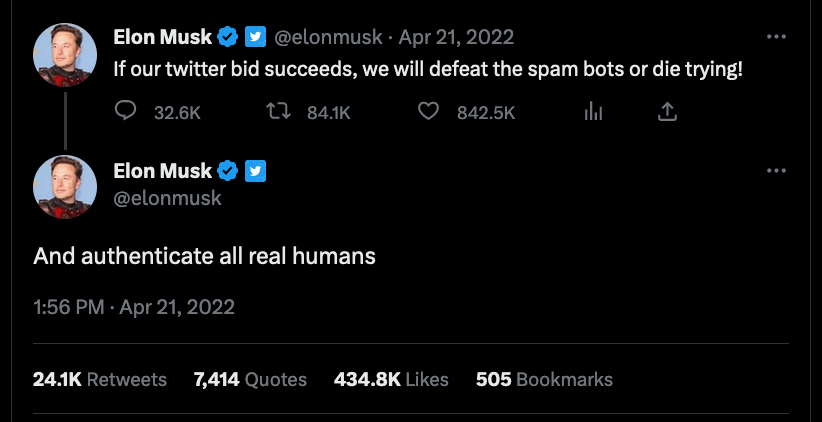
Why did Elon buy twitter for $44 Billion? What value does he see in it besides the greater influence that undoubtedly comes with controlling one of the largest social platforms in the world? We do not need to speculate - he made his intentions incredibly clear in his first meeting with twitter employees after his takeover - WeChat of the West.
To those that do not appreciate freedom, the value prop is clear - WeChat is incredibly powerful and successful in China.
To those that do appreciate freedom, the concern is clear - WeChat has essentially become required to live in China, has surveillance and censorship integrated at its core, and if you are banned from the app your entire livelihood is at risk. Employment, housing, payments, travel, communication, and more become extremely difficult if WeChat censors determine you have acted out of line.
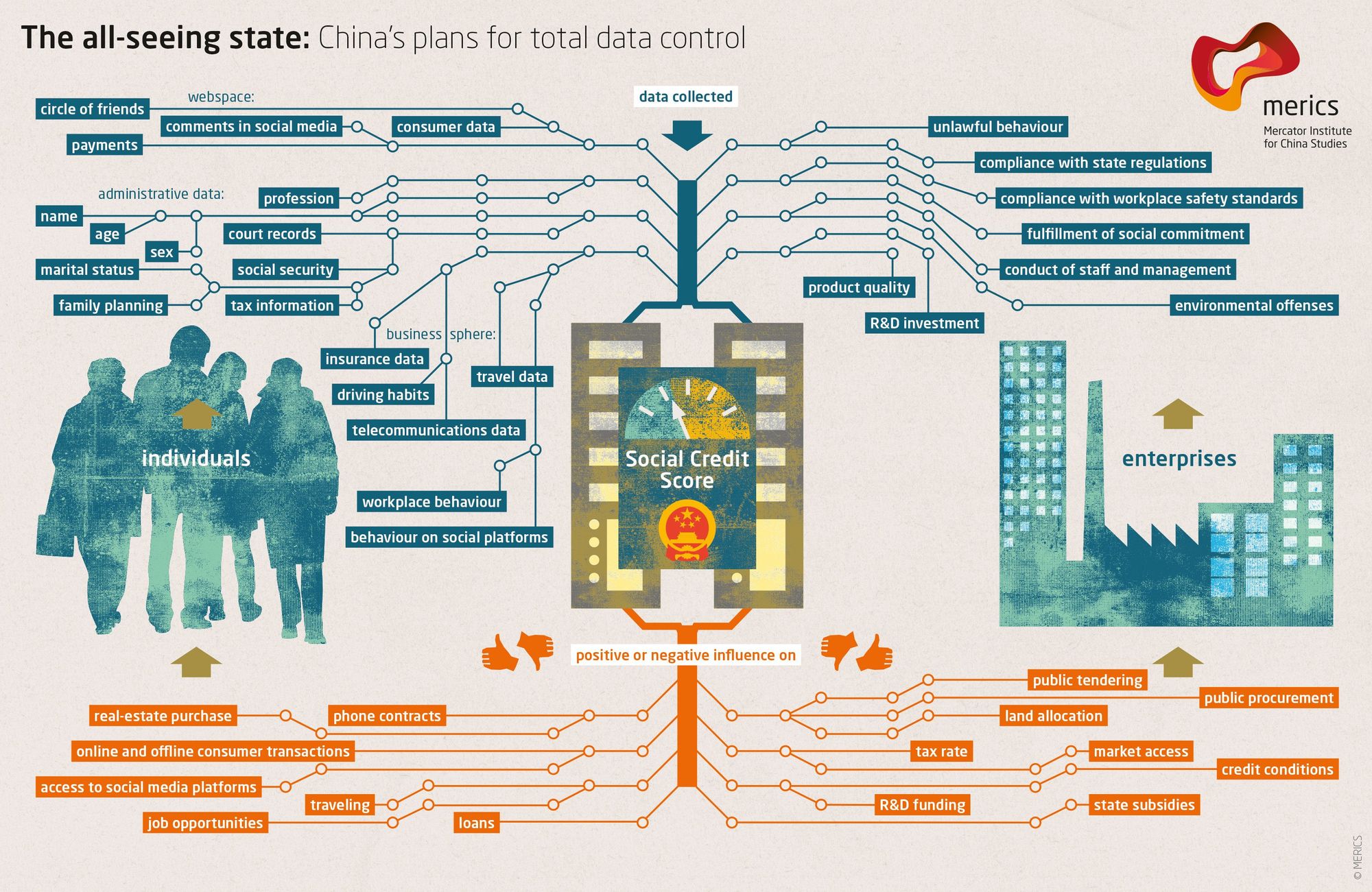
The blue check is the first step in Elon's plan to bring the chinese social credit score system to the west. Users who verify their identity are rewarded with more reach and better tools than those that do not. Verified users are the main product of Elon's twitter - an extensive database of individuals and complete control of the tools he will slowly get them to rely on - it is easier to monetize cattle than free men.
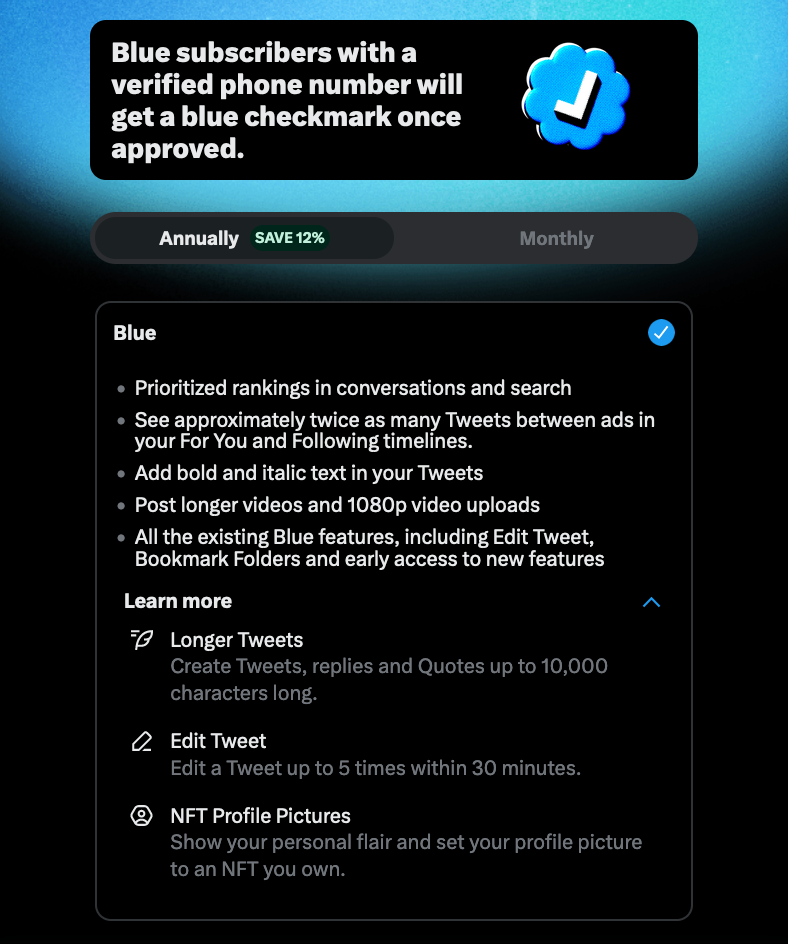
If you cannot resist the temptation of the blue check in its current form you have already lost - what comes next will be much darker. If you realize the need to resist - freedom tech provides us options.
If you found this post helpful support my work with bitcoin.

-
 @ dfa02707:41ca50e3
2025-05-31 00:01:24
@ dfa02707:41ca50e3
2025-05-31 00:01:24Headlines
- Spiral renews support for Dan Gould and Joschisan. The organization has renewed support for Dan Gould, who is developing the Payjoin Dev Kit (PDK), and Joschisan, a Fedimint developer focused on simplifying federations.
- Metaplanet buys another 145 BTC. The Tokyo-listed company has purchased an additional 145 BTC for $13.6 million. Their total bitcoin holdings now stand at 5,000 coins, worth around $428.1 million.
- Semler Scientific has increased its bitcoin holdings to 3,303 BTC. The company acquired an additional 111 BTC at an average price of $90,124. The purchase was funded through proceeds from an at-the-market offering and cash reserves, as stated in a press release.
- The Virtual Asset Service Providers (VASP) Bill 2025 introduced in Kenya. The new legislation aims to establish a comprehensive legal framework for licensing, regulating, and supervising virtual asset service providers (VASPs), with strict penalties for non-compliant entities.
- Russian government to launch a cryptocurrency exchange. The country's Ministry of Finance and Central Bank announced plans to establish a trading platform for "highly qualified investors" that "will legalize crypto assets and bring crypto operations out of the shadows."
- All virtual asset service providers expect to be fully compliant with the Travel Rule by the end of 2025. A survey by financial surveillance specialist Notabene reveals that 90% of virtual asset service providers (VASPs) expect full Travel Rule compliance by mid-2025, with all aiming for compliance by year-end. The survey also shows a significant rise in VASPs blocking withdrawals until beneficiary information is confirmed, increasing from 2.9% in 2024 to 15.4% now. Additionally, about 20% of VASPs return deposits if originator data is missing.
- UN claims Bitcoin mining is a "powerful tool" for money laundering. The Rage's analysis suggests that the recent United Nations Office on Drugs and Crime report on crime in South-East Asia makes little sense and hints at the potential introduction of Anti-Money Laundering (AML) measures at the mining level.
- Riot Platforms has obtained a $100 million credit facility from Coinbase Credit, using bitcoin as collateral for short-term funding to support its expansion. The firm's CEO, Jason Les, stated that this facility is crucial for diversifying financing sources and driving long-term stockholder value through strategic growth initiatives.
- Bitdeer raises $179M in loans and equity amid Bitcoin chip push. The Miner Mag reports that Bitdeer entered into a loan agreement with its affiliate Matrixport for up to $200 million in April, as disclosed in its annual report filed on Monday.
- Federal Reserve retracts guidance discouraging banks from engaging in 'crypto.' The U.S. Federal Reserve withdrew guidance that discouraged banks from crypto and stablecoin activities, as announced by its Board of Governors on Thursday. This includes rescinding a 2022 supervisory letter requiring prior notification of crypto activities and 2023 stablecoin requirements.
"As a result, the Board will no longer expect banks to provide notification and will instead monitor banks' crypto-asset activities through the normal supervisory process," reads the FED statement.
- UAE-based Islamic bank ruya launches Shari’ah-compliant bitcoin investing. The bank has become the world’s first Islamic bank to provide direct access to virtual asset investments, including Bitcoin, via its mobile app, per Bitcoin Magazine.
- U.S. 'crypto' scam losses amounted to $9.3B in 2024. The US The Federal Bureau of Investigation (FBI) has reported $9.3 billion losses in cryptocurrency-related scams in 2024, noting a troubling trend of scams targeting older Americans, which accounted for over $2.8 billion of those losses.

Source: FBI.
- North Korean hackers establish fake companies to target 'crypto' developers. Silent Push researchers reported that hackers linked to the Lazarus Group created three shell companies, two of which are based in the U.S., with the objective of spreading malware through deceptive job interview scams aimed at individuals seeking jobs in cryptocurrency companies.
- Citrea deployed its Clementine Bridge on the Bitcoin testnet. The bridge utilizes the BitVM2 programming language to inherit validity from Bitcoin, allegedly providing "the safest and most trust-minimized way to use BTC in decentralized finance."
- Hesperides University offers a Master’s degree in Bitcoin. Bitcoin Magazine reports the launch of the first-ever Spanish-language Master’s program dedicated exclusively to Bitcoin. Starting April 28, 2025, this fully online program will equip professionals with technical, economic, legal, and philosophical skills to excel in the Bitcoin era.
- BTC in D.C. event is set to take place on September 30 - October 1 in Washington, D.C. Learn more about this initiative here.
Use the tools
- Bitcoin Keeper just got a new look. Version 2.2.0 of the mobile multisig app brought a new branding design, along with a Keeper Private tier, testnet support, ability to import and export BIP-329 labels, and the option to use a Server Key with multiple users.
- Earlier this month the project also announced Keeper Learn service, offering clear and guided Bitcoin learning sessions for both groups and individuals.
- Keeper Desktop v0.2.2, a companion desktop app for Bitcoin Keeper mobile app, received a renewed branding update, too.

The evolution of Bitcoin Keeper logo. Source: BitHyve blog.
- Blockstream Green Desktop v2.0.25 updates GDK to v0.75.1 and fixes amount parsing issues when switching from fiat denomination to Liquid asset.
- Lightning Loop v0.31.0-beta enhances the
loop listswapscommand by improving the ability to filter the response. - Lightning-kmp v1.10.0, an implementation of the Lightning Network in Kotlin, is now available.
- LND v0.19.0-beta.rc3, the latest beta release candidate of LND is now ready for testing.
- ZEUS v0.11.0-alpha2 is now available for testing, too. It's nuts.
- JoinMarket Fidelity Bond Simulator helps potential JoinMarket makers evaluate their competitive position in the market based on fidelity bonds.
- UTXOscope is a text-only Bitcoin blockchain analysis tool that visualizes price dynamics using only on-chain data. The
-
 @ 9ca447d2:fbf5a36d
2025-05-31 00:00:46
@ 9ca447d2:fbf5a36d
2025-05-31 00:00:46Vice President JD Vance spoke to a packed crowd at the Bitcoin 2025 Conference in Las Vegas.
He said that the Biden era of digital assets crackdown is over, and the Trump administration is all in on Bitcoin, stablecoins and blockchain.
In an inspiring speech on May 28, JD Vance said:
“This isn’t a gathering of people—it’s a movement. And I’m proud to stand with you today.”
The annual Bitcoin Conference, one of the biggest events in the Bitcoin world, drew thousands of investors, industry leaders and policymakers.
Vance’s speech was the main event and made it clear that digital assets are now a priority for the White House.

JD Vance at Bitcoin 2025 — CNBC
Vance outlined three main goals for the administration’s digital asset policy:
- End anti-digital-asset regulations
- Pass stablecoin legislation through the GENIUS Act
- Create clear and friendly rules for the Bitcoin industry
He blamed past regulations for holding back innovation and said that era is over.
“Under the guise of ‘consumer protection,’ Gary Gensler attacked every attempt to democratize finance,” Vance said. “That ends now.”
Gensler stepped down in January and Trump has since appointed Paul Atkins to lead the agency with a more Bitcoin-friendly approach.
“Maybe the most important thing that we did for this community, we reject regulators and we fired Gary Gensler,” Vance added. “And we’re going to fire everybody like him.”
Much of Vance’s speech at Bitcoin 2025 focused on stablecoins – digital assets tied to the U.S. dollar. He called them a tool to grow the economy, not a threat.
“Let me be emphatic—this administration does not think that stablecoins threaten the integrity of the United States dollar. Quite the opposite. We view them as a force multiplier of our economic might,” he said.
The GENIUS Act, recently passed in the House, would regulate stablecoins by setting reserve requirements and transparency.
According to Vance, it would bring stablecoin activity back to the U.S. while protecting consumers.
JD Vance said millions of Americans already own bitcoin and that number will double soon.
“I believe it’s 50 million Americans own bitcoin, and I believe that’s going to be 100 million before too long,” he said.
He also talked about his personal history with Bitcoin.
“The first time I’d ever enter politics, back in 2022 … one of the frustrations I had with the crypto community … was [being] one of the only people running for office who actually owned bitcoin,” he said.
“and I still own a fair amount of bitcoin today.”
He celebrated bitcoin’s recent price surge and thanked companies like Coinbase for organizing the conference.
He thanked Bitcoin advocates like David Bailey and the Winklevoss twins for their support during the 2024 Trump campaign.
One of the best lines of the speech was when JD Vance declared an end to what the Bitcoin community has called “Operation Chokepoint 2.0”.
It’s a term used to describe what many saw as government efforts to cut off Bitcoin companies from banking services.
“Operation Chokepoint 2.0 is dead, and it’s not coming back under the Trump administration,” he said.
He framed the battle over Bitcoin adoption as not just about finance but also about civil liberties.
“Crypto is a hedge—against bad policymaking, against inflation, and against discrimination,” he said.
He referenced Canadian truckers and “debanking” incidents in the U.S. as examples of how digital assets can protect from government and corporate overreach.
The Vice President warned that regulatory clarity is needed now, or else, the $3 trillion digital asset industry will move overseas.
“If we fail to create regulatory clarity now, we risk chasing this $3 trillion industry offshore in search of a friendlier jurisdiction,” he said. “President Trump is going to fight to make sure that does not happen.”
He ended with a call to action for the Bitcoin community to stay involved in politics.
“If you don’t get involved in politics, politics will ignore you,” he said. “Let’s not wake up 10 years from now in a poorer, weaker country because we made bad decisions today.”
Vance’s speech at Bitcoin 2025 was a big moment of alignment between the United States government and the Bitcoin industry.
With new laws, friendlier regulators and the White House on board, it’s clear that Bitcoin is now on the national agenda.
As he said: “Crypto finally has a champion and an ally in the White House.”
-
 @ 7f6db517:a4931eda
2025-05-31 15:01:43
@ 7f6db517:a4931eda
2025-05-31 15:01:43
What is KYC/AML?
- The acronym stands for Know Your Customer / Anti Money Laundering.
- In practice it stands for the surveillance measures companies are often compelled to take against their customers by financial regulators.
- Methods differ but often include: Passport Scans, Driver License Uploads, Social Security Numbers, Home Address, Phone Number, Face Scans.
- Bitcoin companies will also store all withdrawal and deposit addresses which can then be used to track bitcoin transactions on the bitcoin block chain.
- This data is then stored and shared. Regulations often require companies to hold this information for a set number of years but in practice users should assume this data will be held indefinitely. Data is often stored insecurely, which results in frequent hacks and leaks.
- KYC/AML data collection puts all honest users at risk of theft, extortion, and persecution while being ineffective at stopping crime. Criminals often use counterfeit, bought, or stolen credentials to get around the requirements. Criminals can buy "verified" accounts for as little as $200. Furthermore, billions of people are excluded from financial services as a result of KYC/AML requirements.
During the early days of bitcoin most services did not require this sensitive user data, but as adoption increased so did the surveillance measures. At this point, most large bitcoin companies are collecting and storing massive lists of bitcoiners, our sensitive personal information, and our transaction history.
Lists of Bitcoiners
KYC/AML policies are a direct attack on bitcoiners. Lists of bitcoiners and our transaction history will inevitably be used against us.
Once you are on a list with your bitcoin transaction history that record will always exist. Generally speaking, tracking bitcoin is based on probability analysis of ownership change. Surveillance firms use various heuristics to determine if you are sending bitcoin to yourself or if ownership is actually changing hands. You can obtain better privacy going forward by using collaborative transactions such as coinjoin to break this probability analysis.
Fortunately, you can buy bitcoin without providing intimate personal information. Tools such as peach, hodlhodl, robosats, azteco and bisq help; mining is also a solid option: anyone can plug a miner into power and internet and earn bitcoin by mining privately.
You can also earn bitcoin by providing goods and/or services that can be purchased with bitcoin. Long term, circular economies will mitigate this threat: most people will not buy bitcoin - they will earn bitcoin - most people will not sell bitcoin - they will spend bitcoin.
There is no such thing as KYC or No KYC bitcoin, there are bitcoiners on lists and those that are not on lists.
If you found this post helpful support my work with bitcoin.

-
 @ 84b0c46a:417782f5
2025-05-30 22:17:19
@ 84b0c46a:417782f5
2025-05-30 22:17:195/24 nostr:nevent1qvzqqqqqqypzpvly86xv0ekl7gar8kfp8glfztvftvwrusjsys8qexwmal3sdz6lqywhwumn8ghj7mn0wd68ytnrdakhq6tvv5kk2unjdaezumn9wsq3wamnwvaz7tmwdaehgu3wd968gctwd4hjumt9dcqs6amnwvaz7tmev9382tndv5qjqamnwvaz7tmjv4kxz7fddfczumn0wd68ytnhd9ex2erwv46zu6nsqywhwumn8ghj7un9d3shjtnwdaehgu3wwa5hyetydejhgtn2wqq3zamnwvaz7tmwveex2mrp0yhxzursqyfhwumn8ghj7am0wshxummnw3ezumn9wsqzqxk47yl7vwqu0yrv4fljymp4m2vf0gtesmel4cgg638h82rt4hdn6yyejn
nostr:nevent1qvzqqqqqqypzpvly86xv0ekl7gar8kfp8glfztvftvwrusjsys8qexwmal3sdz6lqyxhwumn8ghj77tpvf6jumt9qys8wumn8ghj7un9d3shjtt2wqhxummnw3ezuamfwfjkgmn9wshx5uqpr4mhxue69uhhyetvv9ujumn0wd68ytnhd9ex2erwv46zu6nsqyghwumn8ghj7mnxwfjkccte9eshquqpzdmhxue69uhhwmm59ehx7um5wghxuet5qqs8msrjypjuvhwaarkq72739wl5rewl49vx0ku6s3u3y03anmau5dscqjj0l
nostr:nevent1qvzqqqqqqypzqnza2du6qe3nnjy0dcgpu0kmr7awunk78m4rtl7x78rxfvay8qlwqyxhwumn8ghj77tpvf6jumt9qys8wumn8ghj7un9d3shjtt2wqhxummnw3ezuamfwfjkgmn9wshx5uqpr4mhxue69uhhyetvv9ujumn0wd68ytnhd9ex2erwv46zu6nsqyghwumn8ghj7mnxwfjkccte9eshquqpzdmhxue69uhhwmm59ehx7um5wghxuet5qqs0fzqwr2xt044zglcwcj3dnnxuk0vlcmwcw0sdzw7yhzfsn009ttss5pv6k
こていたんさんのアイコン

5/25 nostr:nevent1qvzqqqqqqypzqnza2du6qe3nnjy0dcgpu0kmr7awunk78m4rtl7x78rxfvay8qlwqyxhwumn8ghj77tpvf6jumt9qys8wumn8ghj7un9d3shjtt2wqhxummnw3ezuamfwfjkgmn9wshx5uqpr4mhxue69uhhyetvv9ujumn0wd68ytnhd9ex2erwv46zu6nsqyghwumn8ghj7mnxwfjkccte9eshquqpzdmhxue69uhhwmm59ehx7um5wghxuet5qqs0ku3qs4zskmclvtqm0lt707jwn2ylz9v2xj2qakznyp86j4p7fzqd85kfq
nostr:nevent1qvzqqqqqqypzqnza2du6qe3nnjy0dcgpu0kmr7awunk78m4rtl7x78rxfvay8qlwqyxhwumn8ghj77tpvf6jumt9qys8wumn8ghj7un9d3shjtt2wqhxummnw3ezuamfwfjkgmn9wshx5uqpr4mhxue69uhhyetvv9ujumn0wd68ytnhd9ex2erwv46zu6nsqyghwumn8ghj7mnxwfjkccte9eshquqpzdmhxue69uhhwmm59ehx7um5wghxuet5qqs8054fh3l8qtngdfpdwxfl84r36ju3f65zmhjvjy67y7gjj0mhjks2c7w80
nostr:nevent1qvzqqqqqqypzqnza2du6qe3nnjy0dcgpu0kmr7awunk78m4rtl7x78rxfvay8qlwqyxhwumn8ghj77tpvf6jumt9qys8wumn8ghj7un9d3shjtt2wqhxummnw3ezuamfwfjkgmn9wshx5uqpr4mhxue69uhhyetvv9ujumn0wd68ytnhd9ex2erwv46zu6nsqyghwumn8ghj7mnxwfjkccte9eshquqpzdmhxue69uhhwmm59ehx7um5wghxuet5qqsr8nycy3gvjfdn3rqjc49j2gwhwjdhu6d5ms6uxx7y44kzf0u2ftsc8r3c3
nostr:nevent1qvzqqqqqqypzpvly86xv0ekl7gar8kfp8glfztvftvwrusjsys8qexwmal3sdz6lqywhwumn8ghj7mn0wd68ytnrdakhq6tvv5kk2unjdaezumn9wsq3wamnwvaz7tmwdaehgu3wd968gctwd4hjumt9dcqs6amnwvaz7tmev9382tndv5qjqamnwvaz7tmjv4kxz7fddfczumn0wd68ytnhd9ex2erwv46zu6nsqywhwumn8ghj7un9d3shjtnwdaehgu3wwa5hyetydejhgtn2wqq3zamnwvaz7tmwveex2mrp0yhxzursqyfhwumn8ghj7am0wshxummnw3ezumn9wsqzpmcs4xzsusg9s6cn2acasjsam2pwmf6m8h0z08kfca56f8aqwyf2fjwv7w
nostr:nevent1qvzqqqqqqypzphu0pfjqc0lap83f8xv6e73en5zhfjzsrlx6hnk22pewugzhmpa9qqsvh305tpg0xesw6n4eu2kmumgx0mcv0cn64zznyydzpezzsazdugcyrfqm0
nostr:nevent1qvzqqqqqqypzpvly86xv0ekl7gar8kfp8glfztvftvwrusjsys8qexwmal3sdz6lqywhwumn8ghj7mn0wd68ytnrdakhq6tvv5kk2unjdaezumn9wsq3wamnwvaz7tmwdaehgu3wd968gctwd4hjumt9dcqs6amnwvaz7tmev9382tndv5qjqamnwvaz7tmjv4kxz7fddfczumn0wd68ytnhd9ex2erwv46zu6nsqywhwumn8ghj7un9d3shjtnwdaehgu3wwa5hyetydejhgtn2wqq3zamnwvaz7tmwveex2mrp0yhxzursqyfhwumn8ghj7am0wshxummnw3ezumn9wsqzq2aq2l9cq04ygjjk4tq8zfjmuezvckcav8cfqv6z745744nfd2nqlxpq04
nostr:nevent1qvzqqqqqqypzphu0pfjqc0lap83f8xv6e73en5zhfjzsrlx6hnk22pewugzhmpa9qqs05f8xz5uahsdzceq9d0mp860hck3ash8s3ssp3paxxu620tw4ufssk6ntz
nostr:nevent1qvzqqqqqqypzpvly86xv0ekl7gar8kfp8glfztvftvwrusjsys8qexwmal3sdz6lqywhwumn8ghj7mn0wd68ytnrdakhq6tvv5kk2unjdaezumn9wsq3wamnwvaz7tmwdaehgu3wd968gctwd4hjumt9dcqs6amnwvaz7tmev9382tndv5qjqamnwvaz7tmjv4kxz7fddfczumn0wd68ytnhd9ex2erwv46zu6nsqywhwumn8ghj7un9d3shjtnwdaehgu3wwa5hyetydejhgtn2wqq3zamnwvaz7tmwveex2mrp0yhxzursqyfhwumn8ghj7am0wshxummnw3ezumn9wsqzppyeyt0xt0fps85hxv4evdhgy35m9zfzhsqtnq93rsy4arnw3n853sc0u7
nostr:nevent1qvzqqqqqqypzpvly86xv0ekl7gar8kfp8glfztvftvwrusjsys8qexwmal3sdz6lqywhwumn8ghj7mn0wd68ytnrdakhq6tvv5kk2unjdaezumn9wsq3wamnwvaz7tmwdaehgu3wd968gctwd4hjumt9dcqs6amnwvaz7tmev9382tndv5qjqamnwvaz7tmjv4kxz7fddfczumn0wd68ytnhd9ex2erwv46zu6nsqywhwumn8ghj7un9d3shjtnwdaehgu3wwa5hyetydejhgtn2wqq3zamnwvaz7tmwveex2mrp0yhxzursqyfhwumn8ghj7am0wshxummnw3ezumn9wsqzq7emnt7e67h5cygnyvz922x2m4f3x30hpvns3yxls2v4t2uy0vrc6060ek
nostr:nevent1qvzqqqqqqypzplnr7nuypscwtkhtmqaakpyw4cqgtqm5klcyc6qqcmzf6296zrcfqqspu5ny2laxuqtrryffsf455fldpnluw5ladrq32cfveu6mjjgmuxsynheu3
nostr:nevent1qvzqqqqqqypzphla8l7r42mzjvdgevy0pg4y3rd8gupaprgaa7fcdzhrpaddu7lpqqsyhjuxzjkgzp5d8xt8wg8vzekcnaw6ud7htrnqppy2xmpeajrhqncs0rv4c
nostr:nevent1qvzqqqqqqypzphu0pfjqc0lap83f8xv6e73en5zhfjzsrlx6hnk22pewugzhmpa9qqswm6wxhc3h426py80vjm9jj03j8vhvrnhwmalunlxm0pq5xvxqs5qpr2kq7
nostr:nevent1qvzqqqqqqypzplnr7nuypscwtkhtmqaakpyw4cqgtqm5klcyc6qqcmzf6296zrcfqqsgehqf8cl5sp0wfw0fzl982lvhmy9j23vpus70wddtytkr4qygxlchprwv6
nostr:nevent1qvzqqqqqqypzqnza2du6qe3nnjy0dcgpu0kmr7awunk78m4rtl7x78rxfvay8qlwqqsvkrvnh8lzw4rfx87278rwxp2uymej2alputzn2nl525p85c3703cmrgkfn
nostr:nevent1qvzqqqqqqypzqnza2du6qe3nnjy0dcgpu0kmr7awunk78m4rtl7x78rxfvay8qlwqyxhwumn8ghj77tpvf6jumt9qys8wumn8ghj7un9d3shjtt2wqhxummnw3ezuamfwfjkgmn9wshx5uqpz9mhxue69uhkuenjv4kxz7fwv9c8qqgawaehxw309aex2mrp0yhxummnw3ezuamfwfjkgmn9wshx5uqpzdmhxue69uhhwmm59ehx7um5wghxuet5qqsf2u5larth503yh236mhssn2tes4shvawnv4kufzh3889cr9dt4wculcv6w
nostr:nevent1qvzqqqqqqypzqnza2du6qe3nnjy0dcgpu0kmr7awunk78m4rtl7x78rxfvay8qlwqqspnfvau4ylywwk2f7nrm68ue6c86j9p4y0cu4parfwapun0nsw97sad9jwf
nostr:nevent1qvzqqqqqqypzplnr7nuypscwtkhtmqaakpyw4cqgtqm5klcyc6qqcmzf6296zrcfqqs2y7lha9uy30wwdt9yn47s6krqv3e8duj6nqrl27e2s6dl465xssg5gt4ue
nostr:nevent1qvzqqqqqqypzplnr7nuypscwtkhtmqaakpyw4cqgtqm5klcyc6qqcmzf6296zrcfqqsyf8peg4zggp858zfha6dt4mjxss4nhc3k4szqynh0u53j22asx6sdhpfwc
nostr:nevent1qvzqqqqqqypzphla8l7r42mzjvdgevy0pg4y3rd8gupaprgaa7fcdzhrpaddu7lpqqsr0s5ger5l8aapw63yyve5sne5rge0ractks4v4l0yn3ezcvq3f4s8wthq8
nostr:nevent1qvzqqqqqqypzphu0pfjqc0lap83f8xv6e73en5zhfjzsrlx6hnk22pewugzhmpa9qqs93gfz3kskw2lcxadwu3dvanyq7xstaj39vfqmppnng0nvz5gjm8syq9p8p
nostr:nevent1qvzqqqqqqypzpvly86xv0ekl7gar8kfp8glfztvftvwrusjsys8qexwmal3sdz6lqywhwumn8ghj7mn0wd68ytnrdakhq6tvv5kk2unjdaezumn9wsq3wamnwvaz7tmwdaehgu3wd968gctwd4hjumt9dcqs6amnwvaz7tmev9382tndv5qjqamnwvaz7tmjv4kxz7fddfczumn0wd68ytnhd9ex2erwv46zu6nsqywhwumn8ghj7un9d3shjtnwdaehgu3wwa5hyetydejhgtn2wqq3zamnwvaz7tmwveex2mrp0yhxzursqyfhwumn8ghj7am0wshxummnw3ezumn9wsqzp5tlgnw663dswldulvnvgczfr08aflg35cu2syaaddmppvjytvn09tc679
nostr:nevent1qvzqqqqqqypzpe30ylfgzj39zuwyvmfdwcf26xsxdkcnv26wykwmtsrkl8nty89hqqswq489vn7h9hz2q0w60m05wn5xuqd0vvnqcxwxkewmh7h72yjtrrc6yulf2
nostr:nevent1qvzqqqqqqypzpvly86xv0ekl7gar8kfp8glfztvftvwrusjsys8qexwmal3sdz6lqywhwumn8ghj7mn0wd68ytnrdakhq6tvv5kk2unjdaezumn9wsq3wamnwvaz7tmwdaehgu3wd968gctwd4hjumt9dcqs6amnwvaz7tmev9382tndv5qjqamnwvaz7tmjv4kxz7fddfczumn0wd68ytnhd9ex2erwv46zu6nsqywhwumn8ghj7un9d3shjtnwdaehgu3wwa5hyetydejhgtn2wqq3zamnwvaz7tmwveex2mrp0yhxzursqyfhwumn8ghj7am0wshxummnw3ezumn9wsqzqzcyhx8d350shzfczewxkhxemqknfeu5z8kj0arrur9wn726k5hjayfwl6
nostr:nevent1qvzqqqqqqypzplnr7nuypscwtkhtmqaakpyw4cqgtqm5klcyc6qqcmzf6296zrcfqqsrnvmc5r2rs6jx7z8v3gvnzpkfsc3vqqxg0ygnk8wn3jmulzq887q07smq2
nostr:nevent1qvzqqqqqqypzpvly86xv0ekl7gar8kfp8glfztvftvwrusjsys8qexwmal3sdz6lqywhwumn8ghj7mn0wd68ytnrdakhq6tvv5kk2unjdaezumn9wsq3wamnwvaz7tmwdaehgu3wd968gctwd4hjumt9dcqs6amnwvaz7tmev9382tndv5qjqamnwvaz7tmjv4kxz7fddfczumn0wd68ytnhd9ex2erwv46zu6nsqywhwumn8ghj7un9d3shjtnwdaehgu3wwa5hyetydejhgtn2wqq3zamnwvaz7tmwveex2mrp0yhxzursqyfhwumn8ghj7am0wshxummnw3ezumn9wsqzqzk0lg9aq8yzg0m4dcqp5a0a468c3jmtcw058hvckt6yj0nlnl0mqfgav7
nostr:nevent1qvzqqqqqqypzpu89j3vdtkj0cec9mzs4hcmetfq5a9d6fw5smezlpyqhme90uq27qqsf4js8wu9zlp74kj5erkwsq9rvhj0d6xmynevt4tsa766nsvja04gsrfaz5
nostr:nevent1qvzqqqqqqypzpu89j3vdtkj0cec9mzs4hcmetfq5a9d6fw5smezlpyqhme90uq27qqsqky2uqkzu60f3tkcttx59q675sxmd9ypyppnd50ukmhlx3qwrqfgmmxmjh
nostr:nevent1qvzqqqqqqypzq6lj6gusf8gqyqgj2s0vzjyw3fgj9ufhqdefn8fsvljn6vdjq69hqqsvtkn6rkgmttjzzm3nn58d85eve5834pnamzhy0u4p584jger8uvgttcqhe
nostr:nevent1qvzqqqqqqypzq6mwr88y02ghe0sn5elwkszn4xesreuwexg5z0n42j2npz8dvtfmqqstua4ssqq9wejs4kjvjjs0azlzjftt6qgh8l80msn2zd8k0nxw5ccnv7p2w
nostr:nevent1qvzqqqqqqypzq6lj6gusf8gqyqgj2s0vzjyw3fgj9ufhqdefn8fsvljn6vdjq69hqqsywfl8gfpxkynq54ju27aa5rqd0mjz9lx2haqzaszelm3vhlfa5mc3n0hkj
nostr:nevent1qvzqqqqqqypzq6mwr88y02ghe0sn5elwkszn4xesreuwexg5z0n42j2npz8dvtfmqqs86az8q8zd9wevcnnw6rcrg6edc3jfzff6sza572a25yywr477s9g4yfrq0
nostr:nevent1qvzqqqqqqypzprzeywf3jcmljlsq0kks66q7vh8rtvdvuvemv20z6vlegewpxfsgqqsq47mwcs7kpylrqwkyec76839nwrk09cx33s3lwdv88e34fkx4hdqf2sa8r
nostr:nevent1qvzqqqqqqypzq6mwr88y02ghe0sn5elwkszn4xesreuwexg5z0n42j2npz8dvtfmqqsxykjsdzg9nnaweajftl4g33amcdh4wjmdq3y30w6fu555e3xpm2c2n4wah
nostr:nevent1qvzqqqqqqypzprzeywf3jcmljlsq0kks66q7vh8rtvdvuvemv20z6vlegewpxfsgqqs9cgpau6l4rfmhkwav4jsjhxjwpgehyhuw3c39q46v23q75qdjfssp3jr0k
nostr:nevent1qvzqqqqqqypzq6mwr88y02ghe0sn5elwkszn4xesreuwexg5z0n42j2npz8dvtfmqqsxrzydard7yz0cp79uk30u9g7wv0nq9sfw36e7f5tefd7z7vfezvsq7kqy4
nostr:nevent1qvzqqqqqqypzpvgsp0c85zgh8rcf2683v7s058fzspcqt0em5ednf8z9c3q5qy5fqqsghpetrx0lkxd4d79vk90h66vln5pd9lklh64sk8qa75a453g20jc3j3q9y
nostr:nevent1qvzqqqqqqypzpvgsp0c85zgh8rcf2683v7s058fzspcqt0em5ednf8z9c3q5qy5fqqsxrmm05rgdzdpthuh9zmk7jf9jmhu0jfty6kf5v8s2f8252683drgf6m79g
nostr:nevent1qvzqqqqqqypzpdc866l8lkwvncdwaqlgrsueg9tvlnm5mm2mpyg3jv8aam445rpqqqswcp6exyy0f9sgpypzlc4dx40equyxeyhwskzgeks78r9rp54w7hc05v93n
nostr:nevent1qvzqqqqqqypzpvly86xv0ekl7gar8kfp8glfztvftvwrusjsys8qexwmal3sdz6lqyxhwumn8ghj77tpvf6jumt9qys8wumn8ghj7un9d3shjtt2wqhxummnw3ezuamfwfjkgmn9wshx5uqpr4mhxue69uhhyetvv9ujumn0wd68ytnhd9ex2erwv46zu6nsqyghwumn8ghj7mnxwfjkccte9eshquqpzdmhxue69uhhwmm59ehx7um5wghxuet5qqstvk6q4xwtd7evpzggkcngqhlk5gktme0sj6235nuf0axxxngktpc88gqd7
nostr:nevent1qvzqqqqqqypzq6lj6gusf8gqyqgj2s0vzjyw3fgj9ufhqdefn8fsvljn6vdjq69hqqswfythwf02x6ekjpfdrucd6cx6su2t3uq3td45d4v0xrucfphy38cn0mmw2
nostr:nevent1qvzqqqqqqypzqu3j6ujahw4eezqm9gn2lz8av5waj9ek9fcwclfsrq5kc63zla2wqqsxpddg7lf4yqmpeg9z82flqa8fzpfcwmn4qfluvy95p03l8pjud2cfjx43u
nostr:nevent1qvzqqqqqqypzpq4np5cygstsu65vsx0ggphrv23kj4z553sh39xwyur08pqvdsqrqqsxzm8fx8aaprn533e0c44edf60lw73a6z5vzzumzd6edttgl0uawgn4kgp2
nostr:nevent1qvzqqqqqqypzpq4np5cygstsu65vsx0ggphrv23kj4z553sh39xwyur08pqvdsqrqqs88tvfyn6h8ls3h2994nmpykj2zc2l90vqwj8epzwfjnz2dy0mcjqyhsms5
nostr:nevent1qvzqqqqqqypzqt7zjsv2gxscw5l9d6k8j5agctlm6rr3rz3c6mar4eqmn69uu6c2qqsdavnxvhtlnkamt8cap09aan7mu2z364ltmeh8u747nvvj60h5jcsyf3hjz
nostr:nevent1qvzqqqqqqypzq6mwr88y02ghe0sn5elwkszn4xesreuwexg5z0n42j2npz8dvtfmqqsq86a0sr2h0p4qfesv00ztyqpdw545rsnq2nmq9quafahwxp8elhckws7wh
nostr:nevent1qvzqqqqqqypzqf4m96ldd32j6ecvsp9s6e2jv7euvc4jrcpx6mjg4jf6vpc9xz2cqqsqp3ugj5y8epkjyh62cfnm4gen27nhq055668glhgzjm87p64ep5sgqgawl
nostr:nevent1qvzqqqqqqypzqcmflwpta32zy6lsnwektdhs6ud3d3ql2mn7ml20jl0z87wr9qw6qqsfagdtz0ldem963wwelh2lc8d4qkuxlmfq0j62qwt6lrkvd8v36squ8d4k8
nostr:nevent1qvzqqqqqqypzpvj726mjcemd4uhpyutaykvsm0y54n5fzte5mhgtv46vhg8lunhfqqsgrrj849xmqpvdx6h9554gnetguxzz2ad8fqvpmvhm0zy85m4pl8swnyg5s
nostr:nevent1qvzqqqqqqypzq6lj6gusf8gqyqgj2s0vzjyw3fgj9ufhqdefn8fsvljn6vdjq69hqqs2n5mz6j5yft327mld352hazjwfrla3w92gpzuvmpgffjttsqyq6qgu5dwe
nostr:nevent1qvzqqqqqqypzq6mwr88y02ghe0sn5elwkszn4xesreuwexg5z0n42j2npz8dvtfmqqsz6wr7cnewt7t7vt4t2c28jtmppu832vs2syacv0sy8lcn28075ss277lty
nostr:nevent1qvzqqqqqqypzplnr7nuypscwtkhtmqaakpyw4cqgtqm5klcyc6qqcmzf6296zrcfqqsdrt35drfatmhl795f36em4yy7gsaasr3xkvgmdwswr7f87rcrmuc7z7kf8
nostr:nevent1qvzqqqqqqypzpvj726mjcemd4uhpyutaykvsm0y54n5fzte5mhgtv46vhg8lunhfqqsrl6c8gu74vkwa5ahlsycxjx40a3gzrx6uxm0qmpa35nrnd7ntysc4d6llh
nostr:nevent1qvzqqqqqqypzqwyu5j2hjyd3ycyn7s4q4yrcv52mtyc3m3dfg26qf4lpdutjs7pgqqsq945chuafedqk95uglwl3xumcuvjcdgz66ykd840hfsa4xpp6dgqa9vsft
nostr:nevent1qvzqqqqqqypzqf4m96ldd32j6ecvsp9s6e2jv7euvc4jrcpx6mjg4jf6vpc9xz2cqqsynxwgyy8nsu2r3dx8f37hww6keemkhh962ghq45umlxz2khemytgzv08n4
nostr:nevent1qvzqqqqqqypzqyrx5pw3ga88uye6jusg5h93w75uq8jts8c0zsms44vlfg9yw45pqyxhwumn8ghj77tpvf6jumt9qywhwumn8ghj7un9d3shjtnwdaehgu3wwa5hyetydejhgtn2wqq3vamnwvaz7tmnv4shycmg9ehx7ueww3hkgcteqqsdex6xy8kq8l64c0gq606yguaqn8fxrsyl67m6ld5cctxxwe79jpcsmxhh6
nostr:nevent1qvzqqqqqqypzpj7tpc9kqtkr4xklc62kh7lru27pydu7uyals5zuu303eqca9ef2qyt8wumn8ghj7um9v9exx6pwdehhxtn5dajxz7gpzemhxue69uhhyetvv9ujumn0wd68ytnzv9hxgqpq7gkdqqukguh3r79yfxcy9tsxpx348wqys6q8v3njfyqj4vga727sh9cfpt
5/26 nostr:nevent1qvzqqqqqqypzpq4np5cygstsu65vsx0ggphrv23kj4z553sh39xwyur08pqvdsqrqyxhwumn8ghj77tpvf6jumt9qywhwumn8ghj7un9d3shjtnwdaehgu3wwa5hyetydejhgtn2wqq3vamnwvaz7tmnv4shycmg9ehx7ueww3hkgcteqqspk6e9e9wph23lt7xumuuu90rayzcswp3gz96c3w25raq9r9agw5cnfgve5
nostr:nevent1qvzqqqqqqypzpp9sc34tdxdvxh4jeg5xgu9ctcypmvsg0n00vwfjydkrjaqh0qh4qyxhwumn8ghj77tpvf6jumt9qywhwumn8ghj7un9d3shjtnwdaehgu3wwa5hyetydejhgtn2wqq3vamnwvaz7tmnv4shycmg9ehx7ueww3hkgcteqqsfnspcp9yqu989mnnpwj9tphrrj05268vjkwwmx7jcus4mn7erqngl94f9y
nostr:nevent1qvzqqqqqqypzpp9sc34tdxdvxh4jeg5xgu9ctcypmvsg0n00vwfjydkrjaqh0qh4qyxhwumn8ghj77tpvf6jumt9qywhwumn8ghj7un9d3shjtnwdaehgu3wwa5hyetydejhgtn2wqq3vamnwvaz7tmnv4shycmg9ehx7ueww3hkgcteqqs84x0ws9myccv29kf99jkuwqh8rj9ws23kn5s9yyl0scz67m97z2g7rq7z5
nostr:nevent1qvzqqqqqqypzphu0pfjqc0lap83f8xv6e73en5zhfjzsrlx6hnk22pewugzhmpa9qyg8wumn8ghj7mn0wd68ytnhd9hx2qgkwaehxw309aek2ctjvd5zumn0wvh8gmmyv9usz9nhwden5te0wfjkccte9ehx7um5wghxyctwvsqzqk76agahvd3t5lutvkuj69pccwrurey3fws0kjnrsemwlx9ntvwukkjfk6
nostr:nevent1qvzqqqqqqypzqrqykrtju88xhdq0an0vdnccdfvrmqr8da0n8p5fs8reaczhxmpeqyxhwumn8ghj77tpvf6jumt9qywhwumn8ghj7un9d3shjtnwdaehgu3wwa5hyetydejhgtn2wqq3vamnwvaz7tmnv4shycmg9ehx7ueww3hkgcteqyt8wumn8ghj7un9d3shjtnwdaehgu3wvfskueqqyz3twtpw08v554hph0j6wpk598rd677pfa460y2pcdd2064aaevjwe74erq
nostr:nevent1qvzqqqqqqypzqx34k480waf274x2e0hd7re5nceq7z3wu5q59zp3xnp7uvv8nnn3qyxhwumn8ghj77tpvf6jumt9qywhwumn8ghj7un9d3shjtnwdaehgu3wwa5hyetydejhgtn2wqq3vamnwvaz7tmnv4shycmg9ehx7ueww3hkgcteqyt8wumn8ghj7un9d3shjtnwdaehgu3wvfskueqqyp59rw9n380w5kvdth9qefc28xsrt99l33tmfgvq02kut3dnepk6zr7ng2t
nostr:nevent1qvzqqqqqqypzplnr7nuypscwtkhtmqaakpyw4cqgtqm5klcyc6qqcmzf6296zrcfqyxhwumn8ghj77tpvf6jumt9qywhwumn8ghj7un9d3shjtnwdaehgu3wwa5hyetydejhgtn2wqq3vamnwvaz7tmnv4shycmg9ehx7ueww3hkgcteqyt8wumn8ghj7un9d3shjtnwdaehgu3wvfskueqqyq8q2qcfne76j4c9y794xz9g5unuxhf98deh3mupmnwpn33mwlxhzmxuefq
nostr:nevent1qvzqqqqqqypzpmzzcaj5rzeah8y940ln4z855wa72af4a6aac4zjypql55egcpsqqyt8wumn8ghj7um9v9exx6pwdehhxtn5dajxz7gpzemhxue69uhhyetvv9ujumn0wd68ytnzv9hxgqpqscswkz2s03r6yhz0yz40h634nkf2j2vpkvqd3vk5rl7lgaj9unns7qz3ms
nostr:nevent1qvzqqqqqqypzprfe5ru6zvakym6hq5eycwdr2vx2q8awzaaw8wu9mq4wlek8yhenqyxhwumn8ghj77tpvf6jumt9qywhwumn8ghj7un9d3shjtnwdaehgu3wwa5hyetydejhgtn2wqq3vamnwvaz7tmnv4shycmg9ehx7ueww3hkgcteqyt8wumn8ghj7un9d3shjtnwdaehgu3wvfskueqqyqr5njtg8f5xdm52p3k9mugfqk3zuc0ycsxaj6j5uf4amkrdt3ymq8kuyhj
nostr:nevent1qvzqqqqqqypzq0363fpyt2sgytq9p3pduzch6rlrp4z8e6swvzr72km83pg76qmnqyxhwumn8ghj77tpvf6jumt9qywhwumn8ghj7un9d3shjtnwdaehgu3wwa5hyetydejhgtn2wqq3vamnwvaz7tmnv4shycmg9ehx7ueww3hkgcteqyt8wumn8ghj7un9d3shjtnwdaehgu3wvfskueqqyrj0xgrrwr2meuurst5lsqn744wt6uxhfmyralknm7cl57lsapcrkunqcnn
nostr:nevent1qvzqqqqqqypzqf57dat64x3qpjq5u6ucwgvpnh0q8r9xpspepwrmvkxnqz4k6rgyqyt8wumn8ghj7un9d3shjtnwdaehgu3wvfskueqqyq2yn3cjlmns8ttaam8ev2rn3csm26wnwhe3ccvk8s5e8x6ejyykql8em9d
nostr:nevent1qvzqqqqqqypzqx34k480waf274x2e0hd7re5nceq7z3wu5q59zp3xnp7uvv8nnn3qyxhwumn8ghj77tpvf6jumt9qywhwumn8ghj7un9d3shjtnwdaehgu3wwa5hyetydejhgtn2wqq3vamnwvaz7tmnv4shycmg9ehx7ueww3hkgcteqyt8wumn8ghj7un9d3shjtnwdaehgu3wvfskueqqyqu2p8vtuwvxmzqh7mlq2lp3xel8z9l0xg5e3hyxjlwamsm0p3pvq9qh4d0
nostr:nevent1qvzqqqqqqypzpvly86xv0ekl7gar8kfp8glfztvftvwrusjsys8qexwmal3sdz6lqyxhwumn8ghj77tpvf6jumt9qys8wumn8ghj7un9d3shjtt2wqhxummnw3ezuamfwfjkgmn9wshx5uqpr4mhxue69uhhyetvv9ujumn0wd68ytnhd9ex2erwv46zu6nsqyghwumn8ghj7mnxwfjkccte9eshquqpzdmhxue69uhhwmm59ehx7um5wghxuet5qqsr9tpqqfeke4qt9xlg6m34446dpd844myrw9cc4tmqcrf3xfp9yqsxa05hf
nostr:nevent1qvzqqqqqqypzpp9sc34tdxdvxh4jeg5xgu9ctcypmvsg0n00vwfjydkrjaqh0qh4qyxhwumn8ghj77tpvf6jumt9qywhwumn8ghj7un9d3shjtnwdaehgu3wwa5hyetydejhgtn2wqq3vamnwvaz7tmnv4shycmg9ehx7ueww3hkgcteqyt8wumn8ghj7un9d3shjtnwdaehgu3wvfskueqqypyaj8uyahtgwf5evyk5deqx90udyrmxff99gqskfcl3eqh0mgmw6nlnlud
nostr:nevent1qvzqqqqqqypzpvly86xv0ekl7gar8kfp8glfztvftvwrusjsys8qexwmal3sdz6lqyxhwumn8ghj77tpvf6jumt9qys8wumn8ghj7un9d3shjtt2wqhxummnw3ezuamfwfjkgmn9wshx5uqpr4mhxue69uhhyetvv9ujumn0wd68ytnhd9ex2erwv46zu6nsqyghwumn8ghj7mnxwfjkccte9eshquqpzdmhxue69uhhwmm59ehx7um5wghxuet5qqsdpy08r0758lz0js2zpk5fe5mpqxd349mdqxg2vk3y7azlme2ysqqm8uy75
nostr:nevent1qvzqqqqqqypzpvly86xv0ekl7gar8kfp8glfztvftvwrusjsys8qexwmal3sdz6lqyxhwumn8ghj77tpvf6jumt9qys8wumn8ghj7un9d3shjtt2wqhxummnw3ezuamfwfjkgmn9wshx5uqpr4mhxue69uhhyetvv9ujumn0wd68ytnhd9ex2erwv46zu6nsqyghwumn8ghj7mnxwfjkccte9eshquqpzdmhxue69uhhwmm59ehx7um5wghxuet5qqs8s0r7c908mmhxk090zvmlajfgswwcnmwxj34dtqjpyxry0tmumagcmm29s
nostr:nevent1qvzqqqqqqypzpvly86xv0ekl7gar8kfp8glfztvftvwrusjsys8qexwmal3sdz6lqyxhwumn8ghj77tpvf6jumt9qys8wumn8ghj7un9d3shjtt2wqhxummnw3ezuamfwfjkgmn9wshx5uqpr4mhxue69uhhyetvv9ujumn0wd68ytnhd9ex2erwv46zu6nsqyghwumn8ghj7mnxwfjkccte9eshquqpzdmhxue69uhhwmm59ehx7um5wghxuet5qqs0x6pgm96r70y8836l0d5ajj6nrlq6p5fz06wdu26fkpg3gznctscf5ggxn
5/27 nostr:nevent1qvzqqqqqqypzqxlwemj4760tc2ysgqmqdu5tt68th2er6gn8xrsjkjlhvtff6gtzqyt8wumn8ghj7um9v9exx6pwdehhxtn5dajxz7gpzemhxue69uhhyetvv9ujumn0wd68ytnzv9hxgqpqlq0lp52xg7uv4wwzuqy9yhtmcpy5v8ad8v7ft9xcwkdncd97h66q0wmawu
nostr:nevent1qvzqqqqqqypzpq4np5cygstsu65vsx0ggphrv23kj4z553sh39xwyur08pqvdsqrqyt8wumn8ghj7um9v9exx6pwdehhxtn5dajxz7gpzemhxue69uhhyetvv9ujumn0wd68ytnzv9hxgqpqpt2wncdxkptxyhj025vd53vjpxz3hjs452px7y8g6gzsxmnfw2fsp2rv0k
KAZもさん nostr:nevent1qvzqqqqqqypzpvly86xv0ekl7gar8kfp8glfztvftvwrusjsys8qexwmal3sdz6lqywhwumn8ghj7mn0wd68ytnrdakhq6tvv5kk2unjdaezumn9wsq3wamnwvaz7tmwdaehgu3wd968gctwd4hjumt9dcqs6amnwvaz7tmev9382tndv5qjqamnwvaz7tmjv4kxz7fddfczumn0wd68ytnhd9ex2erwv46zu6nsqywhwumn8ghj7un9d3shjtnwdaehgu3wwa5hyetydejhgtn2wqq3zamnwvaz7tmwveex2mrp0yhxzursqyfhwumn8ghj7am0wshxummnw3ezumn9wsqzpk3nll8rr3sj6adsrfrlgjpj4cyn2sg9rmlz9m2djwk5zp2ku80czfr460
5/28 kaijiさん nostr:nevent1qvzqqqqqqypzpvly86xv0ekl7gar8kfp8glfztvftvwrusjsys8qexwmal3sdz6lqyxhwumn8ghj77tpvf6jumt9qywhwumn8ghj7mn0wd68ytnrdakhq6tvv5kk2unjdaezumn9wsqjqamnwvaz7tmjv4kxz7fddfczumn0wd68ytnhd9ex2erwv46zu6nsqywhwumn8ghj7un9d3shjtnwdaehgu3wwa5hyetydejhgtn2wqq3zamnwvaz7tmwveex2mrp0yhxzursqythwumn8ghj7mn0wd68ytnfw36xzmndduhx6etwqyfhwumn8ghj7am0wshxummnw3ezumn9wsqzpt7w33qv7tlywj0wphremkdft6dpnv3z8mvw0t2pdxcgvlzw6sathjmz0v
マルフォイ nostr:nevent1qvzqqqqqqypzpvly86xv0ekl7gar8kfp8glfztvftvwrusjsys8qexwmal3sdz6lqyw8wumn8ghj7umjw3ex2mrp0yhxxttnw3jkcmrpwghxuet5qyxhwumn8ghj77tpvf6jumt9qys8wumn8ghj7un9d3shjtt2wqhxummnw3ezuamfwfjkgmn9wshx5uqpr4mhxue69uhhyetvv9ujumn0wd68ytnhd9ex2erwv46zu6nsqyghwumn8ghj7mnxwfjkccte9eshquqpzdmhxue69uhhwmm59ehx7um5wghxuet5qqs8r0frcfwqkgpefhd0knjurekna8ztnq69432f3k00wccd0vcrl5c6qr3gh
5/29 nostr:nevent1qvzqqqqqqypzqrec47eremps2u8wvnu6f2sfjg5njhkrxuw9l6r8uzwfzy2gqq2aqyxhwumn8ghj77tpvf6jumt9qywhwumn8ghj7un9d3shjtnwdaehgu3wwa5hyetydejhgtn2wqq3vamnwvaz7tmjv4kxz7fwdehhxarj9e3xzmnyqqsp2c6xh22lfj2ccy95lqu584hfpfz0ds7w2llnf4sv2qs445yqcgqmgwq57
nostr:nevent1qvzqqqqqqypzphu0pfjqc0lap83f8xv6e73en5zhfjzsrlx6hnk22pewugzhmpa9qyt8wumn8ghj7um9v9exx6pwdehhxtn5dajxz7gpzemhxue69uhhyetvv9ujumn0wd68ytnzv9hxgqpqt43r3wtjkr5ezxay6dh7jq94nelduvsk07w5ufxrver5f6jfggksakz9e8
nostr:nevent1qvzqqqqqqypzqyqmxrhg3sn6z00x30mu3srrdr4ru05rweq4jhqcvat805v2g6j9qyxhwumn8ghj77tpvf6jumt9qywhwumn8ghj7un9d3shjtnwdaehgu3wwa5hyetydejhgtn2wqqjqamnwvaz7tmjv4kxz7fddfczumn0wd68ytnhd9ex2erwv46zu6nsqyghwumn8ghj7mnxwfjkccte9eshquqpz4mhxue69uhhyetvv9ujumt0wd68ytnsw43qzymhwden5te0wahhgtnwdaehgu3wdejhgqpqn6n7xrrmk40ucmh9m5ktae58xjqz6h7epj6mcffpcmuhgpysvv6snh5vf5
nostr:nevent1qvzqqqqqqypzpk28l9nyyf4av8f8j8jhh8k60mt2sc643ux2td3n547kvk4lrsglqyt8wumn8ghj7um9v9exx6pwdehhxtn5dajxz7gpzemhxue69uhhyetvv9ujumn0wd68ytnzv9hxgqpq6gv8avhe93ypvypd66rmn34760s3sldj3x2cz5w4yu2xy9z8tt2qadd7kl
nostr:nevent1qvzqqqqqqypzpk28l9nyyf4av8f8j8jhh8k60mt2sc643ux2td3n547kvk4lrsglqyt8wumn8ghj7um9v9exx6pwdehhxtn5dajxz7gpzemhxue69uhhyetvv9ujumn0wd68ytnzv9hxgqpqn2pfqkgcfk3cdhtvkqqlfycsy2j2xe6c6jz8gzfxlnddnq8jq6vqecuvwy
nostr:nevent1qvzqqqqqqypzpug7j8zm7jr0hjunpkpgz8gzdvgn5h8mw77g4wg58xnmsav6pvz2qqspds662qvcpz995r5rx39wzncyzcx3q5zfpe8ztgx4zdwy9znvu9cv28mya
5/30 nostr:nevent1qvzqqqqqqypzp54kkqfyshkxm078mpzygmfxpqfq6fwu2njry424strce6dmvhwyqqstc5jak2vax4uejyrmu2td3w0spv6k4mds9sfwqtvmh0hwaa3eststwmtzt
nostr:nevent1qvzqqqqqqypzp54kkqfyshkxm078mpzygmfxpqfq6fwu2njry424strce6dmvhwyqqs9v75spmgrxngfn805q5d9fsqa562a8240xkr6z3kvkszkra9plvsgm2qw4
nostr:nevent1qvzqqqqqqypzp62ezs5gz04adyt8xmyghw2ej3yk7eradlnknmuysd5ha2udqnfdqyxhwumn8ghj77tpvf6jumt9qywhwumn8ghj7un9d3shjtnwdaehgu3wwa5hyetydejhgtn2wqqjqamnwvaz7tmjv4kxz7fddfczumn0wd68ytnhd9ex2erwv46zu6nsqyghwumn8ghj7mnxwfjkccte9eshquqpzdmhxue69uhhwmm59ehx7um5wghxuet5qqswy0smsrukck33hfhavscvs68pg9m4d859np8pkgvrc49kwjzr4ac0cwhea
nostr:nevent1qvzqqqqqqypzpc9ge0t4a0lya7a63fjl749mgdv9ssz0dhqt5jnytz3y6lmy9525qyxhwumn8ghj77tpvf6jumt9qywhwumn8ghj7un9d3shjtnwdaehgu3wwa5hyetydejhgtn2wqqjqamnwvaz7tmjv4kxz7fddfczumn0wd68ytnhd9ex2erwv46zu6nsqyghwumn8ghj7mnxwfjkccte9eshquqpz4mhxue69uhhyetvv9ujumt0wd68ytnsw43qzymhwden5te0wahhgtnwdaehgu3wdejhgqpqeunx8pj5hc255wqu4ea9cgz6cptjvcx6jk8yfd8u55smjl6y8z9sepz5xt
nostr:nevent1qvzqqqqqqypzp62ezs5gz04adyt8xmyghw2ej3yk7eradlnknmuysd5ha2udqnfdqyxhwumn8ghj77tpvf6jumt9qywhwumn8ghj7un9d3shjtnwdaehgu3wwa5hyetydejhgtn2wqqjqamnwvaz7tmjv4kxz7fddfczumn0wd68ytnhd9ex2erwv46zu6nsqyghwumn8ghj7mnxwfjkccte9eshquqpzdmhxue69uhhwmm59ehx7um5wghxuet5qqst07pk8637lvs5vjnp00quzhcsx8ghran90nsm6sycnm3a626lnqqw0py8w
nostr:nevent1qvzqqqqqqypzp62ezs5gz04adyt8xmyghw2ej3yk7eradlnknmuysd5ha2udqnfdqyxhwumn8ghj77tpvf6jumt9qyw8wumn8ghj7umjw3ex2mrp0yhxxttnw3jkcmrpwghxuet5qys8wumn8ghj7un9d3shjtt2wqhxummnw3ezuamfwfjkgmn9wshx5uqpr4mhxue69uhhyetvv9ujumn0wd68ytnhd9ex2erwv46zu6nsqyghwumn8ghj7mnxwfjkccte9eshquqpzdmhxue69uhhwmm59ehx7um5wghxuet5qqsya6zp38496uetw83txlr294nttk6myuc0n7hxrl2d7jma2rvvcesnz2naf
nostr:nevent1qvzqqqqqqypzqlwpvac39uz74ay4g7qx2sa3cqrvuvjhy7899vwf40lkxfcw6uz0qyxhwumn8ghj77tpvf6jumt9qyghwumn8ghj7mnxwfjkccte9eshquqpr4mhxue69uhhyetvv9ujumn0wd68ytnhd9ex2erwv46zu6nsqys8wumn8ghj7un9d3shjtt2wqhxummnw3ezuamfwfjkgmn9wshx5uqpzdmhxue69uhhwmm59ehx7um5wghxuet5qqsz6zj33hmynuhq20nscntjc3lhx4hl5azhf0cx38g5nmhpjezuttqpdr0ht
nostr:nevent1qvzqqqqqqypzqhh27290rxjexusv8as357lpxy423nnznzfh4fjkq22k94tvqcpaqyxhwumn8ghj77tpvf6jumt9qyghwumn8ghj7u3wddhk56tjvyhxjmcqyrfpj9ym2apvgjpmcy4qjq2ks89uzuwm27d9jpj9flk7438sm23kqjetapu
nostr:nevent1qvzqqqqqqypzpuy2jdcyy3vqr4l9ucmhlpuwnsl29h7lwsvaez00eu4467jlvf7eqythwumn8ghj7mn0wd68ytnfw36xzmndduhx6etwqyxhwumn8ghj77tpvf6jumt9qys8wumn8ghj7un9d3shjtt2wqhxummnw3ezuamfwfjkgmn9wshx5uqpr4mhxue69uhhyetvv9ujumn0wd68ytnhd9ex2erwv46zu6nsqyghwumn8ghj7mnxwfjkccte9eshquqpzdmhxue69uhhwmm59ehx7um5wghxuet5qqsphe28h7t6jmwlvpd90q38xkde87hmy9q24u90sgeaz6hu6nfsazqxkfw56
-
 @ a8d1560d:3fec7a08
2025-05-30 22:16:48
@ a8d1560d:3fec7a08
2025-05-30 22:16:48NIP-XX
Documentation and Wikis with Spaces and Format Declaration
draftoptionalSummary
This NIP introduces a system for collaborative documentation and wikis on Nostr. It improves upon earlier efforts by adding namespace-like Spaces, explicit content format declaration, and clearer separation of article types, including redirects and merge requests.
Motivation
Previous approaches to wiki-style collaborative content on Nostr had two key limitations:
- Format instability – No declared format per event led to breaking changes (e.g. a shift from Markdown to Asciidoc).
- Lack of namespace separation – All articles existed in a global space, causing confusion and collision between unrelated projects.
This NIP addresses both by introducing:
- Spaces – individually defined wikis or documentation sets.
- Explicit per-article format declaration.
- Dedicated event kinds for articles, redirects, merge requests, and space metadata.
Specification
kind: 31055– Space DefinitionDefines a project namespace for articles.
Tags: -
["name", "<space title>"]-["slug", "<short identifier>"]-["description", "<optional description>"]-["language", "<ISO language code>"]-["license", "<license text or SPDX ID>"]Content: (optional) full description or README for the space.
kind: 31056– ArticleAn article in a specific format belonging to a defined space.
Tags: -
["space", "<slug>"]-["title", "<article title>"]-["format", "markdown" | "asciidoc" | "wikitext" | "html"]-["format-version", "<format version>"](optional) -["prev", "<event-id>"](optional) -["summary", "<short change summary>"](optional)Content: full body of the article in the declared format.
kind: 31057– RedirectRedirects from one article title to another within the same space.
Tags: -
["space", "<slug>"]-["from", "<old title>"]-["to", "<new title>"]Content: empty.
kind: 31058– Merge RequestProposes a revision to an article without directly altering the original.
Tags: -
["space", "<slug>"]-["title", "<article title>"]-["base", "<event-id>"]-["format", "<format>"]-["comment", "<short summary>"](optional)Content: proposed article content.
Format Guidelines
Currently allowed formats: -
markdown-asciidoc-wikitext-htmlClients MUST ignore formats they do not support. Clients MAY apply stricter formatting rules.
Client Behavior
Clients: - MUST render only supported formats. - MUST treat
spaceas a case-sensitive namespace. - SHOULD allow filtering, browsing and searching within Spaces. - SHOULD support revision tracking viaprev. - MAY support diff/merge tooling forkind: 31058.
Examples
Space Definition
json { "kind": 31055, "tags": [ ["name", "Bitcoin Docs"], ["slug", "btc-docs"], ["description", "Developer documentation for Bitcoin tools"], ["language", "en"], ["license", "MIT"] ], "content": "Welcome to the Bitcoin Docs Space." }Markdown Article
json { "kind": 31056, "tags": [ ["space", "btc-docs"], ["title", "Installation Guide"], ["format", "markdown"] ], "content": "# Installation\n\nFollow these steps to install the software..." }Asciidoc Article
json { "kind": 31056, "tags": [ ["space", "btc-docs"], ["title", "RPC Reference"], ["format", "asciidoc"] ], "content": "= RPC Reference\n\nThis section describes JSON-RPC calls." }Wikitext Article
json { "kind": 31056, "tags": [ ["space", "btc-docs"], ["title", "Block Structure"], ["format", "wikitext"] ], "content": "== Block Structure ==\n\nThe structure of a Bitcoin block is..." }Redirect
json { "kind": 31057, "tags": [ ["space", "btc-docs"], ["from", "Getting Started"], ["to", "Installation Guide"] ], "content": "" }Merge Request
json { "kind": 31058, "tags": [ ["space", "btc-docs"], ["title", "Installation Guide"], ["base", "d72fa1..."], ["format", "markdown"], ["comment", "Added step for testnet"] ], "content": "# Installation\n\nNow includes setup instructions for testnet users." }
Acknowledgements
This proposal builds on earlier ideas for decentralized wikis and documentation within Nostr, while solving common issues related to format instability and lack of project separation.
-
 @ bf47c19e:c3d2573b
2025-05-30 21:48:21
@ bf47c19e:c3d2573b
2025-05-30 21:48:21Originalni tekst na novimagazin.rs. / Autor: Mijat Lakićević

Razgovarao: Mijat Lakićević
Do januara ove godine Lazar Stojković je radio na UC Berkeley School of Information na poziciji asistenta Mortena Hansena, jednog od najistaknutijih profesora menadžmenta u svetu. U martu se, međutim, odlučuje da napusti akademsku karijeru i zauzima poziciju glavnog dizajnera proizvoda u jednom novom start-apu u San Francisku. Ono što za sada o tome može da kaže jeste da je okupljen “fantastičan tim” (o čemu, recimo, govori podatak da je “prethodna kompanija koju je osnovao naš CEO 2013. godine prodata za preko 200 miliona dolara”) u koji su investirale neke od najznačajnijih američkih “venture capital” firmi: Founder Collective (investirali u Uber, BuzzFeed, Periscope, IFTTT, Venmo, Vimeo, itd), General Catalyst (investirali u Airbnb, Snapchat, itd.); Formation 8 (investirali u Oculus). Pored toga, međutim, naš sagovornik nije izgubio sve veze sa Srbijom, naprotiv; trenutno kao mentor u beogradskom ICT Habu, ali i na druge načine, pomaže razvoj start-ap kompanija i povezivanje naše tehnološke zajednice sa Silicijumskom dolinom.
U SAD ima mnogo naših ljudi, naročito u oblasti visokih tehnologija, ali povratne sprege nema. Dačić je pre dve godine bio u SAD na investicionoj konferenciji, kakvi su efekti?
Efekti su svakako dobri za Dačića i pripadnike državne delegacije koja je turistički obišla Zapadnu obalu. Ni Majkrosoft nije loše prošao, jer mu je tadašnji predsednik Vlade usput ostavio još novca srpskih poreskih obveznika. Sve u svemu, ceo taj put mogao bi da se okvalifikuje više kao “shopping trip” za trošenje novca, nego kao investiciona konferencija za njegovo privlačenje. Osim toga, sam događaj u San Francisku bio je amaterski organizovan – niti je imao bilo kakav publicitet u lokalnim medijima, niti je postojala vidljivost u ovdašnjoj tehnološkoj zajednici.
Veću korist od toga donela je majska poseta mojih prijatelja iz 500 Start-ups, drugog najboljeg start-ap akceleratora u svetu, zvezdarskom ICT Habu. Osim predavanja koje su održali start-apima u Beogradu i Novom Sadu, njih trojica su tom prilikom odlučili da 500 Start-ups investira u TruckTrack Vuka Nikolića. Kasnije se jedan od njih odlučio i da kupi stan u Beogradu, jer se potpuno zaljubio u atmosferu srpske prestonice. To su direktne strane investicije, a ne politički marketing.
Što se povratne sprege između tehnološke dijaspore i Srbije tiče, ne bih se složio da ona uopšte ne postoji, ona je samo u skladu sa opštim privrednim okruženjem u zemlji.
Kakva je na osnovu vašeg iskustva ta poslovna klima?
Poslovnu klimu u Srbiji karakterišu: neefikasnost javne uprave i gomila nepotrebne birokratije; arhaičan sistem obrazovanja, uglavnom neprilagođen potrebama tržišta, koji ne proizvodi dovoljno kvalifikovane radne snage; sporost sudova i proizvoljno tumačenje čak i onih relativno savremenih zakona. Uvek se setim onih momaka koji su završili u zatvoru zbog affiliate sajta i dečka kome je tržišni inspektor uručio pozamašnu kaznu za obavljanje delatnosti za koju nije registrovan zbog 10 evra koje je dotični zaradio za godinu dana od specijalizovanog bloga o parfemima. Ako postoji nerazumevanje za bilo kakvo tehnološko preduzetništvo, čak i na tom najnižem nivou, šta onda reći za ozbiljnije poslove?
Kad ste već pomenuli visoke tehnologije, u Srbiji se mnogo govori da je to naša šansa, primer koji ste pomenuli to demantuje.
I ne samo to. U Srbiji nema propisa koji bi potpomogli dalji razvoj tehnološke industrije. Na primer, Srbija još uvek nema pravni ekvivalent “safe harbor” stavki iz američkog Digital milenijum kopirajt akta (Digital Millenium Copyright Act – DMCA), koji je na snazi još od 1998. godine, a predstavlja zakonski mehanizam zaštite za kreatore digitalnih proizvoda od pokušaja drugih da zloupotrebe njihove mobilne aplikacije.
Sa druge strane, ima mnogo propisa koji sprečavaju bilo kakav napredak u određenim oblastima, u čemu ubedljivo prednjači Narodna banka Srbije. Moj omiljeni primer čak nije ni ceo onaj višegodišnji cirkus sa PayPalom koji je nastao zbog zakona o deviznom poslovanju, već zabrana NBS da domaća pravna lica imaju bilo kakve veze sa bitkoinom. Čisto da stavimo stvari u perspektivu, dotična tehnološka inovacija koju po značaju mnogi ovde upoređuju sa World Wide Webom, počinje polako da menja kompletan dosadašnji finansijski sistem i, sa investicijama od blizu 360 miliona dolara, samo od početka ove godine predstavlja ubedljivo najbrže rastuću tehnološku oblast u svetu kada je reč o investiranje u start-apove. Naravno, od toga ni dinar neće završiti u Srbiji.
Posledice?
Nerazumevanje da u današnjem globalizovanom svetu niko ko se bavi tehnologijom jednostavno ne mora da trpi sve ovo gore pobrojano. Zahvaljujući poslovanju koje nije vezano za fizičku lokaciju, svako ima slobodu da bilo kada želi izmesti svoj biznis gde god poželi, a sa njim i kompletne poreske i druge prihode za zemlju u kojoj je biznis registrovan. I ljudi to i rade. Čim se pojave bilo kakvi prihodi, gotovo svi koji imaju veze sa tehnologijom – od frilensera do preduzetnika – Srbiji se zahvale na saradnji, zatvore firmu tu i otvore preko Interneta kompaniju u Delaveru, Singapuru ili negde drugde, jer im jednostavno ne pada na pamet da finansiraju postojeći sistem u Srbiji. Ubrzo nakon što se biznis izmesti iz Srbije, dobar deo shvati da ni oni ne moraju baš da budu tu, nakon čega sledi emigracija.
Najalarmantnija stvar u vezi sa ovim poslednjim je što se uopšte ne radi o običnim inženjerima, koji ionako odlaze u ogromnom broju već skoro 25 godina i čija svaka kupljena karta u jednom pravcu, bar u slučaju IT stručnjaka, Srbiju košta između 50 i 100 hiljada evra, jer je to cena njihovog obrazovanja. Ne, ovde je reč o preduzetnicima koji pokreću nove poslove, stvaraju vrednost, otvaraju nova radna mesta. A svako radno mesto u tehnološkoj industriji u proseku kreira još 4,3 druga radna mesta u privredi, dok, na primer, svako radno mesto u proizvodnji kreira samo 1,4 druga mesta. Njihov egzodus – koji se, bar sudeći po krugu ljudi koje poznajem, samo ubrzava poslednjih godina – ne samo da dugoročno znači ogroman finansijski gubitak za zemlju, već predstavlja i svojevrsnu nacionalnu katastrofu.
Dakle, povratne sprege nema, jer se oni ne vraćaju u Srbiju?
Zbog svih ovih stvari o kojima sam govorio retko kome ko je iole profesionalno ostvaren u inostranstvu uopšte pada na pamet da se vraća i pokreće bilo kakav biznis iz Srbije. Umesto toga, ljudi se odlučuju za nešto drugo: osnivaju kompanije tamo gde je poslovna klima dobra, što znači ne u Srbiji, a onda Srbiju koriste kao neku vrstu domaće autsorsing destinacije. Odnos cena-kvalitet tu je zaista odličan. Na primer, za godišnju platu jednog dobrog softverskog inženjera u San Francisku, u Beogradu se može zaposliti ceo tim.
Naravno, američke kompanije koje su osnovali naši ljudi koriste to kao “tajno oružje”, pa se tako, na primer, ceo razvojni tim veoma uspešnog start-apa Frejm iz Silicijumske doline nalazi u Nišu, jer je odatle njegov osnivač Nikola Božinović, koji inače već gotovo 20 godina živi u Americi. Takvih primera ima mnogo. Poznajem nekolicinu ljudi koji su potrošili bukvalno milione dolara na autsorsing u Srbiji tokom poslednjih desetak godina. Oni bi vrlo rado investirali u srpske start-apove, i ne samo oni, ali je ponuda još uvek jako tanka, poslovna klima nikome ne uliva poverenje, a start-ap ekosistem je u ranoj fazi razvoja, pa do tih transakcija još uvek ne dolazi u nekom značajnijem broju.
Start-ap eko sistem. Šta pod tim podrazumevate?
To znači, prvo, konačan prestanak maštanja o reindustrijalizaciji koju će doneti neki krupni investitori iz inostranstva. Oni se ionako, bar u novijoj istoriji Srbije, nikada nisu pojavljivali bez debelih subvencija i ekspresnog proglašavanja njihovih ugovora državnom tajnom. Drugo, to znači prepoznavanje resursa kojima raspolažemo, dakle pametnih mladih ljudi koji se bave tehnologijom, s jedne strane, i pružanje tim ljudima najboljih uslova za život i rad, sa druge, umesto da im se i jedno i drugo na svakom koraku otežava.
Na primer, šta bi se desilo kada bismo u Novom Sadu umesto brojnih postojećih firmi koje se bave autsorsing uslugama imali stotinjak kompanija fokusiranih na proizvode kao što je Eipix? Odgovor: imali bismo oko 15.000 novih radnih mesta, veoma bogatu prestonicu Pokrajine, visok rast životnog standarda u tom delu zemlje i mnogo naplaćenog poreza.
Ta prilika neće trajati večito. Procenat mladih preduzetnika kojima je jedini cilj da odu iz zemlje, jer u njoj ne vide nikakvu perspektivu, iz godine u godinu raste. Strani investicioni fondovi bukvalno otimaju najperspektivnije nove srpske start-apove. Na primer, bugarski Eleven raspolaže sa desetak miliona evra kapitala, mahom iz evropskih fondova. U okruženju koje im ne nudi baš ništa osim problema, tridesetak najzanimljivijih srpskih start-apova prodalo je svoje vlasničke udele Elevenu uz obavezu preseljenja u Sofiju, ruku na srce, uglavnom privremenog. Ko zna koliko će novih kompanija, koje bi mogle da budu novi Nordeusi, Srbija zbog toga izgubiti u korist svog istočnog suseda?
I vi spadate u grupu mladih ljudi koje opisujete. Opisali ste i razloge zbog kojih se odlazi. Ipak, konkretno, zašto ste vi otišli iz Srbije?
Kao što ste rekli, otišao sam iz svih onih na početku ovog razgovora navedenih razloga, plus opšta društvena klima koja je, nažalost, izuzetno nezdrava. Iako ima solidan potencijal da bude lepo mesto za život i posao, zemlja u kojoj sam rođen postala je udžbenički primer negativne društvene selekcije i jednostavno nije zemlja u kojoj želim da živim i u kojoj bih jednog dana trebalo da odgajam svoju decu.
Šta ste pronašli u Americi?
U Zalivskoj oblasti San Franciska pronašao sam jedno napredno, stimulativno, kosmopolitsko okruženje, zagledano u budućnost. To je neki jedinstveni koktel globalizacije, hakerskog idealizma, hipi etike, mešavine vrednosti koje kreira tehnološka industrija sa starim kapitalizmom Zapadne obale, umetničke ekscentričnosti San Franciska, tipično kalifornijske opuštenosti i vere u to da ovde svojim znanjem svet možemo da učinimo boljim mestom. Osim toga, Zalivska oblast, tj. Silicijumska dolina, ima ubedljivo najveću koncentraciju pametnih ljudi na jednom mestu u celom svetu.
Filozofija razvoja u SAD, u poređenju sa Srbijom, ako to uopšte ima smisla?
Poređenje nema previše smisla, jer su filozofije poslovanja i poslovna klima dijametralno suprotni između ove dve zemlje. Biznis je u Americi nacionalni sport broj jedan. Čak i ljudi koji rade relativno slabo plaćene poslove, trude se da imaju svoj mali investicioni portfelj hartija od vrednosti i svi prate kretanje cene akcija na berzi. Kada govorimo o preduzetništvu, kapital je dostupan za bilo koju dobru ideju. Start-apovi se ne fokusiraju toliko na profit na kraće staze, već teže brzom rastu. Tako nije ništa neobično da investitori u neki neprofitabilni biznis investiraju i po stotinjak miliona dolara. A desi se i, recimo, čak 1,2 milijarde kao u slučaju Snapchata, iako ta firma do sada nije napravila nijedan cent prihoda, jer znaju da će novac sam po sebi kasnije doći ako se napravi proizvod koji ima vrednost za veliki broj ljudi.
U Srbiji ništa od gore nabrojanog nije slučaj. Korporativizacija praktično ne postoji, što je posledica skandalozno visokih troškova osnivanja i vođenja akcionarskog preduzeća kao forme privrednog društva. Poređenja radi, u Americi osnivanje korporacije košta 150-300 dolara, završava se brzo preko Interneta, ne postoje tekući troškovi ako nema prihoda i zato maltene svi imaju registrovanu neku firmu. Pošto su korporacije u Srbiji za domaće privrednike skupa egzotika, većina ekonomske aktivnosti ide kroz preduzetnike – “sole proprietorship” – i društva sa ograničenom odgovornošću. Posledica toga je da je Beogradska berza danas potpuno irelevantan faktor, tako da je i interesovanje građana za investiranje tim putem praktično nepostojeće. To dalje vodi ka tome da se imućniji ljudi uglavnom odlučuju za investiranje u nekretnine, što je jedan od najkonzervativnijih pristupa investicijama i donosi najmanju dobit. Što se pokretanja novog posla tiče, u Srbiji to u većini slučajeva znači pozajmljivanje novca od PRP – porodica, rodbina i prijatelji – ili odlazak u banku po kredit. “Venture capital” ne postoji, što srpske firme onda stavlja pred izazov da moraju što pre da budu profitabilne, jer jednom kada početni kapital nestane – “game over”. Niko ne razmišlja o agresivnom rastu koji se kasnije može pretvoriti u masivne prihode i tržišnu dominaciju, jer su fokusirani na to kako da plate PDV sledećeg meseca za prodatu robu ili usluge koje još uvek nisu ni naplatili. Zbog toga svi otvaraju pekare, kafiće i kioske brze hrane: promet kreće odmah i “cash flow” se brzo stabilizuje. Zbog svega toga Srbija ima primitivnu ekonomiju koja je u proseku oko pola veka iza razvijenog sveta.
Predlagali ste pre dve godine da se Srbija orijentiše ka razvoju robotike, civilnih bespilotnih letelica i 3D štampe. Niko vas nije čuo. Šta se desilo u međuvremenu u tim sferama, da li je sad kasno za to, šta su nove prilike, ako ih ima?
Sva tri i dalje stoje kao ogromne prilike za razvoj, jer će potražnja u srednjem roku biti toliko veća od ponude da je i dalje u pitanju fantastična biznis prilika. Druge dve nove prilike su Bitcoin i Virtual Reality.
Bitcoin i kriptovalute – koje, kao što rekoh na početku, nijedno pravno lice u Srbiji ne sme ni da takne, zahvaljujući uobičajenoj kratkovidosti Narodne banke Srbije. Blockchain kao “open source” projekat već obećava da postane osnova svih finansijskih transakcija u budućnosti, i ne samo njih, a već sada počinje polako da ubija praistorijske biznise koji se oslanjaju na skupe informacione transakcije, kao što je na primer Vestern union.
Virtual Reality je drugi veliki talas tehnološke inovacije koji nama kao čovečanstvu, nakon tridesetak godina iščekivanja i razočaranja, konačno stiže zahvaljujući tehnologijama kao što su Oculus, u vlasništvu Facebooka; Magic Leap, glavni investitor Gugl; HoloLens, Majkrosoftovo čedo, pa čak i Cardboard, Guglov genijalni projekat za upotrebu pametnih telefona kao VR naočara. Ovaj mega trend će dugoročno potpuno promeniti gotovo celokupnu ljudsku interakciju sa mašinama, od toga kako radimo do toga kako se zabavljamo u slobodno vreme. Rekao bih da su startne pozicije što se platformi tiče već zauzete – bar za prvo vreme, jer su pomenute korporacije potrošile milijarde dolara na istraživanje i razvoj tih tehnologija – ali postoji ogroman prazan prostor što se tiče kreiranja sadržaja za njih. Narednih godina će se na tome praviti imperije.
-
 @ 7f6db517:a4931eda
2025-05-31 15:01:43
@ 7f6db517:a4931eda
2025-05-31 15:01:43
The former seems to have found solid product market fit. Expect significant volume, adoption, and usage going forward.
The latter's future remains to be seen. Dependence on Tor, which has had massive reliability issues, and lack of strong privacy guarantees put it at risk.
— ODELL (@ODELL) October 27, 2022
The Basics
- Lightning is a protocol that enables cheap and fast native bitcoin transactions.
- At the core of the protocol is the ability for bitcoin users to create a payment channel with another user.
- These payment channels enable users to make many bitcoin transactions between each other with only two on-chain bitcoin transactions: the channel open transaction and the channel close transaction.
- Essentially lightning is a protocol for interoperable batched bitcoin transactions.
- It is expected that on chain bitcoin transaction fees will increase with adoption and the ability to easily batch transactions will save users significant money.
- As these lightning transactions are processed, liquidity flows from one side of a channel to the other side, on chain transactions are signed by both parties but not broadcasted to update this balance.
- Lightning is designed to be trust minimized, either party in a payment channel can close the channel at any time and their bitcoin will be settled on chain without trusting the other party.
There is no 'Lightning Network'
- Many people refer to the aggregate of all lightning channels as 'The Lightning Network' but this is a false premise.
- There are many lightning channels between many different users and funds can flow across interconnected channels as long as there is a route through peers.
- If a lightning transaction requires multiple hops it will flow through multiple interconnected channels, adjusting the balance of all channels along the route, and paying lightning transaction fees that are set by each node on the route.
Example: You have a channel with Bob. Bob has a channel with Charlie. You can pay Charlie through your channel with Bob and Bob's channel with User C.
- As a result, it is not guaranteed that every lightning user can pay every other lightning user, they must have a route of interconnected channels between sender and receiver.
Lightning in Practice
- Lightning has already found product market fit and usage as an interconnected payment protocol between large professional custodians.
- They are able to easily manage channels and liquidity between each other without trust using this interoperable protocol.
- Lightning payments between large custodians are fast and easy. End users do not have to run their own node or manage their channels and liquidity. These payments rarely fail due to professional management of custodial nodes.
- The tradeoff is one inherent to custodians and other trusted third parties. Custodial wallets can steal funds and compromise user privacy.
Sovereign Lightning
- Trusted third parties are security holes.
- Users must run their own node and manage their own channels in order to use lightning without trusting a third party. This remains the single largest friction point for sovereign lightning usage: the mental burden of actively running a lightning node and associated liquidity management.
- Bitcoin development prioritizes node accessibility so cost to self host your own node is low but if a node is run at home or office, Tor or a VPN is recommended to mask your IP address: otherwise it is visible to the entire network and represents a privacy risk.
- This privacy risk is heightened due to the potential for certain governments to go after sovereign lightning users and compel them to shutdown their nodes. If their IP Address is exposed they are easier to target.
- Fortunately the tools to run and manage nodes continue to get easier but it is important to understand that this will always be a friction point when compared to custodial services.
The Potential Fracture of Lightning
- Any lightning user can choose which users are allowed to open channels with them.
- One potential is that professional custodians only peer with other professional custodians.
- We already see nodes like those run by CashApp only have channels open with other regulated counterparties. This could be due to performance goals, liability reduction, or regulatory pressure.
- Fortunately some of their peers are connected to non-regulated parties so payments to and from sovereign lightning users are still successfully processed by CashApp but this may not always be the case going forward.
Summary
- Many people refer to the aggregate of all lightning channels as 'The Lightning Network' but this is a false premise. There is no singular 'Lightning Network' but rather many payment channels between distinct peers, some connected with each other and some not.
- Lightning as an interoperable payment protocol between professional custodians seems to have found solid product market fit. Expect significant volume, adoption, and usage going forward.
- Lightning as a robust sovereign payment protocol has yet to be battle tested. Heavy reliance on Tor, which has had massive reliability issues, the friction of active liquidity management, significant on chain fee burden for small amounts, interactivity constraints on mobile, and lack of strong privacy guarantees put it at risk.
If you have never used lightning before, use this guide to get started on your phone.
If you found this post helpful support my work with bitcoin.

-
 @ c9badfea:610f861a
2025-05-30 21:42:40
@ c9badfea:610f861a
2025-05-30 21:42:40Separators
- ▰▱▰▱▰▱▰▱
- ░░▒▒▓▓██▓▓▒▒░░
- ▁▃▅▇▅▃▅▇▅▃▁
- ◇◆◇◆◇◆◇
- ◥◤◢◣◥◤◢◣
- ▪▫▪▫▪▫▪▫▪▫▪▫▪▫▪▫
- ▮▯▮▯▮▯▮▯▮▯▮▯▮▯▮▯
Nametags
- ⚞Name⚟
- ⫍Name⫎
- 〚Name〛
- 〘Name〙
- 〖Name〗
- 〔Name〕
- 【Name】
- 《Name》
- 「Name」
- 〈Name〉
- ⦗Name⦘
- ⦇Name⦈
- ⦍Name⦐
- ⦋Name⦌
- ⦅Name⦆
- ⟬Name⟭
- ❨Name❩
Checklists
- ◇ Item
- ◆ Item
- ◈ Item
- ☐ Item
- ☑ Item
- ☒ Item
- ▢ Item
Bulletpoints
- •
- ∙
- ☛
- ☞
- ❧
- ⦾
- ⦿
- ◦
- ⊳
- ►
- ▸
- ▹
-
 @ b1ddb4d7:471244e7
2025-05-30 21:00:53
@ b1ddb4d7:471244e7
2025-05-30 21:00:53Breez, a leader in Lightning Network infrastructure, and Spark, a bitcoin-native Layer 2 (L2) platform, today announced a groundbreaking collaboration to empower developers with tools to seamlessly integrate self-custodial bitcoin payments into everyday applications.
The partnership introduces a new implementation of the Breez SDK built on Spark’s bitcoin-native infrastructure, accelerating the evolution of bitcoin from “digital gold” to a global, permissionless currency.
The Breez SDK is expanding

We’re joining forces with @buildonspark to release a new nodeless implementation of the Breez SDK — giving developers the tools they need to bring Bitcoin payments to everyday apps.
Bitcoin-Native
Powered by Spark’s…— Breez
 (@Breez_Tech) May 22, 2025
(@Breez_Tech) May 22, 2025A Bitcoin-Native Leap for Developers
The updated Breez SDK leverages Spark’s L2 architecture to deliver a frictionless, bitcoin-native experience for developers.
Key features include:
- Universal Compatibility: Bindings for all major programming languages and frameworks.
- LNURL & Lightning Address Support: Streamlined integration for peer-to-peer transactions.
- Real-Time Interaction: Instant mobile notifications for payment confirmations.
- No External Reliance: Built directly on bitcoin via Spark, eliminating bridges or third-party consensus.
This implementation unlocks use cases such as streaming content payments, social app monetization, in-game currencies, cross-border remittances, and AI micro-settlements—all powered by Bitcoin’s decentralized network.
Quotes from Leadership
Roy Sheinfeld, CEO of Breez:
“Developers are critical to bringing bitcoin into daily life. By building the Breez SDK on Spark’s revolutionary architecture, we’re giving builders a bitcoin-native toolkit to strengthen Lightning as the universal language of bitcoin payments.”Kevin Hurley, Creator of Spark:
“This collaboration sets the standard for global peer-to-peer transactions. Fast, open, and embedded in everyday apps—this is bitcoin’s future. Together, we’re equipping developers to create next-generation payment experiences.”David Marcus, Co-Founder and CEO of Lightspark:
“We’re thrilled to see developers harness Spark’s potential. This partnership marks an exciting milestone for the ecosystem.”Collaboration Details
As part of the agreement, Breez will operate as a Spark Service Provider (SSP), joining Lightspark in facilitating payments and expanding Spark’s ecosystem. Technical specifications for the SDK will be released later this year, with the full implementation slated for launch in 2025.About Breez
Breez pioneers Lightning Network solutions, enabling developers to embed self-custodial bitcoin payments into apps. Its SDK powers seamless, secure, and decentralized financial interactions.About Spark
Spark is a bitcoin-native Layer 2 infrastructure designed for payments and settlement, allowing developers to build directly on Bitcoin’s base layer without compromises. -
 @ 7f6db517:a4931eda
2025-05-31 15:01:43
@ 7f6db517:a4931eda
2025-05-31 15:01:43
Bank run on every crypto bank then bank run on every "real" bank.
— ODELL (@ODELL) December 14, 2022
The four main banks of bitcoin and “crypto” are Signature, Prime Trust, Silvergate, and Silicon Valley Bank. Prime Trust does not custody funds themselves but rather maintains deposit accounts at BMO Harris Bank, Cross River, Lexicon Bank, MVB Bank, and Signature Bank. Silvergate and Silicon Valley Bank have already stopped withdrawals. More banks will go down before the chaos stops. None of them have sufficient reserves to meet withdrawals.
Bitcoin gives us all the ability to opt out of a system that has massive layers of counterparty risk built in, years of cheap money and broken incentives have layered risk on top of risk throughout the entire global economy. If you thought the FTX bank run was painful to watch, I have bad news for you: every major bank in the world is fractional reserve. Bitcoin held in self custody is unique in its lack of counterparty risk, as global market chaos unwinds this will become much more obvious.
The rules of bitcoin are extremely hard to change by design. Anyone can access the network directly without a trusted third party by using their own node. Owning more bitcoin does not give you more control over the network with all participants on equal footing.
Bitcoin is:
- money that is not controlled by a company or government
- money that can be spent or saved without permission
- money that is provably scarce and should increase in purchasing power with adoptionBitcoin is money without trust. Whether you are a nation state, corporation, or an individual, you can use bitcoin to spend or save without permission. Social media will accelerate the already deteriorating trust in our institutions and as this trust continues to crumble the value of trust minimized money will become obvious. As adoption increases so should the purchasing power of bitcoin.
A quick note on "stablecoins," such as USDC - it is important to remember that they rely on trusted custodians. They have the same risk as funds held directly in bank accounts with additional counterparty risk on top. The trusted custodians can be pressured by gov, exit scam, or caught up in fraud. Funds can and will be frozen at will. This is a distinctly different trust model than bitcoin, which is a native bearer token that does not rely on any centralized entity or custodian.
Most bitcoin exchanges have exposure to these failing banks. Expect more chaos and confusion as this all unwinds. Withdraw any bitcoin to your own wallet ASAP.
Simple Self Custody Guide: https://werunbtc.com/muun
More Secure Cold Storage Guide: https://werunbtc.com/coldcard
If you found this post helpful support my work with bitcoin.

-
 @ bf47c19e:c3d2573b
2025-05-30 20:58:03
@ bf47c19e:c3d2573b
2025-05-30 20:58:03Originalni tekst na bitcoin-balkan.com.
Pregled sadržaja
- Šta je blockchain?
- Kako mogu da saznam više o Bitcoin-u?
Ukoliko niste pročitali naš uvodni tekst o Bitcoin-u, i zašto vam je važno da to učinite, onda prvo pročitajte: Šta je Bitcoin i kako on može da nam pomogne?
Bitcoin, sa velikim B na početku, odnosi se na mrežu računara koji održavaju knjigu stanja na akauntima bitcoin digitalne valute, slično kao što banke održavaju knjigu stanja na računima dolara, eura ili neke druge valute. Bitcoin softver, odnosno protokol, takođe omogućava korisnicima da putem interneta pošalju bitcoin-e sa svog akaunta na drugi akaunt, slično PayPal-u ili Venmo-u, ali bez kompanije koja pruža uslugu prenosa. Bitcoin softver je otvorenog koda, tako da svako može da ga pokrene na svom računaru i da se pridružiti mreži.
Najbolji način da se razume kako Bitcoin funkcioniše “iznutra” je da ga zamislimo kao finansijski sistem.
Centralne banke i vlade proizvode i distribuiraju novac pozajmljujući ga ljudima, i trošeći ga na oružje, puteve i socijalne programe. Ovaj sistem se naziva sistemom zasnovanom na dugovima, jer svaki put kada banka da zajam, stvara se nova valuta koja ranije nije postojala. Ova valuta ima vrednost jer dug koji ju je stvorio ima vrednost: primalac zajma obećava da će otplatiti svoj dug banci, plus kamate.
Kad god banka odobri kredit, ona stvara novu valutu. Ovo takodje važi i kada podignete hipoteku ili kredit za auto. Takođe se primenjuje i kada Američke Federalne Rezerve kupuju državne obveznice od vlade Sjedinjenih Država. U svakom od ovih slučajeva, banka šalje novonastalu valutu primaocu zajma. Primaoc zajma obećava banci da će u budućnosti vratiti tu valutu, plus kamate. Međutim, ulaz nove valute u sistem znači i da opada vrednost postojeće valute koja je u opticaju. To se dešava kroz proces koji se obično naziva inflacija.
Da bi imali koristi od pogodnih usluga koje nude banke, poput kreditnih kartica i digitalnih transfera novca, normalni ljudi i preduzeća obično novac drže na bankovnim računima. Svaka banka poseduje svoju knjigu sa računima svih svojih klijenata.
Banke su neophodne da bi omogućile digitalna plaćanja koja vršimo svakodnevno, jer su nam potrebne pouzdane strane koje bi proverile da li se sav računovodstveni sistem sabira. U suprotnom, bilo bi lako da neko uradi “copy-paste“ jednog dela digitalnog novca i da ga potroši dva puta, ili da doda par nula na stanje svog računa.
Sada razumemo nekoliko ključnih tačaka o trenutnom sistemu zasnovanom na dugu: banke proizvode novu valutu svaki put kad pozajmljuju novac, a većina ljudi svoj novac čuva u bankama koje im nude pogodnosti.
Bitcoin je malo drugačiji. Hajde da započnemo ovo putovanje sa pitanjem.
Šta ako bi svi posedovali knjigu stanja na računima, baš kao i banka?
Umesto da banke poseduju po jednu knjigu depozita svojih klijenata, šta ako svi poseduju istu knjigu, sa detaljnim opisima svih stanja na računima svih učesnika u ekonomiji? O privatnosti ne morate da brinete ni na trenutak – to ćemo objasniti kasnije.
Hajde da vidimo kako bi transakcija mogla da se izvrši koristeći ovakav bankarski sistem. Recimo da Ana želi da plati Davidu 10 digitalnih „novčića“. Ona tu transakciju zapisuje u e-mail, potpisuje je digitalno kako bi svi bili sigurni da e-mail dolazi od stvarne Ane, i šalje ga svima ostalima. Kada ostali prime taj e-mail, oni ažuriraju svoje knjige, tako što skinu 10 novčića sa Aninog računa i dodaju 10 novčića na Davidov račun.
Zašto bi se neko trudio da evidentira transakciju u svojoj knjizi?
Recimo da će prva osoba koja izvrši sledeće korake dobiti 5 novčića:
- Proverom da li je prava Ana potpisala transakciju
- Proverom da li Ana ima dovoljno sredstava na svom računu da plati Davidu 10 novčića
- Zapisivanje transakcije ukoliko ispunjava uslove 1) i 2)
Primetićete da se ovo mnogo razlikuje od trenutnog monetarnog sistema. U novom sistemu morate da imate novčiće da biste mogli da ih date nekom drugom. Ne postoje banke sa posebnim privilegijama koje mogu da stvore valutu davanjem zajma.
Umesto da dozvoljava samo maloj grupi bankara da prave nove valute, novi sistem omogućava svima da kreiraju novu valutu ako pružaju korisnu uslugu mreži: verifikovanje i evidentiranje transakcija između ljudi. Nazvaćemo ovo nagradom za potvrđivanje.
Kako se svi slože oko pravila sistema? Ona su kodirana u softverskom protokolu otvorenog koda. To znači da svako može besplatno da preuzme pravila sistema sa interneta i da počne da ih koristi za zaradu valute u sistemu. Ako svi koriste isti skup pravila, njihove knjige će se sinhronizovati, jer će prihvatiti i odbiti potpuno iste transakcije.
- Otvoreni kod = svako može da preuzme kod i da ga pročita
- Softverski protokol = skup pravila napisanih u kodu
Kako zaustaviti ljude koji pokušavaju da prevare sistem da bi zaradili “nagradu za potvrdu”?
Recimo da Boris i Marko žele da se obogate – oni bi mogli jedan drugom da plaćaju po jedan novčić u krug, vodeći računa da neko od njih prvi zabeleži transakciju kako bi mogli da zahtevaju nagradu za potvrdu. Pomoću ove šeme oni bi u osnovi mogli da stvore (odštampaju) novu valutu, kad god oni to požele!
Softverski protokol to zaustavlja zahtevajući da osoba koja validira transakciju uradi neki „posao“ sa računarom kako bi je zabeležila. Ovo osigurava da računari moraju da troše energiju za zabeležavanje transakcija, pa bi u tom slučaju varanje sistema bilo veoma skupo. Borisova i Markova šema varanja sistema više nema finansijskog smisla. Da bismo demonstrirali ovaj proces, pogledajmo Filipa i njegov C-Bot računar. Filip je na svoj računar instalirao Bitcoin protokol, koji predstavlja Bitcoin-ov softverski protokol otvorenog koda koji sadrži pravila Bitcoin sistema.
Kako C-Bot Verifikuje Transakcije
Korak 1: Slušanje transakcija
Prvo, C-Bot sluša transakcije (skraćeno “txn”) koje Ana, Boris, Marko i David emituju putem interneta.
Korak 2: Stvara “Heš”
Drugo, C-Bot će prikupiti sledeće delove podataka:
- Sve Bitcoin transakcije koje ljudi šalju
- Tajni broj (objasnićemo kasnije)
- Nonce – neki slučajan broj
C-Bot sve ovo stavlja u heš mašinu. Mašina za heširanje uzima sve ove podatke i proizvodi 256 bitova (bitovi su 1 i 0) koji se jedinstveno uklapaju u te podatke, nazvane ‘heš’. To heširanje je poput otiska prsta podataka. Uvek ćete dobiti isti heš sa istim ulaznim podacima. Mašina za heširanje je takođe jednosmerna: lako je stvoriti heš od nekih podataka, ali ne možete da stavite heš u mašinu i da vratite ulazne podatke.
C-Bot će iznova isprobavati svoju heš mašinu sa drugim nonce-om (slučajnim brojem). Svaki put, on će proveriti da li je mašina proizvela heš za koji Bitcoin softverski protokol kaže da je tačan.
Ovaj proces pronalaženja heša troši puno vremena i energije. Mašina za heširanje je jednosmerna, tako da C-Bot ne može tek tako da stavi ‘tačan’ heš u mašinu i otkrije ulazne podatke. Svaki računar na Bitcoin mreži takođe prolazi kroz ovaj proces pokušavajući da pronađe ‘ispravan’ heš.
Ukoliko bi ovi računari uspeli da pronađu ‘ispravan’ heš bez velikog trošenja energije, mogli bi da prevare sistem. Dva računara bi mogla da prosleđuju transakcije u krug, zarađujući bitcoin-e svaki put kada bi potvrdili transakciju.
Korak 3: Pronalaženje Ispravnog Heša
C-Bot konačno pronalazi heš koji zadovoljava pravila Bitcoin protokola koristeći sve nedavne transakcije. Sada ovaj blok podataka šalje na druge računare. Blok se sastoji od nedavnih transakcija, nonce-a i tajnog broja. Ti drugi računari stavljaju sve ove podatke kroz istu heš mašinu za sebe, da bi proverili da li je heširanje tog C-Bota tačno. S obzirom da znamo da računari ne mogu da varaju u ovoj igri, znamo da je C-Bot morao da izvrši neka izračunavanja sa svojom heš mašinom da bi pronašao ispravan heš.
Heš bloka C-Bota koji je poslat, sada postaje tajni broj koji ulazi u izračunavanje sledećeg bloka. Budući da heš svakog bloka u ‘blockchain-u’ bitcoin-a koristi heš poslednjeg bloka kao ulaz, bila bi potrebna apsurdna količina energije da se prepiše istorija transakcija (lanac blokova, eng. the blockchain)
Budući da se svačija stanja bitcoin-a zasnivaju na transakcijama na i sa njihovih računa, to takođe onemogućava izmenu bilo čijih stanja bitcoin-a.
Čitav ovaj proces poznat je pod nazivom rudarenje bitcoin-a. Svaki računar na mreži pokušava da proba nove podatke kroz heš mašinu, bilione puta u sekundi.
Šta je blockchain?
Blockchain predstavlja istoriju Bitcoin transakcija, koja omogućava bilo kome da utvrdi svoje Bitcoin stanje.
- ‘Block – Blok’ = Grupa Bitcoin transakcija, nonce-a i heša prethodnog bloka
- ‘Chain – Lanac’ = Heš svakog bloka takođe koristi heš prethodnog bloka kao ulaz. Ovo povezuje podatke svakog bloka sa svakim drugim blokom, stvarajući chain – lanac.
Na blockchain-u, prava imena nisu povezana sa bitcoin-ima. Bitcoin-i su povezani samo sa slučajnim nizom brojeva i slova poznatim kao ‘javni ključ’. Ovo korisnike Bitcoin-a i njihova stanja čini poprilično anonimnima za sve koji vode knjigu.
Kada posedujete bitcoin-e, vi imate password za otključavanje vaših bitcoin bankovnih računa. Ovi računi postoje na hiljadama računara širom sveta koji pokreću Bitcoin protokol.
Kako mogu da saznam više o Bitcoin-u?
Ovaj članak vam je dao razumevanje o tome kako funkcioniše Bitcoin protokol i kako se osiguravaju njegova neverovatna svojstva.
Ako želite da saznate više, preporučujem vam ove izvore:
Ako vam se sviđa moj rad, molim vas da ga podelite sa svojim prijateljima i porodicom. Cilj mi je da svima pružim pogled u ekonomiju i na to kako ona utiče na njihov život.
-
 @ 7f6db517:a4931eda
2025-05-31 15:01:43
@ 7f6db517:a4931eda
2025-05-31 15:01:43
The newly proposed RESTRICT ACT - is being advertised as a TikTok Ban, but is much broader than that, carries a $1M Fine and up to 20 years in prison️! It is unconstitutional and would create massive legal restrictions on the open source movement and free speech throughout the internet.
The Bill was proposed by: Senator Warner, Senator Thune, Senator Baldwin, Senator Fischer, Senator Manchin, Senator Moran, Senator Bennet, Senator Sullivan, Senator Gillibrand, Senator Collins, Senator Heinrich, and Senator Romney. It has broad support across Senators of both parties.
Corrupt politicians will not protect us. They are part of the problem. We must build, support, and learn how to use censorship resistant tools in order to defend our natural rights.
The RESTRICT Act, introduced by Senators Warner and Thune, aims to block or disrupt transactions and financial holdings involving foreign adversaries that pose risks to national security. Although the primary targets of this legislation are companies like Tik-Tok, the language of the bill could potentially be used to block or disrupt cryptocurrency transactions and, in extreme cases, block Americans’ access to open source tools or protocols like Bitcoin.
The Act creates a redundant regime paralleling OFAC without clear justification, it significantly limits the ability for injured parties to challenge actions raising due process concerns, and unlike OFAC it lacks any carve-out for protected speech. COINCENTER ON THE RESTRICT ACT
If you found this post helpful support my work with bitcoin.

-
 @ bf47c19e:c3d2573b
2025-05-30 20:23:47
@ bf47c19e:c3d2573b
2025-05-30 20:23:47Originalni tekst na bitcoin-balkan.com.
Pregled sadržaja
- Pojedinac je Suveren
- Odgovornost je Programirana
Postoji izreka među bitcoinerima, koja, kako vreme prolazi, postaje sve istinitija i očiglednija: Ti ne menjaš Bitcoin. Bitcoin menja tebe.
Zašto je to tako? U početku nisam bio siguran kako da odgovorim na ovo pitanje; Jednostavno sam znao da je to istina. Razlozi za to ostali su neka vrsta misterije za mene. Da, Bitcoin je neverovatno otporan na promene. I da, zdrav novac smanjuje vaše vremenske preference. To je definitivno veliki deo toga. Takođe postoji istorijska tendencija ka bogaćenju, pa bi bogatstvo i ekonomska sloboda, koje dolaze sa tim, mogli biti drugi deo.
Novac, međutim, nije uvek blagoslov. On teži da pojača i dobre i loše osobine. Takođe ima moć da korumpira, i ima potencijal da izludi ljude. Ako niste pažljivi, ono što je započelo kao iznenadno bogatstvo, uskoro se može pretvoriti u napitak ega koji vas napije, i koji se završava sindromom Bitcoin Derangement-a.
Već postoji dosta tekstova o kratkim vremenskim preferencijama i bogatstvu, zbog čega želim da se usredsredim na treću stvar koju vam Bitcoin nameće: odgovornost.
Pojedinac je Suveren
Cela ideja Bitcoin-a je uklanjanje posrednika iz jednačine. Pouzdane treće strane su sigurnosne rupe i ukoliko ne želimo da ponovimo greške iz prošlosti, naša je kolektivna odgovornost da te sigurnosne rupe eliminišemo kad god i gde god možemo. Bitcoin omogućava eliminisanje pouzdanih trećih strana jer se sam uspostavlja odozdo prema gore, umesto da se kreira odozgo prema dole. U Bitcoin-u vaš suverenitet može biti apsolutan.
Bitcoin naglašava suverenitet pojedinca, kako u teoriji, tako i u praksi. Omogućava ekonomskim akterima da slobodno skladište i razmenjuju vrednosti, ne zahtevajući ništa osim validnog kriptografskog potpisa. Identitet grupe, pol, boja kože, starost, politička ili verska pripadnost – sve je irelevantno u očima protokola. Ako vaša transakcija ima validan potpis, Bitcoin će vas shvatiti ozbiljno. Bez obzira da li ste osoba, pas ili borbeni helikopter.
Baš kao što se intersekcionalnost rešava fokusiranjem na pojedinca, problem pouzdanih trećih strana rešava se fokusiranjem na pojedinačne čvorove. Uklanjanjem socijalnog i političkog identiteta, ostaje pojedinac. Uklonite pouzdane treće strane i spoljne izvore istine, i ostaje samosuvereni čvor. I baš kao što je ljudsko dostojanstvo nepovredivo, nepovrediva je i samopotvrđujuća istina koju predstavlja vaš Bitcoin čvor, eng. Bitcoin node. Ako bi spoljni autoritet mogao da se umeša u istinu vašeg čvora, cela poenta Bitcoin-a bila bi sporna.
“Die Würde des Menschen ist unantastbar.” – Ljudsko dostojanstvo je nepovredivo
Artikel 1 des Grundgesetzes für die Bundesrepublik Deutschland – Član 1. Osnovnog zakona Savezne Republike Nemačke
Sve se svodi na pojedinačne čvorove. Stoga, se sve svodi na pojedince koji upravljaju tim čvorovima.
Odgovornost je Programirana
Postoji razlog zašto bitcoineri govore o „putovanju“ niz zečju rupu. Jedini način da uđete u Bitcoin je da započnete sa malim ulaganjem, i postepeno se poboljšavate. Nije ni lako ni komforno, ali je i neophodno. Ne možete sve uraditi „ispravno“ prvog dana. Izazovi su preveliki, paradigma promena je previše radikalna, previše kompromisa, a pitanja previše detaljna.
Shodno tome, moj savet prijateljima i porodici ostaje isti: počnite da skupljate sats-ove već danas. To možda u ovim okolnostima i nije savršen savet za sve, ali u mojim očima je savršen samo iz sledećeg razloga: primorava vas da napravite prvi korak, a to je da uzmete nekoliko sats-ova na svoje ime.
Jednom kada steknete nešto bitcoin-a, ubacili ste sebe u igru. A kad jednom udjete u igru, na putu ste da postanete sve više samouvereniji. Na putu ste da preuzmete odgovornost za svoje finansije, svoju ušteđevinu, svoju budućnost i, možda pomalo iznenađujuće, za budućnost Bitcoina.
Zvuči veličanstveno? Dozvolite mi da objasnim: naučićete da zapravo ne posedujete bitcoin-e ukoliko ne držite svoje ključeve. Saznaćete da ne možete biti sigurni da je ono što zapravo držite bitcoin, osim ako svoje transakcije ne potvrdite svojim čvorom. Saznaćete da je Bitcoin šta god vi odlučite da jeste, da vrednost bitcoin-a ne dolazi spolja već iznutra, i da maksimalna korisnost u svetu Bitcoin-a zahteva prihvatanje maksimalne odgovornosti.
Osnovna stvarnost kako Bitcoin mreža funkcioniše, u kombinaciji sa sve većim brojem izveštaja o ovom efektu – lična transformacija ostvarena prihvatanjem Bitcoin Standarda – tera me da verujem da nije samo mesec ono što je programirano, već i prihvatanje odgovornosti takođe.
Budući da je bitcoin dizajniran da radi zauvek, koliko god iskustva da imate u igri, uskoro ćete imati veliku količinu. Kako raste kupovna moć vaše bitcoin gomile, tako će da rase i vaš podsticaj da postanete prvoklasni građanin Bitcoina. Želećeš da naučiš kako da se staraš o sebi. Želećeš da naučiš kako da pokreneš sopstveni čvor.
To prevazilazi mantre „nisu tvoji ključevi, nije tvoj bitcoin“ i „nije tvoj čvor, nisu tvoja pravila“. U vašem je najboljem interesu da podržite mrežu, bilo pokretanjem čvora, doprinosom hash snage, ili indirektno podržavanjem razvoja bitcoin-a. I tu dolazi do udarca: pokretanje sopstvenog čvora znači da učestvujete u samoj mreži, što vas neizbežno uključuje u proces definisanja šta je Bitcoin. Budući da vam niko ne može reći šta je to Bitcoin, morate odlučiti šta je vama Bitcoin, iznova i iznova. Mreža je rastući organizam koji se neprestano menja, a priroda prihvatanja nadogradnje protokola će u više navrata nametati pitanje identiteta Bitcoin-a svojim učesnicima.
Šta je Bitcoin? A šta bi trebao da bude? Nedostatak centralnog autoriteta podrazumeva da je odgovor na ova pitanja vaša trajna odgovornost. Međutim, pre nego što se usudite da preuzmete ovu odgovornost, vi morate preduzeti prvi korak i početi da štedite sami.
-
 @ 7f6db517:a4931eda
2025-05-31 15:01:43
@ 7f6db517:a4931eda
2025-05-31 15:01:43
@matt_odell don't you even dare not ask about nostr!
— Kukks (Andrew Camilleri) (@MrKukks) May 18, 2021
Nostr first hit my radar spring 2021: created by fellow bitcoiner and friend, fiatjaf, and released to the world as free open source software. I was fortunate to be able to host a conversation with him on Citadel Dispatch in those early days, capturing that moment in history forever. Since then, the protocol has seen explosive viral organic growth as individuals around the world have contributed their time and energy to build out the protocol and the surrounding ecosystem due to the clear need for better communication tools.
nostr is to twitter as bitcoin is to paypal
As an intro to nostr, let us start with a metaphor:
twitter is paypal - a centralized platform plagued by censorship but has the benefit of established network effects
nostr is bitcoin - an open protocol that is censorship resistant and robust but requires an organic adoption phase
Nostr is an open communication protocol that can be used to send messages across a distributed set of relays in a censorship resistant and robust way.
- Anyone can run a relay.
- Anyone can interact with the protocol.
- Relays can choose which messages they want to relay.
- Users are identified by a simple public private key pair that they can generate themselves.Nostr is often compared to twitter since there are nostr clients that emulate twitter functionality and user interface but that is merely one application of the protocol. Nostr is so much more than a mere twitter competitor. Nostr clients and relays can transmit a wide variety of data and clients can choose how to display that information to users. The result is a revolution in communication with implications that are difficult for any of us to truly comprehend.
Similar to bitcoin, nostr is an open and permissionless protocol. No person, company, or government controls it. Anyone can iterate and build on top of nostr without permission. Together, bitcoin and nostr are incredibly complementary freedom tech tools: censorship resistant, permissionless, robust, and interoperable - money and speech protected by code and incentives, not laws.
As censorship throughout the world continues to escalate, freedom tech provides hope for individuals around the world who refuse to accept the status quo. This movement will succeed on the shoulders of those who choose to stand up and contribute. We will build our own path. A brighter path.
My Nostr Public Key: npub1qny3tkh0acurzla8x3zy4nhrjz5zd8l9sy9jys09umwng00manysew95gx
If you found this post helpful support my work with bitcoin.

-
 @ cae03c48:2a7d6671
2025-05-30 20:01:36
@ cae03c48:2a7d6671
2025-05-30 20:01:36Bitcoin Magazine

The Bitcoin Conference 2025 – Day 3The liveblog has ended.
No liveblog updates yet.
Load more
This post The Bitcoin Conference 2025 – Day 3 first appeared on Bitcoin Magazine and is written by Bitcoin Magazine.
-
 @ 7f6db517:a4931eda
2025-05-31 15:01:42
@ 7f6db517:a4931eda
2025-05-31 15:01:42

"Privacy is necessary for an open society in the electronic age. Privacy is not secrecy. A private matter is something one doesn't want the whole world to know, but a secret matter is something one doesn't want anybody to know. Privacy is the power to selectively reveal oneself to the world." - Eric Hughes, A Cypherpunk's Manifesto, 1993
Privacy is essential to freedom. Without privacy, individuals are unable to make choices free from surveillance and control. Lack of privacy leads to loss of autonomy. When individuals are constantly monitored it limits our ability to express ourselves and take risks. Any decisions we make can result in negative repercussions from those who surveil us. Without the freedom to make choices, individuals cannot truly be free.
Freedom is essential to acquiring and preserving wealth. When individuals are not free to make choices, restrictions and limitations prevent us from economic opportunities. If we are somehow able to acquire wealth in such an environment, lack of freedom can result in direct asset seizure by governments or other malicious entities. At scale, when freedom is compromised, it leads to widespread economic stagnation and poverty. Protecting freedom is essential to economic prosperity.
The connection between privacy, freedom, and wealth is critical. Without privacy, individuals lose the freedom to make choices free from surveillance and control. While lack of freedom prevents individuals from pursuing economic opportunities and makes wealth preservation nearly impossible. No Privacy? No Freedom. No Freedom? No Wealth.
Rights are not granted. They are taken and defended. Rights are often misunderstood as permission to do something by those holding power. However, if someone can give you something, they can inherently take it from you at will. People throughout history have necessarily fought for basic rights, including privacy and freedom. These rights were not given by those in power, but rather demanded and won through struggle. Even after these rights are won, they must be continually defended to ensure that they are not taken away. Rights are not granted - they are earned through struggle and defended through sacrifice.
If you found this post helpful support my work with bitcoin.

-
 @ cae03c48:2a7d6671
2025-05-30 20:01:26
@ cae03c48:2a7d6671
2025-05-30 20:01:26Bitcoin Magazine
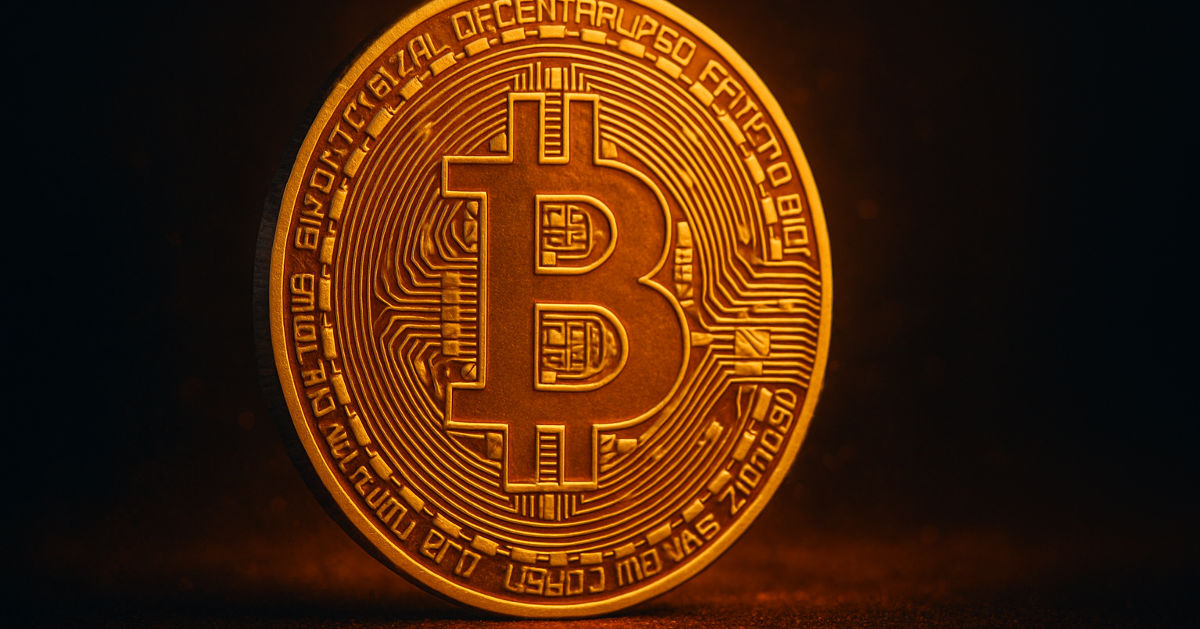
Ark Labs Launches Arkade, a New Native Operating System Using BitcoinArk Labs has officially launched Arkade, a Bitcoin-native execution layer designed to unlock programmable financial applications using Bitcoin as it exists today. The announcement comes after a $2.5 million pre-seed funding round in August 2024, led by Tim Draper with support from Fulgur Ventures and Axiom.
Arkade aims to create a new way to build directly on Bitcoin, letting developers build fast and scalable apps—without needing sidechains, wrapped tokens, or any changes to the core Bitcoin protocol.
“Bitcoin is the world’s hardest, most secure asset, but it remains largely static,” said Marco Argentieri, CEO of Ark Labs. “Arkade virtualizes Bitcoin’s transaction layer, transforming it into a dynamic financial platform where operations happen instantly, programmability is unlocked, and users maintain full control of their assets throughout.”
Arkade is currently being tested on the Bitcoin network with early partners like Tether, Boltz, Breez, and Mempool.space already on board. Arkade maintains Bitcoin’s core security model and avoids alternatives like wrapped tokens or new consensus mechanisms.
Tim Draper, founder and managing partner of Draper Associates, noted: “Bitcoin is fast emerging as the world’s premier digital asset. Arkade’s virtualization approach finally brings the programmability Bitcoin needs to transform from a store of value into a permissionless financial system.”
Ark Labs says demand has been strong since January, with multiple projects requesting integration. The company plans to expand Arkade’s toolkit in the coming months, with support for BTC-collateralized lending, staking primitives, and multi-asset transactions. The launch is scheduled for Q3 2025.
“Bitcoin has always had to balance the desire to scale transaction throughput and complexity with conservatism regarding upgrades,” said Allen Farrington, General Partner at Axiom. “With this exceptionally high bar for worthwhile innovation, and amidst a sea of noise, Ark Labs is bringing to market what may prove to be the most important technical breakthrough in the space since the Lightning Network.”
You can watch the full keynote below.
This post Ark Labs Launches Arkade, a New Native Operating System Using Bitcoin first appeared on Bitcoin Magazine and is written by Jenna Montgomery.
-
 @ cae03c48:2a7d6671
2025-05-30 20:01:16
@ cae03c48:2a7d6671
2025-05-30 20:01:16Bitcoin Magazine
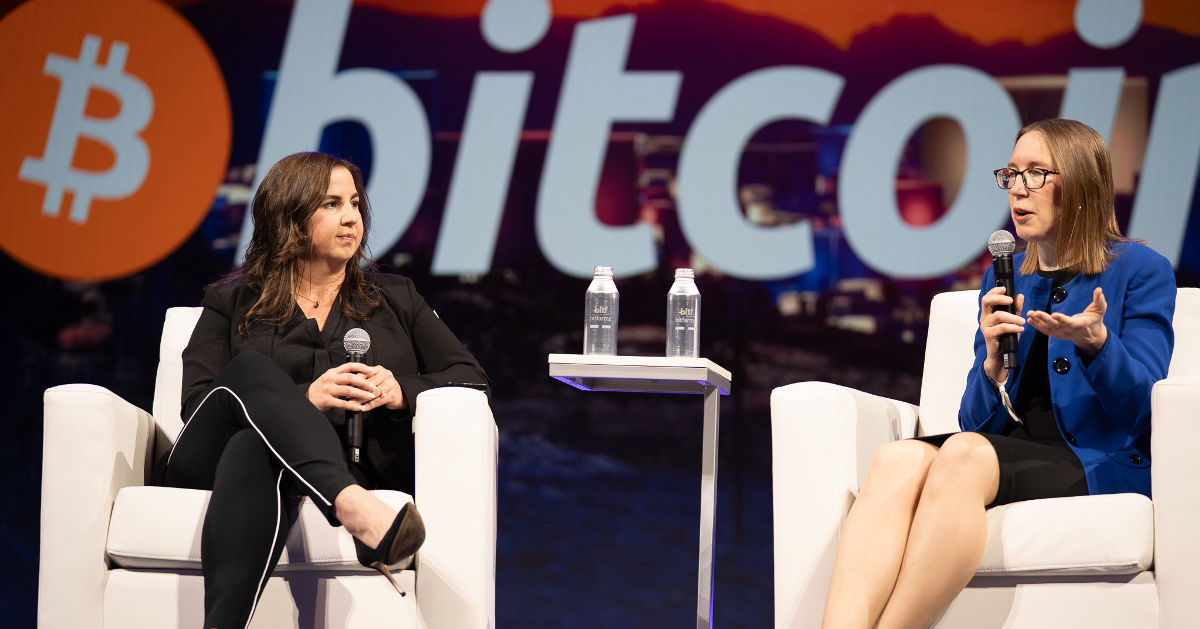
SEC Commissioner Hester Peirce Says “We Can’t Ignore It” in Bitcoin 2025 Fireside TalkAt the Bitcoin 2025 Conference this morning, U.S. Securities and Exchange Commissioner Hester Peirce took the stage with Fold’s General Counsel Hailey Lennon for a fireside chat that pulled no punches.
Opening with a question about enforcement priorities since the change in administration, Lennon asked, “What are the current enforcement priorities, if any, in the digital asset space?” Peirce acknowledged the public’s frustration: “Some people have taken the fact that we haven’t moved forward with a ton of these cases as inaction—but there’s a lot to digest.” She stressed that the agency is actively bringing in outside perspectives, stating, “That’s really the way to get to good rules.”
A core theme of the conversation was regulatory uncertainty. “One complaint I’ve had,” Peirce said, “is that in an environment of regulatory uncertainty, it’s much harder to identify bad actors—and it gives them more room to operate. Meanwhile, it pushes legitimate actors out of the U.S. or out of the industry entirely. We need to create a good environment for the good actors and a bad one for the bad actors.”
Peirce also addressed her recent tweet hinting at disclosure requirements for projects potentially considered securities.
Here's what the Crypto Task Force has been doing and some things we're thinking about: https://t.co/YHXAYhr23P
— Hester Peirce (@HesterPeirce) May 19, 2025
When asked about the explosion of memecoins and speculative tokens, Peirce didn’t hold back: “If you’re expecting to buy a memecoin and become a billionaire—buyer beware. Be an adult. If you want to speculate, go for it, but if something goes wrong, don’t come complaining to the government.” This confirms the value, and security of Bitcoin.
She emphasized the importance of community participation, noting that “government works for the people,” and encouraged attendees to weigh in on issues like surveillance and financial freedom. “In the United States, we are all about freedom. Freedom to innovate. Your voices are so important for helping us think through these issues.”
Peirce’s remarks echo the statements that JD Vance touched on yesterday during his speech at the Bitcoin 2025 Conference. They both emphasized that we, the American people, have the power to transform the traditional financial system, and fuel Bitcoin.
Discussing Bitcoin’s growing presence in traditional finance, Lennon asked whether the SEC is prepared for that convergence. Peirce replied, “We can’t ignore it. When people are free to use something, it will eventually be incorporated into traditional financial products. We need to think about how it interacts with our regulatory framework—but the key is preserving people’s ability to transfer value on their own terms.”
Looking ahead, Peirce left attendees with a powerful reminder: “You don’t have to wait for the government. Demand transparency. Learn from failures. Pick yourself up, dust yourself off, and do better next time.”
You can watch the full panel discussion and the rest of the Bitcoin 2025 Conference Day 3 below:
This post SEC Commissioner Hester Peirce Says “We Can’t Ignore It” in Bitcoin 2025 Fireside Talk first appeared on Bitcoin Magazine and is written by Jenna Montgomery.
-
 @ 7f6db517:a4931eda
2025-05-31 15:01:42
@ 7f6db517:a4931eda
2025-05-31 15:01:42
People forget Bear Stearns failed March 2008 - months of denial followed before the public realized how bad the situation was under the surface.
Similar happening now but much larger scale. They did not fix fundamental issues after 2008 - everything is more fragile.
The Fed preemptively bailed out every bank with their BTFP program and First Republic Bank still failed. The second largest bank failure in history.
There will be more failures. There will be more bailouts. Depositors will be "protected" by socializing losses across everyone.
Our President and mainstream financial pundits are currently pretending the banking crisis is over while most banks remain insolvent. There are going to be many more bank failures as this ponzi system unravels.
Unlike 2008, we have the ability to opt out of these broken and corrupt institutions by using bitcoin. Bitcoin held in self custody is unique in its lack of counterparty risk - you do not have to trust a bank or other centralized entity to hold it for you. Bitcoin is also incredibly difficult to change by design since it is not controlled by an individual, company, or government - the supply of dollars will inevitably be inflated to bailout these failing banks but bitcoin supply will remain unchanged. I do not need to convince you that bitcoin provides value - these next few years will convince millions.
If you found this post helpful support my work with bitcoin.

-
 @ bf47c19e:c3d2573b
2025-05-30 19:47:11
@ bf47c19e:c3d2573b
2025-05-30 19:47:11Originalni tekst na bitcoin-balkan.com.
Pregled sadržaja
- Kako Cantillonov Efekat Funkcioniše
- Kako Bitcoin Rešava Nejednakost iz Cantillonovog Efekta
- Uloga Vlade u Cantillonovom Efektu
- Zaštitite Sebe od Cantillonovog Efekta
- Kako mogu da saznam više o Bitcoin-u?
Pitanje o tome zašto nam je potreban Bitcoin danas je postalo veoma uobičajeno, ali odgovori obično ostavljaju većinu ljudi zbunjenim i sa izjavama da je on, ili Ponzijeva šema ili novac za kriminalce. Ovaj zaključak nije pravičan prema načinu na koji bi Bitcoin mogao da transformiše sistemsku nepravednost i korupciju koja je usadjena u naš trenutni monetarni sistem. Jedna od ovih nejednakosti u našem današnjem sistemu rezultat je Cantillonovog Efekta, davno zaboravljene klasične teorije o tome kako raspodela novca utiče na bogatstvo pojedinca.
Cantillonov Efekat opisuje kako stvaranje novog novca donosi korist onima koji prvi dobiju novac, a na štetu onih koji su najudaljeniji od stvaranja novog novca. U današnjem monetarnom sistemu banke i korporacije su najbliže novom novcu dok je srednja klasa najudaljenija. Bitcoin to ispravlja, davanjem novih bitcoin-a samo „rudarima“ koji osiguravaju protokol – mnogo pravednija distribucija.
Cantillonov Efekat predstavlja način na koji se naplaćuje dodatni porez svima koji rade za „nepromenjenu“ platu ili drže prvenstveno dolare ili eure kao deo svog bogatstva. Ovaj porez prenosi vrednost onima koji ulažu u finansijsku imovinu ili su preferirani dobavljači vlade. Bitcoin odvaja stvaranje novog novca od politike, čineći ovu situaciju mnogo poštenijom.
Kako Cantillonov Efekat Funkcioniše
Kada se poveća ponuda neke vrste novca, ima smisla da taj novi novac treba da ode u nečije ruke – ali čije? Da li bi trebao da pada kao kiša sa neba, da ga dobije neko na lutriji, ili ga predati posebnim interesnim grupama?
U našem savremenom monetarnom sistemu, ovaj novac nije uvek zajam za primaoce, tako da nekad ne trebaju da ga vrate.

Zabluda inflacije pomalo liči na MC Escher vodopad – dobro funkcioniše na papiru, ali ne govori skoro ništa korisno o tome kako stvarni svet funkcioniše.
Međutim, ova analiza zanemaruje to kako funkcionišu tržišta. Tamo gde novi novac ide prvo i način na koji se širi kroz ekonomiju, ima veliki uticaj na stvarno bogatstvo ljudi. Zašto? Kada se poveća novčana masa, cene se ne povećavaju odmah kao odraz ove činjenice. Umesto toga, povećavaju se polako, kako tržišta reaguju na novu ukupnu ponudu novca.
Prvi entiteti i ljudi koji prime novostvoreni novac mogu da ga potroše pre nego što je tržište reagovalo na bilo koji novi novac u sistemu prilagođavanjem cena. Kada oni kupuju stvari, dobijaju ih po niskim cenama jer cene još uvek ne podržavaju činjenicu da ima više novca u opticaju.
Jednom kada se novi novc nekoliko puta okrene, cene počinju da rastu, jer se više novčanih jedinica troši na isti broj dobara i usluga. Jedna od ‘cena’ u ekonomiji je plata ili zarada – i ova cena će da poraste, baš kao i sve druge. Međutim, ova cena raste sporije, kao rezultat ulaska novog novca u sistem, nego što je recimo, cena namirnica.
Kao rezultat ove neusklađenosti u vremenu porasta cena, oni koji primaju platu, tj. zaradu moraju da plaćaju više za svoje dnevne potrebe (poput namirnica), dok neko vreme primaju istu platu. Plate se prilagođavaju sporije od cena hrane. To dovodi do pada kupovne moći ljudi koji rade za platu..
Sve ovo proističe iz toga kako novi novac ulazi u sistem. Kada bi novi novac ušao u sistem samo putem zajmova direktno od centralne banke na plate ljudi, ti ljudi bi mogli da ga potroše pre nego što cene porastu, i samim tim bilo bi im bolje.
Na to kako raspodela novca utiče na bogatstvo, ukazao je Richard Cantillon u 18. veku, koji je gledao kako se ova dinamika odvija u Engleskoj kada je vlada štampala novac u njegovo vreme.

Izvrstan momak, g. Cantillon
Kako Bitcoin Rešava Nejednakost iz Cantillonovog Efekta
Da bismo razumeli kako Bitcoin rešava nejednakost, moramo da uporedimo kako se tradicionalne valute poput dolara ili eura distribuiraju u današnje vreme u odnosu na to kako se distribuiraju novi bitcoini.
Gotovo sva tradicionalna valuta koja je stvorena do današnjeg dana, prvo je distribuirana bankama i vladama. To je zato što su glavne komercijalne banke, poput JP Morgan i Citi, zauzvrat podržane od centralnih banaka poput Federalnih rezervi. Centralne banke poseduju ‘prese za štampanje’ – što znači da u svet mogu da ‘odštampaju’ (ili dodaju digitalno) neograničenu količinu svojih tradicionalnih valuta. Takođe su postavili pravila za komercijalne banke da ih podstaknu da pozajmljuju više ili manje dolara, što proširuje i ugovara ukupnu novčanu masu.
Budući da banke i vlade prve dobijaju novi novac, one odlučuju ko je drugi po redu koji može da iskoristi pogodnosti Cantillonovog Efekta. Tu na scenu dolaze lobisti, kao i moć koju donose njihove dobre konekcije sa finansijskom elitom. Lobisti osiguravaju da njihovi interesi imaju koristi od Cantillonovog Efekta, a veoma bogati, kao i korporacije, mogu da dobiju kredite od banaka po isplativim niskim kamatnim stopama.
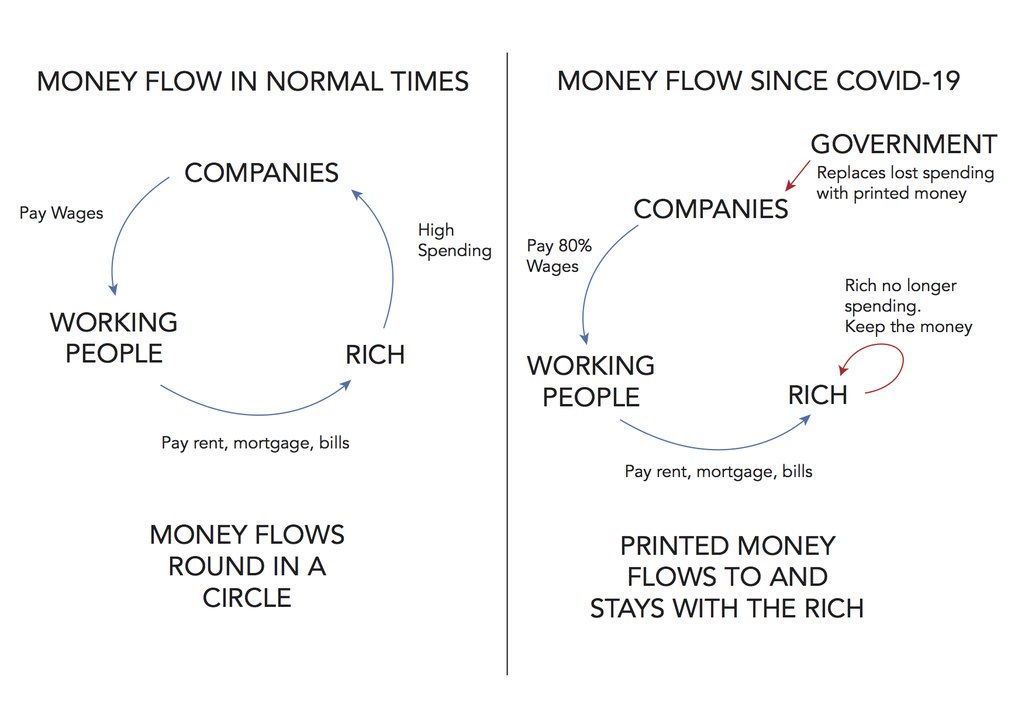
Stvari mogu da se prilično zabrljaju kada vlada uskoči da preuzme “kontrolu” nad potrošnjom štampanog novca. Izvor: OpenDemocracy
Bitcoin-ov sistem eliminiše moć lobista i prednosti poznavanja pravog bankara, i stavlja ljude na mnogo ravnopravnije temelje. U Bitcoin-u, svaki ‘rudar’ na mreži ima jednake šanse da zaradi nagradu za novostvorene bitcoin-e na svakih 10 minuta. Svako može da postane rudar, jednostavnim kupovanjem hardvera i njegovim uključivanjem u utičnicu – daleko manje mukotrpan posao od lobiranja kod izabranih predstavnika da bi vam dodelili ugovor sa vladom. Rudari troše puno novca na električnu energiju i opremu da bi se takmičili za nagradu, a Bitcoin sistemu pružaju preko potrebnu uslugu: bezbednost. Bez rudara, Bitcoin-ov sistem ne bi funkcionisao.
:max_bytes(150000):strip_icc()/GettyImages-929584582-9d7790de3ee44f658a9580cc598c641f.jpg)
Rudarenje bitcoin-a zahteva računar i struju – to je to.
U sistemu američkog dolara vidimo da političke veze proističu iz Cantillonovog Efekta. U Bitcoin sistemu vidimo da se pružaoci usluga (rudari) plaćaju za svoje usluge novostvorenim bitcoin-ima.
Naravno, ishodi Cantillonovog Efekta bi mogli da se promene tako što će političari da promene način na koji novi novac ulazi u sistem. Međutim, ovo ne rešava osnovni problem: neko drugi ima korist na tuđi račun.
Bitcoin sistem je daleko pravedniji jer koristi Cantillonov Efekat da bi uredno nagradio one koji pružaju korisnu uslugu za sve ostale: obezbeđivanje Bitcoin mreže.
Zamislite to ovako: u dolarskom sistemu, neka osoba šarmira političare ili bankare na pravim pozicijama da bi dobila povlašćen tretman na račun svih ostalih. U Bitcoin sistemu svi plaćaju po malo, da bi zaštitili svoje bankovne račune od krađe.
Uloga Vlade u Cantillonovom Efektu
Federalne vlade širom sveta su jedne od najvećih korisnika Cantillonovog Efekta, jer su u mogućnosti da vrlo lako dobiju zajmove od centralne banke svoje države. U SAD se to radi kada američko Ministarstvo finansija proda državne obveznice banci Federalnih rezervi. Federalne rezerve daju Ministarstvu finansija gomilu novoštampanog novca, a Ministarstvo finansija da Fed-u papir na kojem piše „mi ćemo vam isplatiti dug u to i to vreme sa određenom kamatom“. Možda je malo složenije od ovoga, ali to opisuje suštinu toga.
Budući da novac koji federalna vlada dobija nije postojao pre toga, ona može da ga potroši pre nego što cene počnu da rastu zbog tog novog novca koji ulazi u opticaj. To omogućava federalnoj vladi da ga troši na socijalne programe, policiju, vojsku, vojnu opremu za naoružavanje država poput Saudijske Arabije, čak i na ‘most iz nigde ka ničemu’, a da ne mora da koristi politički nepopularnu metodu: da poveća porez da bi to platila.
Umesto da povećaju poreske prihode za pokrivanje ove potrošnje, federalne vlade koriste Cantillonov Efekat za prenos kupovne moći od plata radnika srednje klase u vladin trezor. Na taj način inflacija i Cantillonov Efekat stvaraju skriveni porez na zarade i uštede novca.
Zaštitite Sebe od Cantillonovog Efekta
Zaštita svog života od Cantillonovog Efekta je zeznuta igra koju treba odigrati. Možete da pokušate da se približite izvoru novog novca, tako što ćete se nadmetati za državne ugovore ili raditi u vrhovima finansija. Možete da pokušate da igrate na visokim nivoima u trgovanju na berzi ili ulaganju u nekretnine, ali je verovatnije da ćete bankrotirati nego što ćete da se zaštitite.
Najlakši način da zaštitite sebe od nepravedne raspodele novog novca je potpuno odbijanje tog monetarnog sistema. Samo najstarije generacije koje danas žive mogu da se sete vremena kada je novac značio nešto drugo osim papira potkrepljenog ‘punom verom i kredibilitetom’ vlade i vojske. Mi smo tako uslovljeni da novac smatramo proizvodom naše vlade, ali naša zaštita od Cantillonovog Efekta zahteva gledanje novca kroz istoriju – čak i pre samo jednog veka.
Novac je nekada značio zlato – materijal koji nijedna vlada ne može magično da stvori u većoj količini, a koji zahteva ogroman napor da se pronađe i iskopa iz zemlje. Bitcoin je vrlo sličan zlatu po tome što niko ne može magično da ga stvori, i veoma ga je teško proizvesti više ‘rudarenjem’. Međutim, Bitcoin takođe putuje brzinom interneta, omogućavajući globalnu trgovinu na način na koji zlato jednostavno ne može.

Bitcoin i zlato – slični po karakteristikama ‘normalnog novca’, različiti po prenosivosti.
Da biste se zaštitili od Cantillonovog Efekta, potrebno je što je više moguće isključiti se iz nepravednih sistema tradicionalnih valuta, čuvajući bogatstvo u pravom novcu, poput zlata ili Bitcoin-a. Ovo je najmirniji način za ukidanje starog sistema i uvođenje novog, pravednijeg sistema.
Kako mogu da saznam više o Bitcoin-u?
Film "Bitkoin: Kraj novca kakvog poznajemo"
The Bitcoin Whitepaper ← objavljen 2008. godine, ovo je izložio dizajn za Bitcoin.
Ako vam se sviđa moj rad, molim vas da ga podelite sa svojim prijateljima i porodicom. Cilj mi je da svima pružim uvid u ekonomiju i kako ona utiče na njihove živote.
-
 @ 9ca447d2:fbf5a36d
2025-05-30 19:02:31
@ 9ca447d2:fbf5a36d
2025-05-30 19:02:31Adam O’Brien, Founder and CEO of Bitcoin Well, discovered Bitcoin in 2013 during its early days as what he describes as “hilarious internet money.”
Today, he leads a publicly traded Canadian company that’s redefining how people interact with this magic internet money, all while navigating a financial system that has personally debanked him and even his uninvolved loved ones.
“I had a terrible experience trying to buy bitcoin in 2013,” O’Brien explains. “Now of course today there are platforms like Bitcoin Well and many others that allow you to buy bitcoin with ease online, but in 2013 that wasn’t the case.”
This frustrating experience sparked the entrepreneurial question that would shape his future: “There must be a better way.”
With a background in restaurant management and customer service, O’Brien started small, meeting people locally in Edmonton, Canada to sell them bitcoin.
Soon after, he purchased and deployed Alberta’s first bitcoin ATM. The business grew organically, with a second machine following, then a third. Before long, Bitcoin Well had become one of Canada’s largest bitcoin ATM operators.
Today, Bitcoin Well operates approximately 160 bitcoin ATMs across Canada. While they’re no longer deploying new machines, these ATMs provide a crucial service that O’Brien is particularly proud of:
“In Canada, you can actually buy bitcoin up to $1,000 without giving your identity to Bitcoin Well. We’re the only platform in the country that is able to offer that service, which is fully legal, fully above board.”
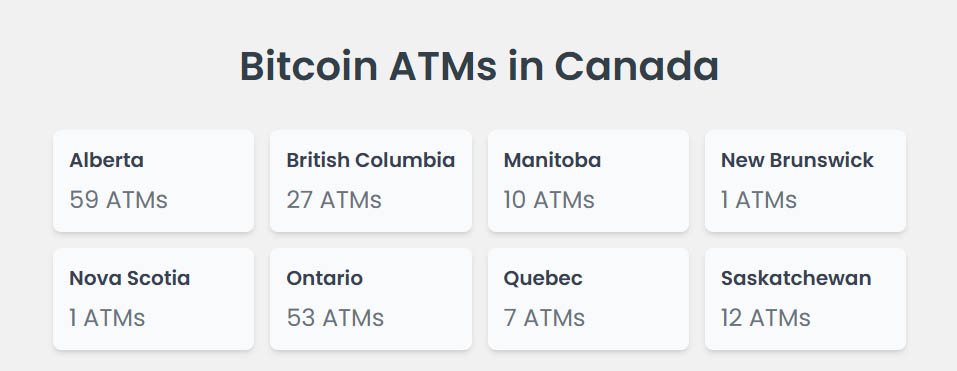
Bitcoin Well has a fleet of over 170 bitcoin ATMs across Canada
The Pivot to Freedom
In 2020, O’Brien’s vision for the company evolved. What began as a mission for Bitcoin accessibility transformed into something deeper: a quest for financial freedom.
“I’m debanked across Canada. I don’t have my bank, even my wife has lost her bank accounts because of my work,” O’Brien revealed. “She’s not involved with the business at all. She’s a stay-at-home mother to our four kids, and she’s unbanked from the majority of the banks in Canada.”
This personal experience crystallized a troubling reality: “It became very clear to me that my money in the banking system was always going to be subject to how much I play by the rules.”
For someone self-described as “freedom-focused” and “freedom-minded,” this realization prompted a strategic shift. Bitcoin Well began developing its online platform, the Bitcoin portal, allowing users to buy, sell, and actually use bitcoin to replace traditional banking functions. O’Brien explains:
“The goal here is that we can be a conduit between the legacy financial system you know, and how you pay your bills, your rent, your power, credit card and phone bills and all that stuff without having to have money in what I would call a captured fiat account.”
He summarizes the company’s North Star simply: “Allow people to replace their bank with bitcoin in self-custody.”
Living the Mission
O’Brien doesn’t just preach Bitcoin independence, he lives it. Debanked across Canada, he relies on Bitcoin Well’s services for his daily financial needs.
“I’ve got a normal American Express, but I pay that off with Bitcoin at the end of the month,” he shares. “In Canada, we’ve got the equivalent of Venmo, it’s called Interac e-Transfer. I can send an Interac e-Transfer to anyone in the country from bitcoin in self-custody.”
This allows him to navigate everyday situations where merchants don’t accept bitcoin directly.
“It’s spring right now. I’ve got a little property. The guy comes and picks up our rakes and trims the trees and all this stuff, and I pay him. He doesn’t want to accept bitcoin, but I’m able to pay in bitcoin, and he gets the money that he wants.”
In the U.S., Bitcoin Well customers can have their paychecks deposited with a designated portion automatically converted to sats and sent directly to self-custody, allowing clients to stack sats sovereignly without having to think much about it.

With Bitcoin Well you can set up automatic DCA
Building the Right Team
The journey hasn’t been without challenges. O’Brien candidly describes how rapid growth in 2021 led to hiring missteps.
“We scaled so fast I kind of lost control of hiring practice and culture, and we ended up with people that I felt like we had to almost convince of the mission,” he admits.
“Some of them weren’t convinced…they were just there because of the job, or they didn’t really understand the need for the freedom that I speak about every single day.”
After scaling back from that hiring spree, the company refocused on building a team aligned with its core values, emphasizing “hiring Bitcoiners really.”
The result has been transformative: “It’s so much fun having a team that is mission-focused and aligned on our mission to enable independence. Having everyone aligned and kind of running towards that mission is pretty special.”
This alignment creates a powerful filter for decision-making: “When we have a decision to make, it’s like, well, which one enables more independence? And usually there’s a pretty obvious answer. So we’re able to make very fast decisions that help the business and help the mission.”
Raising the Next Generation
Beyond building Bitcoin Well, O’Brien and his wife are raising four children with intention. The family is transitioning to homeschooling next year, allowing them to travel to Bitcoin conferences together while teaching their children to question everything.
“If you don’t indoctrinate your kids, the state will do it for you,” O’Brien states firmly. It’s a fair point, as indoctrination usually comes with a negative connotation, but it should not, since everyone gets indoctrinated with something.
It’s up to parents to decide what their kids are going to be indoctrinated with, and as parents, the O’Briens have chosen to actively shape their children’s worldview rather than defaulting to institutional influences.
Their approach combines Bitcoin principles with biblical values, with a heavy emphasis on lowering time preference. Something O’Brien notes is “10, 20, 30, 50 times more important” with children, though admittedly “way harder.”
“I think Bitcoiners more than anyone understand the need for generational thinking,” he observes.
“I’m so bullish on the amount of Bitcoiners that have more kids or that want to have more kids and that are actually excited to have kids compared to some of my fiat friends that are like, ‘Oh, it’s too expensive and I want to party.’ It’s like, man, you’re just missing the point.”
A Call to Support Bitcoin-Only Businesses
One of O’Brien’s most passionate messages is a call to action for fellow Bitcoiners: support businesses that align with your values.
“I want to call people to support businesses that are actually making steps towards the change they want to see in the world,” he urges. “If I hear one more Bitcoin maxi tell me that they’re using Kraken or Coinbase because it’s cheaper — why do you support the casinos?”
He expresses concern about the future if Bitcoin-only companies struggle to survive: “It would be very sad if all the Bitcoin-only and non-custodial businesses went out of business. That would make it very hard for me to feel comfortable onboarding my no-coiner friends.”
His message to Bitcoiners is clear: “A call out to all my fellow Bitcoiners to support and use the platform that they want to see their kids use.”
Bitcoin Well (TSX.V: BTCW, OTCQB: BCNWF) continues to build infrastructure for those who want to use Bitcoin daily while maintaining self-custody. For O’Brien, the mission is simple but powerful: enable independence and give people the freedom to control their own financial destiny.
-
 @ cae03c48:2a7d6671
2025-05-30 19:02:03
@ cae03c48:2a7d6671
2025-05-30 19:02:03Bitcoin Magazine
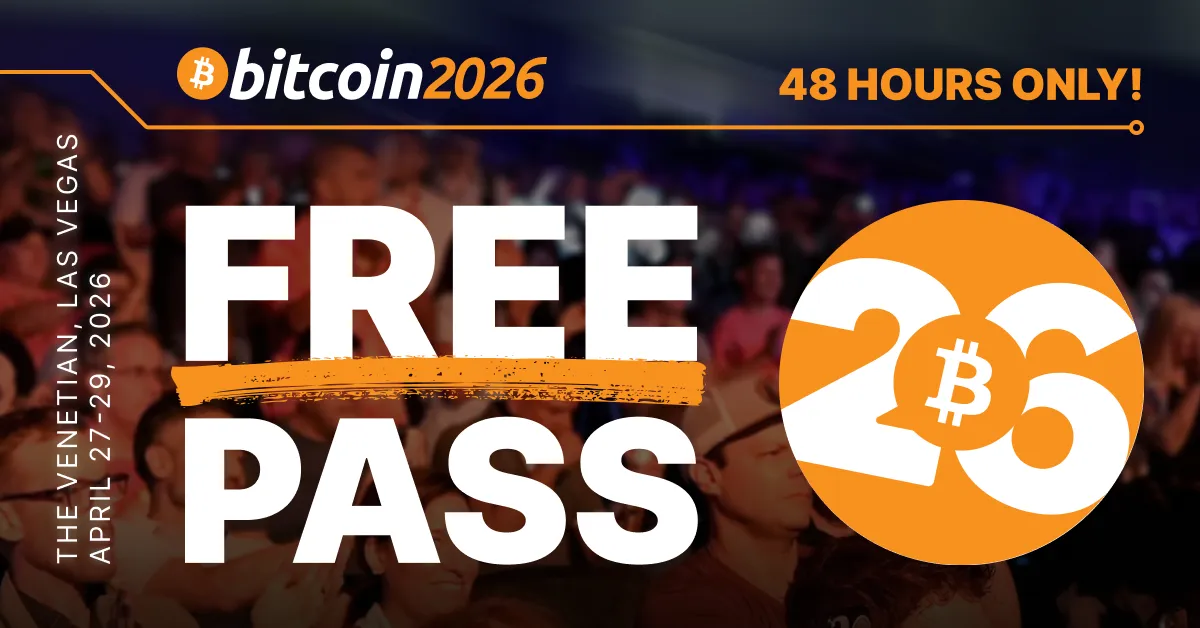
The World’s Largest Bitcoin Conference Returns to Las Vegas in 2026May 28, 2025 – BTC Inc., the leading provider of Bitcoin-related news and events, is excited to announce that the Bitcoin Conference, the world’s largest and most prestigious gathering of the Bitcoin industry, will be returning to Las Vegas next year. Next year’s conference will take place at the Venetian Las Vegas from April 27 – 29, 2026.
The announcement comes on the heels of a highly successful Bitcoin 2025 event, which saw over 35,000 attendees descend to Las Vegas to participate in valuable networking and community building events, experience leading-edge technology showcases, and hear insights from policy leaders, business executives, and celebrities across the Bitcoin industry.
“Bitcoin 2025 was the largest event in Bitcoin’s history and arrived at a pivotal moment for the industry,” said Brandon Green, Chief of Staff at BTC Inc. “Next year, we are going to compound it into not only the biggest event in Bitcoin’s history, but one of the largest and most important events globally.”
“Our city and state were delighted to host the Bitcoin conference this year,” said Governor Joe Lombardo. “Las Vegas is home to groundbreaking innovation and exciting new ideas, and we’re the perfect forum for the 2026 Bitcoin conference. We look forward to welcoming the conference to our state again next year.”
Tickets for Bitcoin 2026 are available for purchase on the official conference website. Interested individuals and organizations are encouraged to secure their spots early, as demand is expected to be unprecedented.
For sponsorship opportunities, media inquiries, or further information about The Bitcoin Conference, please contact us or visit https://b.tc/conference/2026.
About The Bitcoin Conference:
The Bitcoin Conference is the world’s largest and most influential gathering of Bitcoin professionals, investors, and thought leaders. Committed to fostering Bitcoin adoption and industry innovation, the conference has grown into a global phenomenon since its founding in 2019. Learn more at https://b.tc/conference/2026
This post The World’s Largest Bitcoin Conference Returns to Las Vegas in 2026 first appeared on Bitcoin Magazine and is written by Bitcoin Magazine.
-
 @ 7f6db517:a4931eda
2025-05-31 15:01:42
@ 7f6db517:a4931eda
2025-05-31 15:01:42
Bank run on every crypto bank then bank run on every "real" bank.
— ODELL (@ODELL) December 14, 2022
Good morning.
It looks like PacWest will fail today. It will be both the fifth largest bank failure in US history and the sixth major bank to fail this year. It will likely get purchased by one of the big four banks in a government orchestrated sale.
March 8th - Silvergate Bank
March 10th - Silicon Valley Bank
March 12th - Signature Bank
March 19th - Credit Suisse
May 1st - First Republic Bank
May 4th - PacWest Bank?PacWest is the first of many small regional banks that will go under this year. Most will get bought by the big four in gov orchestrated sales. This has been the playbook since 2008. Follow the incentives. Massive consolidation across the banking industry. PacWest gonna be a drop in the bucket compared to what comes next.
First, a hastened government led bank consolidation, then a public/private partnership with the remaining large banks to launch a surveilled and controlled digital currency network. We will be told it is more convenient. We will be told it is safer. We will be told it will prevent future bank runs. All of that is marketing bullshit. The goal is greater control of money. The ability to choose how we spend it and how we save it. If you control the money - you control the people that use it.
If you found this post helpful support my work with bitcoin.







